Artists in residence Art Explora - Cité internationale des arts

Launched in 2021, this programme gives artists from all over the world the opportunity to develop their research and creative work in the heart of Paris, in liaison with the French artistic and professional scene. It encourages creation in all its forms, while facilitating its dissemination to the widest possible audience. Residents' work focuses on themes of scientific and technological exploration, and addresses the major social and environmental issues of our time.
Some twenty artists are selected each year by an international selection committee.

Residents 2025
1st session - from spring 2025
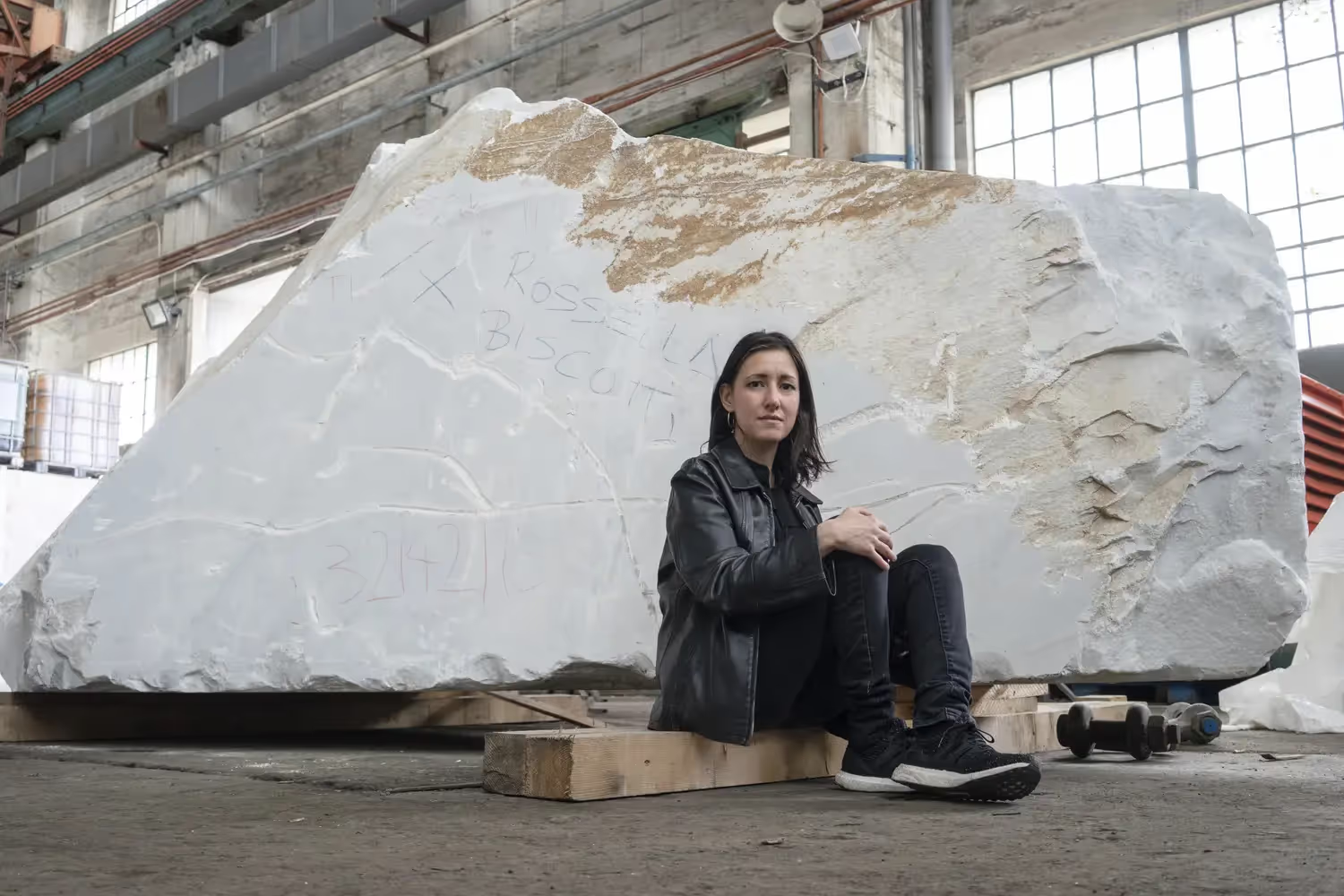
Italy
Learn more
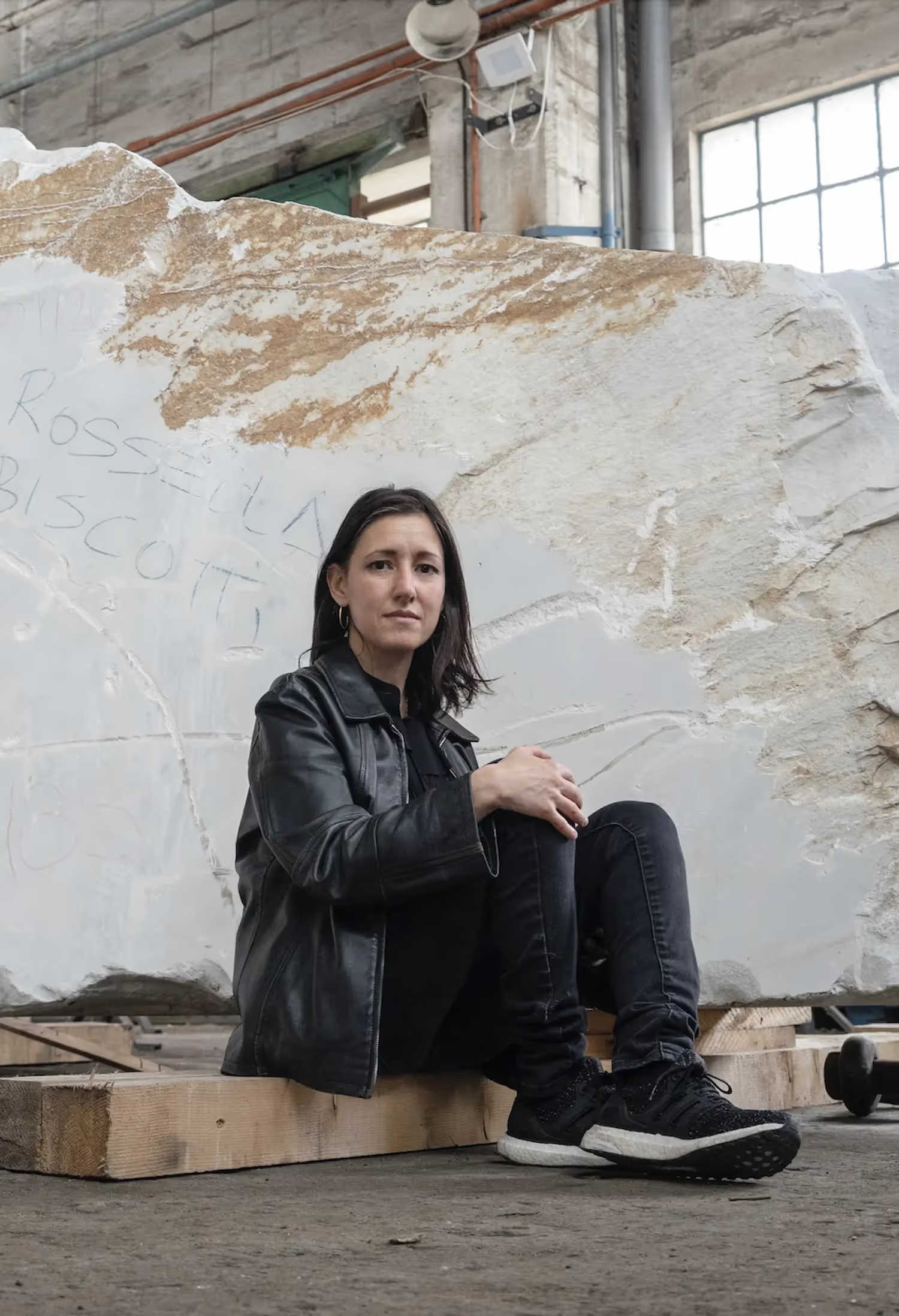
Rossella Biscotti, Italy
script in sentence
Biography
Rossella Biscotti was born in 1978 in Molfetta in Italy. She lives and works between Brussels and Rotterdam. She is an artist whose practice cuts across sculpture, performance, sound works, and filmmaking exploring social and political moments from recent times through the subjectivity and experiences of individuals often in opposition to violent institutionalized systems. Rossella Biscotti’s artworks encapsulate meticulous stratifications of materials and meanings.
Rossella Biscotti’s work has been exhibited in in international institutions, such as Castello di Rivoli Museo d’Arte Contemporanea, Italy (2024), Dhaka Art Summit, Bangladesh (2020), Kunstinstituut Melly, the Netherlands (2019), 55th Venice Biennale, Italy (2013), Secession, Austria (2013), dOCUMENTA 13, Germany (2012) and Manifesta 9, Belgium (2012).
Residency project
The project “script in sentence” seeks to explore the dynamics of public space in Paris through a series of performative interventions. Scripting site-specific performances for public spaces, mainly simple streets and corners, it’s an exercise of observation, imagination and engagement while investigating the tension between movement and restriction, gestures and the social power structures of the city, gender and race. The performances will involve subtle, often unannounced actions, introducing small portable objects that serve as both props and extensions of the body, and could play with notions of support, gift and restriction; fragmented texts, and choreographed movements. The performances will be fleeting, minimal, and grounded in the everyday — offering both poetic and political reflections on how bodies navigate spaces overlapping history and routine.
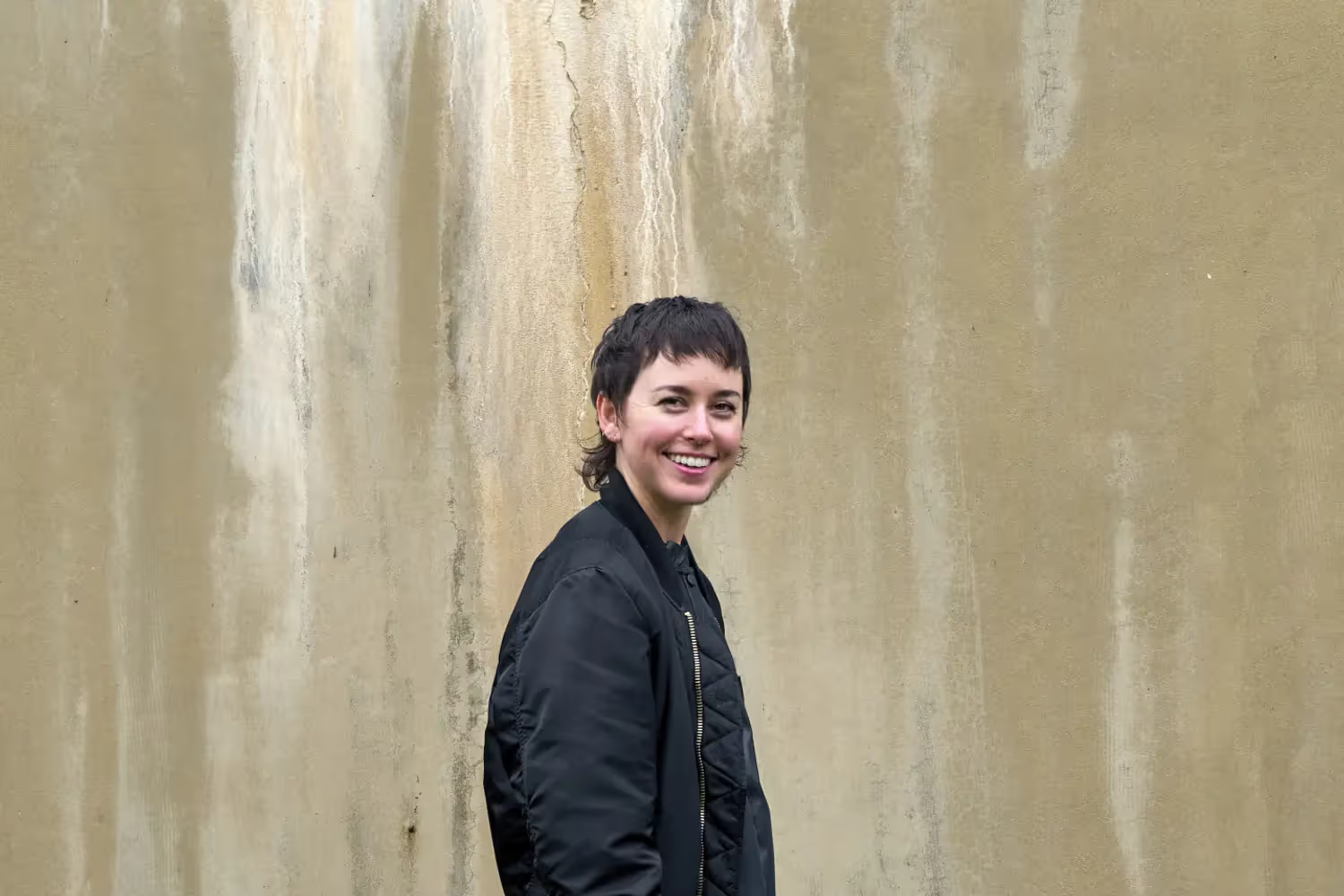
United States
Learn more
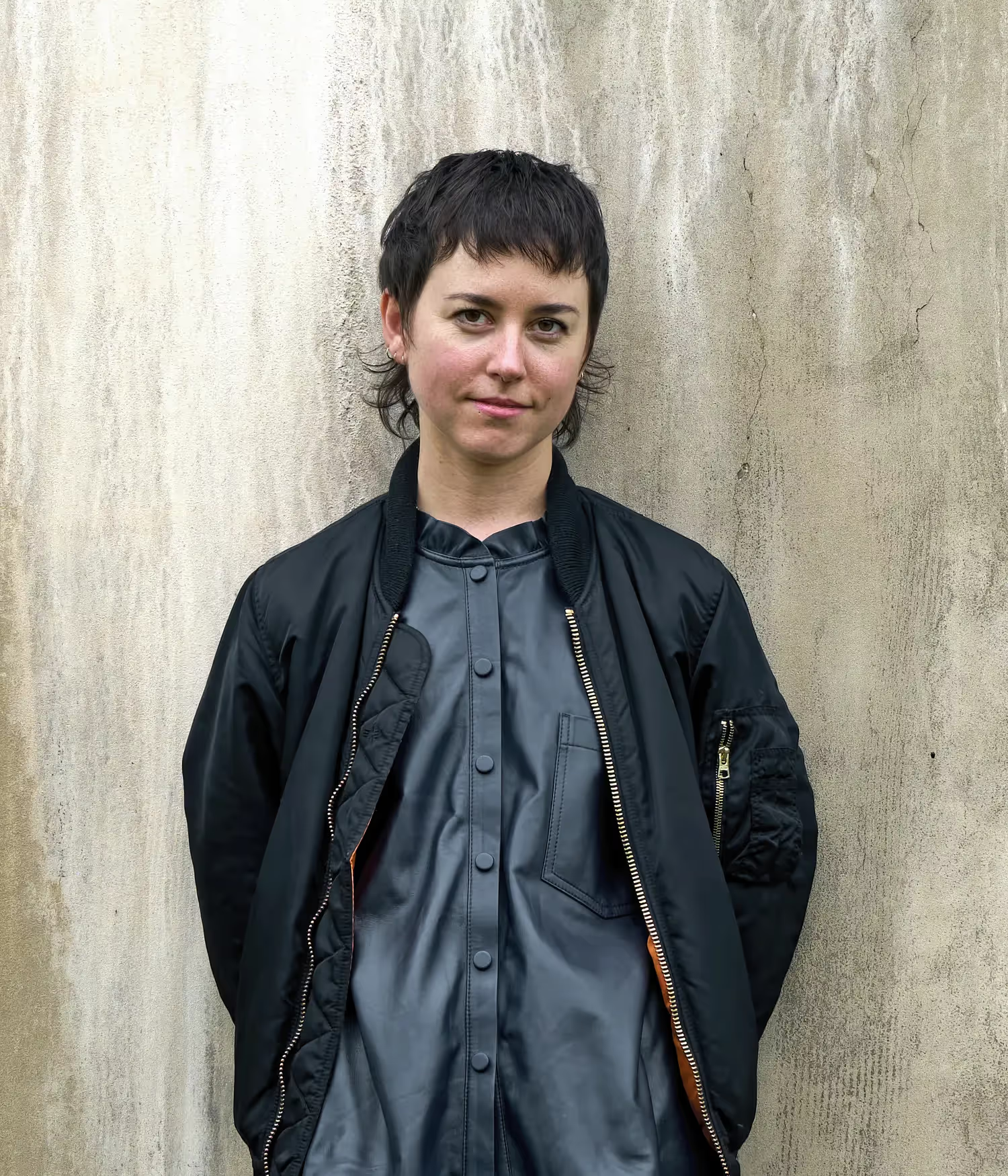
Alice Bucknell, United States
EARTH ENGINE
Biography
Alice Bucknell was born in London. They live and work in Los Angeles. Their recent work has focused on creating cinematic universes within game worlds, exploring the affective dimensions of video games as interfaces for understanding complex systems, relations and forms of knowledge. Alice Bucknell’s work has been presented in numerous institutions including Medialab Matadero and LEV Madrid, Spain (2024), Pacific Standard Time (PST) (2024), Arcade Seoul, South Korea (2023), Singapore Art Museum, Singapore (2023), Museum of Contemporary Art in Fort Worth, United States (2023).
Residency project
“EARTH ENGINE” is broadly a video game about climate futures, planetary agency, and the paradox of predictive technologies in closing down other possible futures. The mechanic of the game is a planet that plays itself, one that reverses the typical hierarchy between playable characters and environment, or subject and landscape, by making the game world the main character.
Something between an ecological tamagotchi and a divination tool, “EARTH ENGINE” rejects the modular fantasy of a wholly quantifiable world. Merging local climate data based on the player’s IP address with long-range climate forecasts and a GPS randomization spawn, the game generates a new world with each playthrough. The project considers time, grief, and the affective dimensions of the climate crisis that escape the infinite grid of a digital Earth double.
“EARTH ENGINE” is co-supported by a 2025 Creative Capital Grant in the US and its commissioner, the 2025 MUNCH Oslo Triennial.

Kosovo
Learn more
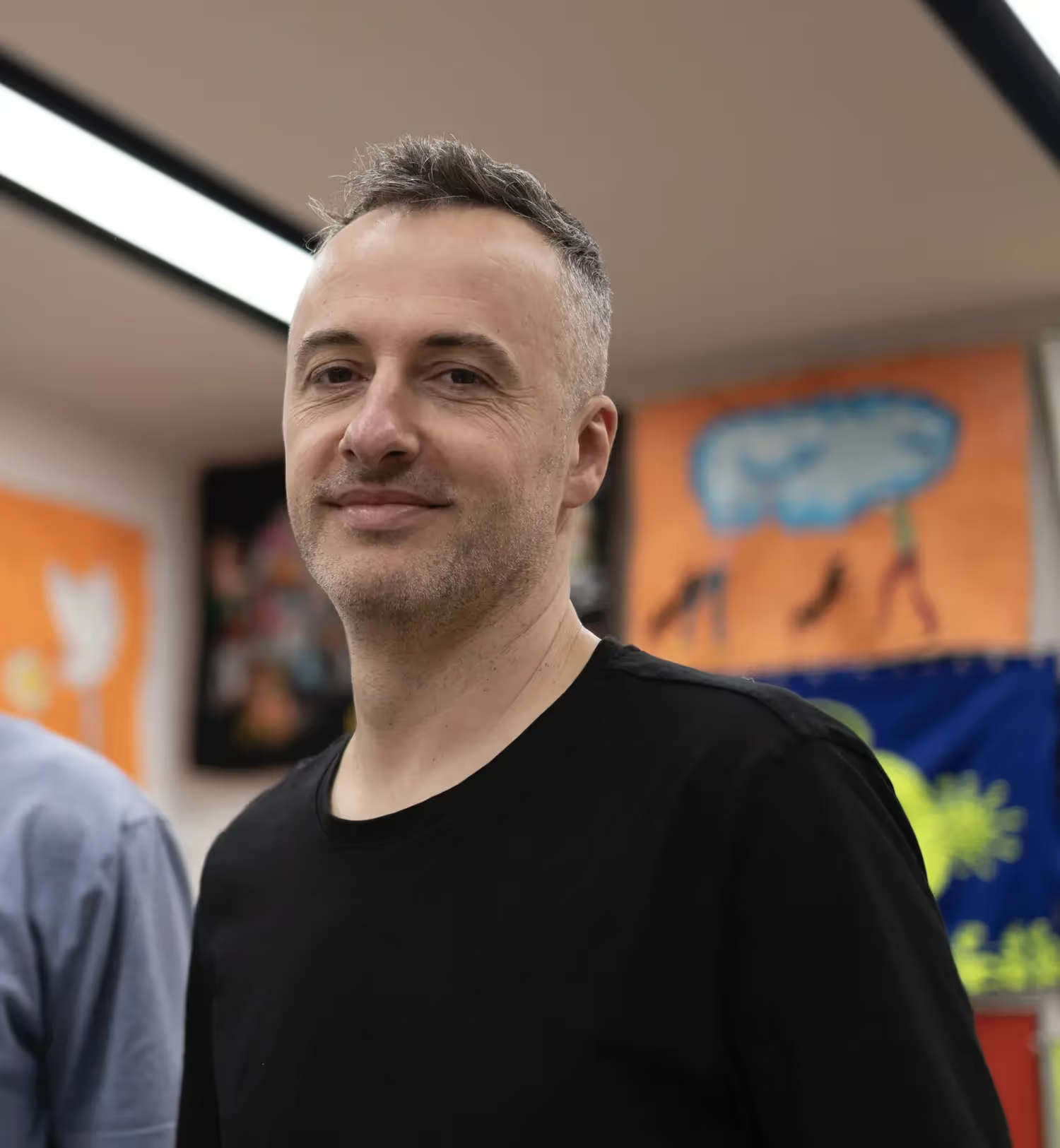
Jakup Ferri, Kosovo
Tintirinti
Biography
Jakup Ferri was born in 1981 in Prishtina, Kosovo. He works and lives between Amsterdam and Prishtina.
His work often evokes elements of children’s books, folk art, and outsider art, although his real inspiration comes from microorganisms as seen through an electron microscope. The figurative paintings and embroideries he creates are based on surreal drawings that depict everyday life in a world populated by animals, acrobats, geometric forms, and utopian architecture. These images create poetic interactions between people, creatures, and objects, inviting silent dialogues and suggesting new ways of communication between species.
Jakup Ferri represented Kosovo at the Venice Biennale in 2022. His work has been shown in numerous institutions including Harewood Biennial Leeds, United Kingdom (2024), Ludwig Museum Budapest, Hungary (2024), Kunstmuseum Luzern, Switzerland (2023), Manifesta Biennale 14 Prishtina, Kosovo (2022).
Residency project
For his project “Tintirinti”, Jakup Ferri will continue with his research into the various textile techniques, including tapestry, handmade carpets, and diverse forms of hand embroidery. These methods have significantly influenced his creative practice. He deeply values the authenticity, craftsmanship, and unpolished character of handmade textiles. For the last decade, his research has spanned across textile histories from regions such as Burkina Faso, Ghana, Senegal, Haiti, Suriname, Turkey, and the Balkans. This exploration has enriched his understanding of the cultural and historical significance of textile art, informing into his own creative vision.
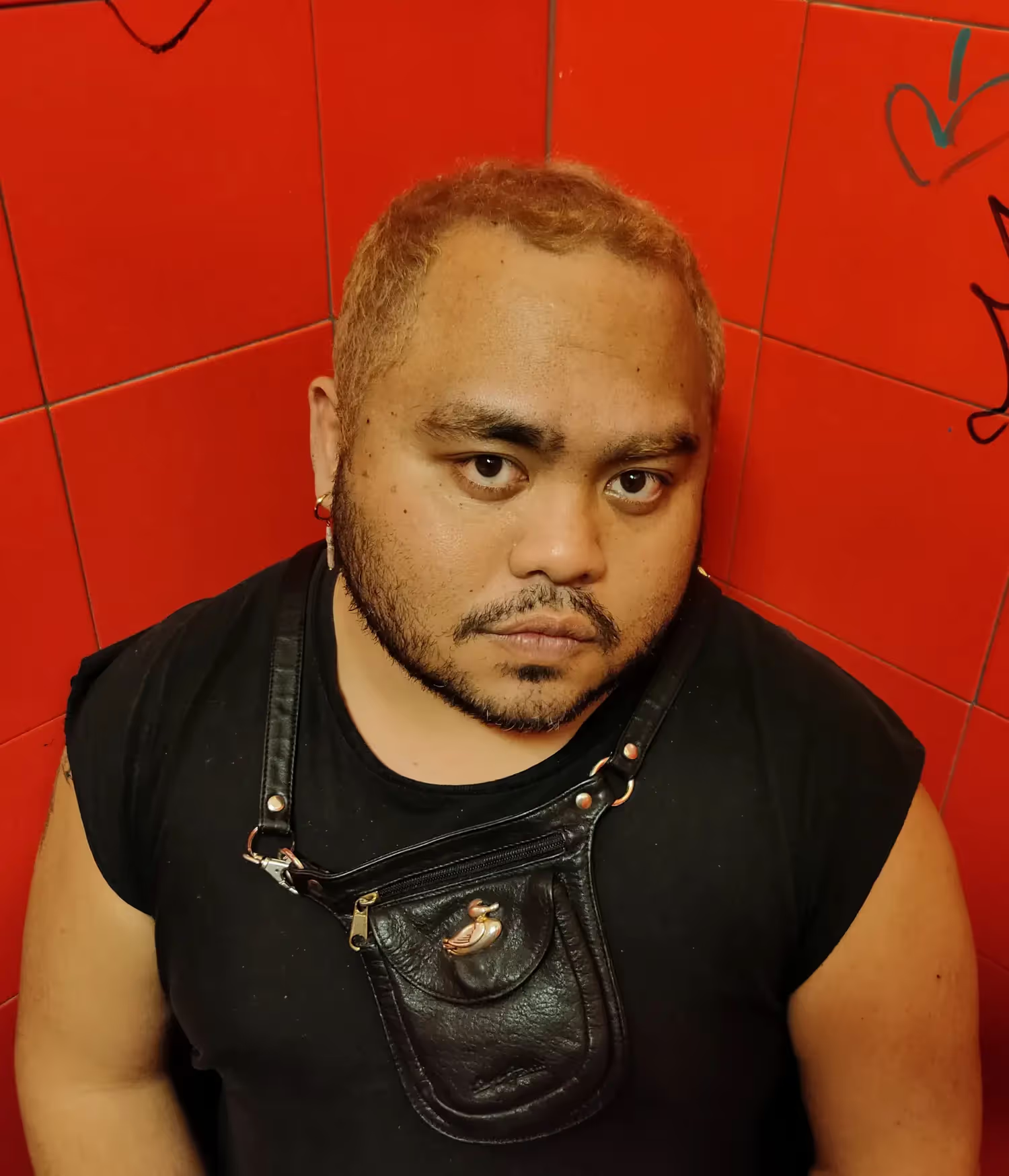
Philippines
Learn more
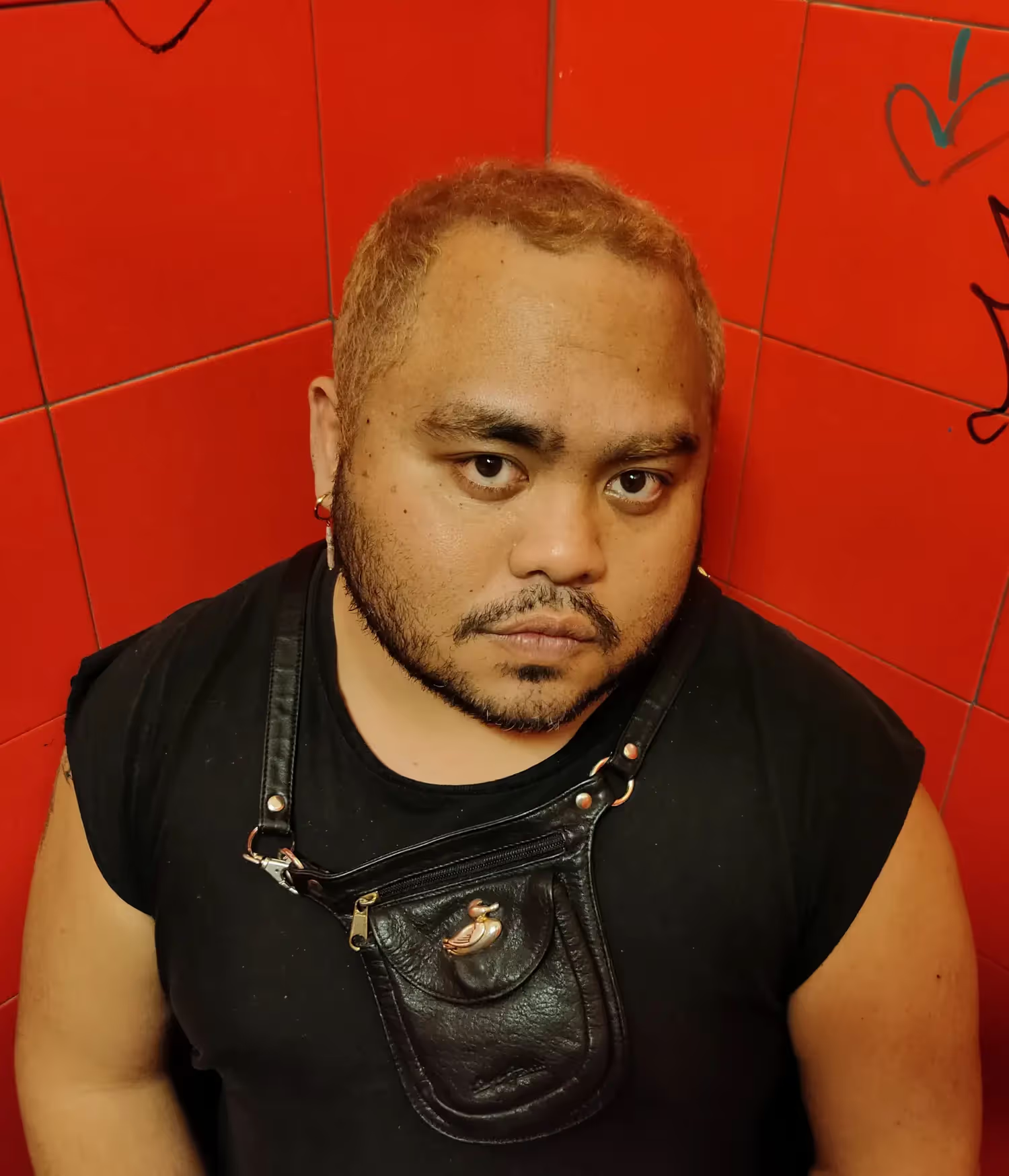
Liryc Dela Cruz, Philippines
We Shall Takeover The World
Biography
Liryc Dela Cruz was born in the Philippines. He lives and works in Rome. Deeply rooted in decolonial methodologies, his work examines the post-colonial history of the Philippines, the Filipino diaspora, and the lives of care, domestic, and cleaning workers. By bridging personal and collective narratives, Liryc Dela Cruz interrogates identity, belonging, and labor, fostering dialogue and imagining futures shaped by radical care, shared histories, and the unlearning of colonial legacies. His works has been shown in numerous institutions including Santarcangelo Festival, Italy (2024), Mattatoio di Roma, Italy (2023), Teatro di Roma, Italy (2021), Jihlava International Documentary Film Festival, Czeck republic (2018, 2020, 2021) and Locarno Film Festival, Switzerland (2015).
Residency project
In the pursuit of understanding the deep ties between labor, identity, and colonial legacies, Liryc Dela Cruz’s residency project in Paris continues his ongoing research on care, hospitality, and the experiences of Filipino workers. Through encounters centered on storytelling, reflection, and decolonial practices, Liryc Dela Cruz facilitates spaces where participants can share their lived experiences, engage with Filipino history, and reflect on the role of labor in shaping identity. These encounters will culminate in a collaborative work that weaves together personal narratives of displacement, labor, and resistance. By integrating these experiences with his films and installations, Liryc Dela Cruz will further investigate the persistent colonial processes embedded in care work, using the residency as a space to reclaim agency and amplify marginalized voices through collective artistic expression.

Lebanon
Learn more

Rana Hamadeh, Lebanon
The Destiny project: Standard_Deviation IV
Biography
Rana Hamadeh was born in 1983, in Lebanon. She lives and works in Rotterdam.
Her artistic practice integrates curatorial methods, producing theatrical performances, networked media, interactive sound systems, and audio-visual installations, often structured as long-term, sequential projects. Since 2016, she has developed an “operatic practice”, exploring collective thinking and models of machinic extension, focusing on justice's epistemologies and technologies through formats like theatre-works-as-media-installations, music from statistical data, and machinic opera. She examines "alienness" as both a legal outcast and a discursive tool, addressing law, theatre, and alternative topographies of a re-imagined world order. She investigates testimony beyond legal paradigms, contrasting rational tribunal utterances with the unspeakable, creating an "archive of erasure."
Rana Hamadeh’s work has been presented in numerous institutions including Performa Biennial, U.S.A (2023) Edith-Russ Haus, Germany (2022), The Secession, Austria (2021), Kunsthalle Winterthur, Switzerland (2019), Rotterdamse Schouwburg, the Netherlands (2017).
Residency project
The Destiny Project (2020-X) is a long-term research project that is invested in the question of the production, consumption, circulation and articulation of 'desire' within the contemporary global public discourse. It attunes itself particularly to the economies, technologies and destinies/destinations of (machinic) desire, as manifested in – as well as shaped by – fields such as predictive and prescriptive analytics and the nascent fields of data justice and algorithmic justice.
In France, Rana Hamadeh plans to develop a new operatic tragedy inspired by two interlinked welfare scandals: The Dutch “Toeslagen Affaire” – where algorithmic bias by tax authorities devastated migrant families through false accusations of fraud – and a similar case in France where discriminatory algorithms by CNAF impacted low-income migrant families.
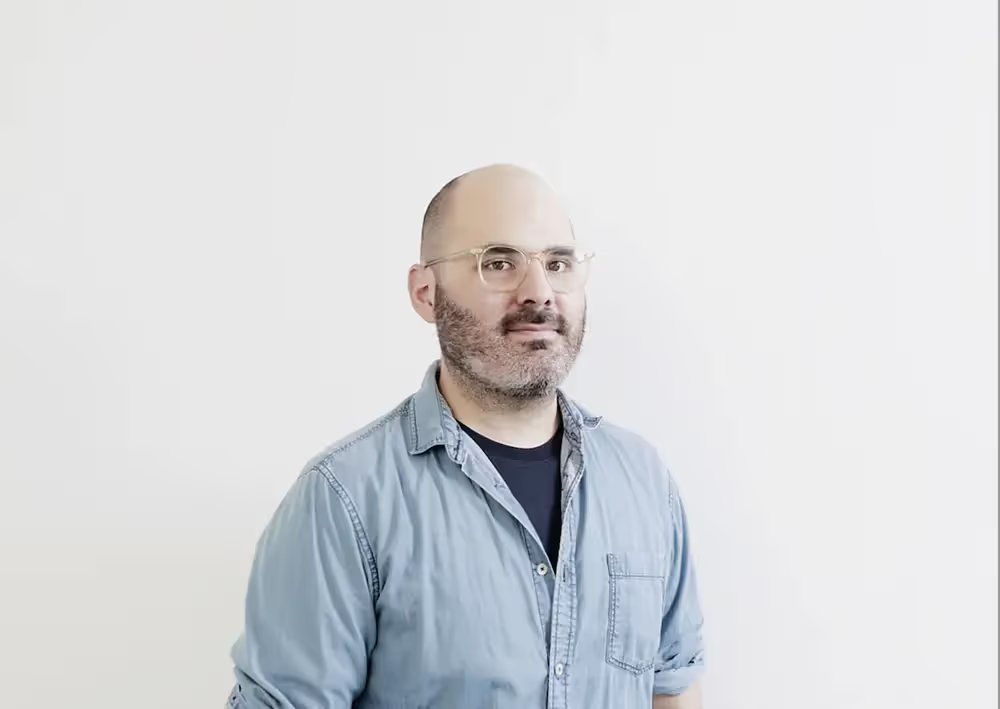
Mexico
Learn more
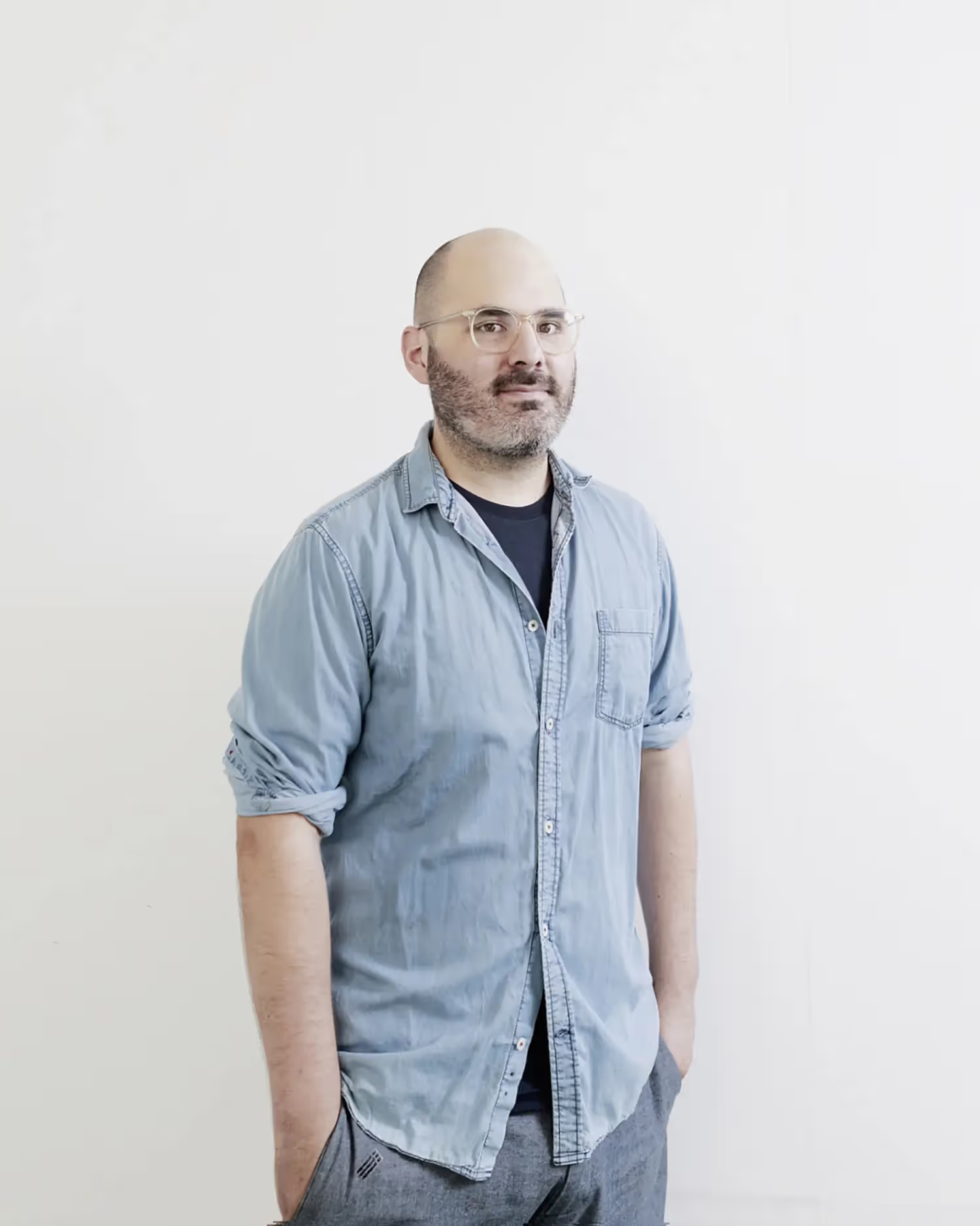
Rodrigo Hernández, Mexico
Conchita
Biography
Rodrigo Hernández was born in 1983 in Mexico City. He lives and works in Mexico City. His practice encompasses sculpture, painting, drawing and installations, and is anchored in a research of the world of dreams and fiction. Rodrigo Hernández’s work has been presented in numerous institutions including Wattis Institute, USA (2024), Kestner Gesellschaft, Germany (2023), Museo Jumex, Mexico (2022), Swiss Institute, USA (2022), Istanbul Modern, Turkey (2020), Kunsthalle Basel, Switzerland (2018).
Residency project
Using the novel from the Parisian writer Patrick Modiano “Dora Budor” as a starting point, Rodrigo Hernández will extend his research on memory, dreams and auto fiction narratives in relation with the biography of his grandmother Conchita. Both stories touch upon themes of escape, childhood and the vertigo of finding oneself at the brink of the unknown.
In Paris, which for Modiano’s work is not only a recurring setting but also a central character, he wants to explore the trope of urban wandering connected with the act of dreaming, as seen in cases such as the photography of Eugène Atget; Baudelaire’s flâneur, the Situationist dérives, the Dada “excursions”, Walter Benjamin’s “Arcade Project”, to name only a few.
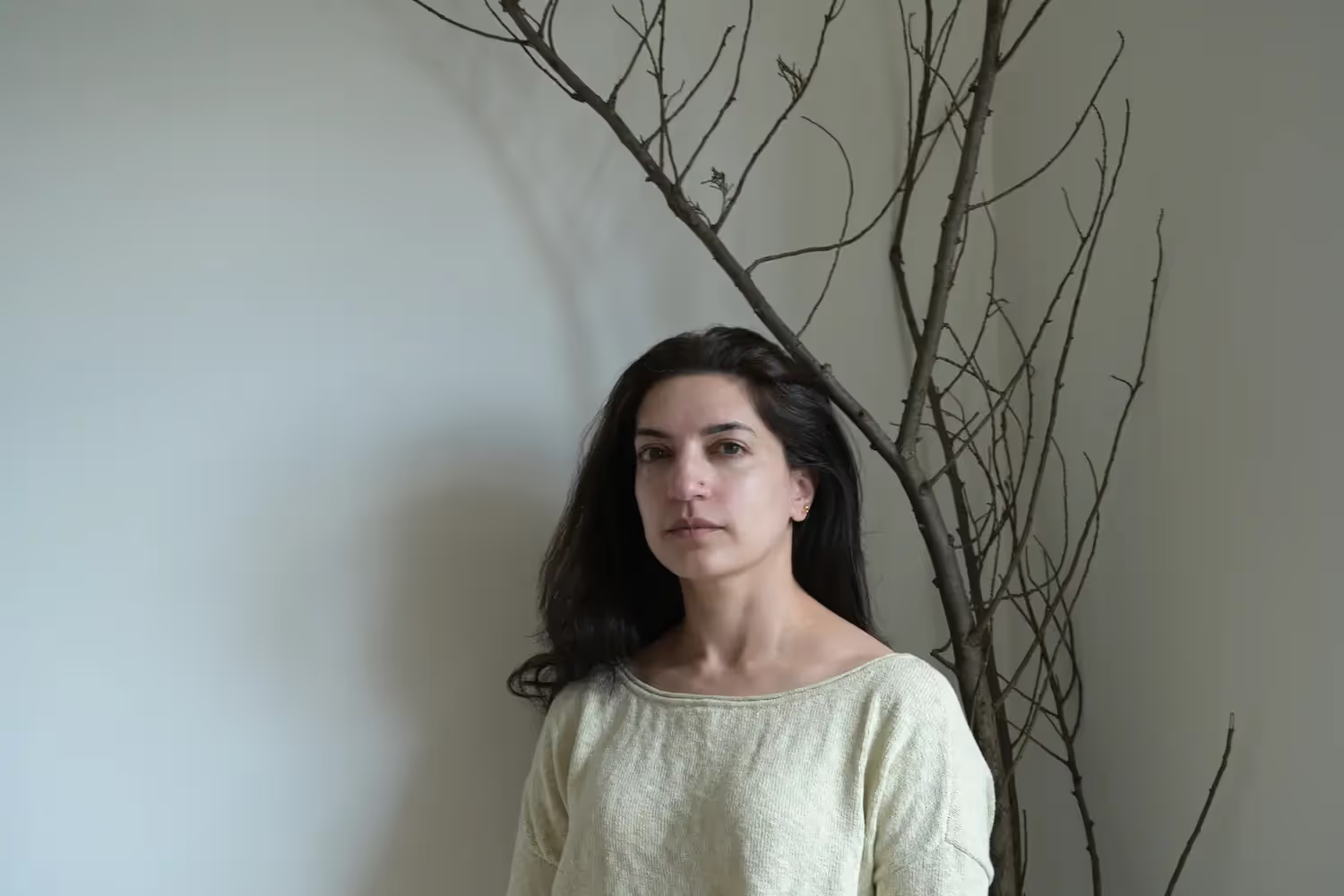
Pakistan
Learn more

Saba Khan, Pakistan
Keeping Afloat in Grey Liquid
Biography
Saba Khan was born in 1982 in Lahore Pakistan. She lives and works between Lahore and London. Her interdisciplinary work stretches over the fields of art, ecology, performance, colonial histories which come together through expeditions, research and fieldwork. The work explores the history and politics of water bodies, flow, fluidity - bodies blocking water and bodies moving along water. Her works weave through the language of memorial, monument and public projects, balancing grandeur, artifice and satire in order to explore the cracks in the structures. Saba Khan founded Murree Museum Artist Residency and a satirical collective ‘Pak Khawateen Painting Club’. She recently exhibited at Swiss Institute, USA (2024), National Museums of Qatar, Doha (2024), Sharjah Art Foundation, UAE (2022), Lahore Biennial 02, Pakistan (2020).
Residency project
Water engineering was a tool for colonial expansion, control, and growth of agriculture in the 19th century Indian-Subcontinent. Saba Khan’s previous research on water control draws parallels with new tools for control of liquid capital, fluidity of money, by monitoring groups, such as Financial Action Task Force (FATF) based in Paris. The new banking structures have not considered creative practitioners and women, pushing them further on the peripheries with more stringent and misogynistic rules. Saba Khan relates these new regimes akin to water projects of the British Raj and the World Bank. Large dams were built to harness unruly waters of South Asia, while the policies of FATF are used to block the flow of dirty money and money laundering but its implementation effects the lives of artists, ordinary citizens, migrant workers and women.
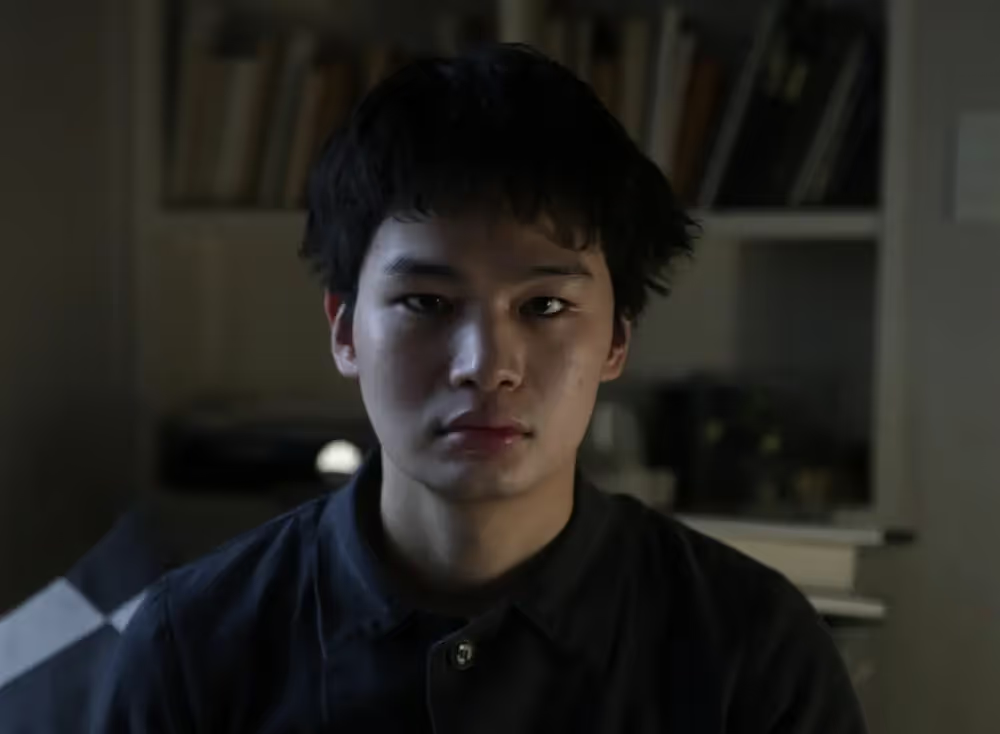
South Korea
Learn more
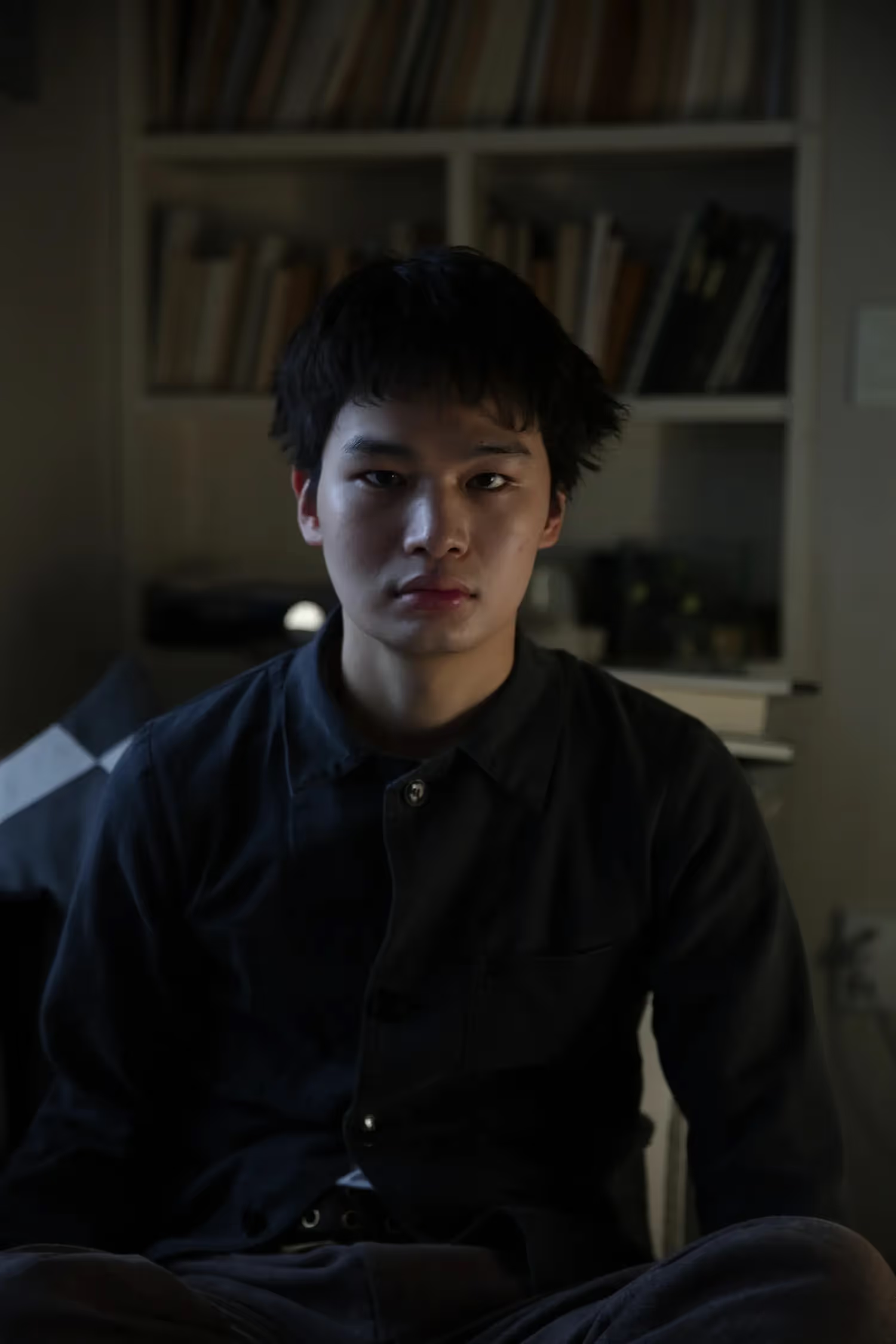
Muyeong Kim, South Korea.
Biography
Muyeong Kim was born in 1995. He lives and works in Seoul.
Muyeong Kim looks into the affinities of contradictory desires through staging, camera, and wall installations. He is particularly interested in the workings and makings of a stage, most recently allowing further exploration into aestheticized victimhood, or a study of willed passivity and its violent ruptures.
His recent exhibitions include Leeum Museum of Art, South Korea (2024), Frieze No.9 Cork Street, United Kingdom (2024), Amado Art Space, South Korea (2024), N/A, South Korea (2023), and Shower, South Korea (2023).
Residency project
Continuing his research into pinhole camera portraiture and various theatrical locations, Muyeong Kim will study the isolation and obscuring conditioning of observation contained within box-like structures, both large and small. The box-like examples the artist has chosen for his new research, in order of size, are as follows: photographs with a colorization technique that emerged in Japan after the invention of black and white photography and before the invention of color photography; a reconstruction of a sedan chair, a wheelless litter that first originated in the French Sedan region; and a leprosy hospital built by the Japanese in Korea during the Japanese occupation.
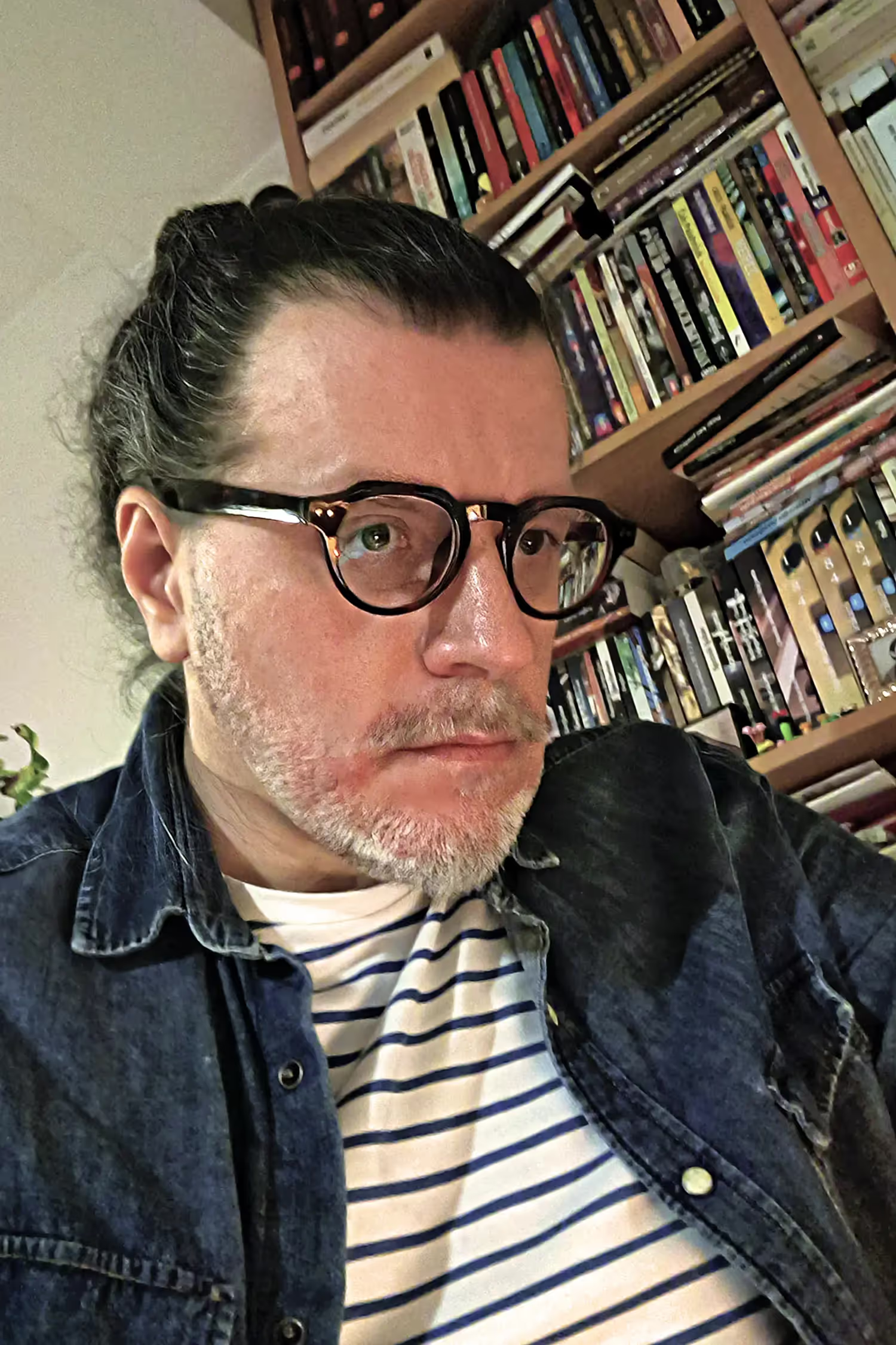
Northern Macedonia
Learn more
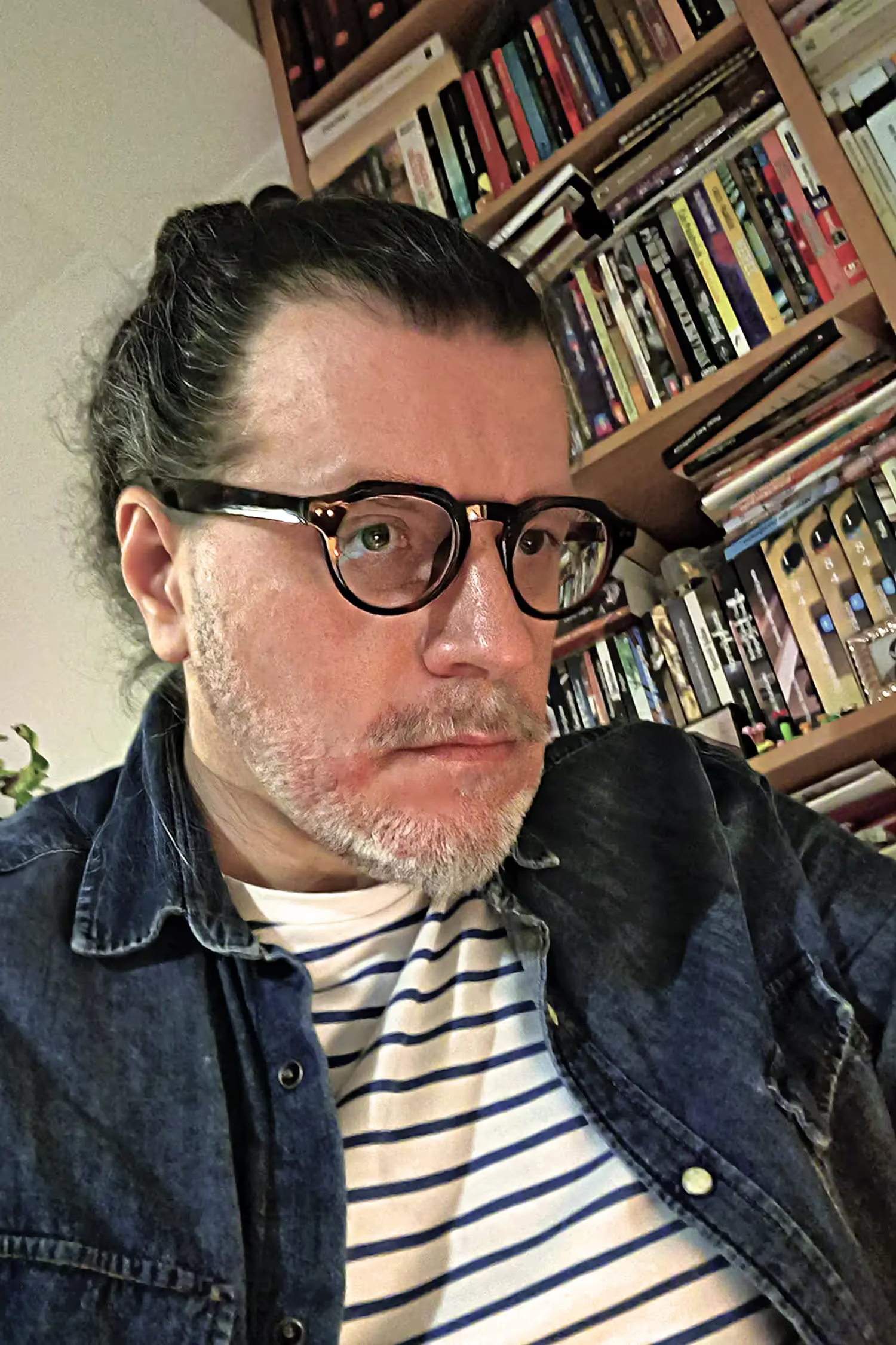
Oliver Musovik, North Macedonia
Urban Voids
Biography
Oliver Musovik was born in 1971 in Skopje. He lives and works in Skopje, North Macedonia.
Oliver Musovik’s practice explores urban ecology, resilience, and the intersections of nature and human intervention, often through photography and visual storytelling. His work has been presented in numerous institutions, including the Skopje Museum of Contemporary Art, North Macedonia (2021), +MSUM Museum of Contemporary Art Metelkova, Slovenia (2018), Fridericianum Kassel, Germany (2003), Manifesta, Germany (2002), and the Istanbul Biennial, Turkey (1999).
Residency project
The project investigates Paris’s urban voids—neglected, overlooked spaces where nature and the built environment intersect. These ambiguous zones, such as abandoned railway lines, concealed utility structures, and depopulated villages, challenge the typical narratives of urban development by showcasing ecological resilience and adaptive growth. Drawing on theories of "terrain vague" and the "Third Landscape", the project highlights the cultural and ecological significance of these unmanaged spaces, proposing them as sites of alternative possibilities. Through systematic photographic documentation, the work aims to foster a deeper appreciation for these spaces as vital, untamed elements of the urban fabric.
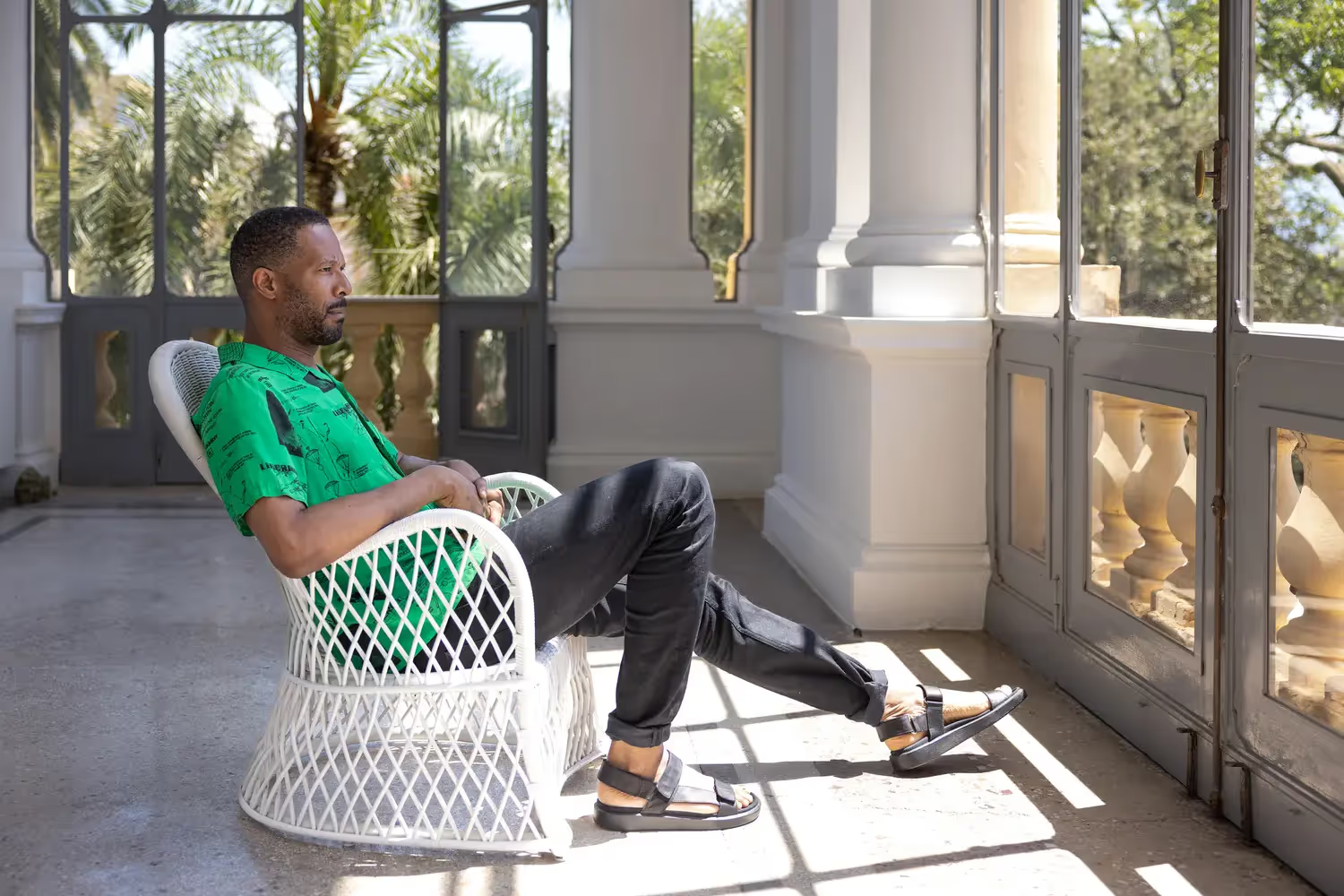
France
Learn more

Jimmy Robert, France
The thin line between care and violence
Biography
Jimmy Robert was born in 1975 in Guadeloupe. He lives and works between Paris and Berlin.
Jimmy Robert’s multidisciplinary practice encompasses performance, photography, film and collage, frequently collapsing distinctions between these mediums. Jimmy Robert’s interest in how the body can be personified through materials and the reverse is a force that integrates his longtime work with performance with his larger practice. He has choreographed performances within exhibition spaces, in relation to existing architectural structures, as well as re-staging, reframing or sampling historical performances. The frequent citation of moments from art history, film and literature is characteristic of his deeply layered narratives.
His work has been presented in numerous institutions including a mid- career survey at Nottingham Contemporary, United Kingdom (2020), which travelled to Museion Bolzano, Italy and CRAC Occitanie, France (2021). Recent solo exhibitions include Moderna Museet, Sweden (2023), Centre national de la danse, France (2023), Kunsthalle Baden-Baden, Germany (2022), Künstlerhaus Bremen, the Netherlands (2022) and Hunterian Museum and Art Gallery, Scotland (2021).
Residency project
Has the relation to the Police always been the same in France? Jimmy Robert’s project explore this subject in the way that Nietszche posits History, from a monumental as well as archival and critical point of view. In a first research phase Jimmy Robert would like to dive deeper into the subject to deal it with justesse, in order to developp a new performance. He is curious about meeting Paris-based people like Fabien Jobard – political scientist who has inquired a lot into Police violence –, journalist David Dufresne and Assa Traoré. Mediapart has also done a lot of work on the subject and he’s looking forward to digging into their archives.
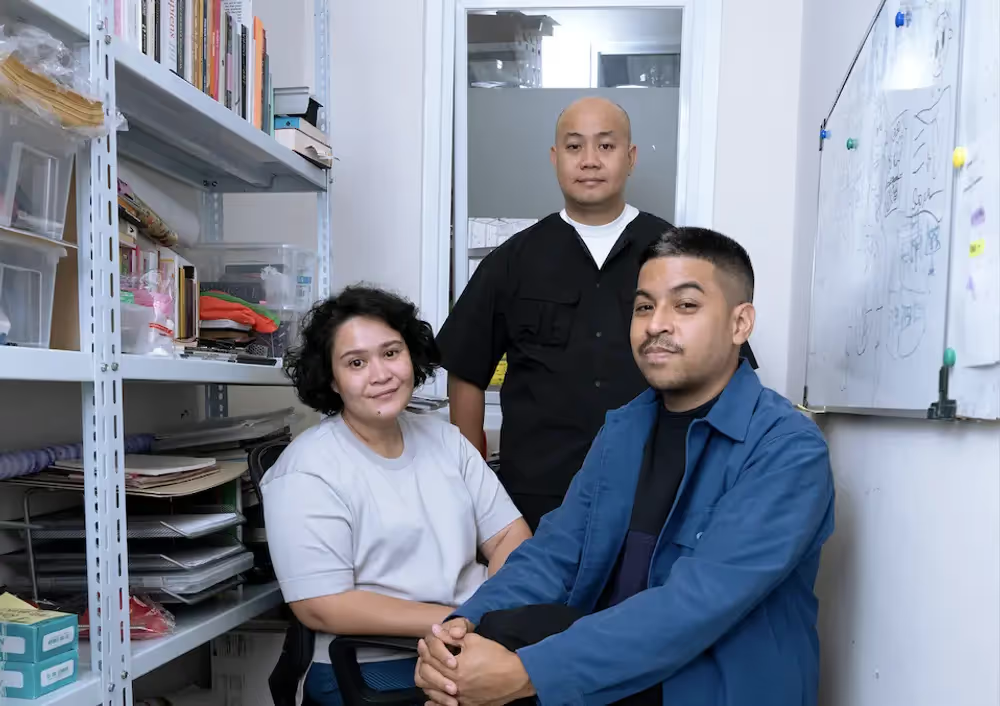
Indonesia
Learn more
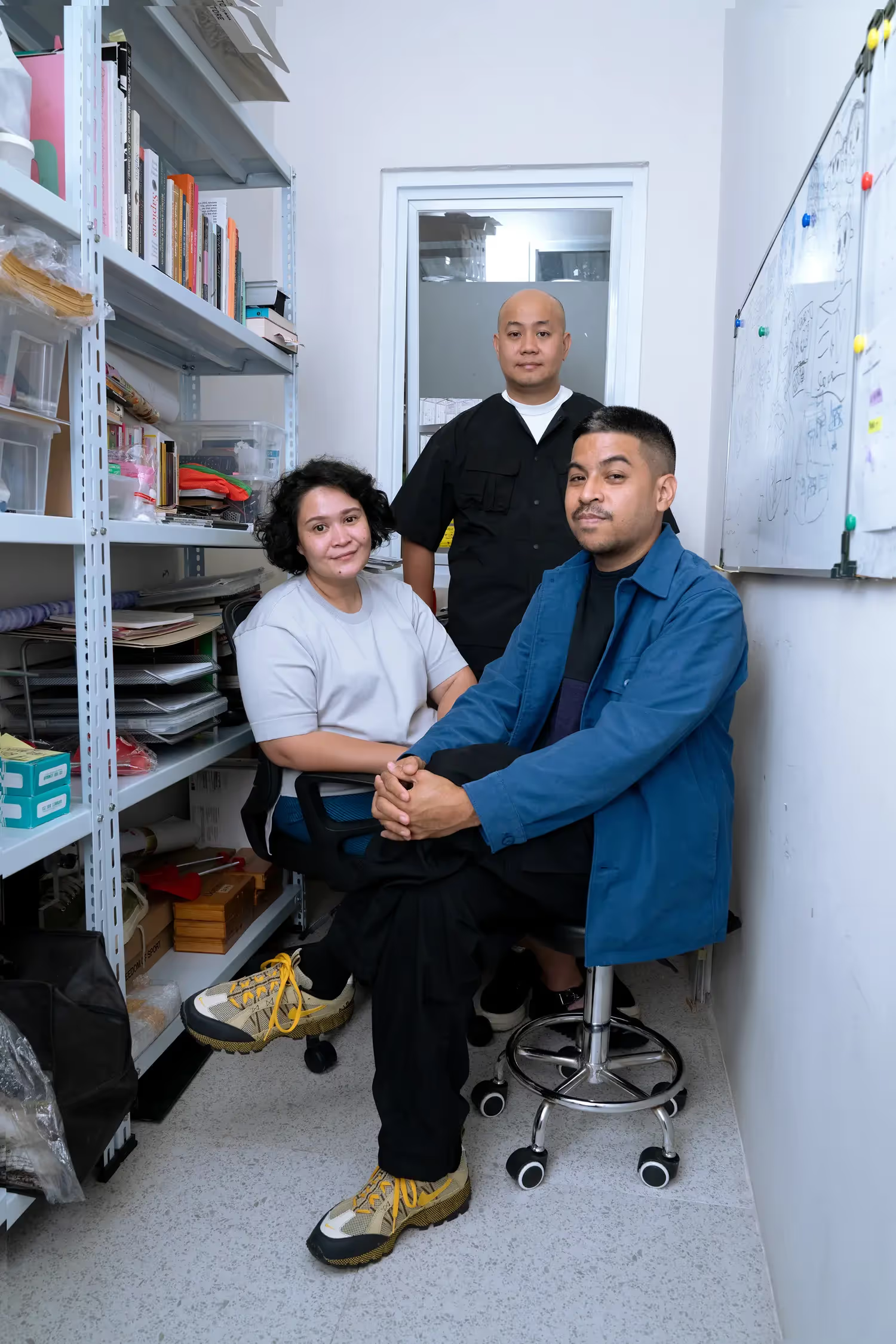
Tromarama, Indonesia
The Avatar's Currency
Biography
Tromarama is an artist collective formed in 2006 by Febie Babyrose, Herbert Hans, and Ruddy Hatumena. They live and work in Bandung and Jakarta, Indonesia. The three create works combining video, installation, and computer programming. Underpinning their artmaking is their collective interest in the influence of digital media on society’s perception of its surroundings. Their projects revolve around the expanding field of possibilities whereby individuals continuously generate new forms of value through data collection, interpretation, and use as they navigate cyberspace. Their work has been presented in numerous institutions including Julia Stoschek Foundation, Germany (2024), Videobrasil, Brazil (2023), M+, Hong Kong (2023), Kunsthal Charlottenborg Biennale, Denmark (2023), Kunstinstituut Melly, Netherlands (2023).
Residency project
“The Avatar’s Currency” explores the intersections of identity, commerce, and digital representation. It draws parallels between the opulent masquerade balls of 17th and 18th-century France and the performative nature of modern digital personas within the market economies. The project aims to examine the role of anonymity throughout history, particularly in masquerades and today's digital environments, in enabling individuals to take on different personas that either align with, challenge or take advantage of the prevailing market-oriented ideals. The project aims to generate a video showcasing a three-dimensional rendered animation, which will be developed using motion-captured dance performance movements. The work seeks to explore an alternative energy transition wherein the shift is made from physical movements to data points, serving as the fundamental basis for creating animated films.
Second session - from September 2025
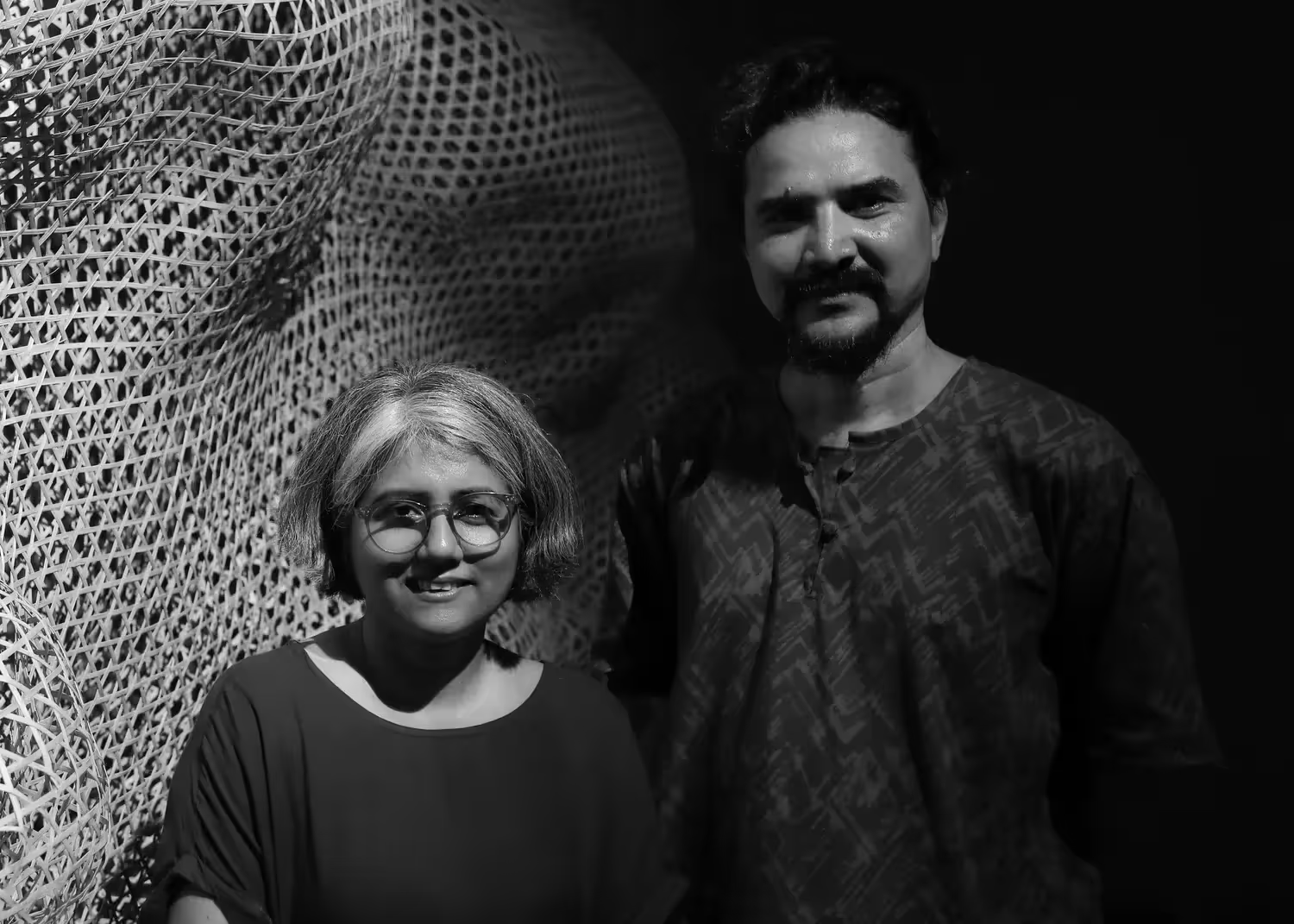
Bangladesh
Learn more

Gidree Bawlee, Bangladesh
"Imagined Land
Biography
Gidree Bawlee Foundation of Arts was founded in 2001 by Kamruzzaman Shadhin and now jointly run with Salma Jamal Moushum. They are based in Balia village, Thakurgaon, Bangladesh.
As a community-based arts collective, it engages diverse communities in creative programs and research, addressing local history, culture, and the environment. The collective thrives on collaboration, blending local traditions with global perspectives through participatory, multidisciplinary practices. Their social practice emphasizes shared connections and balance in the artistic process.
Gidree Bawlee’s projects have been featured at major venues, including the Baltic Centre for Contemporary Art, UK (2024), Kochi-Muziris Biennale, India (2022–2023), Dhaka Art Summit, Bangladesh (2020, 2023), Asia Pacific Triennial, Australia (2021), and Museo Madre, (Italy, 2021).
Residency project
“Imagined Land” explores how the movement of people across borders intersects with the transmission and transformation of cultural memory, interrogating notions of belonging and identity as fluid and contingent constructs. The project examines the ways in which practices of cultural preservation and adaptation function within the context of migration, engaging with the lived experiences of individuals as they navigate shifting social and spatial terrains. Through archival research and critical reflection, “Imagined Land” investigates the interplay between collective memory and individual narratives, considering how these elements reshape and reconstitute notions of selfhood and community in diasporic contexts.
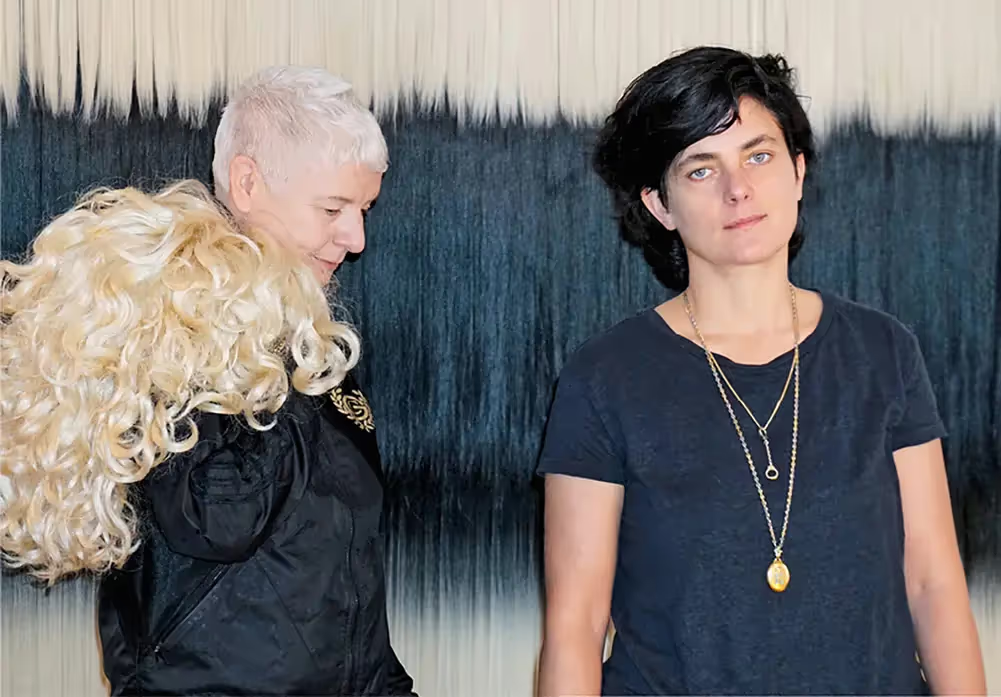
Switzerland / Germany
Learn more

Pauline Boudry & Renate Lorenz, Switzerland / Germany
A Portrait (Paris Version)
Biography
Pauline Boudry and Renate Lorenz have been working together in Berlin since 2007.
They produce installations that choreograph the tension between visibility and opacity.
Their films capture performances in front of the camera, often starting with a song, a picture, a film or a score from the near past. They upset normative historical narratives and conventions of spectatorship, as figures and actions across time are staged, layered and re-imagined. Their performers are choreographers, artists and musicians, with whom they are having a long-term conversation about the conditions of performance, the violent history of visibility, the pathologization of bodies, but also about companionship, glamour and resistance. Their sculptures and objects often refer to the potentiality of performance, using materials that connect to props, stages, costumes, microphones, wigs or dance floors.
Pauline Boudry and Renate Lorenz’s work has been presented in numerous institutions including MUAC Museum, Mexico City (2025), Philadelphia Museum of Art (2025), the 35th São Paulo Art Biennal, Brazil (2023), the Crystal Palace/ Reina Sofia Museum Madrid, Spain (2022-23), Centre Pompidou, France (2023) or the 58th Biennale di Venezia, Italy (2019).
Residency project
Pauline Boudry and Renate Lorenz consider this installation, A Portrait (2024–), as an ongoing project, which will include more and more portraits, and which might change its appearance over time. Since most of the eight performers, who are already part of the project, are based in English-speaking countries, they would like to deepen their knowledge of the French-speaking scene. They are planning to do research about the history and presence of performance in Paris / France, by meeting with performers, looking at/listening to performances, underground, and music events, and by searching for films, photographs and other documents in archives. They hope to find new collaborators for further developing the project.
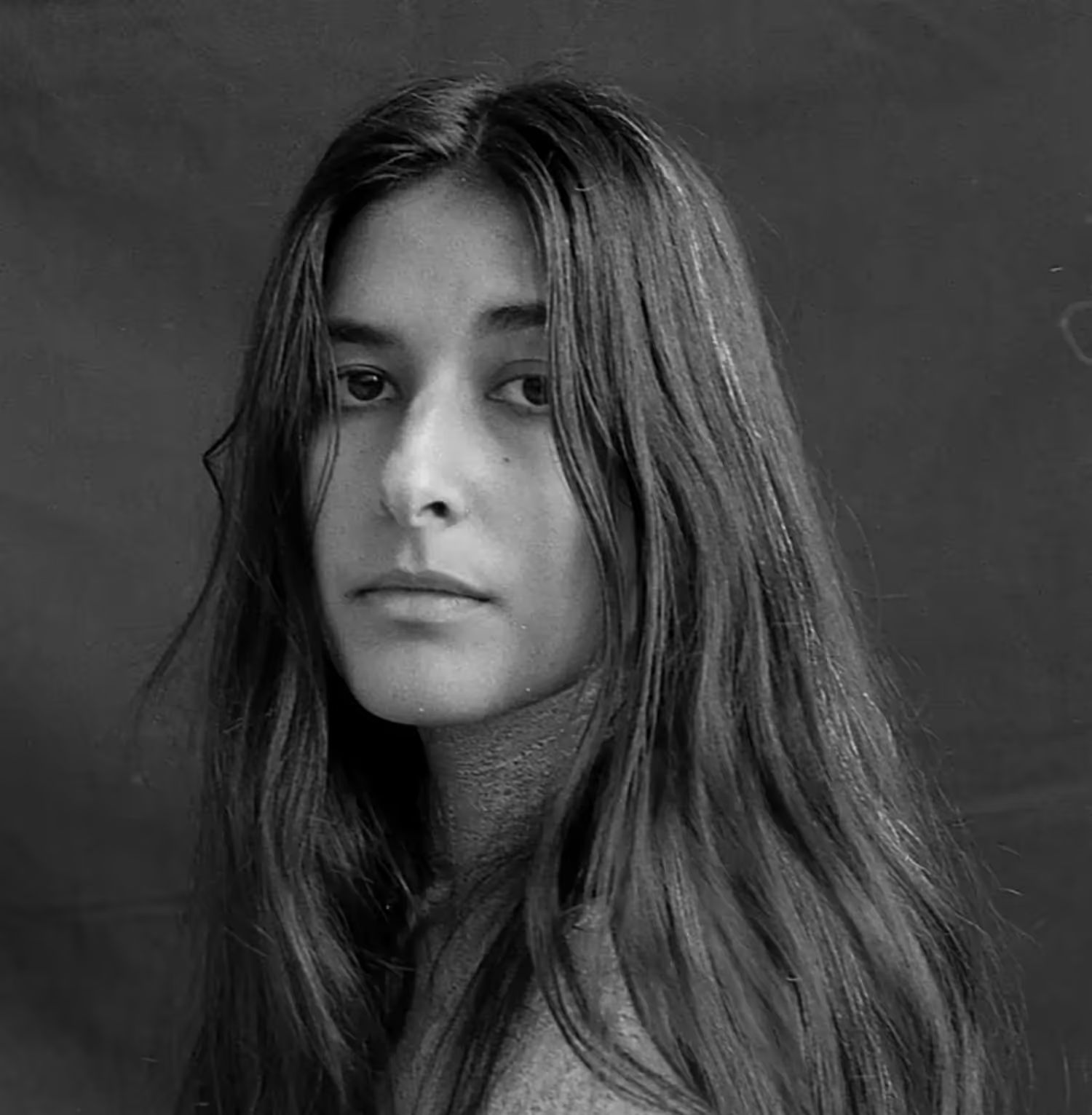
Saudi Arabia
Learn more

Sarah Brahim, Saudi Arabia
The Pedestrians
Biography
Sarah Brahim was born in Riyadh, Saudi Arabia. She lives and works between the arab world, Europe and United States.
Sarah Brahim is a visual and performance artist working across many mediums to present work rooted in experiences of the body. She trained as a professional performer, teacher, and choreographer at San Francisco Conservatory of Dance, and received a BFA (Hons) from London Contemporary Dance School. Her research-based practice began while studying medicine at university, as she continued practicing and performing. The pursuit to understand the body through every possible lens-- biological, physiological, experiential, and more-- led her to receive her BS from Oregon Health and Science University, with a focus on medical anthropology, naturopathic medicine, and public health.
Sarah Brahim’s work has been presented in numerous institutions, including 16th Lyon Biennial, France (2022), Louvre Abu Dhabi, Emirates, (2023), Bally Foundation, Switzerland (2023), Locarno Film Festival, Switzerland (2024) or Museum of Moving Images, USA (2025).
Residency project
“The Pedestrians” is a research project which extends between film, live performance, text, and sound. Currently working on live performance, and multi part video series building on the topic of movement in the articulated and pedestrian body as spaces of transformation. This project will be built through movement studio research and filmed interviews/observation, text and written research, archives, and photography.
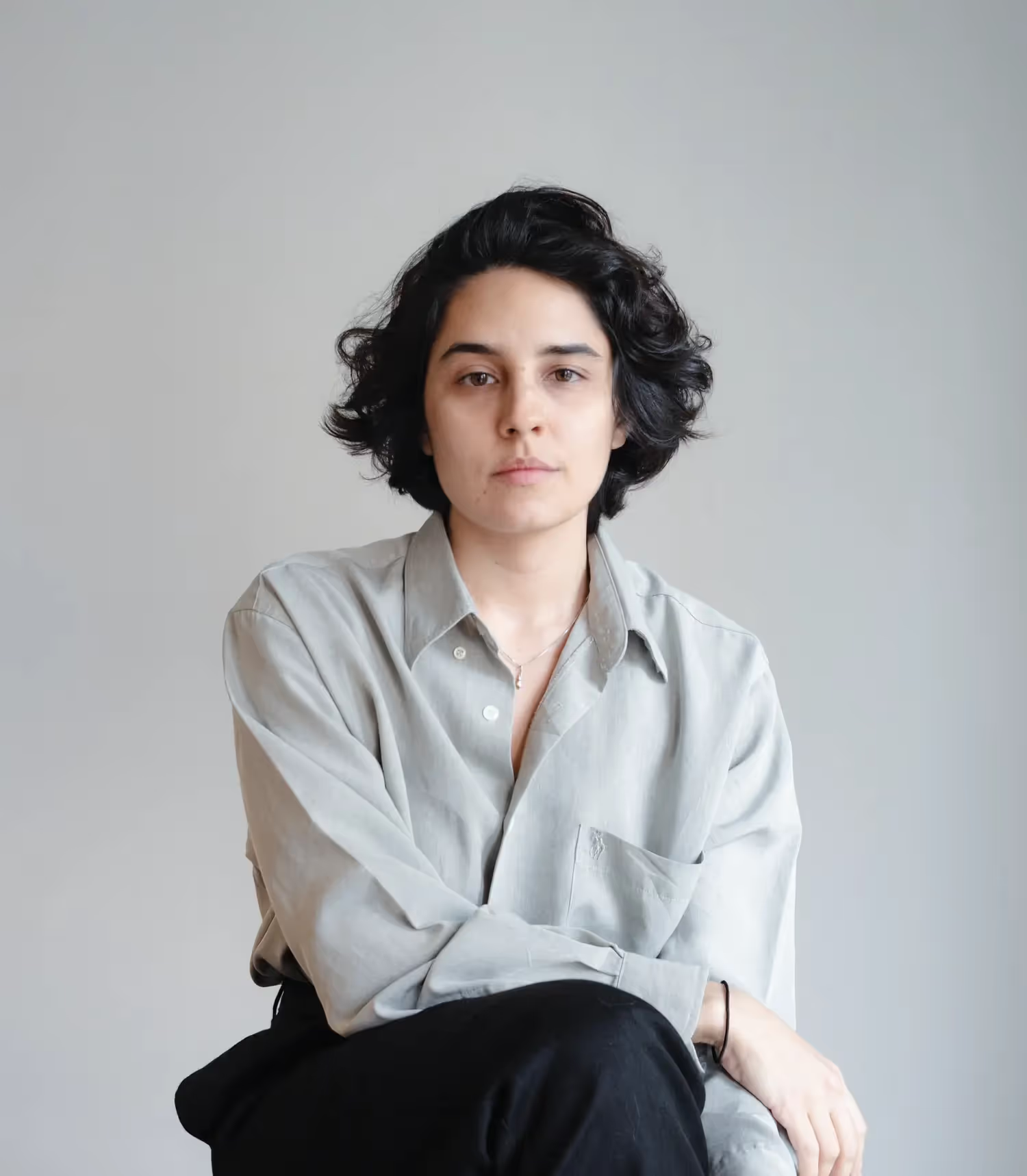
Brazil
Learn more

Manoela Cezar, Brazil
La Roquette Square from autumn to winter
Biography
Manoela Cezar was born in 1995 in Brazil. She lives and works in São Paulo.
Manoela Cezar develops a multidisciplinary practice at the intersection of cinema and visual arts. An experienced film-editor, her work assembles different sensory elements to create new ways of experiencing histories. She is currently developing a large-scale installation supported by the Expanded Cinema grant, Spcine / Lei Paulo Gustavo, in Brazil.
Manoela Cezar’s work has been presented in numerous institutions including Diário Contemporâneo de Fotografia, Brazil (2024), Museu de Arte de Ribeirão Preto, Brazil (2024), Auroras, Brazil (2022), Museu de Arte Brasileira - MAB/FAAP, Brazil (2019).
Residency project
The project proposes the production of a short film set in La Roquette Square. Built on the site of a former prison, the square today is a public space surrounded by schools, family residences, and the Père Lachaise Cemetery. At its center stands a large playground tower, which echoes the architecture of the prison’s former watchtower. Through seasonal observation—from autumn to winter—the film will document the daily life of the square and how its users interact with the structures and pathways of the space. The project seeks to explore the layered relationship between architecture, memory, and public use, revealing how the site’s carceral past continues to resonate through its current form and function. By focusing on gestures, rhythms, and spatial dynamics, the film aims to uncover the traces of history embedded in the landscape, inviting reflection on how urban spaces carry and conceal their past.
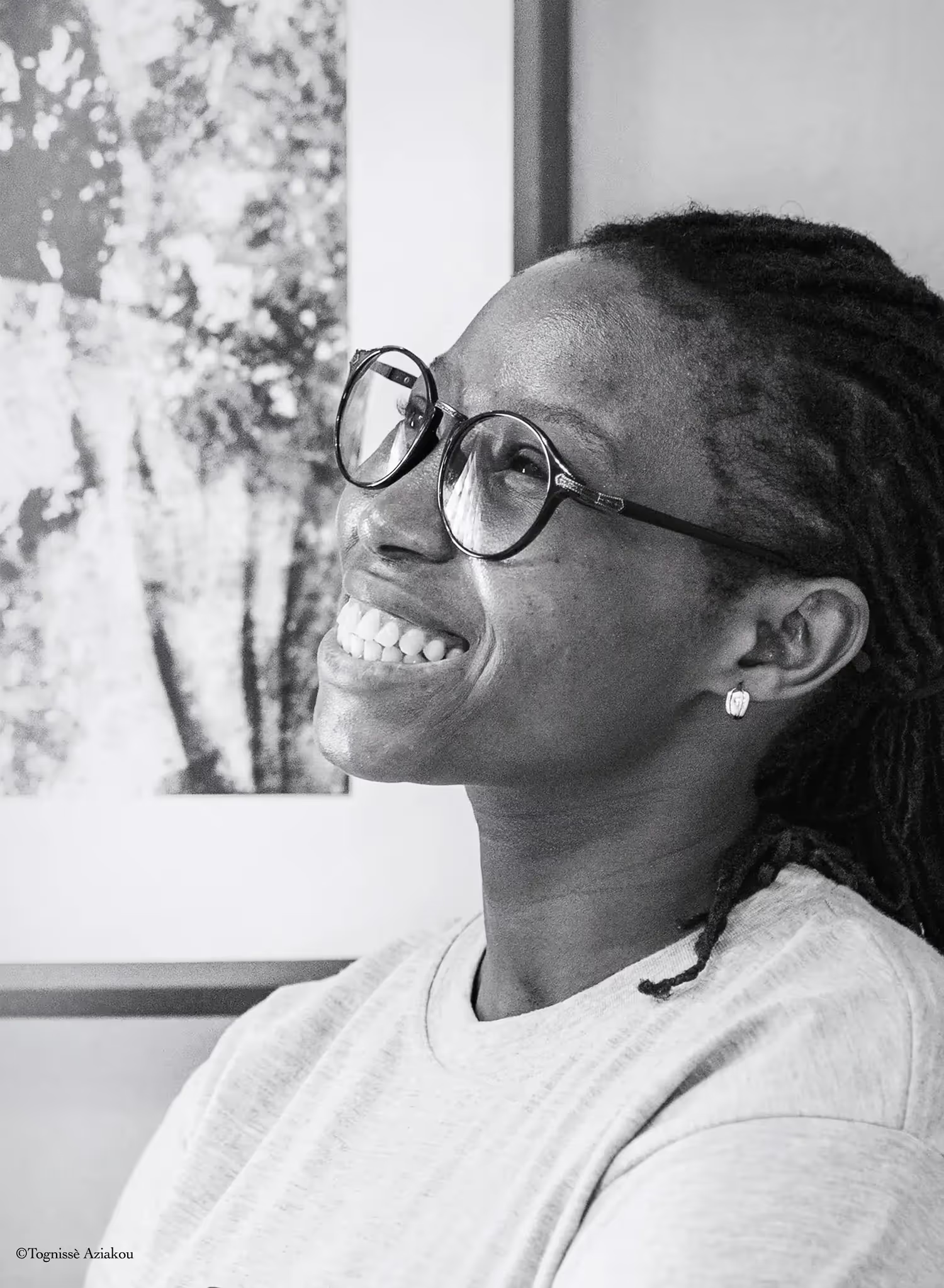
Benin
Learn more

Sènami Donoumassou, Benin
Les bouts de bois de Dieu
Biography
Sènami Donoumassoum was born in 1991 in Porto-Novo, Benin. She lives and works in Cotonou.
Visual artist, Sènami Donoumassou explores notions of identity, heritage and history. She experiments, through her creations, oscillating between photograms, protean installations, video works and drawings, the scope of the technical and poetic potentialities of light. She is the winner of the James Barnor prize 2022.
The work of Sènami Donoumassou has been presented in numerous institutions including La Fondation H, France (2024), Biennale de Dakar, Senegal (2024), SAVVY Contemporary, Germany (2022), Le Centre, Benin (2022), or the Institut Français, Benin (2019).
Residency project
This project questions the deep relationship that human societies have with nature, through myths, rituals, beliefs, and spiritualities. By proposing a dialogue between the traditions of Benin, especially the Vodùn, and the ancient European pagan cults, she will try to grasp the contours of a transversal collective memory. In the same movement, she will explore the marginalization of these links, once intrinsically linked, in the face of a global capitalist system. In three axes — documentary research, exploration of the body as a vector of memory, and plastic work around soot — she proposes to reconnect with a sensitive and spiritual ecology, reintegrating nature as a constituent part of the human being and not simply a resource. Thought as a diptych between Benin and France, it will reflect on the body as mediator of this memory.
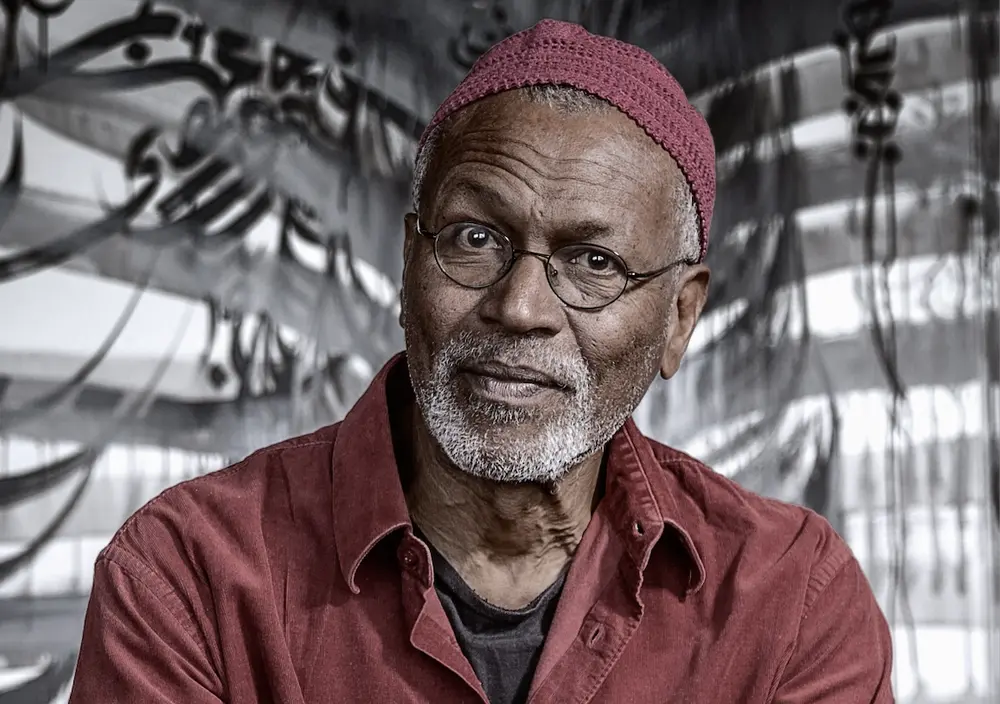
Sudan
Learn more
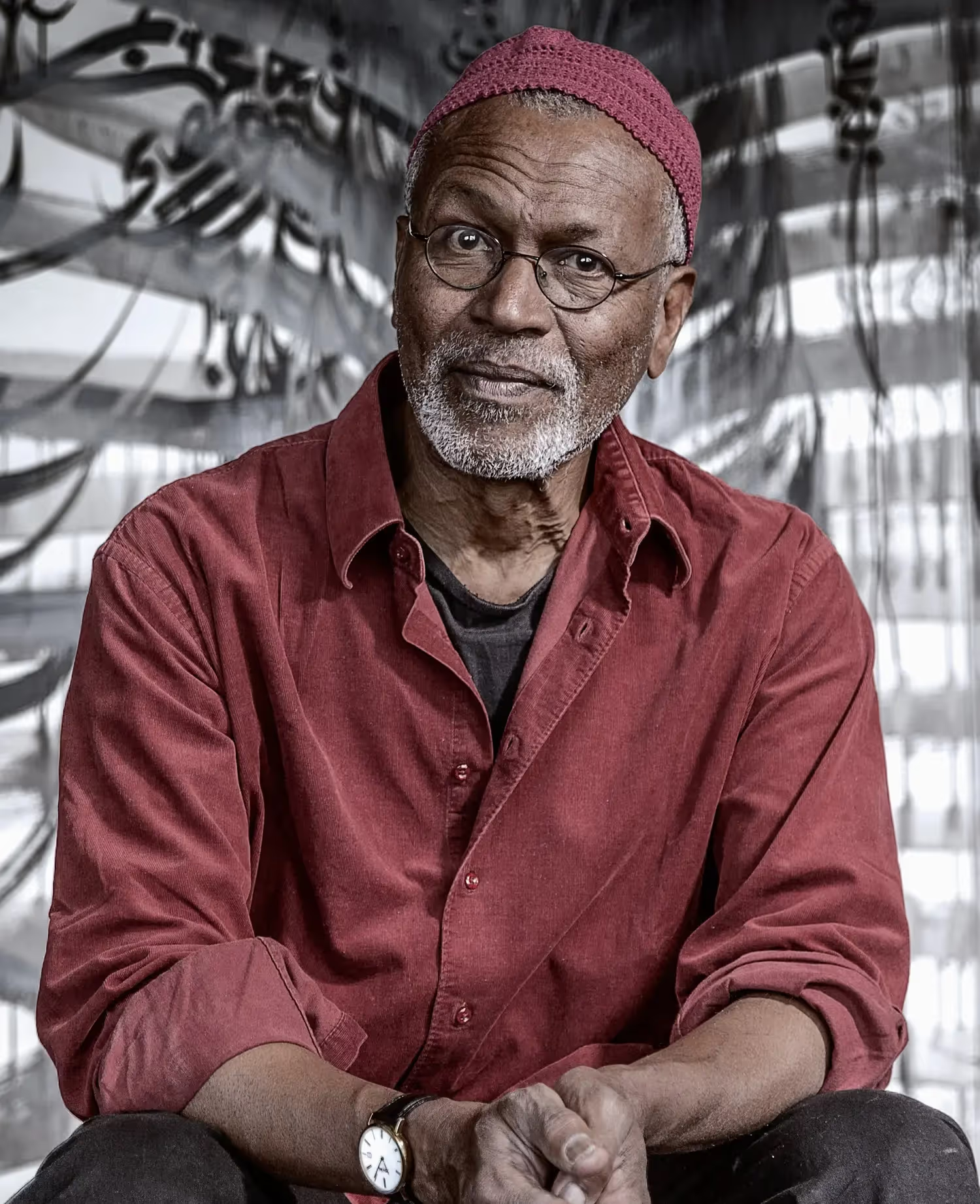
Hassan Musa, Sudan
LES FANTÔMES D’AFRIQUE DANS LES MUSÉES D’EUROPE: De la représentation de l’Afrique dans les musées Européens
Biography
Hassan Musa was born in 1951 in En-Nahud, Sudan. He lives and works in Domessargues, France.
Hassan Musa has developed a polymorphous artistic practice that includes painting, calligraphy, textiles and performance, and explores through his work themes such as identity, colonial history and global power dynamics.
Hassan Musa’s work has been presented in numerous institutions, including Centre Pompidou, France (2025,2004), MAXXI, Italy (2018), Dakar Biennale, Senegal (2018), Smithsonian, USA (2014), Venice Biennale, Italy (1997).
Residency project
Taking advantage of the opportunity offered by this residency, Hassan Musa intends to delve into the collections of Parisian museums to begin a reflection on the question of the conservation and exhibition of “African Art” objects in European museums.
The aim is to study various proposals and possibilities, such as “integrating” these objects into contemporary works of art. This, of course, while questioning the legitimacy of such proposals. Indeed, who is legitimate in deciding the fate of these objects? Curators? Contemporary “African” artists? The African people and their representatives?
By immersing himself in the Paris museums of French colonial history, Hassan Musa hopes to pursue his research into the status of African objects in European museums. On the other hand, he believes that this direct confrontation with these “objects” will nourish his reflection and artistic creation throughout his residency.

United Kingdom
Learn more

Roy Claire Potter, United Kingdom
Comms Fail
Biography
Roy Claire Potter was born in 1986 in Merseyside, England. They live and work in Todmorden, Yorkshire. Roy Claire Potter is an artist who performs, publishes and exhibits.
In 2026 they will present a new major live work with Liverpool Biennial addressing the resonant associations of autistic knowledge and radio communications.
Roy Claire Potter's work has been presented with numerous institutions and collaborators including artist publisher Book Works, United Kingdom (2024), BEK (Bergen Centre for Electronic Arts), Norway (2023-2024), A plus A gallery, Italy (2022), Tate Britain, United Kingdom (2020) and BBC Radio 3, United Kingdom (2020).
Residency project
What if satellite connectivity failed? Amateur or ‘HAM’ radio could offer a resilient alternative, yet even this bends to celestial forces.
“Comms Fail” is a multimedia installation of large scale drawings for set design with a live scripted performance that imagines a future of communications failure and parallels it with resonant associations between autistic knowledge and amateur radio communications technology.
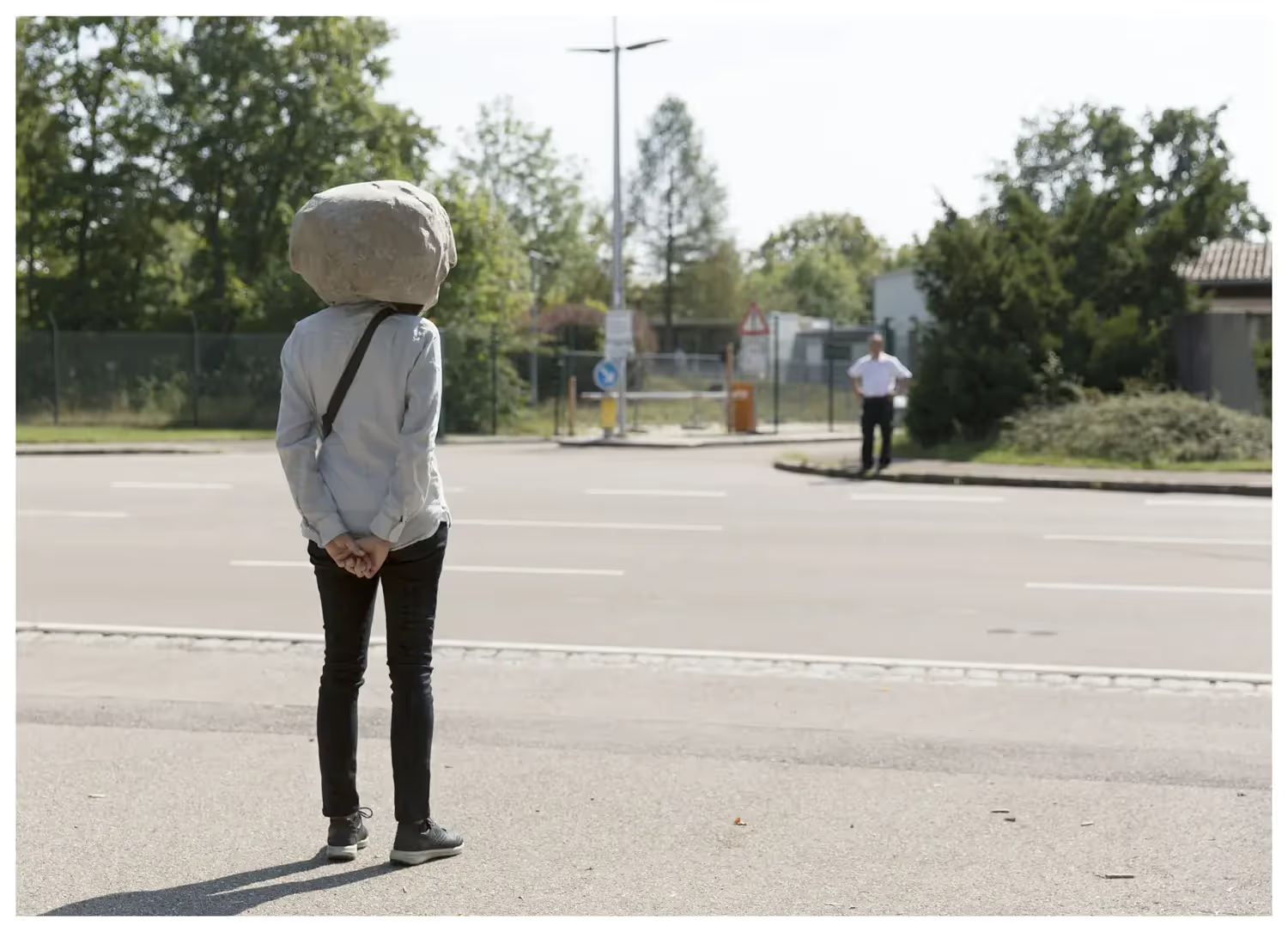


Natascha Sadr Haghighian
"Listening to Pantin"
Biography
Natascha Sadr Haghighian was born in 1987 or 1968 or 1976 in Germany or Iran or Australia. She lives and works in Berlin, Kassel, Gütersloh, Santa Monica or the Cotswolds.
Natascha Sadr Haghighian develops installations, video and audio works, as well as performative interventions to evoke and resound diasporic infrastructures and conditions of collectivity. Her practice is deeply invested in collaboration, sensual play and listening as modes of unraveling liberal individuality and the sociogenic accords of cognition. Recently she has been interested in epistemic disobedience as a mode of unlearning coloniality. She co-founded various collectives and coalitions, among them the institute for incongruous translation together with Ashkan Sepahvand, and kaf together with Shahab Fotouhi and Tirdad Zolghadr. She was part of the Society of Friends of Halit and the Tribunal "Unraveling the NSU Complex".
Natascha Sadr Haghighian’s work has been presented in numerous institutions including Taipei Fine Arts Museum, Taiwan (2023), Beirut Art Center, Lebanon (2022), Haus der Kulturen der Welt, Germany (2021) or the Venice Biennale, Italy (2019).
Residency project
‘Listening to Pantin’ (working title) is an audio project, that aims to engage in listening, recording, tuning resonating with the struggles of sans papiers living rough in camps on the outskirts of Paris. Following the work of solidarity groups like Pantin Solidaire she wants to find tunes of solidarity, songs of courage and passage, chants of sorrow and protest that people dwelling in the camps know and chant. She plans to learn songs from members of the camp community, record them, resound them. Sung together these tunes would become the basis for a soundscape that will resonate from the walls of the city. ‘Listening to Pantin’ can have multiple outcomes. She is aiming at developing a sound installation, but she is also thinking of audio walks and formats that become sonic deposits for use in protests and gatherings.
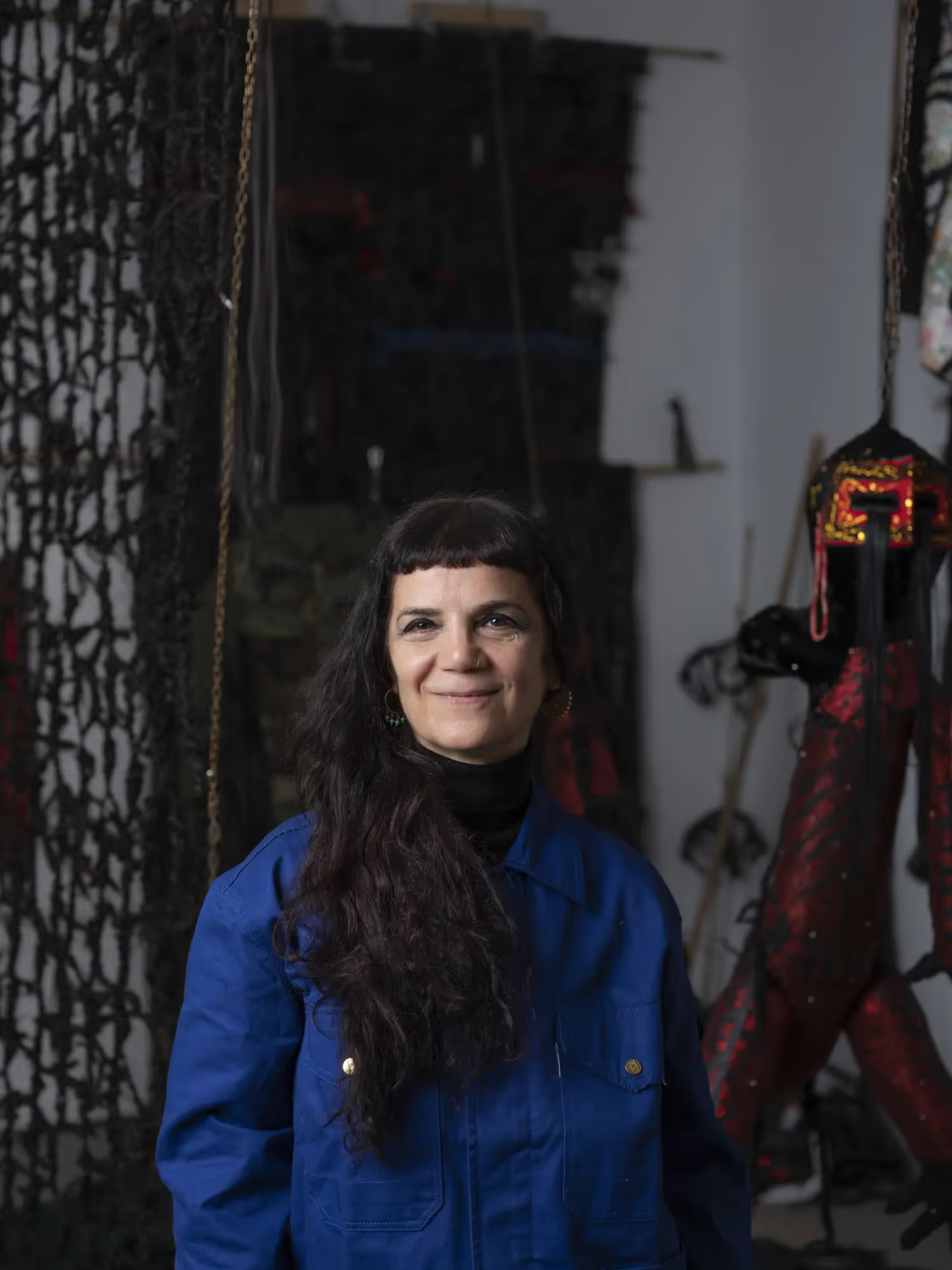
Iran
Learn more

Farkhondeh Shahroudi, Iran
Histoires à travers le rideau / stories through the curtain
Biography
Farkhondeh Shahroudi was born in 1962 in Tehran, Iran. She lives and works in Berlin, Germany.
She is a poet and visual artist whose interdisciplinary practice spans automatic writing, drawing, sculpture, textile, and performance. Her works are conceived as three-dimensional poems, using colonial materials, hand-stitched fabrics, and carpets. Her poetic and political approach explores migration, memory, and transculturality. She was awarded the the Hannah Höch Förderpreis and the Exile Visual Art Award.
Farkhondeh Shahroudi’s work has been presented in numerous institutions including Poesiefestival, Germany (2025), Goethe-Institut New York, USA (2024), Staatliche Museen zu Berlin, Germany (2022), Social Art Actions, Germany (2022) and Sonsbeek, Netherlands (2021).
Residency project
A curtain that tells stories, an evolving surface where text and material merge into a polyphonic work, a performative poetics of matter. Inspired by traditional Iranian storytelling, the curtain becomes image, voice, and body. Farkhondeh Shahroudi’s figures jump from the past into the present, the boundary between material and body dissolves. Untold stories are spoken, woven into the curtain, forming a living narrative. The surface becomes language, space becomes memory voice and silence, matter, image, and text. Networks emerge between times and places, the political and the intimate, the social and the solitary. A poem that stands in space as a body.
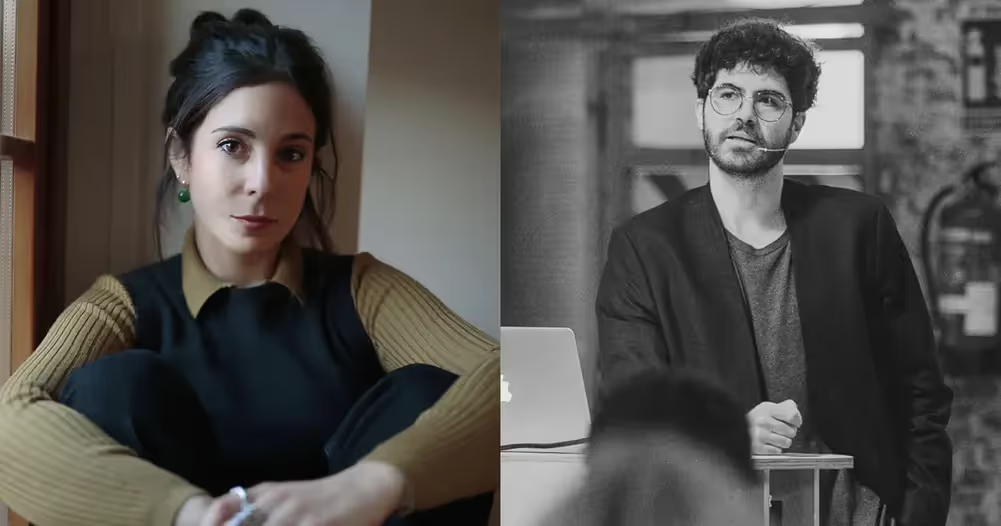
Spain
Learn more

The Possibility, Spain
Biography
Gala Hernández López was born in 1993 in Spain. She lives and works in Berlin.
Her interdisciplinary practice merges filmmaking with video installations, performances, and publications. She explores how computational capitalism reshapes subjectivity, examining virtual imaginaries, techno-utopian narratives, and the fantasies of control they generate. Grounded in research, her work blends materialist critique with poetry and intimacy. Gala Hernández López’s work has been presented in numerous institutions and festivals, including Cannes Film Festival (Quinzaine des Cinéastes), France (2025), Cinéma du Réel, France (2024), Palais de Tokyo, France (2024), Berlinale, Germany (2023) or DOK Leipzig, Germany (2022).
Eduardo Castillo-Vinuesa was born in 1989 in Granada, Spain. He lives and works in Madrid.
He is an anti-disciplinary architect, curator, and educator working across academia and the cultural sector. His practice integrates architecture, institutional design, filmmaking, and curatorial strategies to address contemporary spatial challenges. He is Associate Professor at ETSAM-UPM and active in research networks like ProLAB and LINA. He has curated the Spanish Pavilion at the Venice Biennale (2023), directed Arquitectura COAM magazine, and led Medialab Matadero (2021–2024). His projects, such as Skynomics and Foodscapes, explore the political and ecological dimensions of urbanization and planetary transformation.
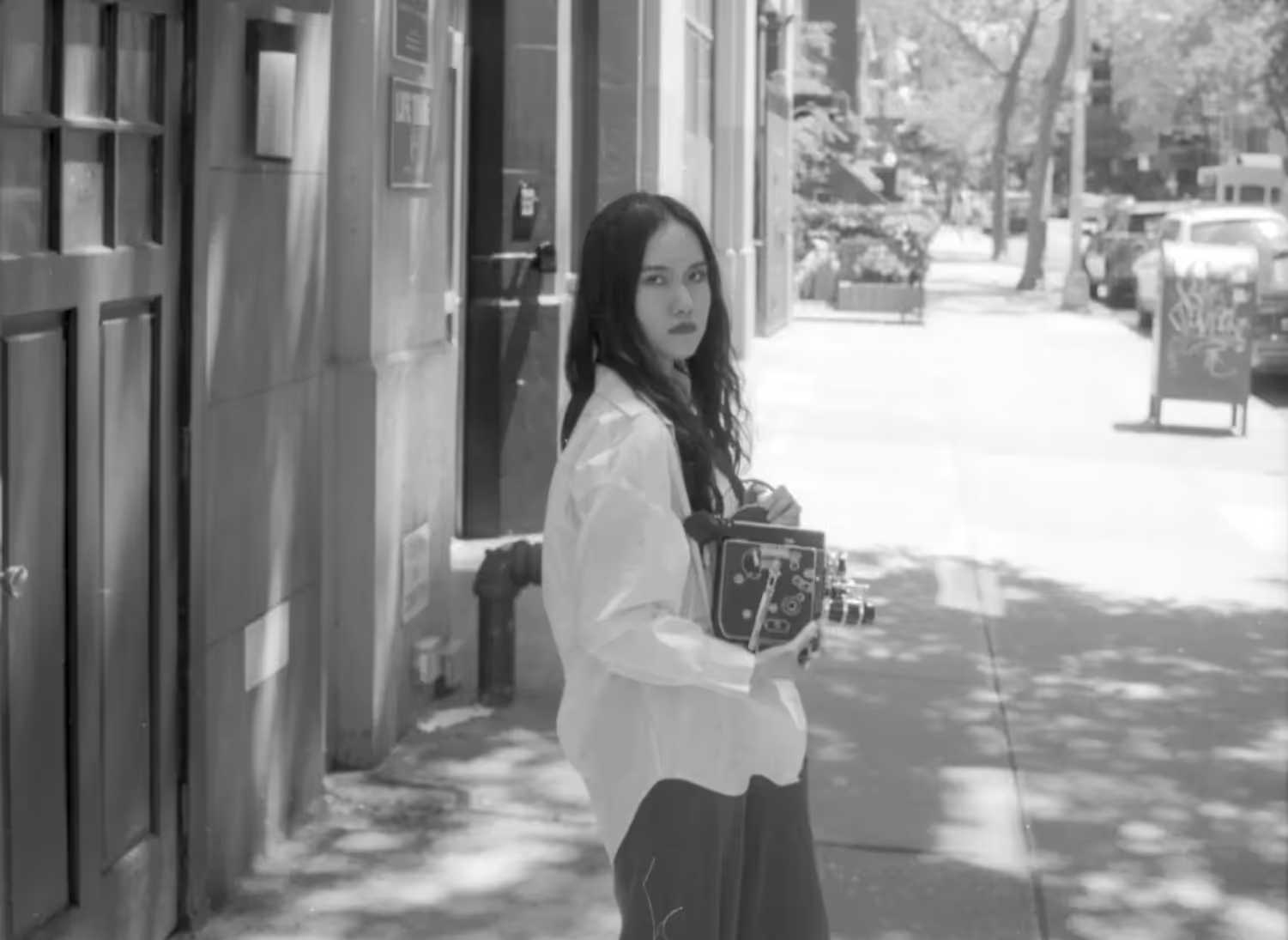
China
Learn more
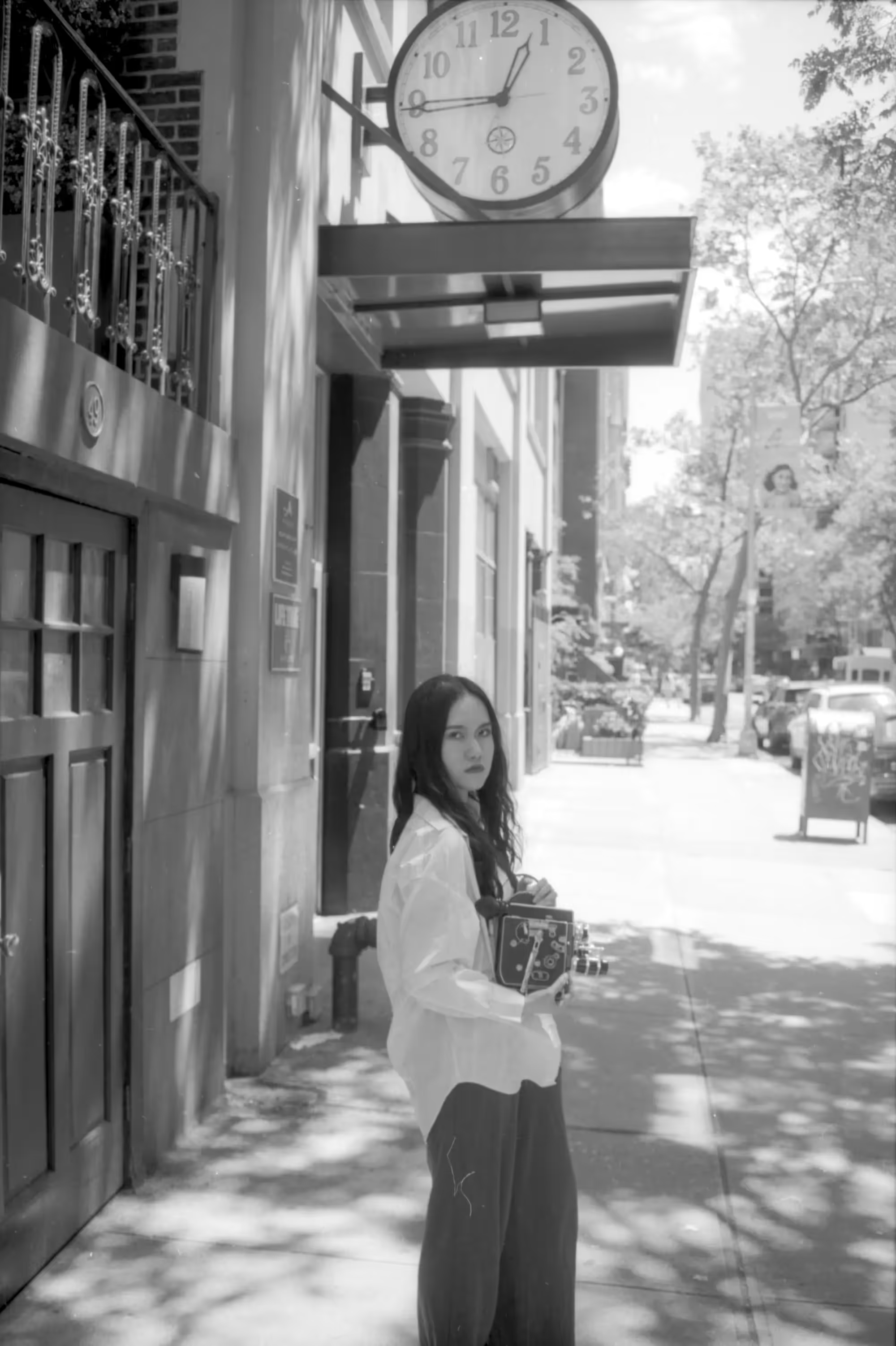
Zhiqian Wang, China
A Shadow Moves Through the City
Biography
Zhiqian Wang was born in 1999, China. She lives and works in New York City.
Her works range from interventions, analog film to work on paper or silk. She constructs experimental systems that test the boundaries of meanings through material process, concept, and interaction. Her research interests include the philosophy of science, language, and metaphysics.
Zhiqian Wang’s work has been presented in numerous institutions including The Jewish Museum, USA (2023), Contemporary Arts Center, USA (2023), and performs at MoMA PS1, USA (2023), Performa Biennial, USA (2023), Art, Culture, and Technology at MIT, USA (2018).
Residency project
“A Shadow Moves Through the City” is a project of an experimental essay film shot on 16mm, which merges fiction, philosophical research, and documentary. The film draws on the life and ideas of philosopher and logician Jean Cavaillès, a member of the French Resistance, who was portrayed as Saint Luc Jardie in Jean-Pierre Melville’s “Army of Shadows”. In reality, Cavaillès was betrayed, imprisoned, and executed by the Gestapo on February 17, 1944. While in prison, he wrote “On Logic and the Theory of Science”, where he critiques the idea that knowledge and truth are grounded in individual consciousness or a fixed origin. He emphasizes that mathematical and scientific truths emerge through historical processes, shaped by action and contingency. For him, knowledge is dynamic, evolving through continuous engagement with external realities, much like the progression of historical events. Shot at sites related to Cavaillès’ life in Paris, the film investigates the foundations of science and mathematics and their equivocal relationship to reality and history.
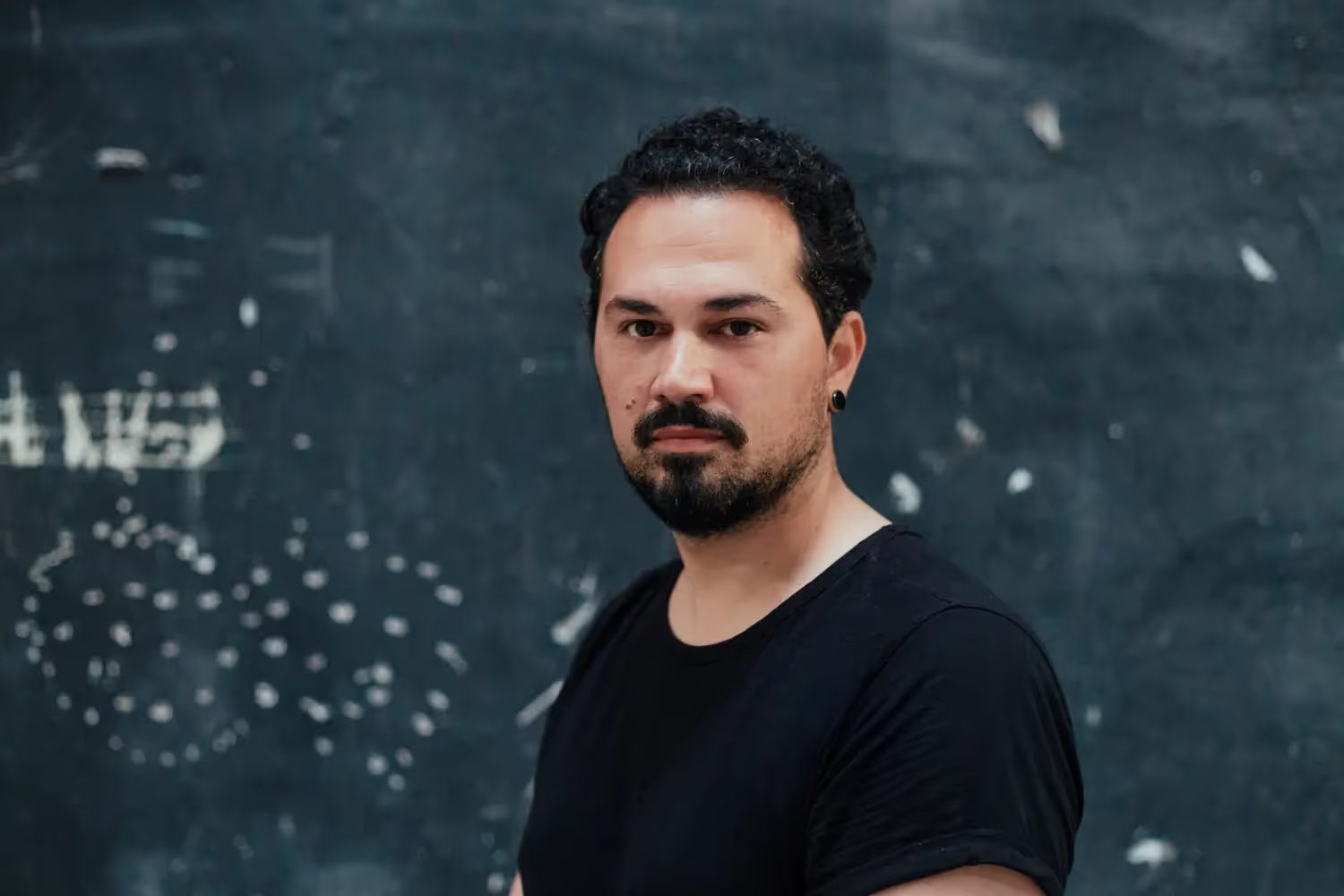
Albania
Learn more

Driant Zeneli, Albania
The Valley of the Uncanny Lovers.
Biography
Driant Zeneli was born in 1983 in Shkoder, Albania. He lives and works between Tirana and Turin.
In his films, and video sculpture installations, the representation of power, science, mythology, and fairy tales are interlaced with individual narratives, giving rise to utopias that subvert the natural order of things. The creative act feeds on unplanned encounters and the relationship with the architectural heritage of places. He represented Albanian Pavilion at the 58th Venice Biennale, 2019.
Driant Zeneli’s work has been presented in numerous institutions, including EMST, National Museum of Contemporary Art, Greece (2025), Sharjah Biennial 16, United Arab Emirates (2025), Manifesta Biennial 14, Kosovo (2022), 39th EVA International Biennial, Ireland (2020), Centre Pompidou, France (2016).
Residency project
Sometimes fairy tales present more opportunities for creating uncanny feelings than there are in real life. How to create a fairy tale about the Uncanny Lovers?
“The Valley of the Uncanny Lovers” was born with the need to investigate the everyday space in 1970s/80s modernist buildings and the relation between artificial and what we call natural. The intention is to analyze the relationship that people establish with the architecture and environment from an emotional point of view, for example falling in love as a feeling towards the other, towards a technological device or towards a robot guided by artificial intelligence.
The first chapter was developed in Belgrad, Serbia the second one is ongoing in Duisburg,Germany and the last would be in The City of the Stars”, Givors, France.
Find out more about our residences
The 2025 Selection Committee

Art critic and director of the Museo Tamayo of Contemporary Art
Learn more

Magali Arriola is director of the Tamayo Museum in Mexico City. Between 2016 and 2019, she was chief curator for KADIST in Latin America, and curator of the Mexican Pavilion for the 58th Venice Biennale(Pablo Vargas Lugo, Acts of God, 2019). Between 2011 and 2014 she was chief curator of the Jumex Museum, and chief curator of the Tamayo Museum between 2009 and 2011. Arriola has contributed to numerous books and catalogs, as well as publications such as Art Forum, Curare, Frieze, Mousse, Manifesta Journal, and The Exhibitionist.
Photo credit: Pedro Luján. Courtesy Revista Capitel.
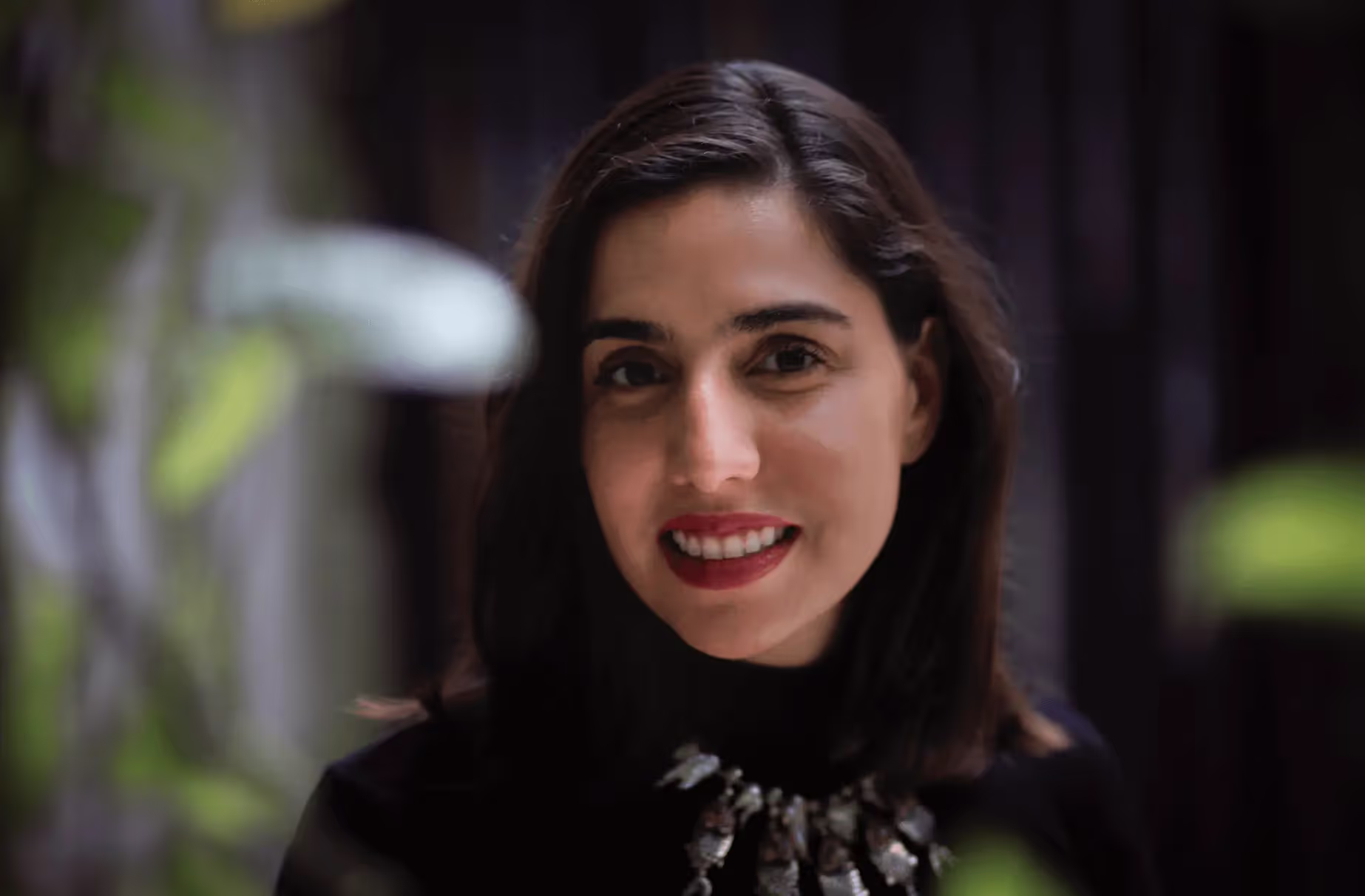
Artistic Director of the Samdani Art Foundation and Chief Curator of the Dhaka Art Summit
Learn more

Diana Campbell Betancourt is an American curator who has been active in South and Southeast Asia since 2010, mainly in India, Bangladesh and the Philippines. She is committed to the globalization of the art world, and takes a long-term, multi-faceted approach that addresses the concerns of under-represented territories and artists, as well as those of more established artists, in numerous forums.
Since 2013, she has been artistic director and founder of the Samdani Art Foundation, based in Dhaka, Bangladesh, and chief curator of the Dhaka Art Summit, whose critically acclaimed 2014, 2016, 2018 and 2020 editions she has directed. She has established the Dhaka Art Summit as one of the leading research and exhibition structures dedicated to art in South Asia, bringing together artists, architects, curators and writers from across South Asia through a primarily commission-based model. Alongside her activities in Bangladesh from 2016 to 2018, Diana Campbell Betancourt was also the artistic director and founder of Bellas Artes Projects in the Philippines, a non-profit international residency and exhibition programme based in Manila and Bataan.
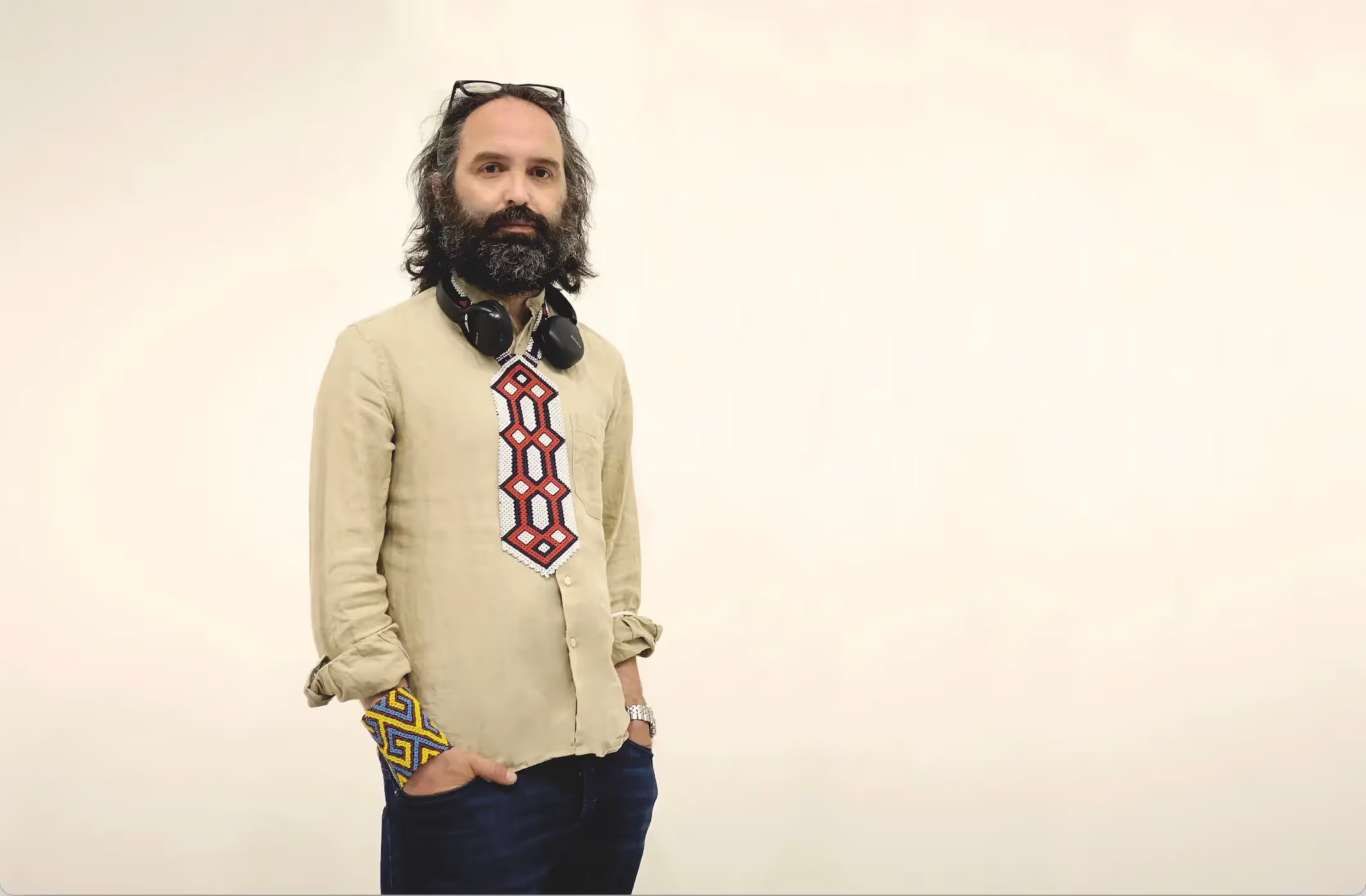
Philosopher and lecturer at EHESS
Learn more

Emanuele Coccia teaches at the EHESS in Paris. He is the author of La Vie sensible (2010), La Vie des Plantes (2018), Métamorphoses (2021) and Philosophie de la maison. L'espace domestique et le bonheur (2023). His animated videos include Quercus (2019, with Formafantasma), Heaven in Matter (2021, with Faye Formisano) and Portal of Mysteries (2022, with Dotdotdot). He participates in several exhibitions as an advisor. He is currently co-authoring a book on the relationship between fashion and philosophy with Alessandro Michele, Creative Director of Gucci.
Photo credit: Frank Perrin.
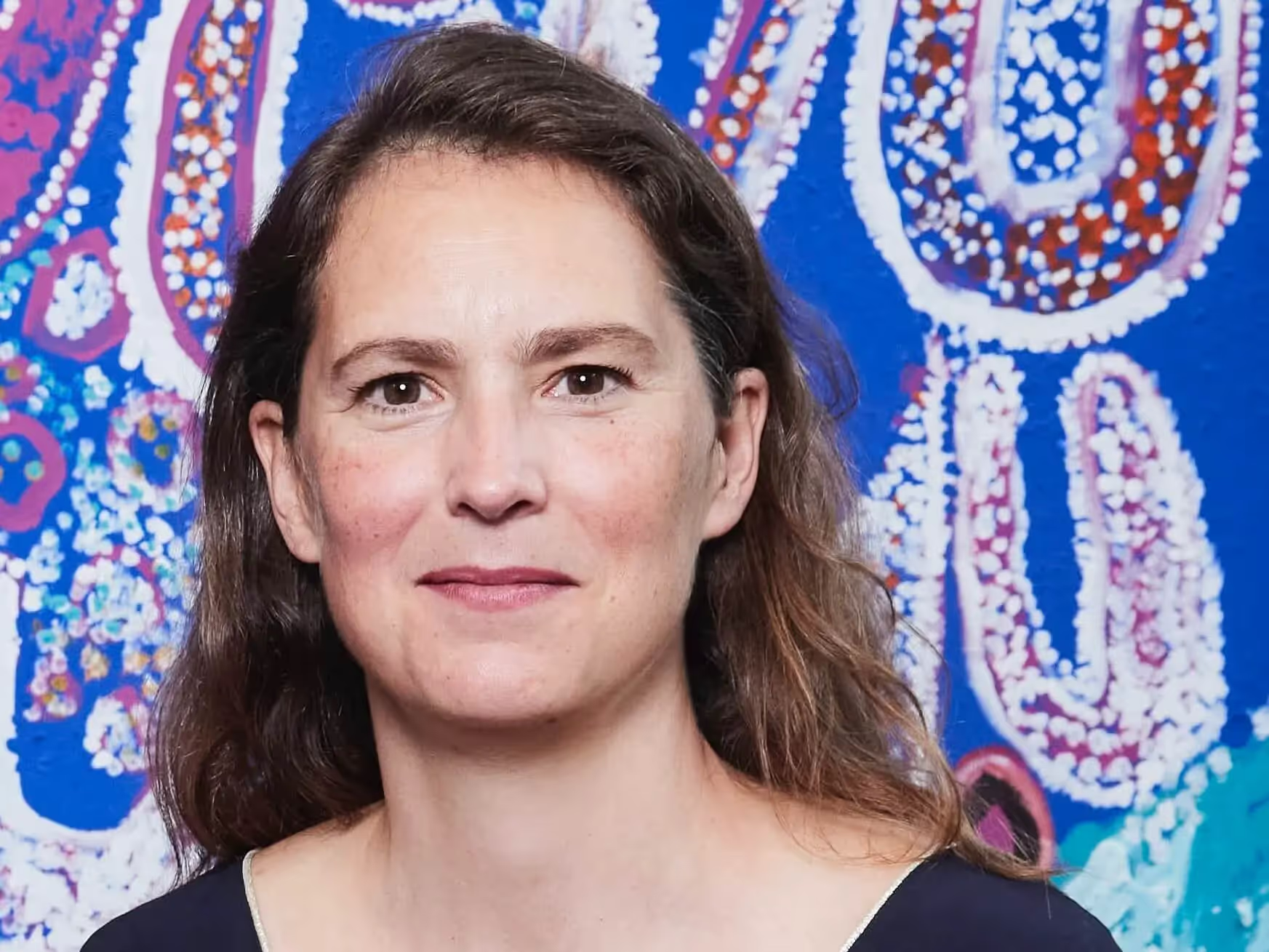
Deputy Artistic Director of the Fondation Cartier pour l'art contemporain
Learn more

Artistic director, curator and producer Isabelle Gaudrefroy is currently Deputy Artistic Director of the Fondation Cartier pour l'art contemporain. She began her career at the Théâtre des Amandiers in 1995. From 1999 to 2010, she directed the Soirées Nomades at the Fondation Cartier. In 2011, she joined the Fondation's management team and curated landmark exhibitions such as Junya Ishigami, Freeing Architecture in 2018 and Nous les Arbres in 2019.
Photo credit: Valentin Le Cron
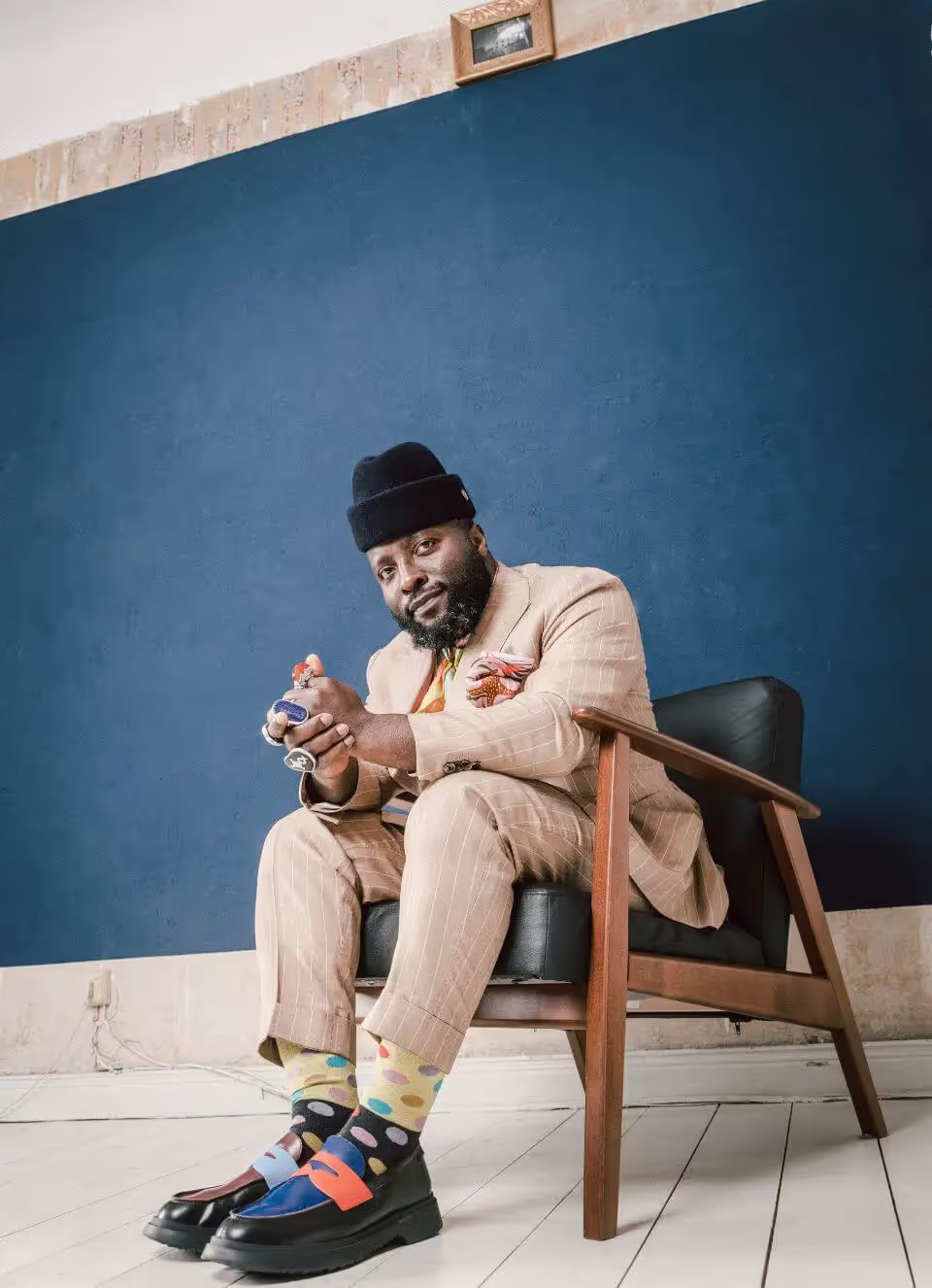
Director of the Haus der Kulturen der Welt (HKW) in Berlin
Learn more

Since January 2023, Bonaventure Soh Bejeng Ndikun has headed the Haus der Kulturen der Welt (House of World Cultures) in Berlin. Previously, he was artistic director of the 13th Rencontres de Bamako in 2022, curator of the Finnish pavilion at the 58th Venice Biennale in 2019, guest curator at the Dakar Biennale in 2018, and member of the curatorial team at Documenta 14, in Athens and Kassel in 2017. In 2009, he founded SAVVY Contemporary, an independent art center based in Berlin.
Photo credit: Alexander Steffens

Artistic Director, Serpentine Galleries
Learn more

Hans Ulrich Obrist, born 1968 in Zürich (Switzerland), is artistic director of the Serpentine Galleries in London. He was previously curator of the Musée d'Art Moderne de la Ville de Paris. Since his first exhibition, "World Soup" (The Kitchen Show) in 1991, he has organized over 300 exhibitions, and has lectured internationally at art academies and institutions. He is editor-in-chief of Artforum, AnOther Magazine, Cahiers d'Art and 032C, and a regular contributor to Mousse and Kaleidoscope. He also writes columns for Das Magazin and Weltkunst. Obrist received the CCS Bard Award for Curatorial Excellence in 2011, and the Folkwang International Award for his commitment to art in 2015. Recent publications include Ways of Curating (2015), The Age of Earthquakes (2015), Lives of the Artists, Lives of Architects (2015), Mondialité (2017), Somewhere Totally Else (2018) and The Athens Dialogues (2018).
Photo credit: Tyler Mitchell.
Residents 2024
Second session - from September 2024
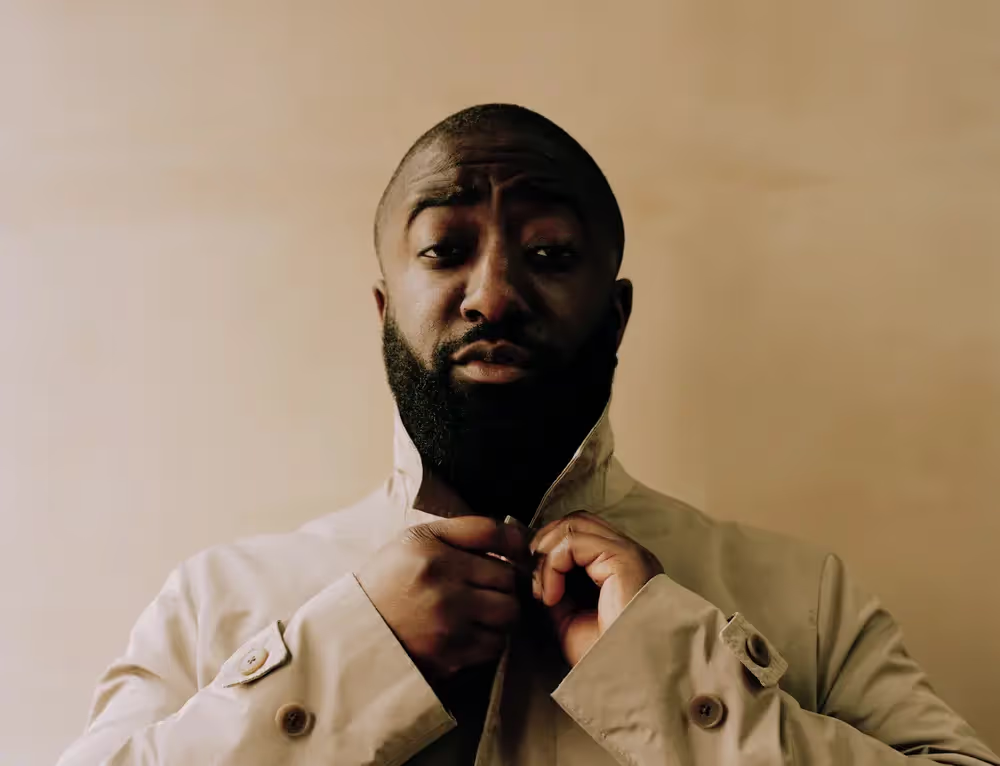
Ghana / United Kingdom
Learn more
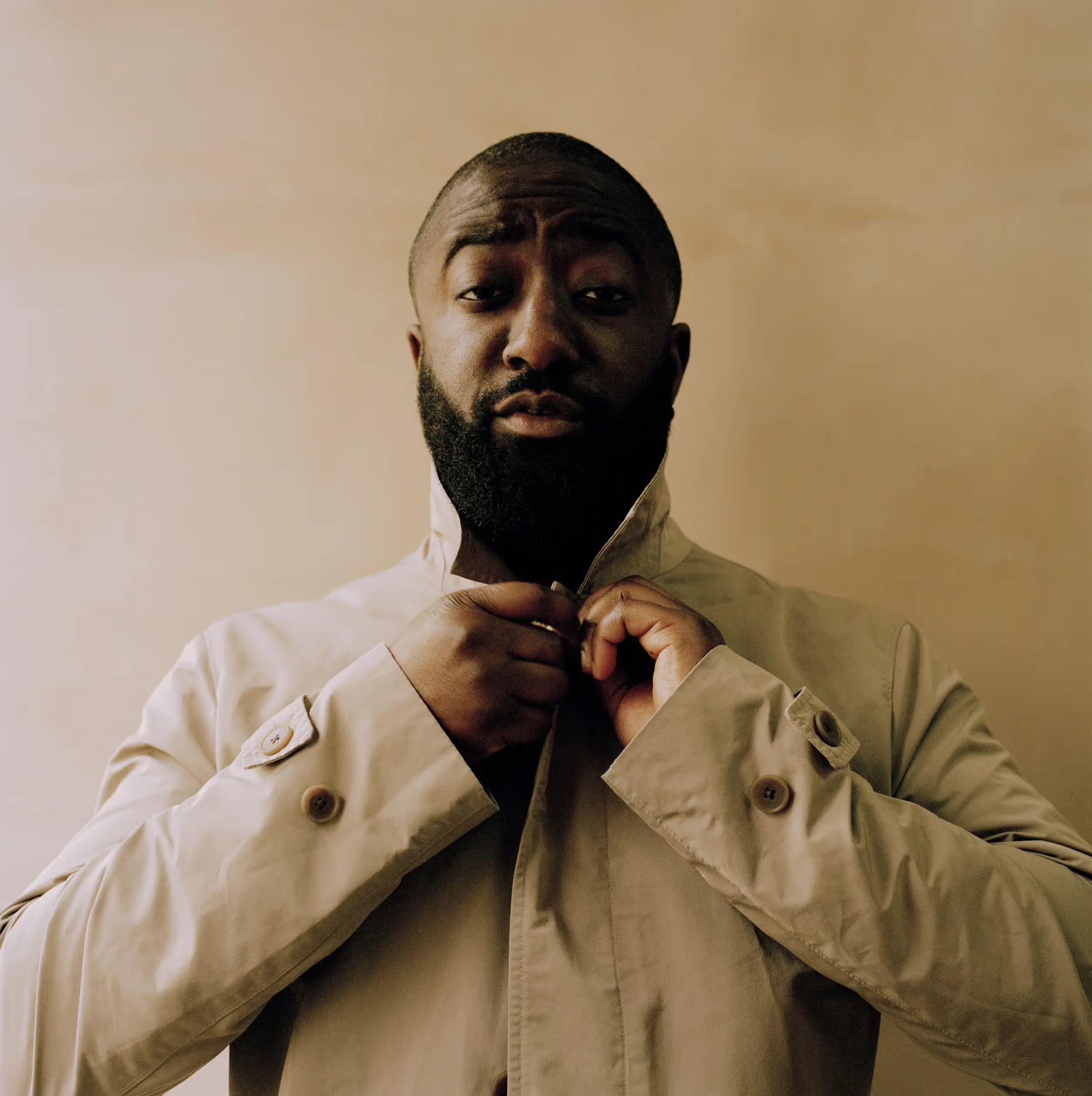
Baff Akoto, United Kingdom
Racines Sculpturales
Biography
Baff Akoto was born in London, raised in Accra. He lives and works between Accra and London. Baff Akoto's practice uses still and moving image, performance, sculpture and installation to embrace the fluidity of contemporary visual grammar whilst exploring plurality, (self) perception and the societal implications of ableism, ritual and dance.
Awarded the Grand Prix at the 13th Rencontre de Bamako, Mali (2022) and the Main Prize at the Aesthetica Art Prize, United-Kingdom (2022). Baff Akoto’s artworks were exhibited in institutions like Triennial Whitechapel Gallery, United-Kingdom (2022), Whitechapel Gallery, United-Kingdom (2022) and UP:RISE Digital Public Art, United-Kingdom (2021).
Residency project
Marked by waves of post-colonial migration, the inhabitants of the 10th and 18th arrondissements offer a symbolic representation of the rich tapestry of modern France. And a compelling opportunity to develop tactile sculptural forms as a means of exploring identity, heritage, and belonging - the central themes at the heart of this residency - within living, breathing complex communities.
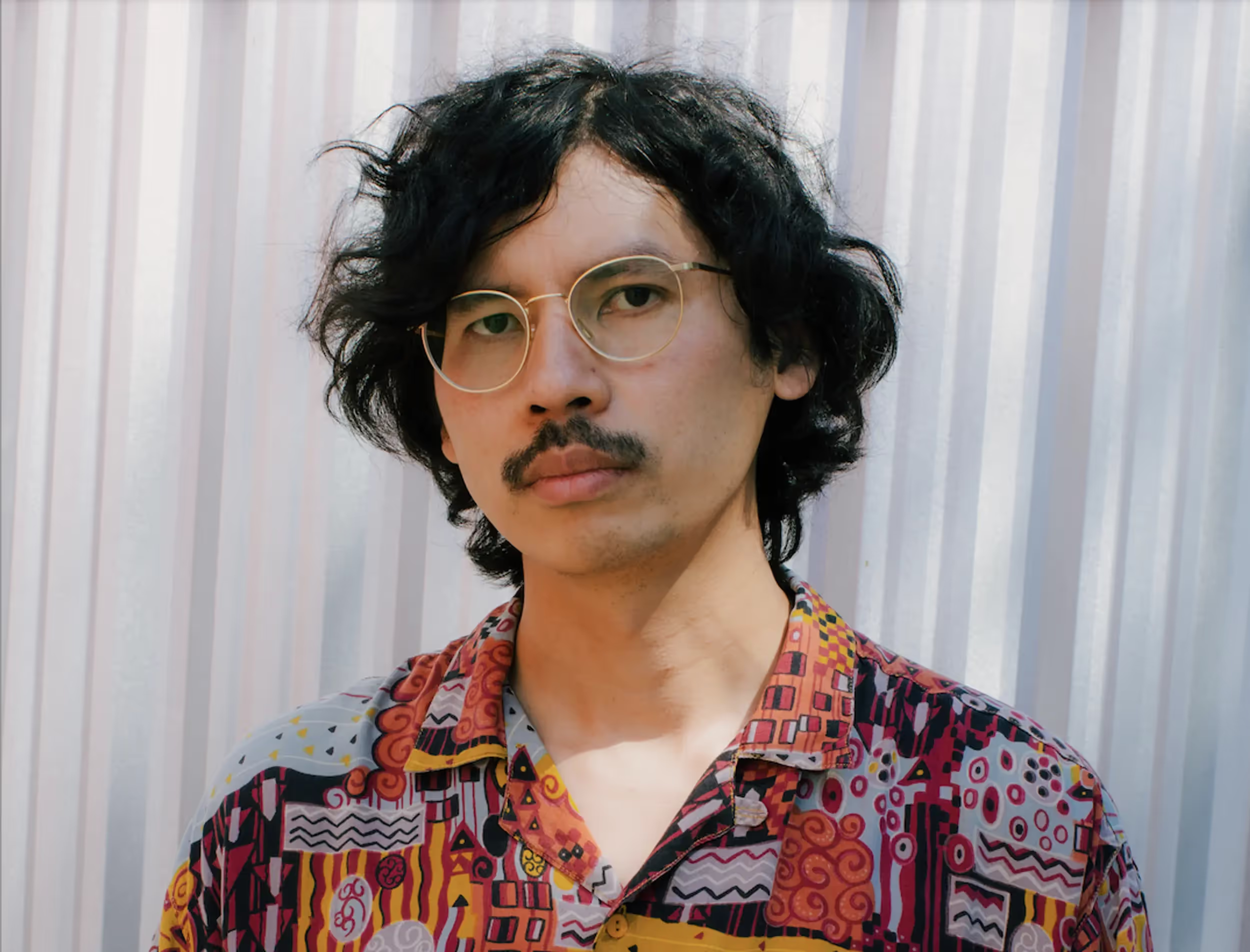
Singapore
Learn more
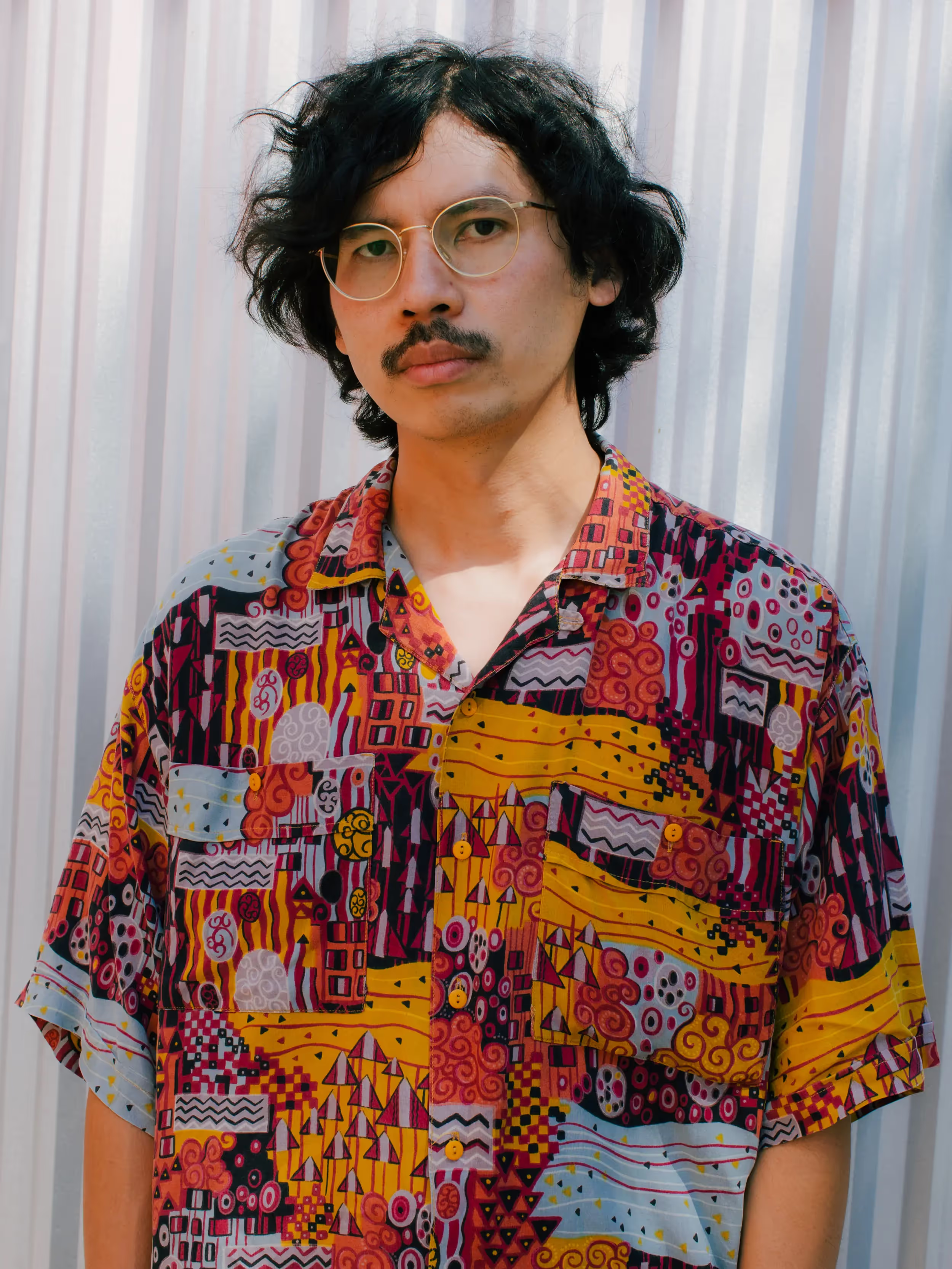
Kent Chan, Singapore
The Fires From the Museums
Biography
Born in Singapore, Kent Chan lives and works between Amsterdam and Singapore. An artist, curator, and filmmaker, his practice revolves around our encounters with art, fiction and cinema that form a triumvirate of practices porous in form, content and context. He holds particular interest in the tropical imaginary, the past and future relationships between heat and art, and contestations to the legacies of modernity as the epistemology par excellence. His works have taken the form of moving-image, text, performances, and exhibitions. Through them, he excavates biases within museology by examining the climate-control system as metaphor and endeavours at situating the tropics within the future tense. Recent exhibitions include: Gasworks (United Kingdom, 2023), Liverpool Biennial ( United Kingdom, 2023), Videobrasil (Brazil, 2023), Seoul Mediacity Biennale ( South Korea, 2023) and Kunstinstituut Melly, (Netherlands, 2021).
Residency project
Continuing his research into the relationship between heat and art, Kent Chan will look into how these relations further extend unto politics. Examining how the influx of tropical artworks into French museums looking to decolonize can be read parallel to the warming of the climates. The project will work towards developing a moving-image work in conjunction with a lecture-performance, alongside a series of prints. Focusing his research on past fires in French museums, Chan questions whether these paradigm shifts in museology might lead to revolutionary ends and the razing of museums, or if decolonisation means the eventual warming and coming to terms with other climates.
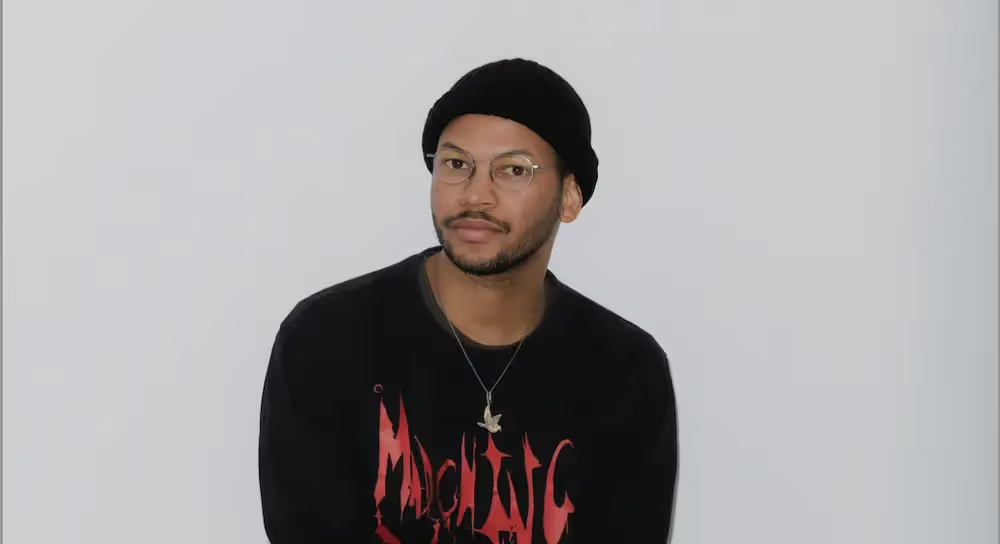
South Africa
Learn more
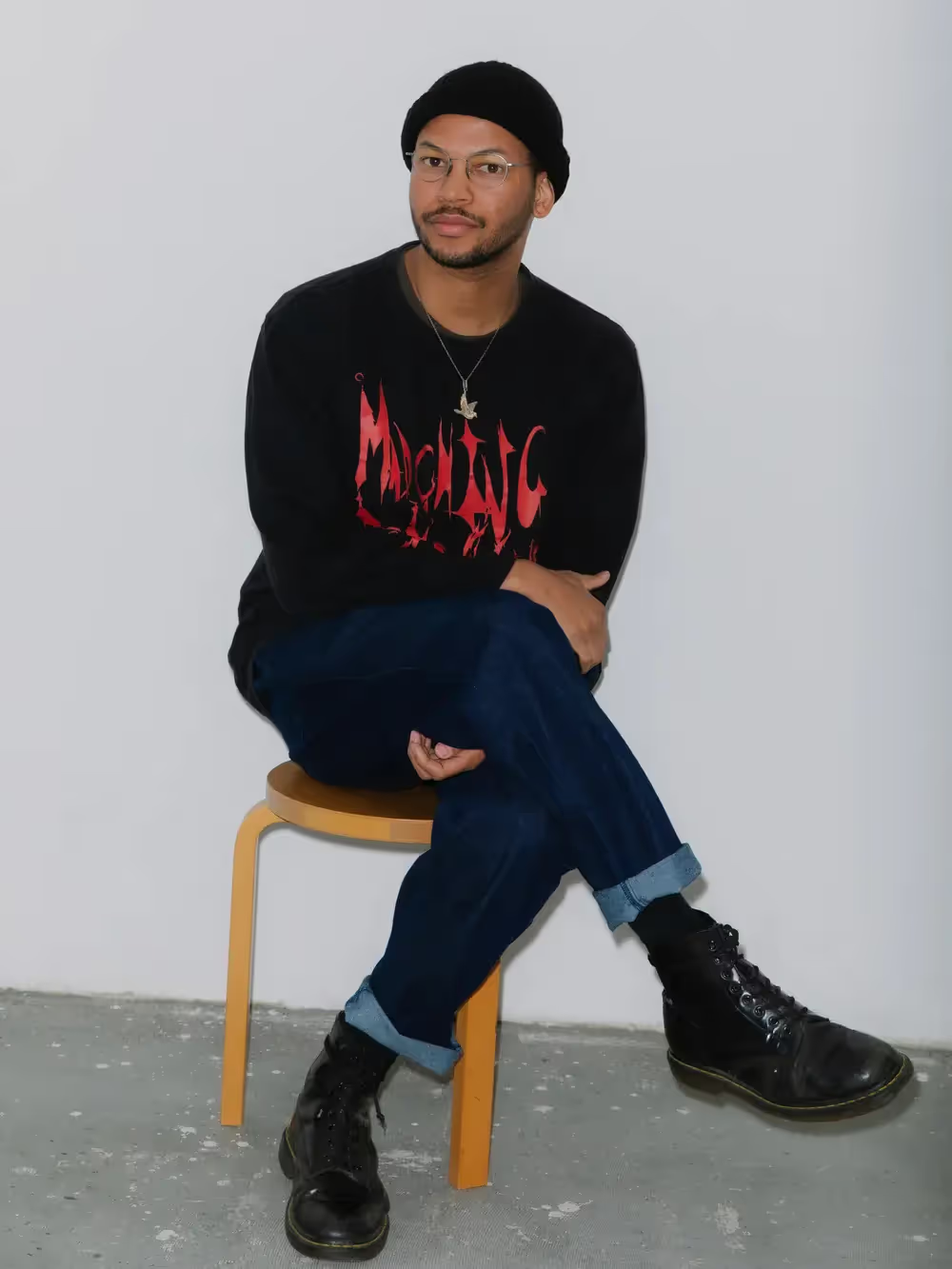
Nolan Oswald Dennis, South Africa
Pluri-polar studies
Biography
Nolan Oswald Dennis was born in 1988 in Lusaka, Zambia. They live and work in Johannesburg. Their practice explores ‘a black consciousness of space’ the material and metaphysical conditions of decolonisation - questioning histories of space and time through system-specific interventions. They work within and against a grammar of world-making: using indexical, analytic and educational devices (drawings, diagrams, maps, models, etc) as ambiguous tools for rehearsing possible meanings rather than forms of instruction. Their work has been featured in group exhibitions at the Young Congo Biennale (Democratic Republic of Congo, 2019); Palais de Tokyo (France, 2021); FRONT triennial, (United-States, 2022); Van Abbemuseum (Netherlands, 2023); the Shanghai Biennial (China, 2023), Liverpool Biennial (United-Kingdom, 2023) and the Lagos Biennial (Nigeria, 2024).
Residency project
Pluri-polar studies are a speculative field deduced from the intersection of geophysics, polar counter-histories and the ecological polycrisis that envelops us. Nolan Oswald Dennis asks: what happens if we take the black, indigenous, feminist and queer histories of the polar regions as the first points of reference for a whole-earth science?
This orientation frames the scientific peculiarities of the South and North poles as geographic, magnetic, and celestial approximations which shift across the surface of the globe and are prone to reversals rather than the fixed locations we imagine. Since conventional knowledge misrecognizes the polar regions as the ends of the world, then alter-knowledge reminds us there are many ends of the world, that each end is a beginning and at each beginning there is a pole and every pole, in relative independence, moves. Polarité (derived from Glissant's notion of Mondialité) will guide their research into a non-hegemonic history of planetary sciences.
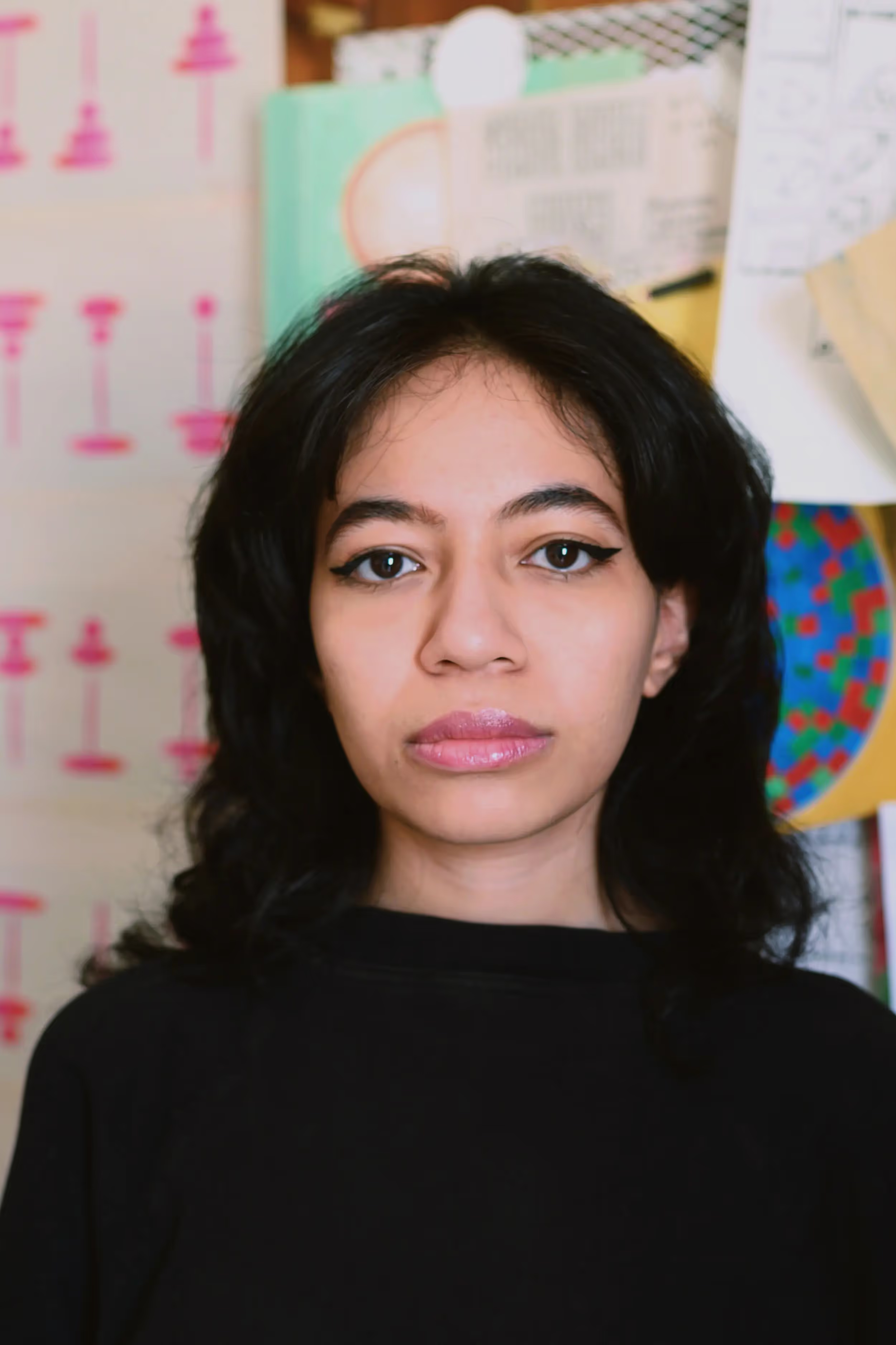
Saudi Arabia
Learn more
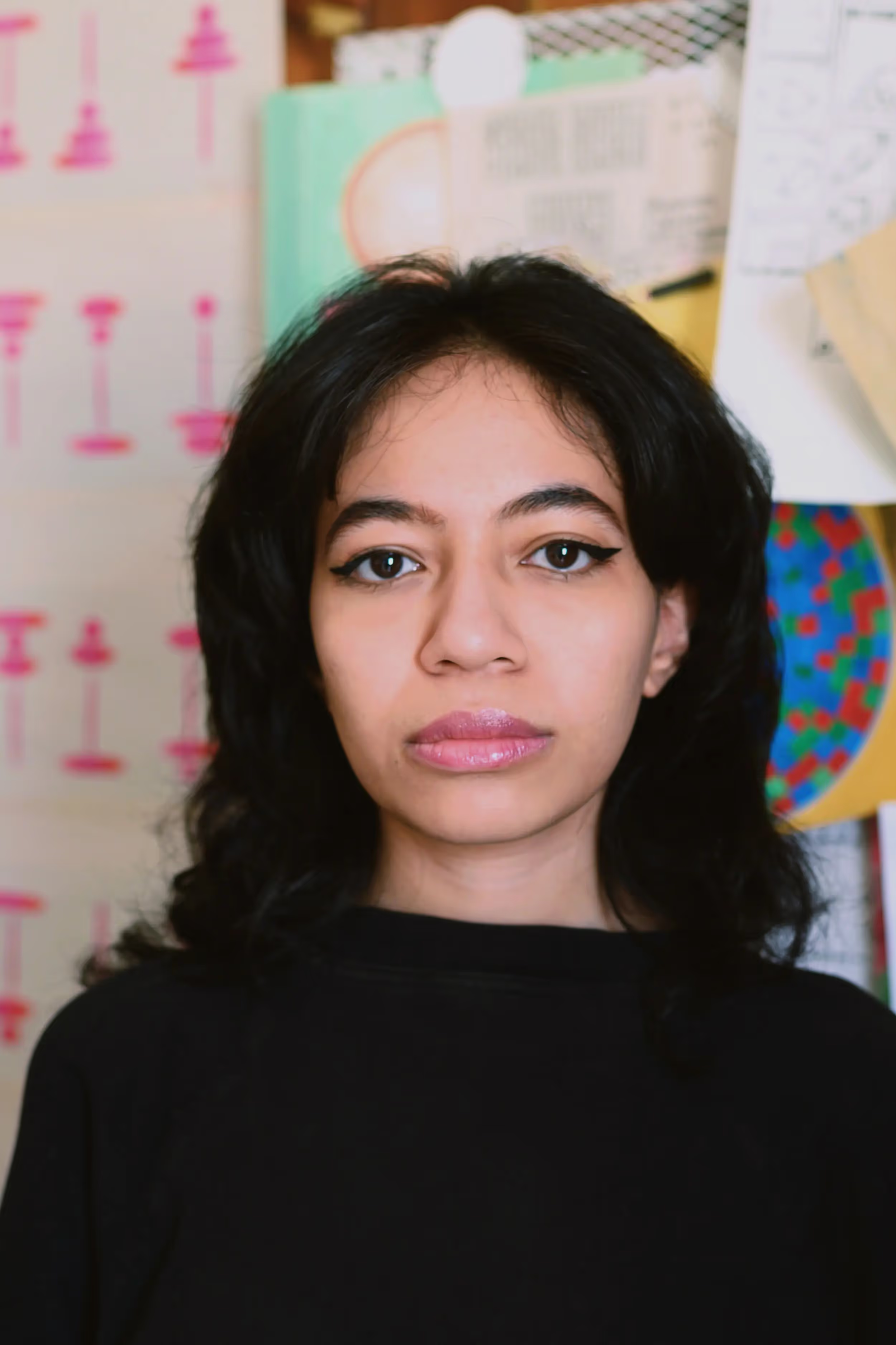
Basmah Felemban, Saudi Arabia
It Makes Sense Under The Sun
Biography
Basmah Felemban was born in 1993, Jeddah. Lives and works between Jeddah and London, her practice as a curator and artist intertwines in themes of reimagining lost history through sci-fi literature, she works in various mediums including painting, video games, and sculptures. Basmah’s work has been presented in numerous institutions including Diriyah Biennale Foundation (Saudia Arabia, 2023), Julia Stoschek Foundation Berlin (Germany, 2022), Institute for Contemporary Art at VCU (United-States, 2023), Saudi Art council (Saudia Arabia, 2020) and Maraya Center (United Arab Emirates, 2013).
Residency project
During her time in the residency, she will develop a documentary installation that will position her curatorial practice in graffiti and street art within her work as a multimedia artist. Under the sun is articulated through one of the longest surviving objects, the rock, the oldest witness and calculator, and at the physical juncture where the desert meets the sun, a place of transformation, and amnesia. She’ll collect and accumulate stories by break dancers, rappers, and graffiti artists that at times feel like myths and place them within the distorted playing field she builds in her work, an elaborate mind map that looks into themes like Graffiti Writing As an Ancient Practice, Urban Environment Impact on Graffiti, and Abandoned Spaces in Transition.
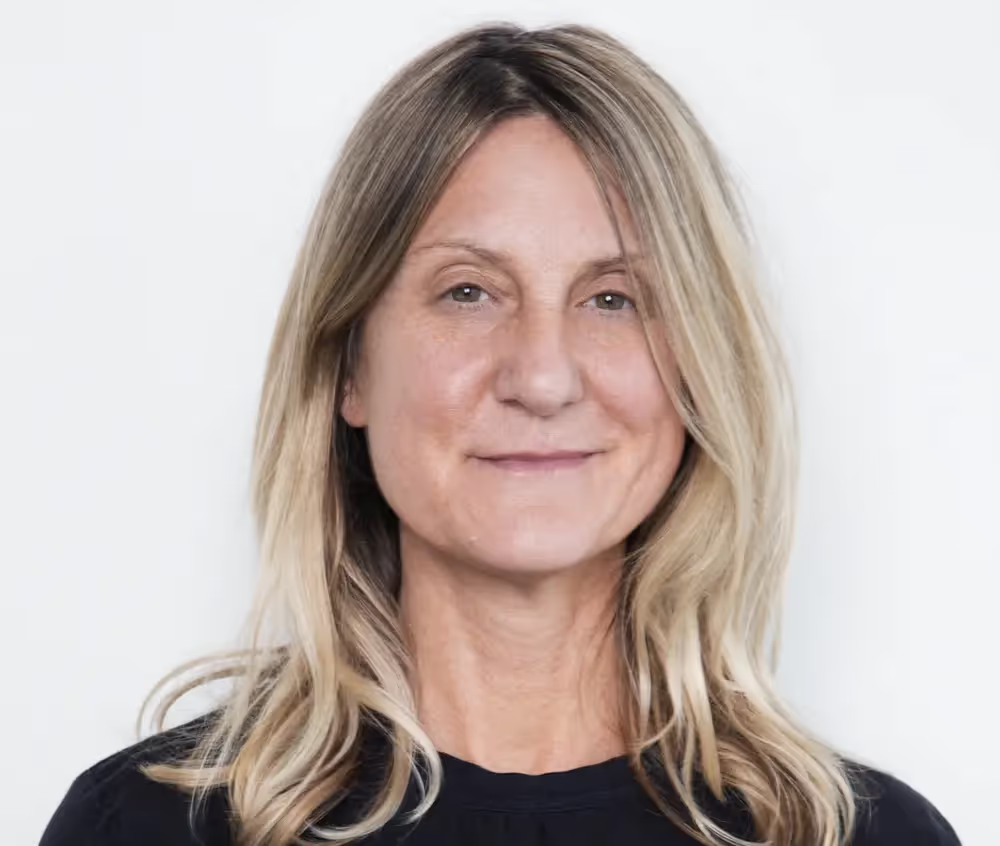
United States
Learn more
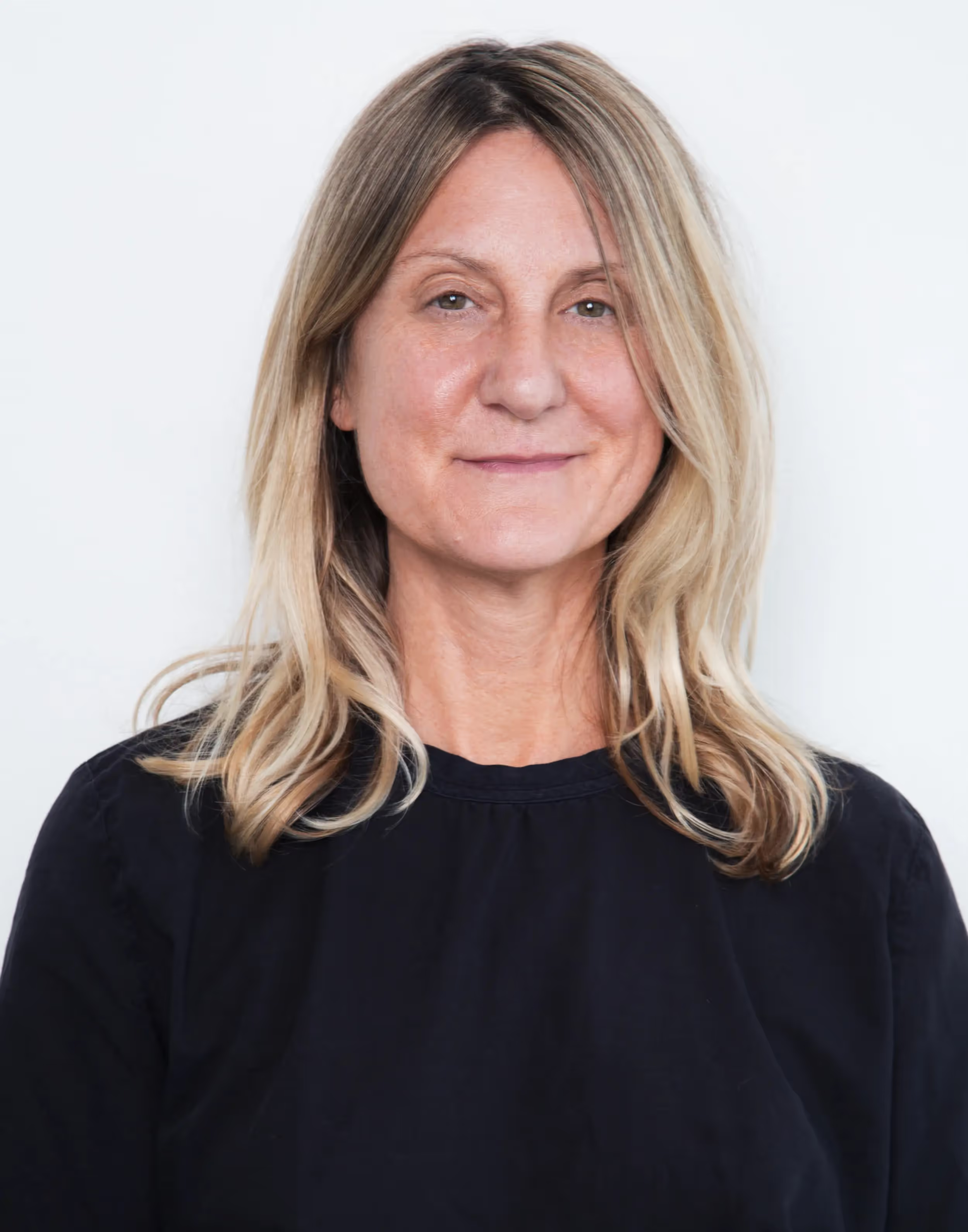
Eve Fowler, United States
Filles manquées
Biography
Eve Fowler was born 1964 in Philadelphia, Pennsylvania. Fowler lives and works in Los Angeles, California. Fowler is an interdisciplinary artist whose work investigates the problems, possibilities, and ethics of what it means to bear witness to the work, body and life of another. Whether working through a camera’s lens or in paint, installation, sound, or public space, her practice moves in and with the margins: towards what has been unrepresented, ignored, struck from the record. Her work has been presented at the Museum of Modern Art (United-States, 2015) Participant Inc (United States 2016), Dundee Contemporary Art (Scotland, 2018) and Gordon Robichaux Gallery (United-States, 2023). Her work is in the permanent collections of the Hammer Museum, the Museum of Modern Art, New York, Los Angeles County Museum of Art and the San Francisco Museum of Modern Art.
Residency project
Filles Manquées is a long-form film project that employs empathic witnessing to tell the many stories of seventy-seven-year-old French trans artist Florence Derive. Scenes in which she sits before me looking into her lens (they witness one another) weave with moments where she recounts her earliest and most formative memories (we listen) and still others where they trace together the spaces from Nantes to Paris that make up her creative and emotional lives.
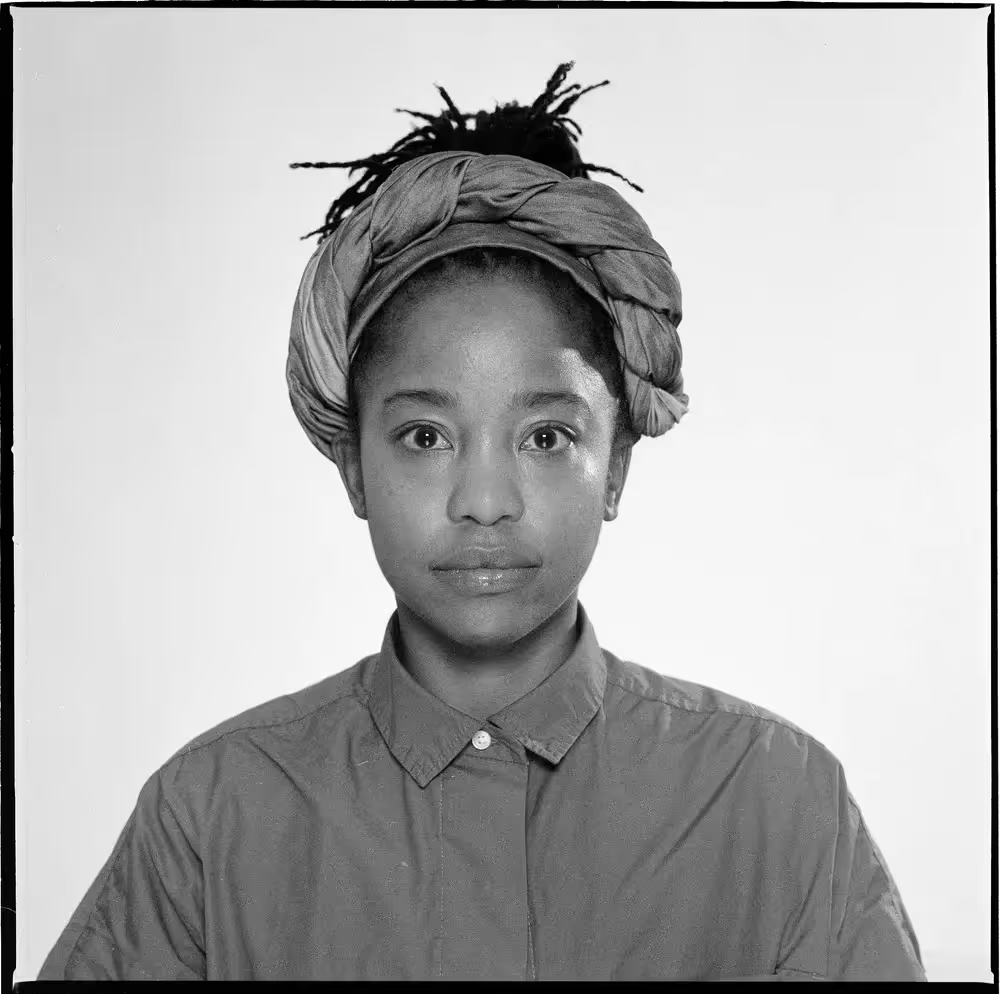
United States
Learn more
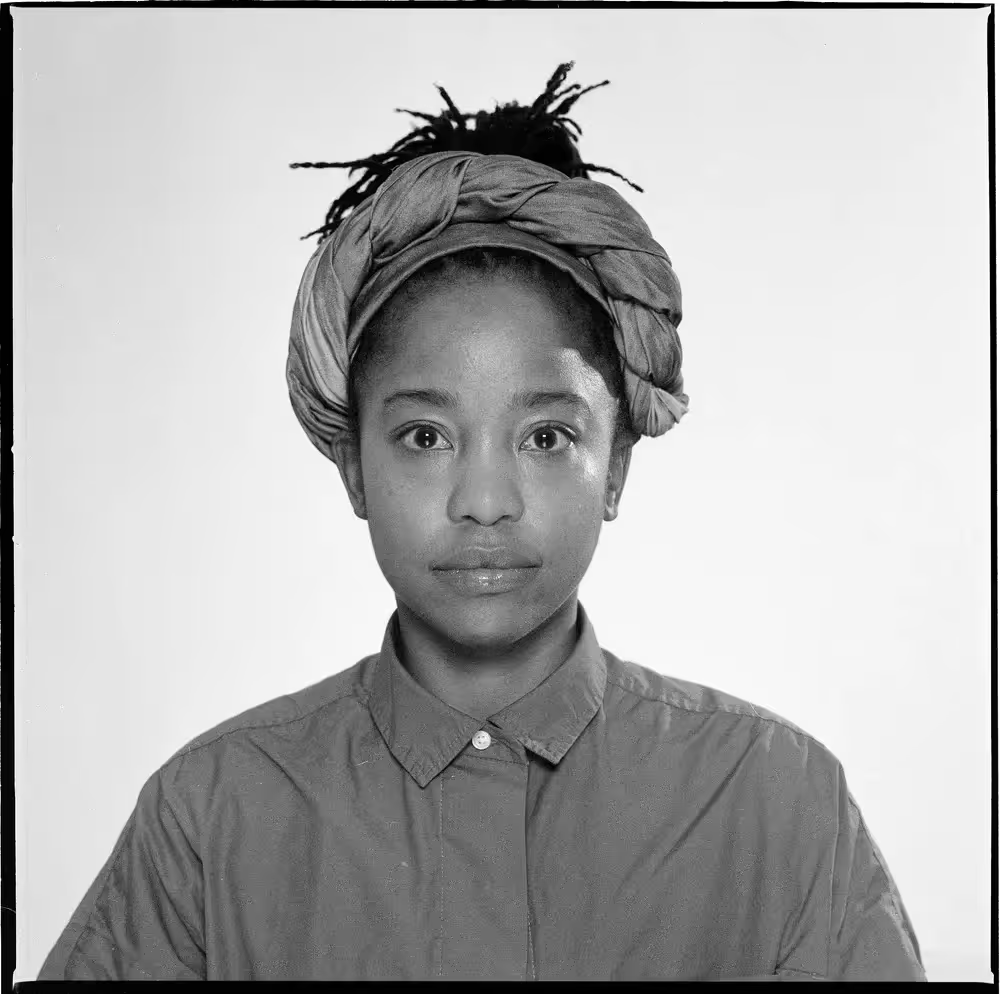
Steffani Jemison, United States
Cyc
Biography
Born in 1981, Steffani Jemison lives and works in Brooklyn, New York. Her work considers the weight of physical and social forces and fantasies of escape. Through video, writing, performance, and installation, her work poses such questions as: "How do we learn on the fly? How do we fly? If we’re all we’ve got, how do we use ourselves to find the forms of the future?” Jemison’s work has been presented in numerous institutions including Centre d’Art Contemporain Genève (Switzerland, 2024); the Whitney Museum (United-States, 2019), the Stedelijk Museum (Netherlands, 2019), and Jeu de Paume (France, 2017).
Residency project
Using the Greek myth of Icarus as a starting point, Steffani Jemison will extend her research on fugitivity, floating, and flight as visual material and embodied practice. In Paris, Jemison will explore the legendary performance Icare by choreographer Serge Lifar and the Icarus motif in work by Matisse and Picasso, including Picasso’s Paris mural The Fall of Icarus, sited at UNESCO headquarters. Jemison is also interested in the form of the heist in relation to themes of flight and escape: she will investigate traditional and unconventional playgrounds as physical training spaces for escape (recently, incarcerated artist and art thief Vjeran Tomic is said to have used the cemetery Pere Lachaise as a parkour playground). Jemison's research will culminate in Cyc, a body of work that takes its title from the cyclorama, a type of theatrical curtain used to create the illusion of infinity.
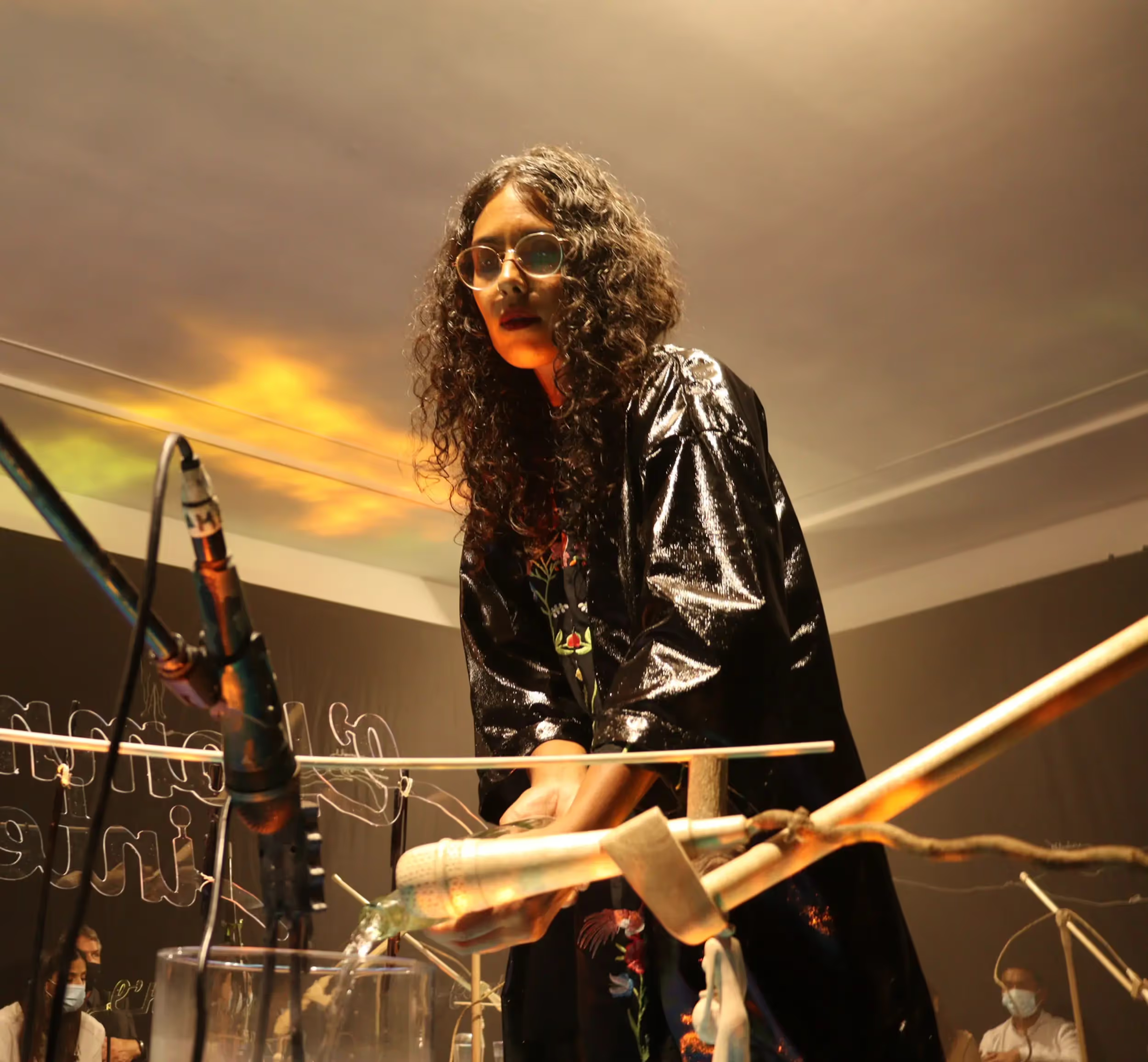
France
Learn more
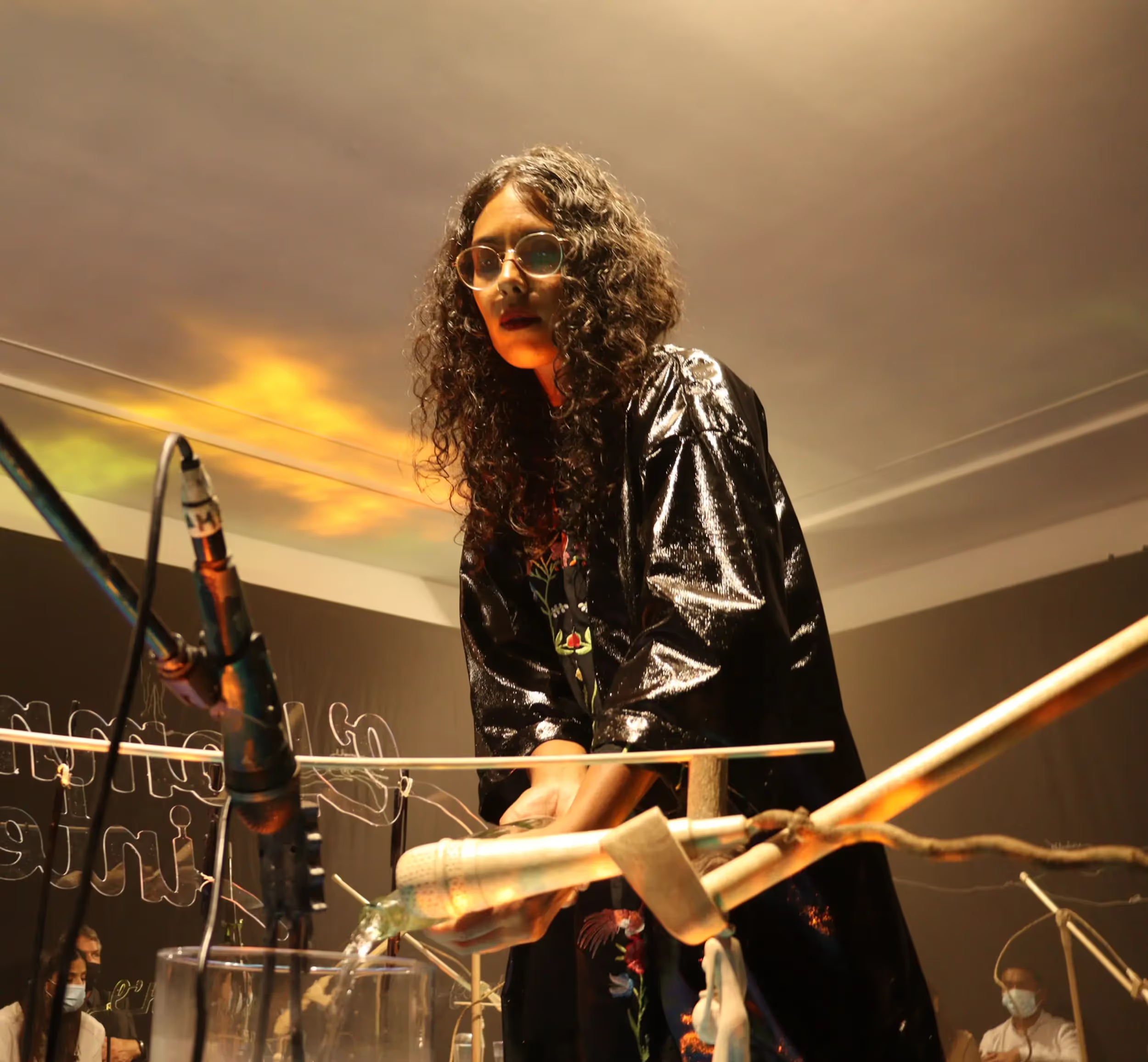
Myriam Omar Awadi, France
Flowers' voices. The garden that still grows on our images' skin.
Biography
Myriam Omar Awadi is a Franco-Comorian artist born in 1983 in Paris, France. Lives and works in La Reunion. She invites voices that are not always audibles, in search of the fires that their last breaths rekindle : millions and myriads of souls’species made of wood, clay, glass, embroidery, shimmering sequins and sea water, dripping on the microphones and waking up from their premeditated extinctions through the sweat of our deviant listening. They tell stories for gardens, they rock morbid suprematism, they sing politics dilute in the liquid humors of love. Myriam Omar Awadi’s work has been presented in numerous institutions including Bamako Encounters African Biennale of Photography (Mali, 2019), Palais de Tokyo (France, 2021), MADOI with Le Louvre (France, 2021), Zeitz Mocaa (South Africa, 2022) and Kochi-Muziris Biennale (India, 2023).
Residency project
At the end of the 19th century, Razaka and Ramilijaona, studio photographers in Madagascar, colored some of their photographs using flowers’ pigments from their garden. There are therefore garden memories, plants DNA, knowledges, sciences and practices carefully guarded and deposited almost secretly on the surface of each of their photographic prints. The first questions germinate there, on the surface of these images, the place of revelations, the place of consented capture of biological and spiritual essences, for our history sake. What do the flowers of Razaka and Ramilijaona say? What languages do they speak? What are their stories? Where do they come from? Would it be possible to reconstruct gardens’ fragments that lie dormant in each image? Make this potential garden the place to invoke the voices of flowers, trances of their Phylo-genomic parliament, and the ancestors who carry them?
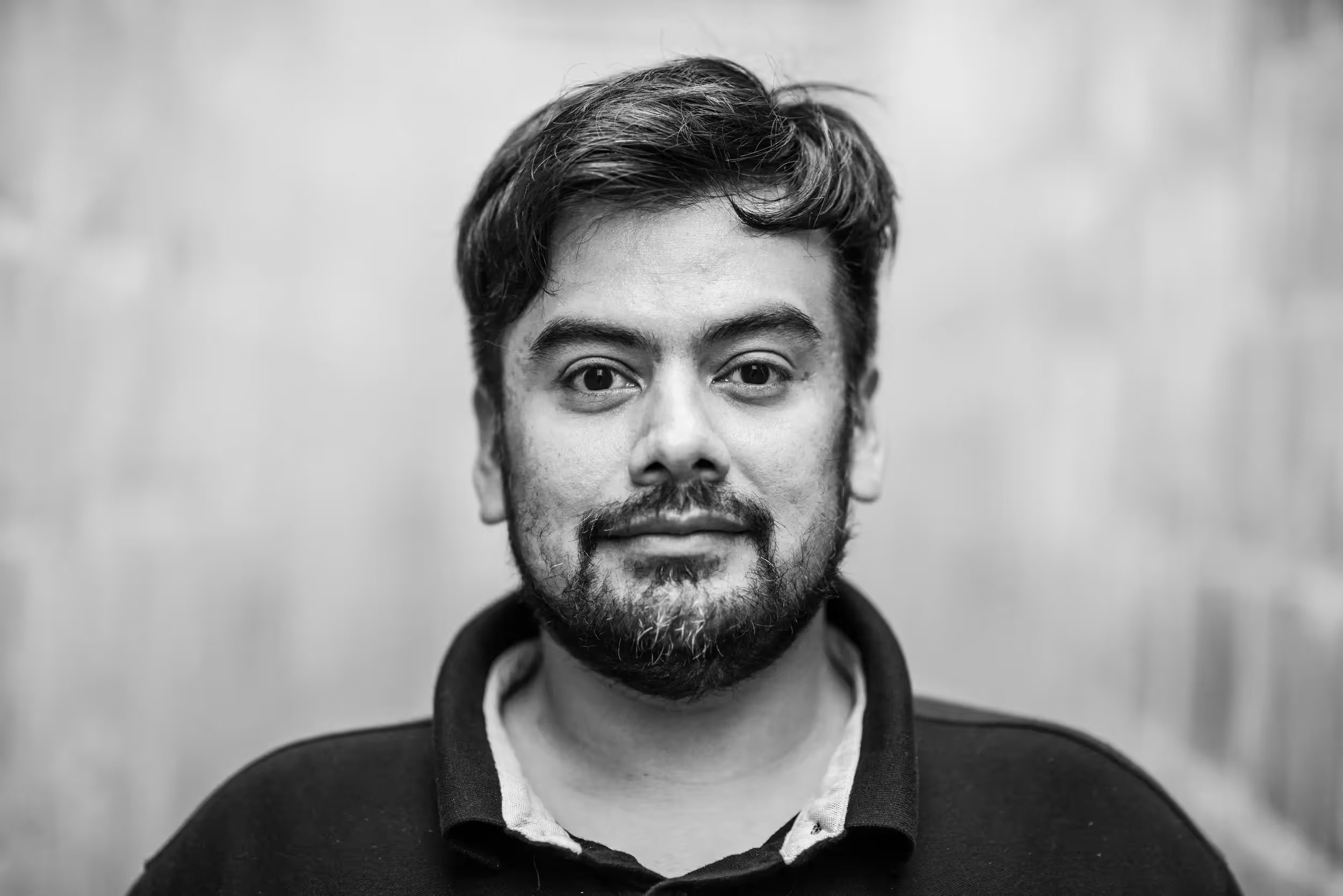
Guatemala
Learn more
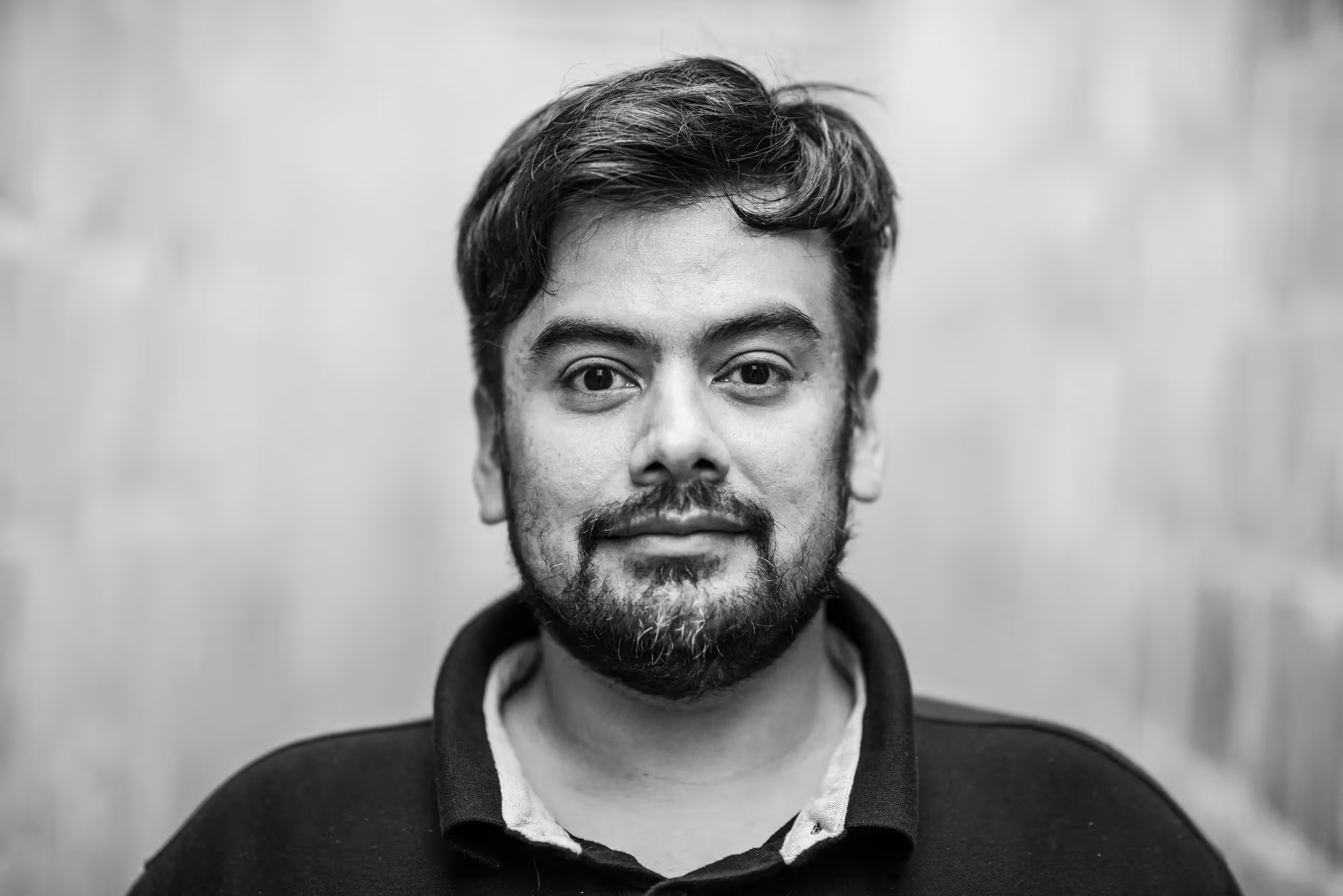
Naufus Ramírez-Figueroa, Guatemala
Re-Drawing the Tarot: The Tarot of Marseille through the Lens of Guatemalan - Mayan-Mestizo Spiritual Practices
Biography
Naufus Ramírez-Figueroa was born in 1978 in Guatemala. He lives and works in Guatemala City. His practice encompasses performance, sound, drawing, and sculpture, exploring themes of loss, displacement, and cultural resistance, often referencing the Guatemalan Civil War. Ramírez-Figueroa’s work has been presented in numerous institutions, including Tate Modern (United-Kingdom, 2014); MoMA (United-States, 2023); Venice Biennale (Italy, 2017); New Museum (United-States, 2018) and at Thyssen-Bornemisza (Spain, 2020).
Residency project
He will create new works in textile, paper, and performance. His research will be anchored in the playing card collection at the Bibliothèque nationale de France. Additionally, he will draw upon his family’s tradition of card divination, using the cards to aid him in the studio, echoing in this way John Cage’s use of the I ching. This project will merge his interest in plants—both as imagery in playing cards, such as the Tarot of Marseille, and as elements of oral history, healing, and folk religion in Guatemala. He will utilize resources from the Paris Herbarium at the Muséum national d'histoire naturelle and collaborate with botanists and horticulturalists to integrate botanical elements into my work. Playing cards are a versatile form of communication, providing a space for evolving symbolism, imagery, and divination. This project will explore and expand upon these possibilities, creating a unique fusion of traditions and interpretations.
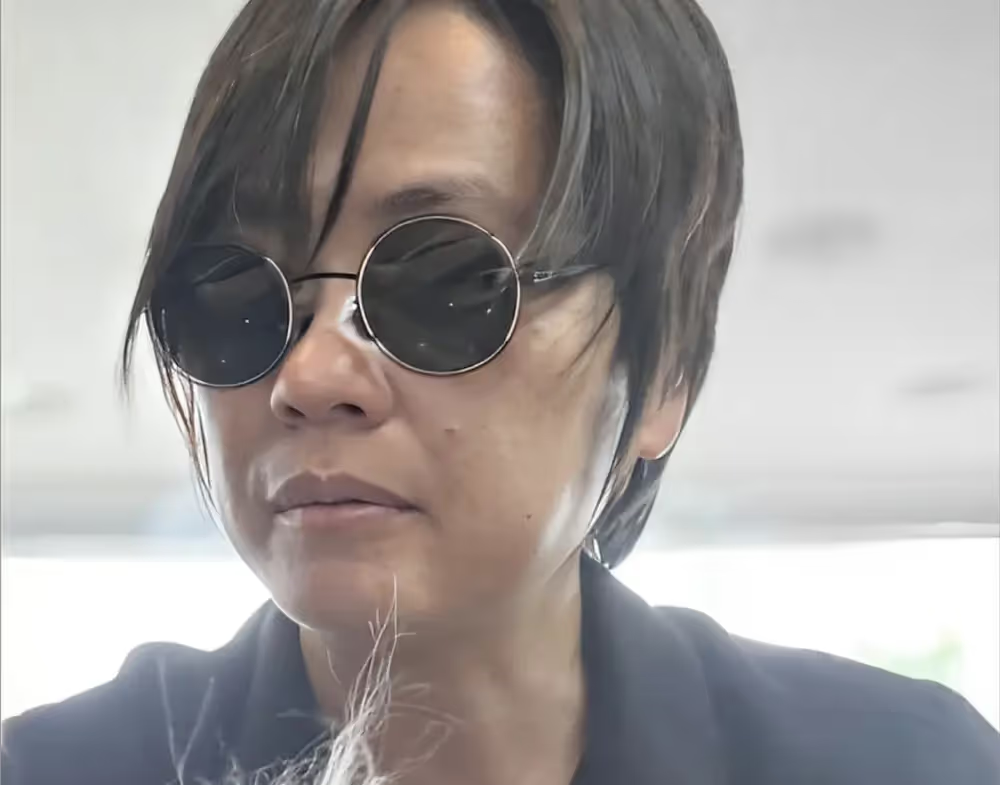
Thailand
Learn more
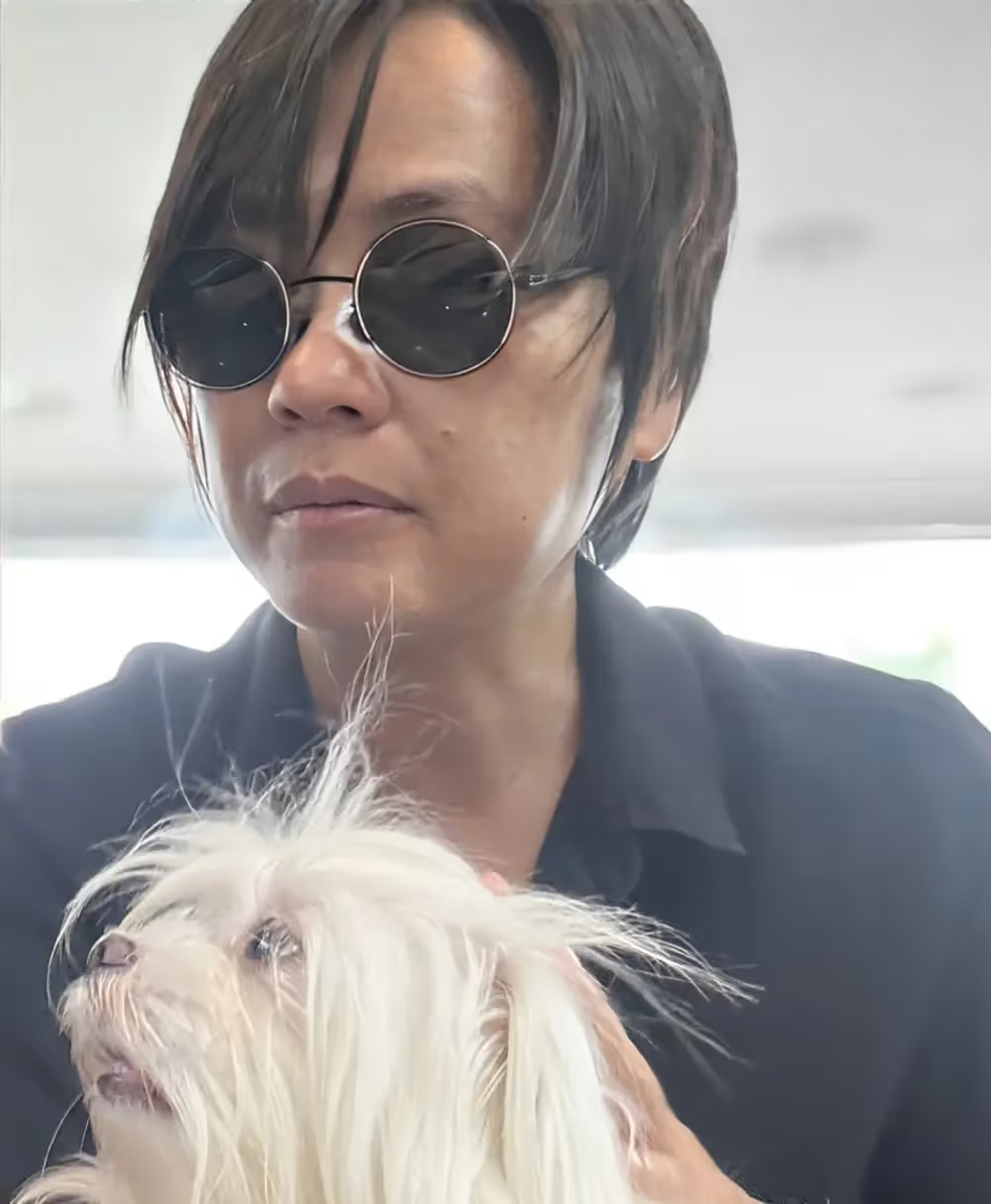
Wantanee Siripattananuntakul, Thailand
Silent Witnesses: An Intertwined Narrative of Resilience
Biography
Wantanee Siripattananuntakul was born in Bangkok, Thailand, in 1974. She currently lives and works in Bangkok. Wantanee's multidisciplinary practice explores complex social, political, economic, and socio-ecological issues. Her work has been presented in numerous institutions, including in Thai Pavilion at the 53rd Venice Biennale (Italy, 2009), Thailand Biennale in Chiang Rai (Thailand, 2023), Frieze London (United-Kingdom, 2023), The 7th Anyang Public Art Project, Anyang City (South Korea, 2023) and Bangkok Art Biennale at the Queen Sirikit National Convention Center (Thailand, 2022)
Residency project
Silent Witnesses is a multimedia exploration of the intertwined narratives of animals in wartime and shared stories of suffering and survival across cultures. The project delves into the profound interconnectedness of life on Earth through creative techniques, including installations, visual storytelling, and a video essay. Drawing inspiration from historical artworks to contemporary issues fosters compassion, empathy, and awareness. Central to the narrative are Castor and Pollux, two elephants from the Jardin des Plantes Zoo in Paris, whose story symbolises the enduring bond between nations and cultures even in times of adversity. The project aims to engage both local and global audiences, inviting reflection on the universal themes of resilience and interconnectedness.
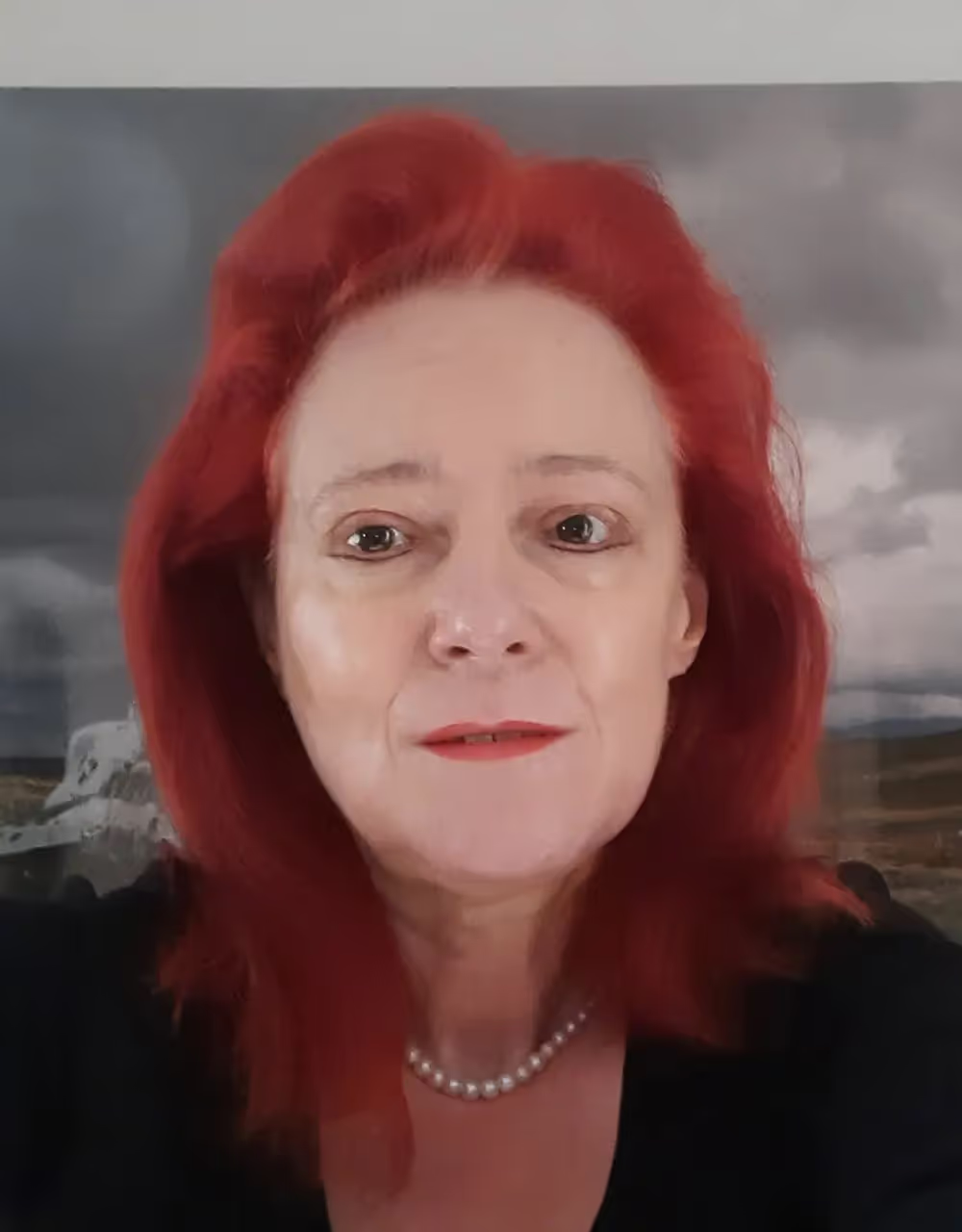
United Kingdom
Learn more
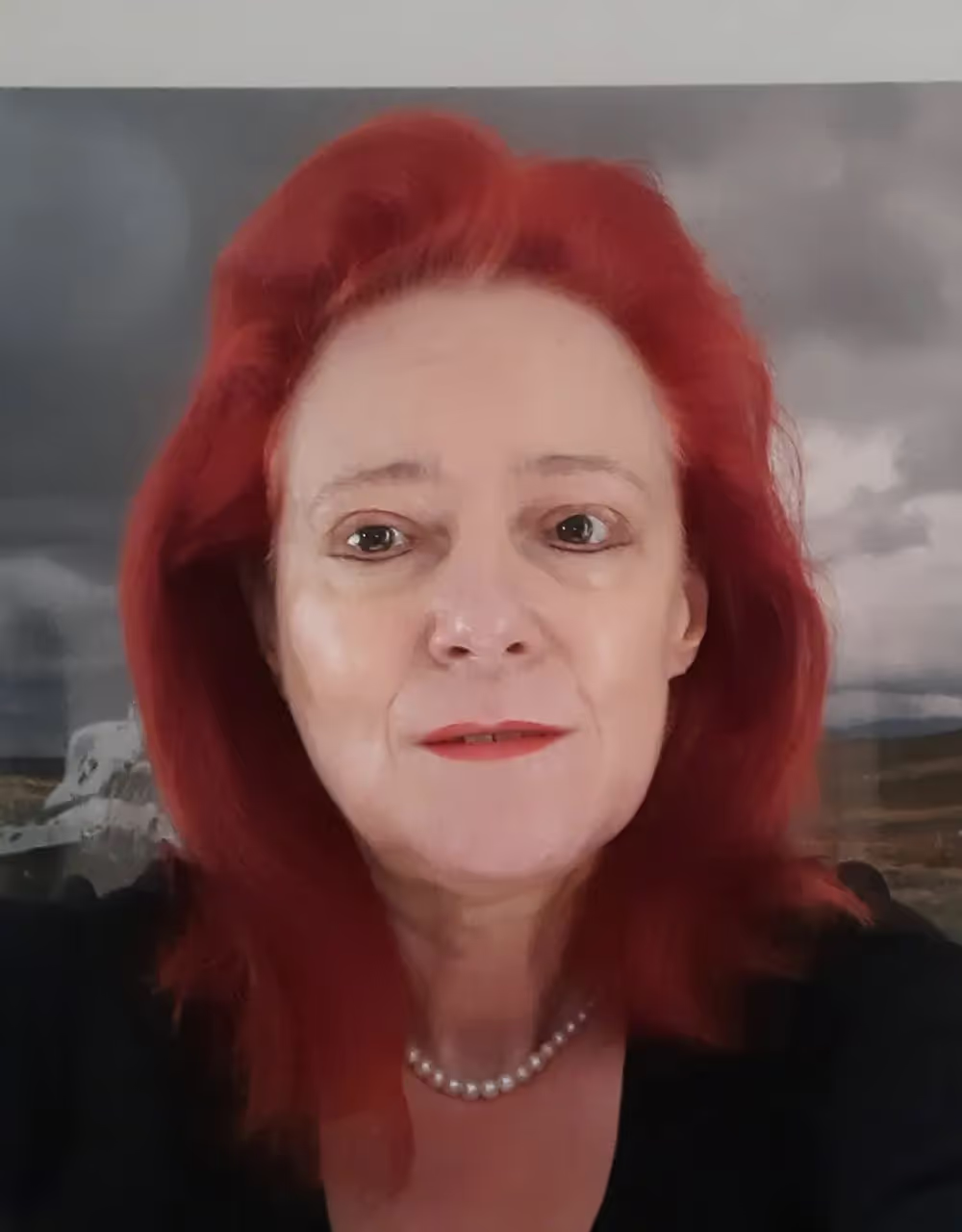
Suzanne Treister, United Kingdom
HEXEN 5.0
Biography
Suzanne Treister is born London 1958. She Lives and works between London and the Pyrenees. A pioneer in the new media field since 1989, Treister works across the permeable boundary separating the frontiers of scientific enquiry from mystical revelation. Often spanning several years, her projects interrogate the relationship between emerging technologies, society and alternative belief systems to suggest unseen forces that shape our present reality and have implications for the future that we are only beginning to understand. Treister's work has been presented in numerous institutions including Tate Modern (United-Kingdom, 2024); 14th Shanghai Biennale (China, 2023); High Line, New York (United-States, 2022); Serpentine Galleries (United-Kingdom, 2019); Centre Pompidou (France, 2015) and the Spaceships of Bordeaux (France, 2013-2022)
Residency project
She will be working on the final stages of her current project, HEXEN 5.0, the sequel to my previous project, HEXEN 2.0 (2009-11). HEXEN 5.0 will include 78 new Tarot works and 6 large diagrams, critically and historically exploring new global developments in terrestrial and interplanetary technologies, science and communications, corporate and governmental forces, the ecosystem and climate crisis, recent and traditional fields of knowledge, new branches of bio/socio/political theory, contemporary countercultural and futuristic movements, new directions in science-fiction, and proposed solutions for an ethical survival of the human race. The work will be for exhibition and also published as a printed tarot deck, intended to be used as a learning tool for groups to discuss and envision positive alternative futures.
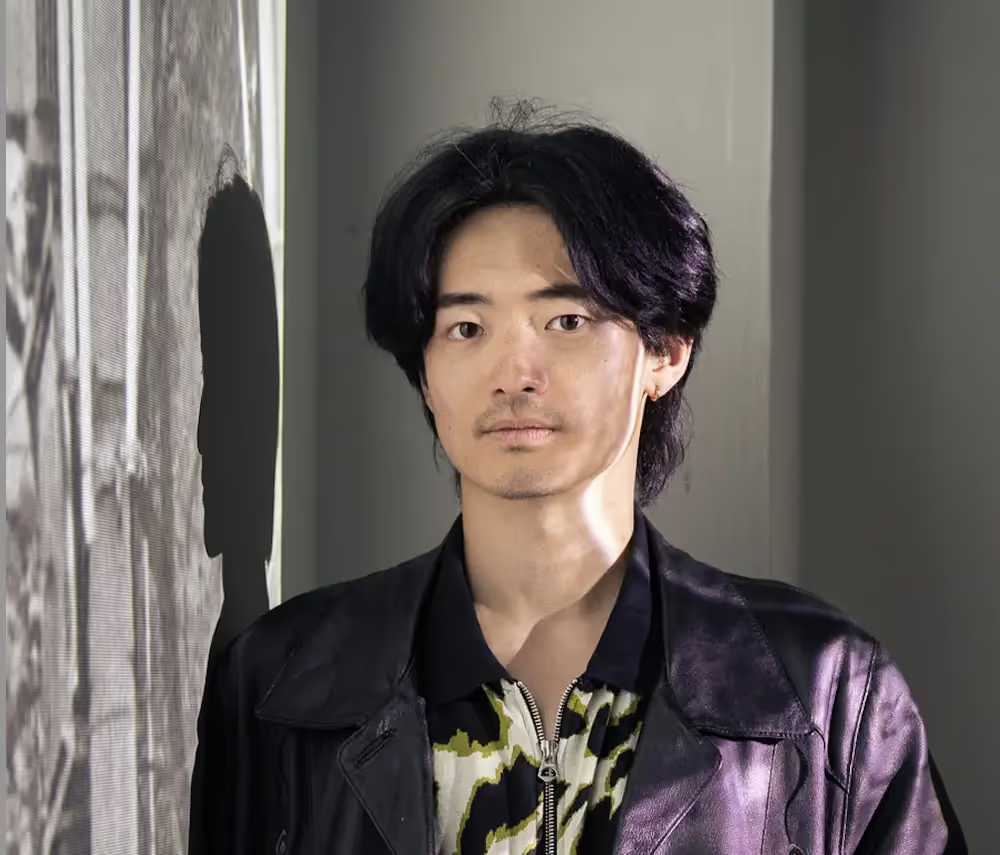
China
Learn more

Peng Zuqiang, China
Understories
Biography
Peng Zuqiang was born in 1992 in Changsha, China. He Lives and works in Amsterdam. He works with film, video and installations, with an attention to the affective resonances within histories, bodies, and language. Peng's work has been presented in numerous institutions including Fondazione Sandretto Re Rebaudengo (Italy, 2023), videobrasil (Brazil, 2023) Kevin Space (Austria, 2023), Cell Project Space (United-Kingdom, 2022) and e-flux screening room (United-States, 2022).
Residency project
The project Understories is an ongoing video installation which started with research on 8.75mm film - a celluloid format unique to China and never circulated elsewhere. As a format where no cameras were ever made for, the film was primarily used for mobile projection units to exhibit films in countryside, mountains, islands and ethnic minority regions in China from the 70s to 80s. The work intends to reimagine this medium of propaganda as a medium for remembering, resilience and other mythifications. For the residency, he will continue to work on the writing of several voice scripts that will transform into part of the soundscape of the work. While also experimenting with darkroom techniques to manipulate shot and archival celluloid footages.
First session - from spring 2024
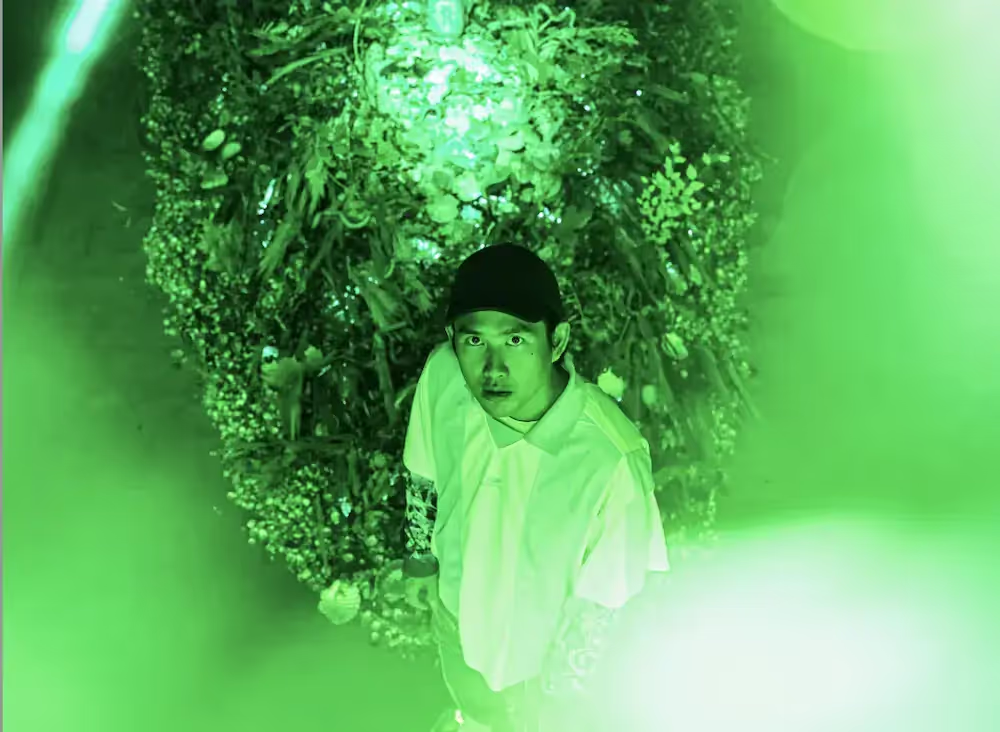
Thailand
Learn more
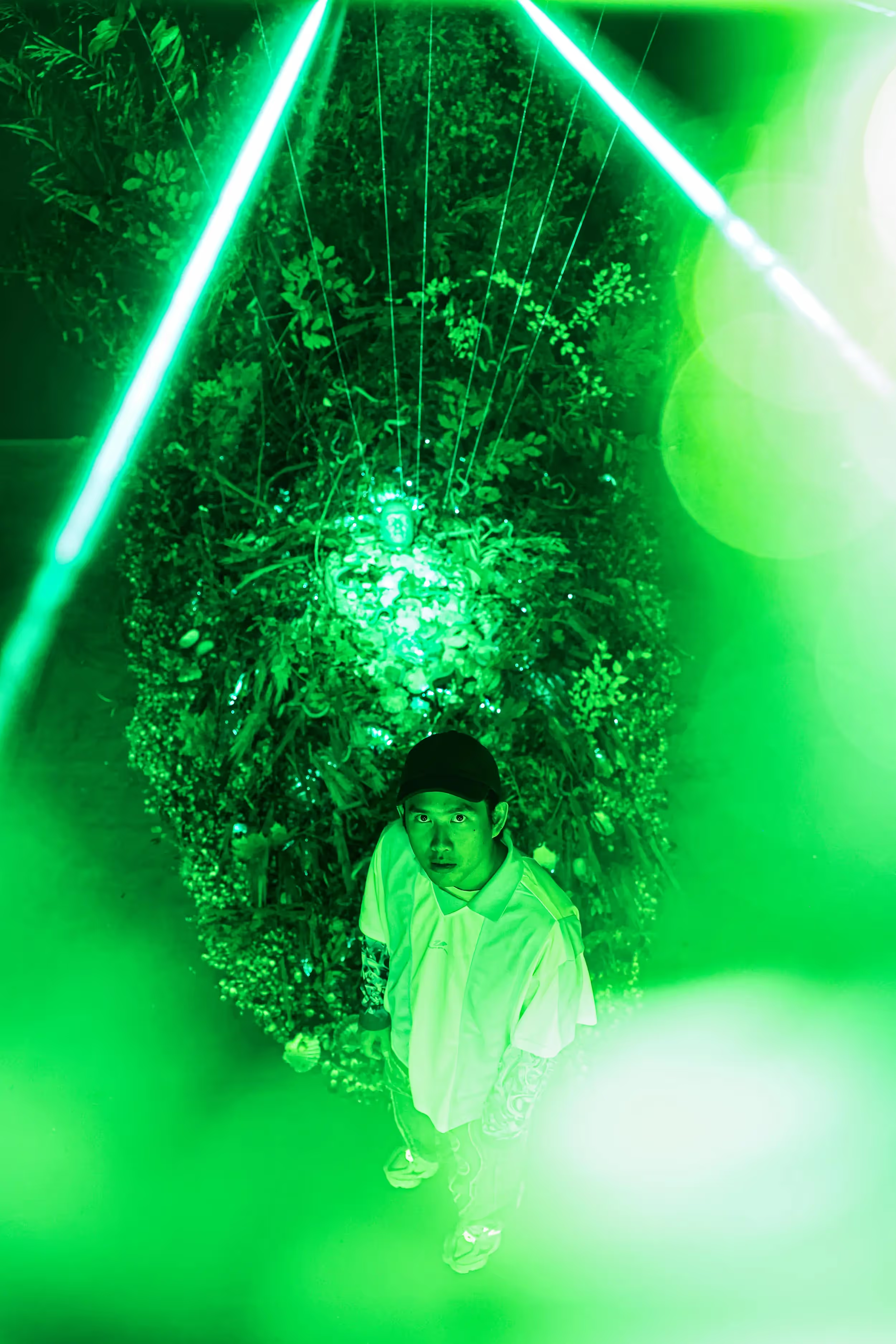
Korakrit Arunanondchai, Thailand
To Compete with The Chorus of Time
Biography
Born in Thailand, Korakrit Arunanondchai lives and works in New York and Bangkok. His work focuses on the transformative potential of storytelling. With each project, the artist expands his cosmos of interconnected stories told through expansive video installations, paintings, objects, and performative works. In his videos, he processes experiences in his personal environment just as he does with political events and history and questions to our crisis-ridden present. Arunanondchai often draws upon the cultural contexts in his own biography as well as spaces with postcolonial trauma. With references to philosophy and myth, his narratives weave together questions about consciousness, empathy, and community. Recent exhibitions include : Lafayette Anticipations (France, 2023), Moderna Museet (Sweden, 2022), Singapore Art Museum (Malaysia, 2022) Palais de Tokyo (France, 2015) and MoMA PS1 (USA, 2014).
Residency project
Using the diary of his grandfather as a starting point, Korakrit Arunanondchai will start to define a routing that would involve reading, writing and site visits to different areas that have marked his family memory of Paris, one of the key places being the Thai embassy of Paris. As preliminary research, he has been talking to his mother whose life stories and recollections of Paris resonate with this project. Based on these historical archives, Korakrit Arunanondchai will work on a new body of works, turning his mother’s doll houses into spirit house sculptures and will construct a small puppet animation set up in his studio space. This project will culminate in a new video installation, titled To Compete with The Chorus of Time.
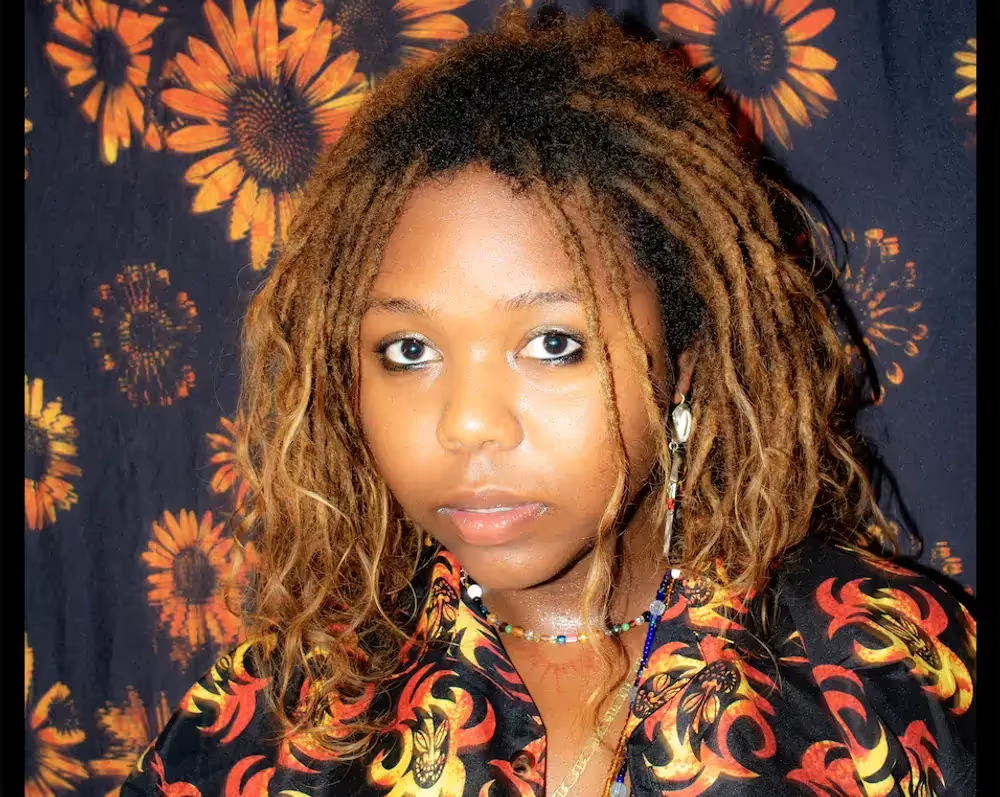
Brazil
Learn more
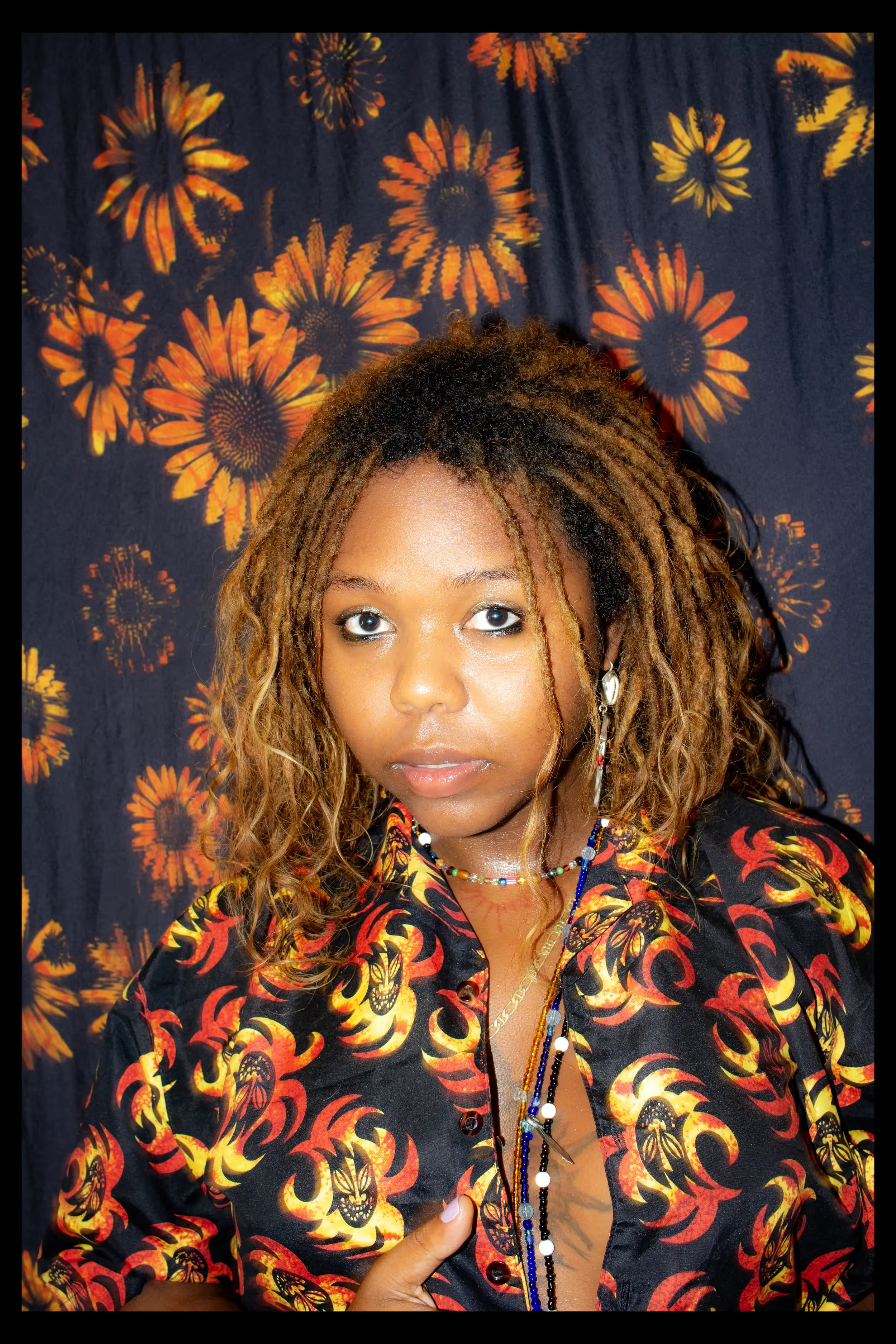
Castiel Vitorino Brasileiro, Brazil
Kalunga, the Origen of species
Biography
Born in Brazil, Castiel Vitorino Brasileiro lives and works on Planet Earth. Through photography, video making, dancing, painting and installation, her practice engages with healing in the existential and bodily fields, and the reterritorialization of the body and the spaces in which it circulates and inhabits. In her multidisciplinary practice, Castiel Vitorino Brasileiro studies the mystery between life and death, and the ways of moving between these existential zones. Her work has been presented in numerous institutions including 35 Bienal de São Paulo (Brazil, 2023) Serpentine (UK, 2023), Visual Arts Center at the University of Texas (USA, 2022), Kunsthalle Wien (Austria, 2021) and the 11th Berlin Biennale for Contemporary Art (Germany, 2020).
Residency project
This project seeks to study the Bantu concept “Kalunga”, which is a principle of transmutation and ecology, a power of metamorphosis (spiritual and philosophical) worshiped in several Bantu-Brazilian religions. For the second chapter of her Kalunga project, Castiel Vitorino Brasileiro will establish a connection between Brazil and France based on the techniques of meditation, dance and body movements of Bantu origin present in these two places, exploring the relationship between drawing and dance. The movement of the body is the movement of history, according to Brazilian historian Beatriz do Nascimento. Based on this thought, she ambitions to create a painting, drawing and dance studio to experience the philosophy of the Bantu gesture through techniques that combine fulfillment, love and freedom.

Mexico
Learn more

Alejandro García Contreras, Mexico
House of Isis
Biography
Born in Mexico, Alejandro García Contreras, lives and works in Guadalajara. Alejandro García Contreras’ work is based on a complex imagery, where Chiapas artisanal production, colonial art, cartoons and pop comics, folklore, mythology and his personal history come together. Just as the creative resources are diverse, so is the materiality of his projects, as they fuse ceramics, graphics, painting and other artistic resources. This combination of elements results in suggestive forms in which the viewer can explore the divine and the evil, the magical, the erotic, the feminine and various taboo dimensions from his orher own unconscious, thus discovering a new sense of divinity through contemporary idols. Recent exhibitions include: Swievel Gallery (USA, 2023), Judd Foundation, (USA, 2023), House of Gaga (Mexico, 2023), Travesia Cuatro Gallery (Mexico, 2023), Friedman Benda (USA, 2022).
Residency project
This residency project refers to the writer François Maspero, who asserts that the cult of Isis was widespread in France, especially in the Paris basin. The research process to be carried out during the residency in Paris aims to exploit access to the cultural and historical richness, diverse information, documents, and objects found in the city’s museums (Musée Gustave Moreau). With a multidisciplinary approach open to the diversity of cultural influences, the goal is to enrich the production in his work, particularly in themes related to archeology and anthropology, 19th-century symbolist art, esotericism, and recurring mythological themes in classical art, linked to the mythology of various human civilizations. Alejandro García Contreras is interested in continuing to explore concepts and symbols, blending various elements from history, mythology, and universal culture. Weaving a fabric that unfolds through a diverse range of elements, resorting to artistic techniques such as ceramics and painting to express concepts enriched from a contemporary perspective.

United Kingdom
Learn more
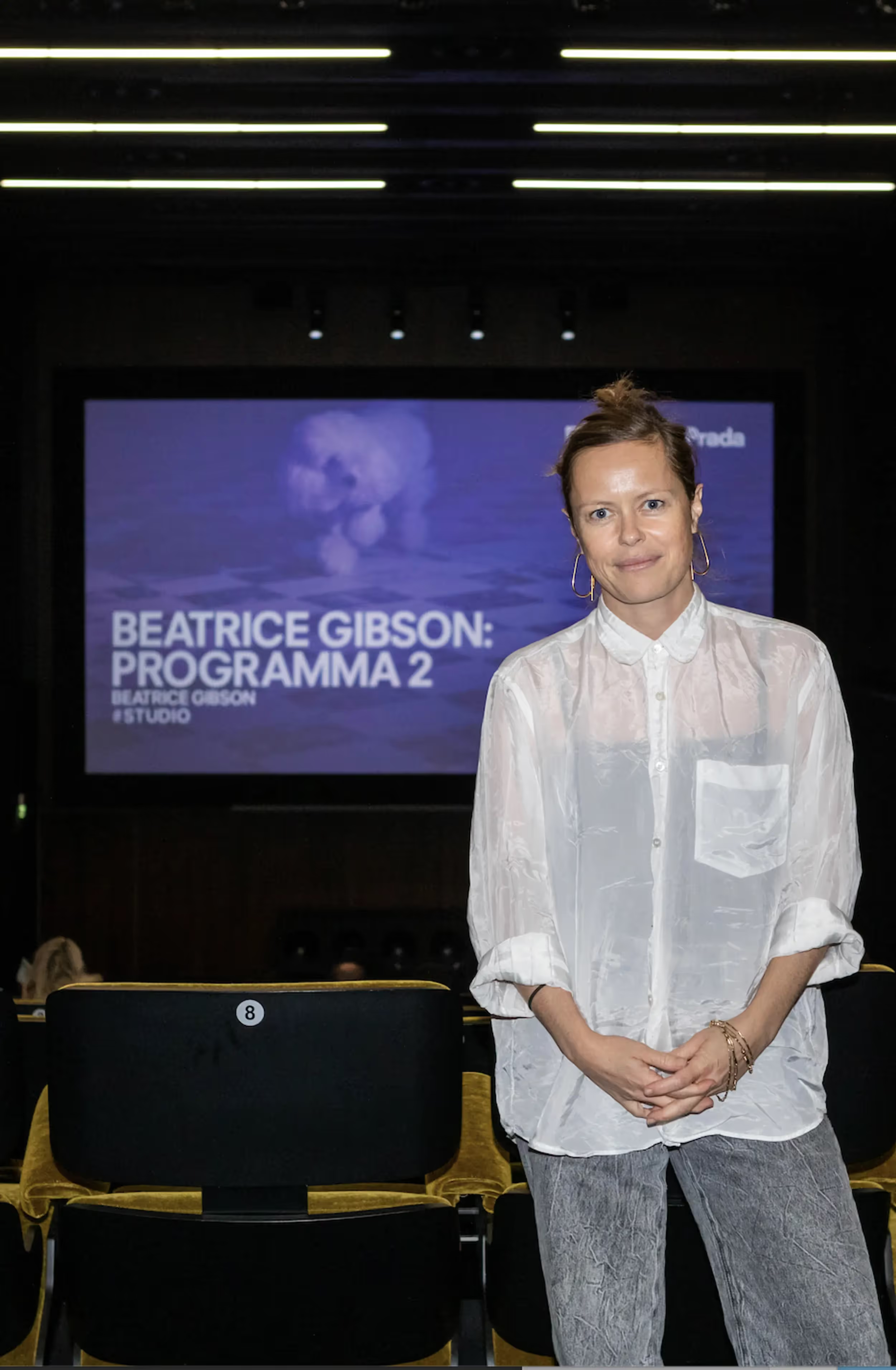
Beatrice Gibson, United Kingdom
The Night
Biography
Born in the United Kingdom, Beatrice Gibson lives and works between London and Palermo. Her films are known for their experimental and emotive nature. Resolutely feminist in form and content they explore the personal and the political and draw on cult figures from experimental literature and poetry - from Kathy Acker to Gertrude Stein. Collapsing fiction and documentary, they range from experimental autobiography to nocturnal thriller and cast friends and influences as their characters and co creators. Beatrice Gibson has recently had exhibitions at Ordet (Italy, 2023), Fondazione Prada (Italy, 2023), Camden Arts Centre (UK, 2019), Mercer Union (Canada, 2019) and KW Institute for Contemporary Art (Germany, 2018). Her latest film Deux soeurs (qui ne sont pas des soeurs), premiered at The Cannes Film Festival in 2019.
Residency project
During the residency, Beatrice Gibson will work on “La Nuit”, a feature film set up in Paris. La nuit is the story of a woman who wanders the streets of Paris after an abortion, embarking on a series of quiet encounters. Radicalized by the birth of her daughter and her experience of racism in the French welfare system she contemplates returning to Bamako, her parents’ home. We follow her through a series of locations, observing as she encounters an array of characters, other beings traversing the city at night. Sitting somewhere between documentary and fiction and liquefying the line between the two, the characters in “La Nuit” don’t talk as much as they emote. They tell each other stories, of things they’ve heard and seen, of experiences they’ve had. As “La Nuit” progresses, dream and reality collapse: we slip into something altogether more hallucinatory, woozy, transgressive.

India
Learn more
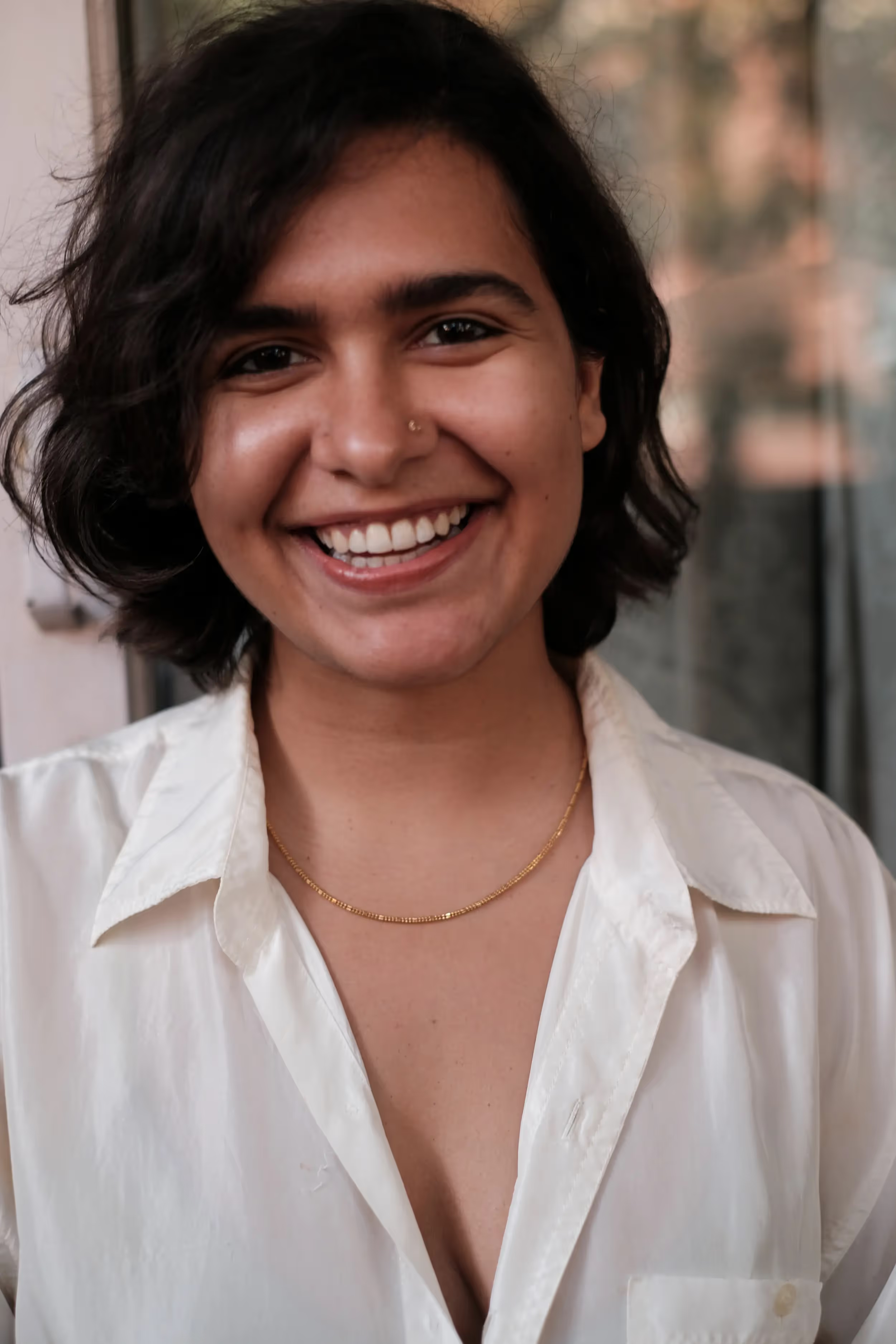
Rajyashri Goody, India
In your voice sings the bird of equality
Biography
Born in India, Rajyashri Goody lives and works between the Netherlands and India. Her research interests include food culture, religious conversion, literacy and literature, mobility and space-making in the context of caste-based violence in India. Using various mediums, including writing, ceramics, photography, video, and sculptural works made with found objects and food items, she attempts to decode and make visible instances of everyday power and resistance within Dalit communities in India. Her work has been presented at numerous institutions and exhibitions, including Jogja Fotografis Festival (Indonesia, 2023), Breda Photo (Netherlands, 2022), Savvy Contemporary (Germany, 2022), Goethe Institut (India, 2022), and Les Rencontres de Bamako (Mali, 2022).
Residency project
Rajyashri Goody’s ongoing research focuses on the popular imagery of leader Dr. Ambedkar and statues of him erected in public spaces and institutions but most commonly seen in Dalit neighbourhoods often situated at the edge of villages, towns and cities, and inside homes along with images of Buddha. In Paris, she will attempt to draw parallels with this imagery and the phrase “Liberté, Egualité, Fraternité” in France, and their significance in gestures of mark-making in public spaces, as well as their links to Buddhism. Dr. Ambedkar’s social philosophy was that of liberty, equality and fraternity, but he derived it not from the French Revolution but from Buddhism. He went on to lead the largest mass conversion to Buddhism in 1956, with hundreds of thousands of Dalit people leaving behind Hinduism in his footsteps. During this residency, Rajyashri Goody will mainly work with text, printmaking, and porcelain, focusing specifically on French porcelain and its history of Faïence patriotique from the time of the French Revolution.
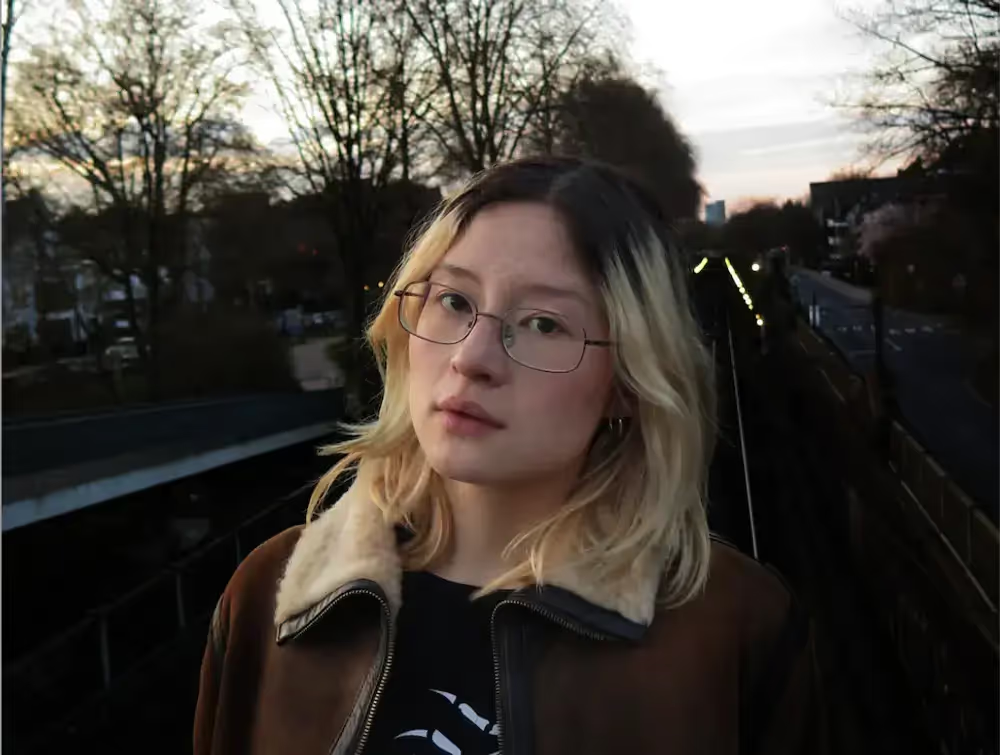
Germany
Learn more
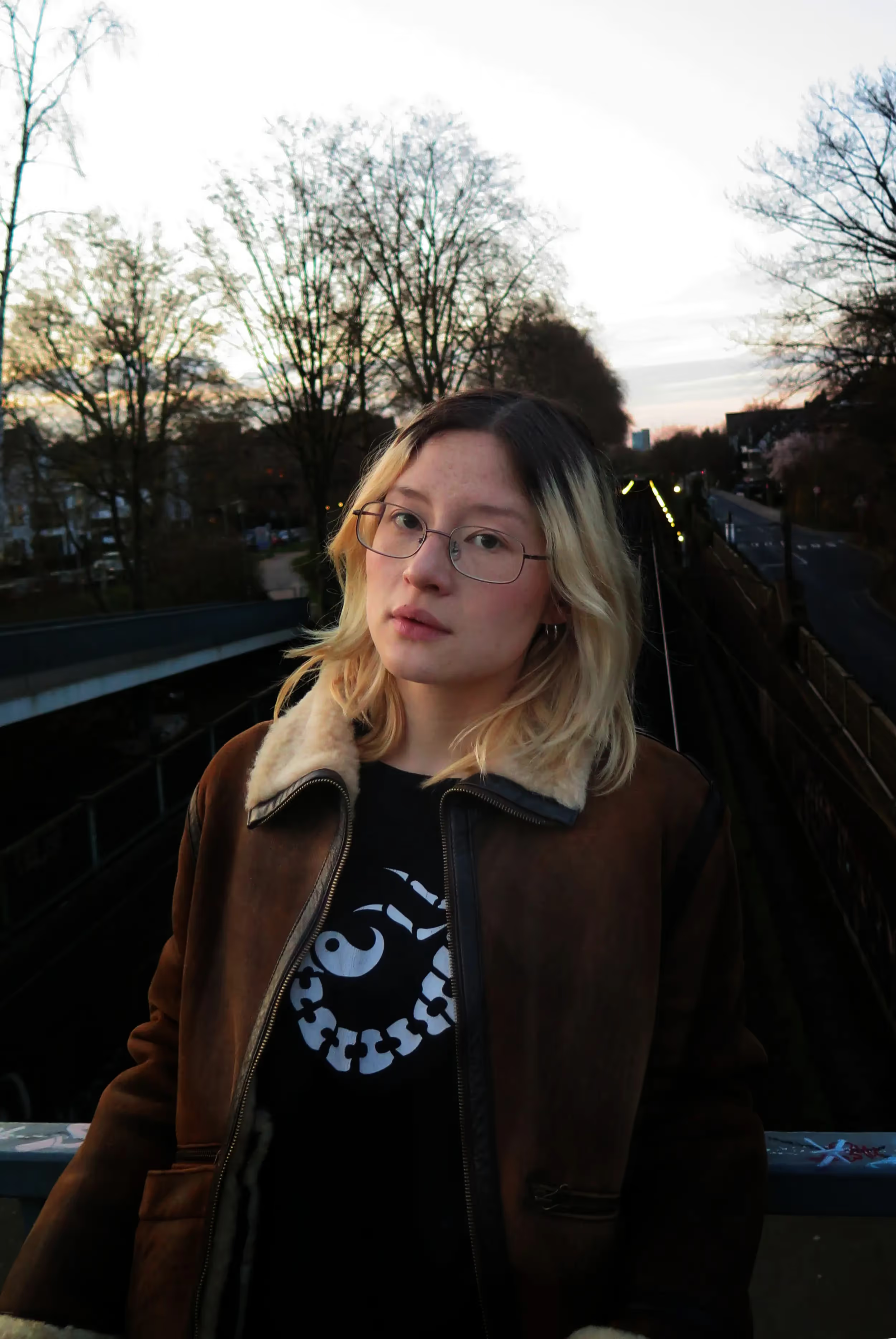
Mira Mann, Germany
Plur-imag-e-in-air-e-s (exploring the utopias,visions and exoticisms of socialist modernism)
Biography
Born in Germany, Mira Mann lives and works in Düsseldorf, Germany. Combining live performance, moving image, scenography and objects, Mira Mann’s work explores themes of cultural hybridity, representation and memory, narrative patterns of underlying canonized and instrumentalized history. They invite to engage with the construction and deconstruction of self, manipulating intermedial tensions between objecthood and subjecthood. Their practice strives to create experiences and encounters that irritate and subvert the status quo of established conventions and power relations of race, class and gender, towards anti-imperialist and intersectional resistance, towards imagination and play. Recent exhibitions include : Frac Île-de-France, les Réserves & Fondation Fiminco (France, 2023), N/A (South Korea, 2023), Serpentine (UK, 2023), Drei (Germany, 2022), Brücke Museum (Germany, 2022), and Kunstverein Bielefeld (Germany 2022).
Residency project
The starting point of this reseach is a book of photographs by Chris Marker, titled «Coréennes», which recounts his trip to North Korea in 1958, organized by the French Communist Party. Among the women in front of his camera, actress and dancer Choi Seung Hee, a star of modern dance and committed socialist, who came to Paris in 1938 to perform at the Theatre National de Chaillot, making an impression on Cocteau, Bataille and Picasso, among others. Through visits, conversations, writing, video and photography, Mira Mann plans to explore the aesthetic, performative, theatrical visions of an international socialist exchange, processes of (self-)exoticization, appropriation and gender performance at the intersection of race, which was largely amplified on the stages of theaters, cabarets, the Paris World Fairs and in museum collections. Like Marker and Choi, they want to build an archive of ideograms, gestures, dances, poses, images, sounds, on fragmented identities and new translations of socialist visions, that awaken the invisible, the gaps and absences that persist in the desire for the imaginary of Asia.
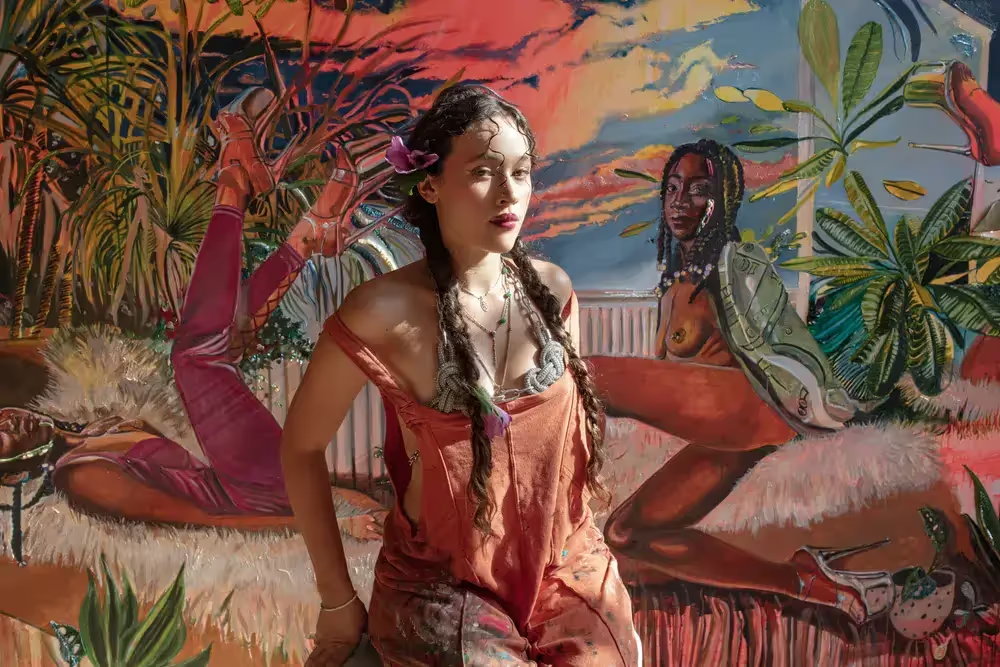
United States
Learn more

Gisela McDaniel, United States
The Tasks of CHamoru Reclamation & ReMatriation: Drilling Down to the Marrow of Parisian Primitivism
Biography
Born in the United States, Gisela McDaniel lives and works in New York. Gisela McDaniel is a diasporic, Indigenous CHamoru artist who explores the effects of displacement and colonisation through portraiture and oral histories. McDaniel interweaves audio interviews, assemblage and oil paintings in order to subvert the traditional power relations of artist and sitter. By incorporating her sitters’ voices and giving them control over their representation, Gisela McDaniel critiques art historical traditions that privilege the artist’s perspective. Her work has been presented in numerous institutions including Frye Art Museum (USA, 2023), Kunsthalle Düsseldorf (Germany, 2023), Museum of Fine Arts Boston (USA, 2023), FLAG Art Foundation (USA, 2023) and ICA Boston (USA, 2022).
Residency project
This residency project involves a thorough exploration of the scholarly history, institutional archives, and contemporary impact of Primitivism in Paris. This will include in-depth interviews with current curators and scholars, with a specific focus on connecting with artists and creatives whose ancestral artifacts and histories are currently undergoing repatriation. Gisela McDaniel aims to establish intentional and respectful connections with Pasifika curators, scholars, and practitioners already involved in research and overseeing the repatriation or reMatriation of CHamoru artifacts held by European museums. Additionally, she plans to conduct research and outreach to diasporic CHamoru communities, connecting with individuals eager to share their contemporary experiences with, and rejection of, Primitivism and its impact on indigenous Pasifika peoples.
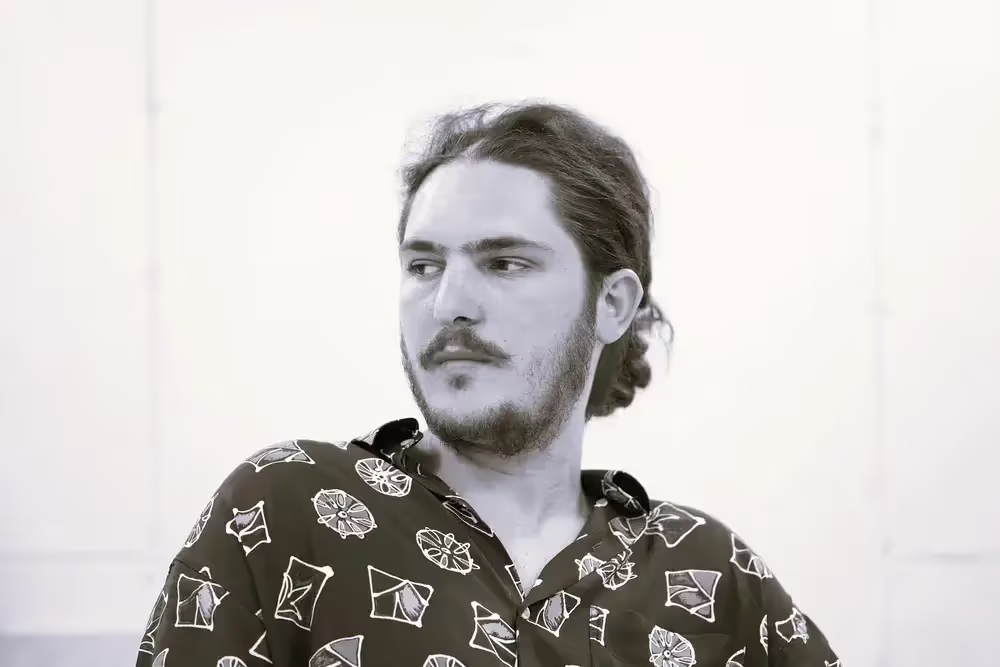
Kosovo
Learn more
%2520(1).avif)
Brilant Milazimi Kosovo
Houseless dogs
Biography
Born in Kosovo, Brilant Milazimi currently lives and works in Prishtina. His works grapple with the function of memory, both personal and collective, and its expression in drawings, paintings and sculptures that seem both familiar and uncanny. Ideas around trauma, hope, coping, and freedom are implicitly and poetically conveyed in his works, manifesting his interest in the psychological underworld of Kosovo and Balkan region. Brilant Milazimi’s work has been presented in numerous institutions including Santa Lucia del Gonfalone (Italy, 2023), Manifesta Biennale (Kosovo, 2022), National Gallery of Kosovo (2021), Ludwig Museum Budapest (Hungary, 2020), Station Contemporary Art (Kosovo, 2019) and the National Gallery of Kosovo (2019).
Residency project
For his project, Brilant Milazimi will explore the concept of borders and the immigrant experience in France through the creation of sculptures using unconventional material symbolizing a cultural fusion. In addition, the project will include a series of paintings and drawings inspired by the Paleolithic cave art in France, exploring the relevance of ancient artworks in contemporary society. Brilant Milazimi aims to deepen understanding of collective history and the role of art in expressing shared human experiences. By exploring the unification and origins of humanity, the project transcends temporal and spatial boundaries, fostering a dialogue that transcends cultural differences. This residency will become a testament to the timeless and universal nature of human connection and expression.
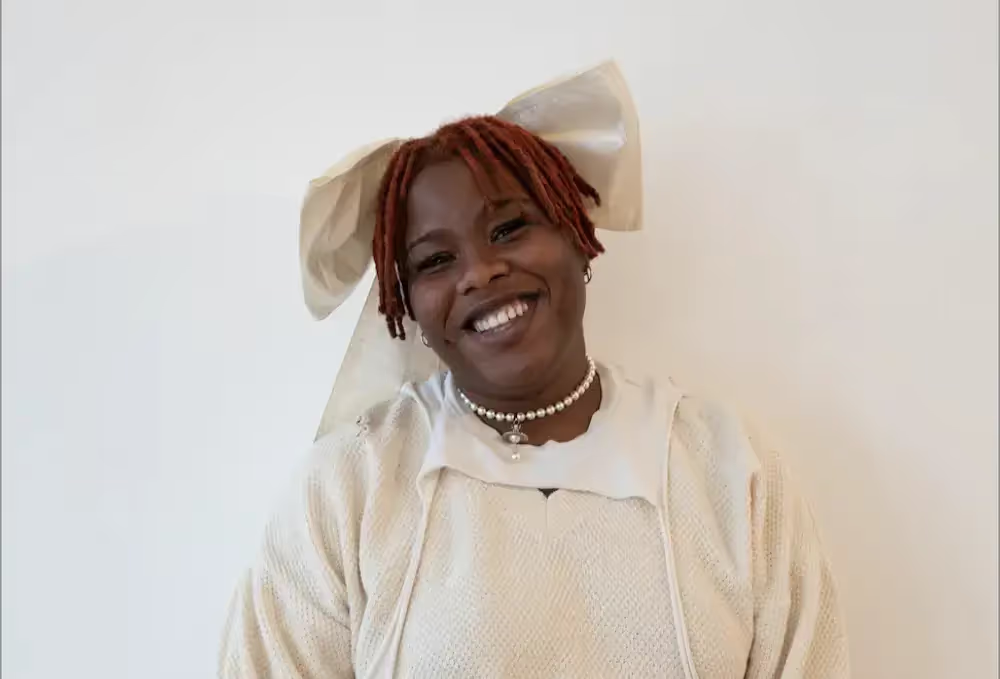
United States / Nigeria
Learn more
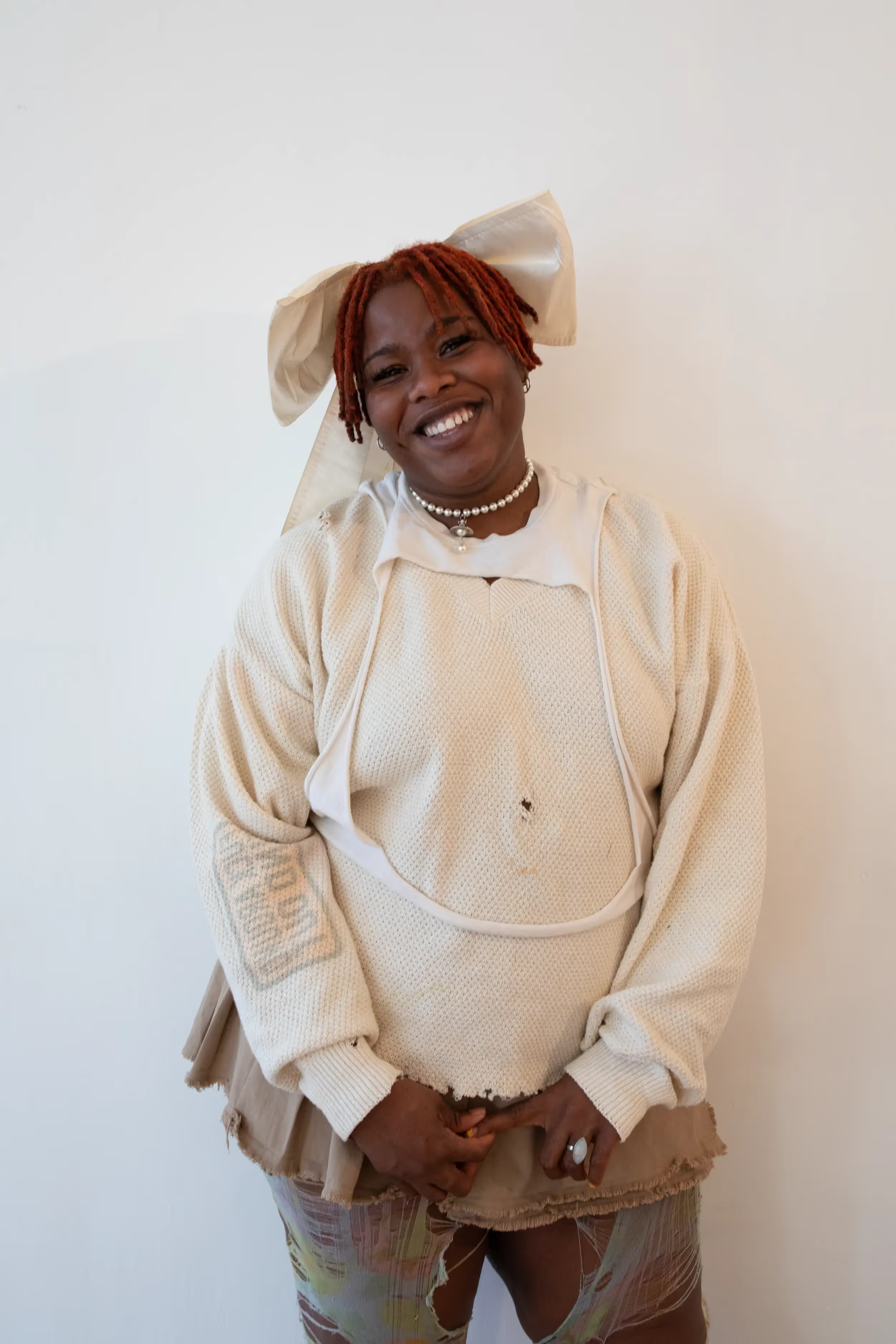
Precious Okoyomon, United States / Nigeria
Sun Of Consciousness
Biography
Born in 1993, Precious Okoyomon, lives and works in New York. Their work considers the natural world, histories of migration and racialization, and the pure pleasures of everyday life. In their practice, organic materials serve a dual purpose: they remind us of our violent histories but also celebrate nature’s ability to adapt and flourish in the face of man-made crises. If their work continually asks us to listen to the natural world, it also contains warnings of what might happen should we fail to act. Recent exhibitions include : Okayama Art Summit (Japan, 2022), Palais de Tokyo (France, 2021), and the Luma Arles (France, 2021), Serpentine Galleries (UK, 2019), Institute of Contemporary Art London (UK, 2019).
Residency project
Following the publication of their first book of poems But Did You Die? in 2023, Precious Okoyomon plans to write their second book, a travel diary engaged with the legacy of French philosophers Simone Weil and Edouard Glissant. Weil and Glissant’s work on the nature of being have served as the conceptual backdrop for Okoyomon’s artistic practice. While in Paris, Precious Okoyomon will continue their research, time-traveling through the writings Glissant and Weil have left behind and, in the process, attempting to make sense of the history of France and its colonial projects.
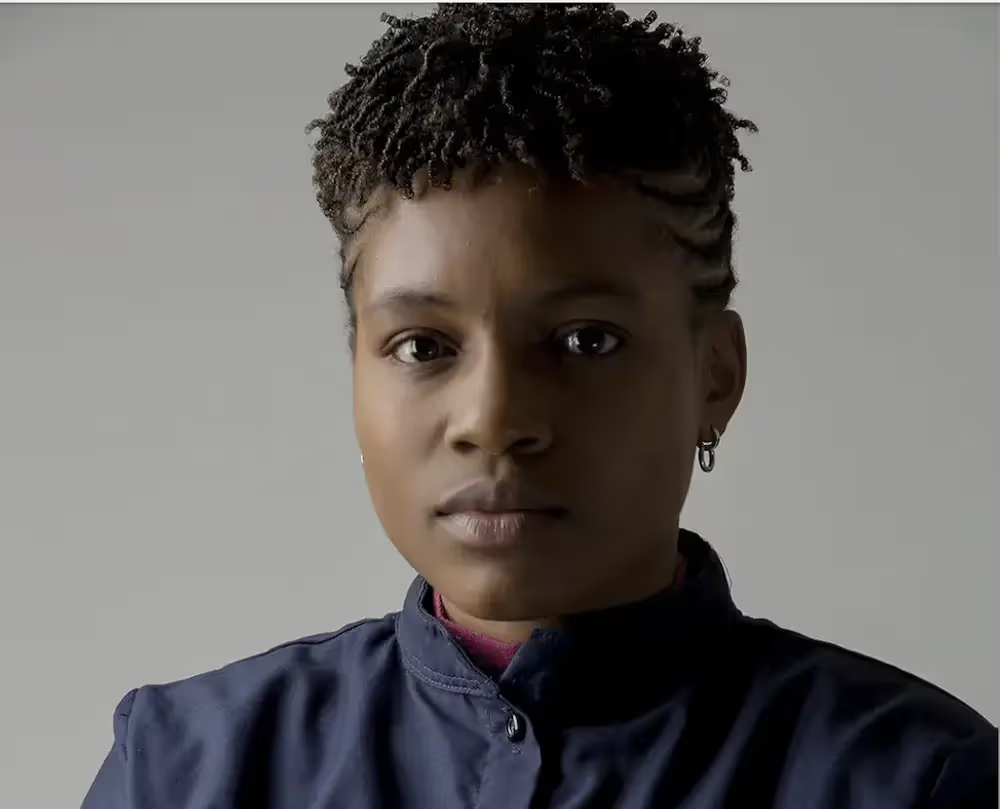
Cameroon
Learn more
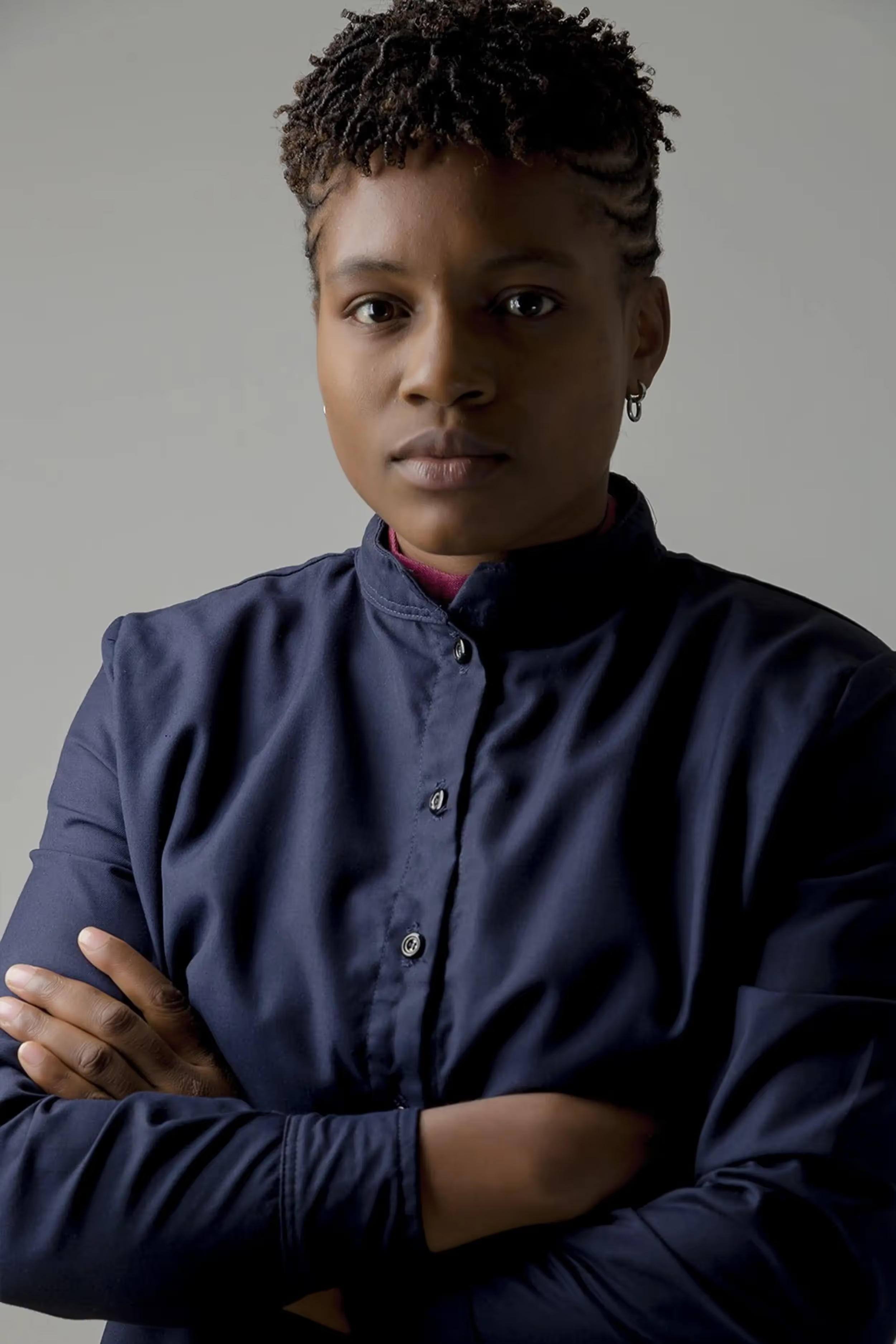
Grâce Dorothée Tong, Cameroon
Minkañ Liaison des Lointains
Biography
Born in Cameroon, Grâce Dorothée Tong lives and works in several regions of Cameroon. Following introspective explorations, her practice focuses on various aspects and reflections around links, connections between people and movements through the weaving of technologies. Grâce Dorothée Tong is interested in craftsmanship in Cameroon and elsewhere, producing works inspired by manual skills that contribute to the development of a sustainable approach. Her work has been presented in numerous institutions, including the Fondation H (Madagascar, 2023), the Institut Français du Cameroun (2022), Bandjoun Station (Cameroon, 2021) and the Musée Nationale du Cameroun (2019).
Residency project
In the urgent need to revisit our ancestral technologies, connecting distant lands becomes an obvious form of continuity. This residency project is the continuation of research accumulated over the course of several trips devoted to the study of various creative technologies and archives. Having begun in certain regions of Cameroon more than 6 years ago, these researches and collaborations represent alternative narratives of places and exchanges that reiterate the links in the wake of cultural fractures. Grâce Dorothée Tong will carry out research and creative work in the heart of rural areas, providing an opportunity to get closer to the technologies of the French craft industry and to meet its ecosystems in order to build bridges that engage people. The aim of this project is to connect and give birth to productions based on shared roots that cross and weave through intermediary means of activating knowledge.

France
Learn more
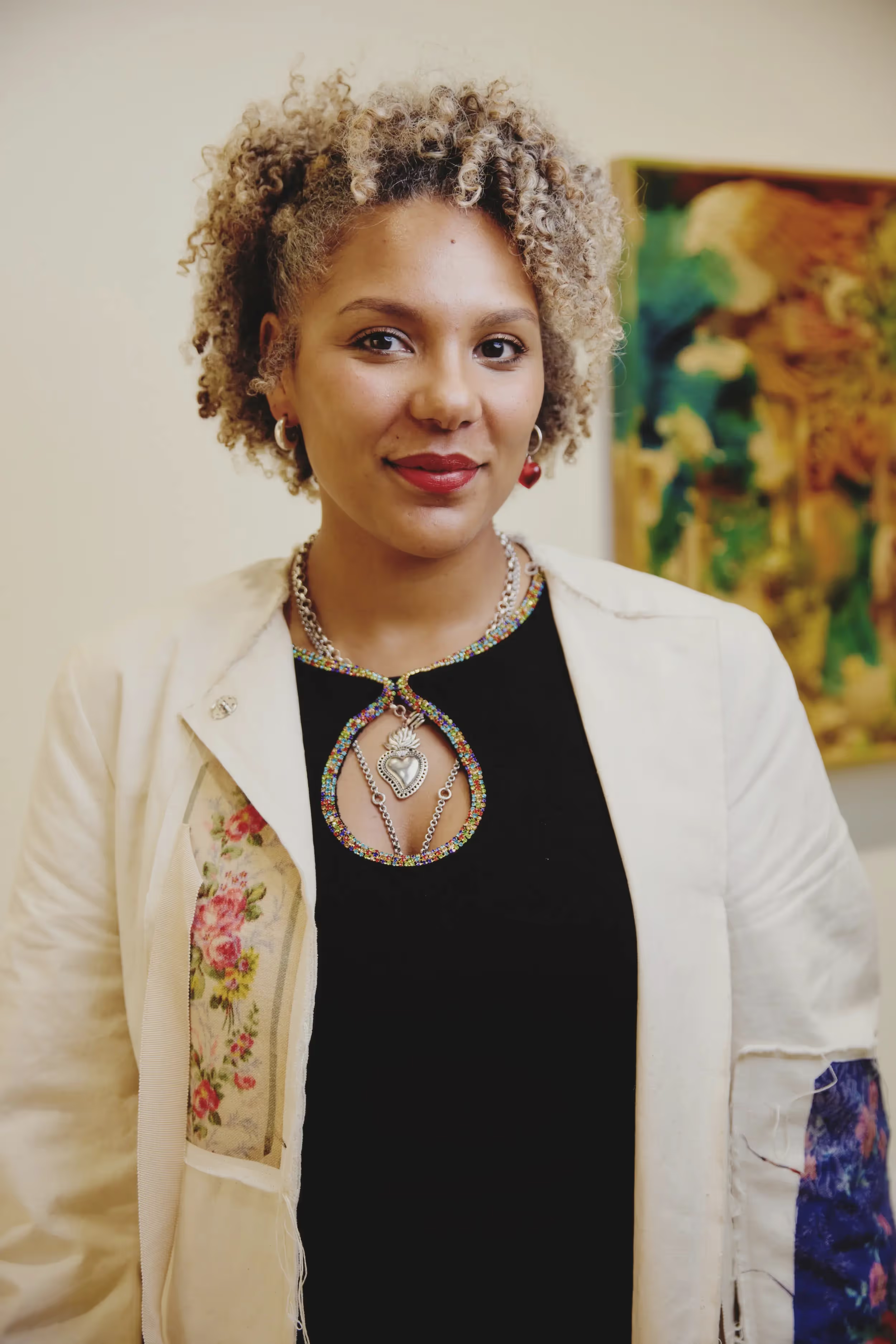
Gaëlle Choisne, France
Permanent State of Living
Biography
Born in France in 1985, Gaëlle Choisne lives and works in Paris. The daughter of a Haitian mother and a Breton father, Gaëlle Choisne blends oral traditions, Creole mythology and popular culture in works that reflect both Haitian history and her own personal narrative. Her practice combines a documentary approach (photography and video) with the use of raw materials, addressing socio-political issues linked to the over-exploitation of natural resources and colonial history. She has had numerous solo and group exhibitions, including at the Acacia Art Center (France, 2023), MAC VAL (France, 2022), MAMVP (France, 2022), Galerie Air de Paris (France, 2021), GIBCA Göteborg International Biennial of Contemporary Art (Sweden, 2021), 5th New Museum Triennial (USA, 2021), The Mistake Room (USA, 2019) and Bétonsalon (France, 2018). Gaëlle Choisne was recently nominated for the Prix Marcel Duchamp 2024.
Residency project
Drawing on the writings of Japanese author Masaru Emoto and French researcher Jacques Benveniste on the thought and memory of water, Gaëlle Choisne combines them with poetic, philosophical and political reflections on the legacy of slavery, the sea, health and ecology. She refers in particular to the writings of poet and essayist Edouard Glissant, who evokes the deep links between the sea and the collective memory of black populations and descendants of slaves. In parallel with iconographic research linked to the sea and slave deportation at the Musée du Quai Branly Library and in various archive collections, Gaëlle Choisne wishes to collaborate with architect Nicolas Vernoux and his biologist brother Teva Vernoux to create an innovative sculptural work using sargasse, a seaweed found on the beaches of the West Indies and Normandy. The project will take the form of an immersive installation using ecological and recycled materials, and will also be the subject of an experimental video addressing the illnesses that specifically affect Afro-descendants.
Find out more about our residences
The 2024 selection committee

Art critic and director of the Museo Tamayo of Contemporary Art
Learn more

Magali Arriola is director of the Tamayo Museum in Mexico City. Between 2016 and 2019, she was chief curator for KADIST in Latin America, and curator of the Mexican Pavilion for the 58th Venice Biennale(Pablo Vargas Lugo, Acts of God, 2019). Between 2011 and 2014 she was chief curator of the Jumex Museum, and chief curator of the Tamayo Museum between 2009 and 2011. Arriola has contributed to numerous books and catalogs, as well as publications such as Art Forum, Curare, Frieze, Mousse, Manifesta Journal, and The Exhibitionist.
Photo credit: Pedro Luján. Courtesy Revista Capitel.

Artistic Director of the Samdani Art Foundation and Chief Curator of the Dhaka Art Summit
Learn more

Diana Campbell Betancourt is an American curator who has been active in South and Southeast Asia since 2010, mainly in India, Bangladesh and the Philippines. She is committed to the globalization of the art world, and takes a long-term, multi-faceted approach that addresses the concerns of under-represented territories and artists, as well as those of more established artists, in numerous forums.
Since 2013, she has been artistic director and founder of the Samdani Art Foundation, based in Dhaka, Bangladesh, and chief curator of the Dhaka Art Summit, whose critically acclaimed 2014, 2016, 2018 and 2020 editions she has directed. She has established the Dhaka Art Summit as one of the leading research and exhibition structures dedicated to art in South Asia, bringing together artists, architects, curators and writers from across South Asia through a primarily commission-based model. Alongside her activities in Bangladesh from 2016 to 2018, Diana Campbell Betancourt was also the artistic director and founder of Bellas Artes Projects in the Philippines, a non-profit international residency and exhibition programme based in Manila and Bataan.

Philosopher and lecturer at EHESS
Learn more

Emanuele Coccia teaches at the EHESS in Paris. He is the author of La Vie sensible (2010), La Vie des Plantes (2018), Métamorphoses (2021) and Philosophie de la maison. L'espace domestique et le bonheur (2023). His animated videos include Quercus (2019, with Formafantasma), Heaven in Matter (2021, with Faye Formisano) and Portal of Mysteries (2022, with Dotdotdot). He participates in several exhibitions as an advisor. He is currently co-authoring a book on the relationship between fashion and philosophy with Alessandro Michele, Creative Director of Gucci.
Photo credit: Frank Perrin.

Deputy Artistic Director of the Fondation Cartier pour l'art contemporain
Learn more

Artistic director, curator and producer Isabelle Gaudrefroy is currently Deputy Artistic Director of the Fondation Cartier pour l'art contemporain. She began her career at the Théâtre des Amandiers in 1995. From 1999 to 2010, she directed the Soirées Nomades at the Fondation Cartier. In 2011, she joined the Fondation's management team and curated landmark exhibitions such as Junya Ishigami, Freeing Architecture in 2018 and Nous les Arbres in 2019.
Photo credit: Valentin Le Cron

Director of the Haus der Kulturen der Welt (HKW) in Berlin
Learn more

Since January 2023, Bonaventure Soh Bejeng Ndikun has headed the Haus der Kulturen der Welt (House of World Cultures) in Berlin. Previously, he was artistic director of the 13th Rencontres de Bamako in 2022, curator of the Finnish pavilion at the 58th Venice Biennale in 2019, guest curator at the Dakar Biennale in 2018, and member of the curatorial team at Documenta 14, in Athens and Kassel in 2017. In 2009, he founded SAVVY Contemporary, an independent art center based in Berlin.
Photo credit: Alexander Steffens

Artistic Director, Serpentine Galleries
Learn more

Hans Ulrich Obrist, born 1968 in Zürich (Switzerland), is artistic director of the Serpentine Galleries in London. He was previously curator of the Musée d'Art Moderne de la Ville de Paris. Since his first exhibition, "World Soup" (The Kitchen Show) in 1991, he has organized over 300 exhibitions, and has lectured internationally at art academies and institutions. He is editor-in-chief of Artforum, AnOther Magazine, Cahiers d'Art and 032C, and a regular contributor to Mousse and Kaleidoscope. He also writes columns for Das Magazin and Weltkunst. Obrist received the CCS Bard Award for Curatorial Excellence in 2011, and the Folkwang International Award for his commitment to art in 2015. Recent publications include Ways of Curating (2015), The Age of Earthquakes (2015), Lives of the Artists, Lives of Architects (2015), Mondialité (2017), Somewhere Totally Else (2018) and The Athens Dialogues (2018).
Photo credit: Tyler Mitchell.
Residents 2023
First session - from spring 2023
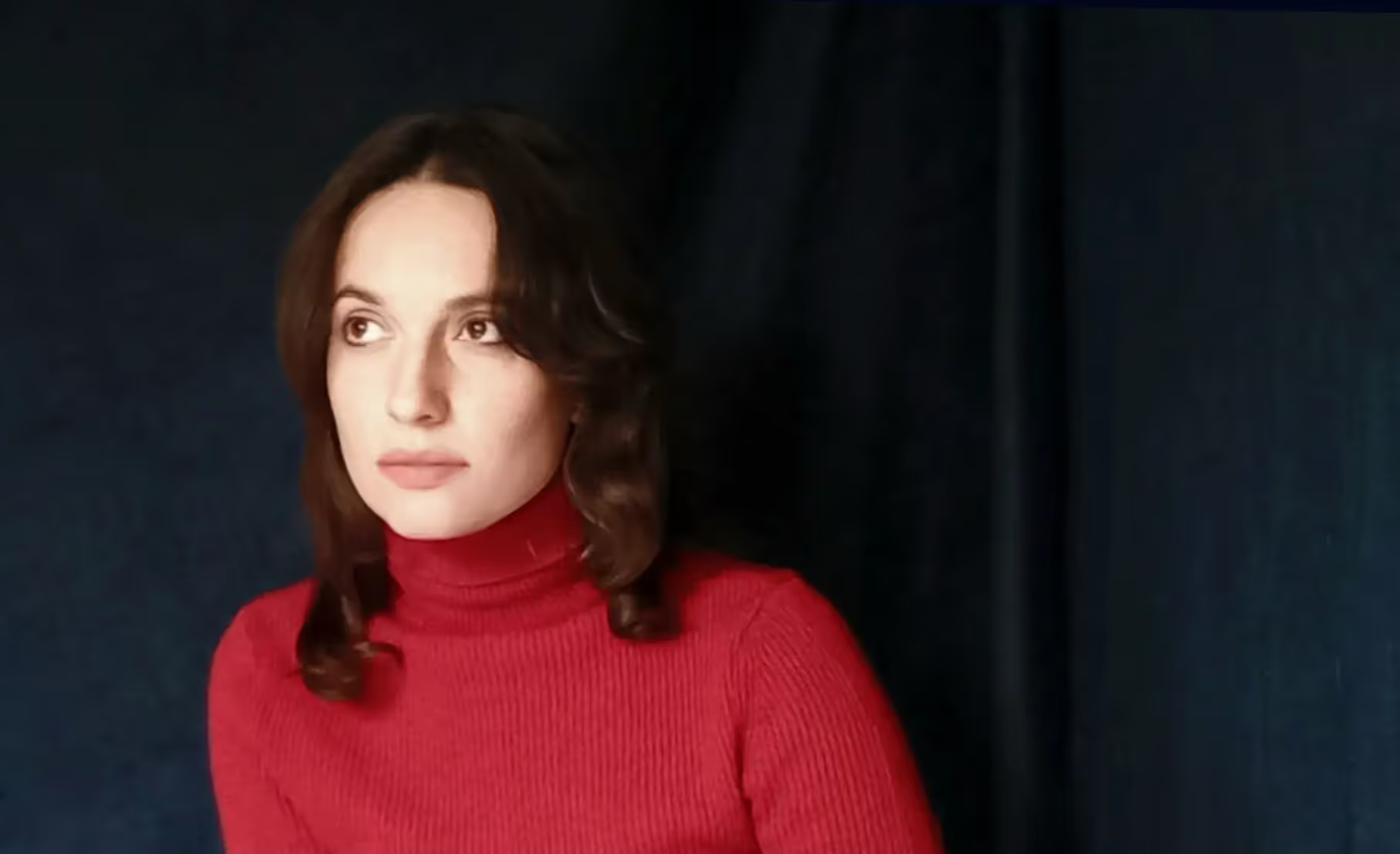
Albania
Learn more
.jpg)
Bora Baboçi, Albania
Five Disappeared Kilometers
Biography:
Bora Baboçi was born in 1988 in Tirana. She lives and works in Tirana. She has a background in architecture and spatial research and her artistic works range from drawings to performative installations. She uses real or fictionalised settings, from the domestic to the environmental scale, to disentangle our perceptions of physical space and how it alters our emotions, behaviours and existential experience. Her work has been presented in numerous institutions and exhibitions including Manifesta Biennale (Kosovo, 2022), Mediterranea Biennale (San Marino, 2021), The National Gallery of Albania (2021), Eva International Biennale (Ireland 2020), Zentrum fur Kunst und Urbanistik (Germany, 2017).
Residency project:
The main subject of Bora Bobaçi’s project are five disappeared kilometers of the river Bièvre. Buried in the undergrounds of Paris since the beginning of the 1900s, literature of the time has described the river with an aesthetics of a cloistered, indoored and disembodied artificiality that has been compared by scholars to modern day virtual reality and hypermediated spaces of artifice. Today through a process called daylighting rivers, several rivers around the world have been brought back to the surface. Within a staged setting in the residency, using an interior and almost domestic perspective, the five disappeared kilometers of the Bièvre will be a space of contemplation, critique and artistic expression. Through archival material, spatial composition and drawings, Bora Bobaçi would like to explore the changes of narrative and how we go about daylighting these seemingly natural entities when they fuel our revised understanding of ecology and nature.
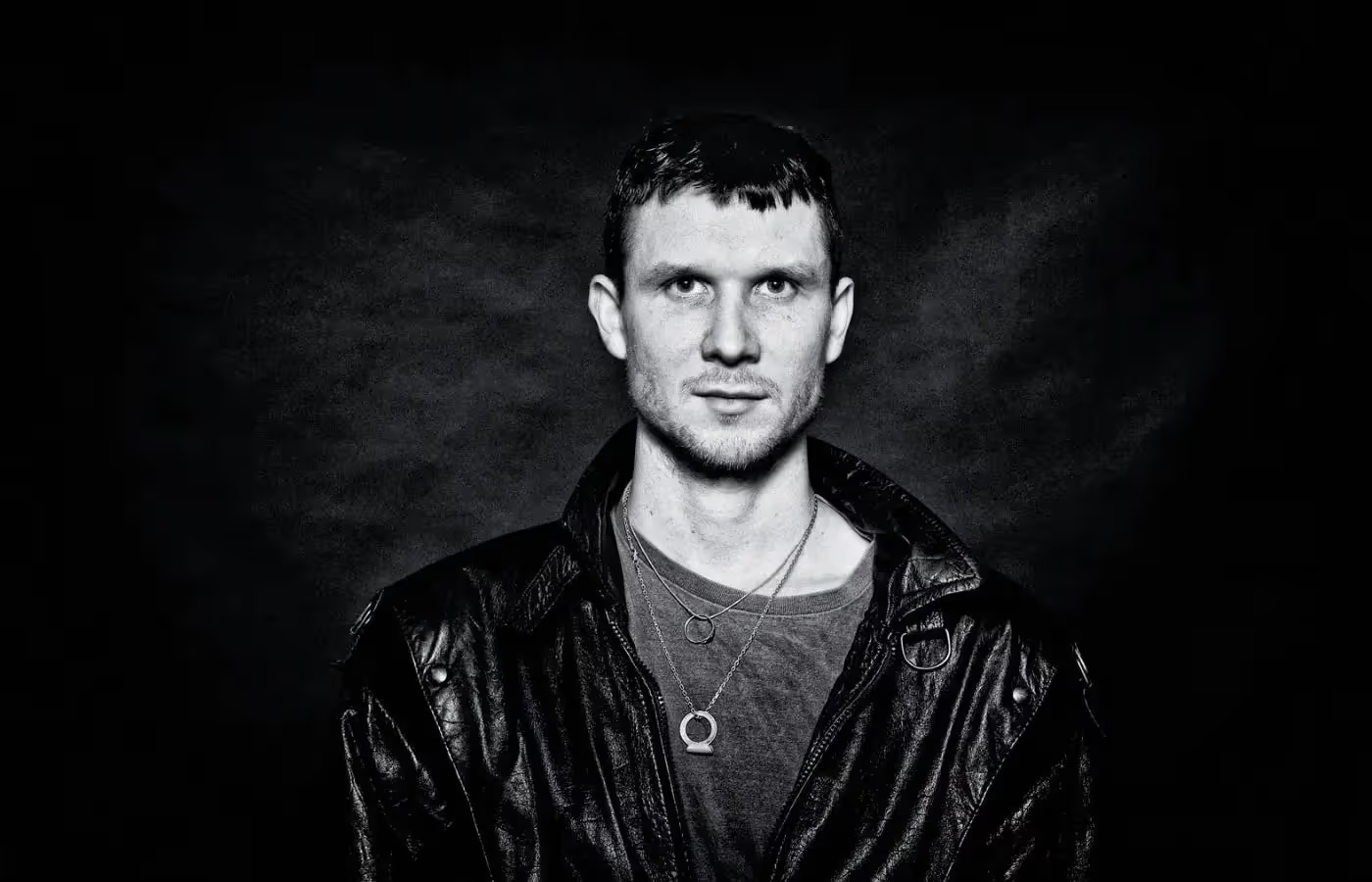
Poland and United Kingdom
Learn more
.png)
Alex Baczyński-Jenkins, Poland and United Kingdom
Absurd Passage
Biography:
Alex Baczyński-Jenkins was born in 1987 in London. He lives and works in Berlin. Alex Baczyński-Jenkins is an artist and choreographer engaging with queer affect, embodiment and relationality. Through gesture, collectivity, touch and sensuality, his practice unfolds structures and politics of desire. His works have been presented in Museo Nacional Centro de Arte Reina Sofia (Spain, 2022), Museum of Contemporary Art Kiasma (Finland, 2022), Meetings on Art at the 58th Venice Biennale of Art (Italy, 2019) Kunsthalle Basel (Switzerland, 2019) Chisenhale Gallery (United Kingdom, 2017).
Residency project:
Alex Baczyński-Jenkins will continue with his research into the looped and tangled relations of desire and loss, while focussing on disorientation, the thresholds of recognition, the eerie and the absurd. He will also take this time to reflect on his methodologies and the medium of choreography as a way of producing experiences of emergence and shifting perceptions of time. This will happen in dialogue with collaborators and in response to the context.Through this residency he will develop performance scores and writing, have movement research time and rehearsals with performers, contributing to the development of a new body of work.

Egypt
Learn more
.jpeg)
Iman Issa, Egypt
I, the Protagonist
Biography:
Iman Issa was born in 1979. She lives and works in Berlin. Her practice is concerned with the systems that govern the rules of perception and allow for the generation of meaning. Her work has been widely shown in venues including KW Institute of Contemporary Art (Berlin, 2021), Hamburger Bahnhof (Berlin, 2017), MoMA (New York, 2017), the Solomon R. Guggenheim Museum (New York, 2016), MACBA (Barcelona, 2015). She has also participated in the Whitney Biennial (New York, 2019), the 12th Sharjah biennial (2011), the 8th Berlin Biennial (2014), and the 7th Gwangju biennial (2018) among others. She is a recipient of the Vilcek Prize for Creative Promise (2017), the Louis Comfort Tiffany Foundation Award (2015), HNF-MACBA Award (2012), and the Abraaj Group Art Prize (2013). Since 2020, Iman Issa has been a professor at the Academy of Fine Arts in Vienna.
Residency project:
The project I, the Protagonist explores how a definable notion of self and other intersects with the history of portraiture and its interpretation as a form historically associated with the representation of a visual and conceptual coherence of a figure. These notions will be explored in relation to the shifting individuality on which portraiture is based and by examining representations of existing and invented figures in the collections of the Institut du Monde Arabe in Paris.

Morocco
Learn more

Lina Laraki, Morocco
Insolent Visions
Biography:
Lina Laraki was born in 1991 in Casablanca (Morocco). She lives and works in France.
Lina Laraki is a film director and visual artist graduated from Central Saint Martins (2014) and Le Fresnoy (2022). Her practice probes obscure themes exploring the ambivalence of nature and human experiences. She expands the experience of cinema through sensorial representations.
Her films have been shown internationally, that includes Karama at 1:54 Art Fair, UK in 2017 - The Last Observer at Sheffield DocFest, UK in 2021, Halves Through Night at Fantasia IFF, Canada in 2022. Her latest film Shinigami was awarded the Renato & Christine Casciani prize (Around Video Art Fair) in France in 2022.
Residency project:
Following a form of speculative investigation focused on the diverse mental states coupled with anatomical medicine in the face of institutional violence, Lina Laraki would like to examine the way madness was identified and treated in the great gloomy madhouse of La Salpêtrière in the 19th century, and relate it to our contemporary approach of what is considered marginal behaviors and mental disability. The core idea of this project lies in the diversion of the classification system of definitions of madness through elaborated characters, role plays and inverted situations in which narration becomes layered and complex. This new piece of work will be the continuation of her practice, which is led by rhizome thoughts on human deviances (social, behavioral or mental) and their marginalizations from functioning society.

Kosovo
Learn more
.jpg)
Flaka Haliti, Kosovo
WHOSE BONES?
Biography:
Flaka Haliti was born in 1982 in Prishtina (Kosovo), she lives in Munich and Prishtina. Her artistic practice includes mixed media, and spatial sitespecific installation. Appropriation and Abrogation are continuous lines whereby a new aesthetics as a hybrid state of in-between is created as a new agency that challenges humanist perspectives and their authority over-representation and abstraction. Flaka Haliti represented Kosovo at the Venice Biennale in 2015. Her work has been shown in numerous institutions including mumok - Museum Moderne Kunst in Vienna (Austria, 2014), Museum Ludwig (Germany,2019), Hamburger Bahnhof (Germany, 2019), Museum Lenbachhaus (Munich 2021, 6th Moscow Biennale (2015), Busan Biennale (2018), Baltic Triennial (Vilnius 2021, Manifesta 14, (Prishtina, 2022).
Residency project:
The animal representations in a sculpture series of Whose Bones? comprises lifesize skeletons composed of the bones of two different animals— an imaginary hybrid, or a political metaphor. It thus alludes to an in-betweenness as a new form of agency, which is deemed crucial to our times in which qualities that used to distinguish seeming opposites can no longer absolutely apply when it comes to the politics of representation. To expand on this line through a collaboration with le Musée de la Chasse et de la Nature in Paris. Flaka Haliti intends to research the sculptural aspects of specimens of cohabitation, survival, hunting, taxonomy and aesthetics through both contemporary art and heritage collections.
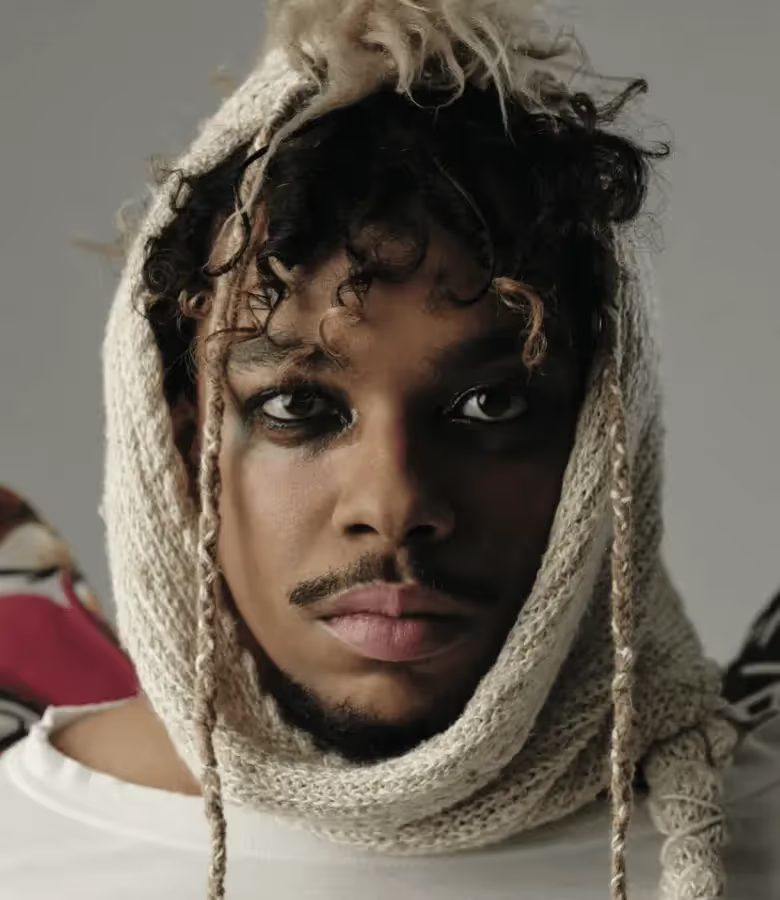
Brazil
Learn more

Gabriel Massan, Brazil
Ball Of Terror: The Failure Of Continuity
Biography:
Gabriel Massan was born in 1996, in Rio de Janeiro (Brazil). He is a Brazilian multidisciplinary digital artist, based in Berlin. Across 3D animation, digital sculpting, single-player games, NFTs, and virtual and augmented reality, the artist investigates notions of strangeness and ignorance regarding the imaginary of the ‘Third World’. Gabriel Massan creates worlds that simulate inequality within the Black-Indigenous Latin American experience by combining storytelling and worldbuilding techniques. Gabriel was the Circa ‘Class of 2021’ Selected Artist, 2022 Bangkok Biennale Online Pavillion Invited Artist, The Photographers’ Gallery Open Space and X Museum’s X Virtual Digital Commission artist, and is a 2022-23 Serpentine Arts Technologies Digital Commission artist.
Residency project:
Ball Of Terror is a multidisciplinary series of works that invite the public to reflect, through interactive storytelling, cases of police brutality and institutional racism, using experiences in simulations, worldbuilding, and games. On that, the project intends to research and discuss the similarities in approach and behavior between the Paris and Sao Paulo police, looking at the aggression against Michael Zecler in 2020 to develop an interactive game experience that portrays spaces of refuge and defense conducted by self-identified targets. In a draw to reroute the outbreaks of violence suffered as a former resident of a drugs conflict territory, Ball Of Terror was first commissioned in 2022 by the X Museum as a metaverse installation and later for a video proposal by the FACT Audiovisual Residency Program. For on-site broader development in 2023, Gabriel Massan aims to produce its third act during the residency.

Argentina
Learn more
.jpeg)
Ad Minoliti, Argentina
I ▲ R0C0C.0
Biography:
Ad Minoliti was born in 1980 in Buenos Aires, Argentina, where they live and work. Ad Minoliti’s draws on the legacy of geometric abstraction in their native country, Argentina, where geometry was used as a tool to imagine utopian political and social alternatives. The artist combines personal abstraction and playful figuration freely inspired by the codes of children’s iconography. Ad Minoliti’s work has been presented in multiple institutions, including Tate, St Ives (UK) in 2022, CCC OD, Tours (France), and Baltic Center for Contemporary Art, Gateshead (UK) in 2021, and Museo de arte moderna, Buenos Aires (Argentina) in 2018. Upcoming shows include Kunstpalais, Erlangen (Germany), in 2023.
Residency project:
Ad Minoliti wants to explore the role of Latin American Modern Art as a young force that can renovate the production and reception of contemporary art. Once the capital of the intellectual, artistic, and sexual fantasy of European maledominated avant-garde, Paris stands as a special spot in which to develop an experimental analysis of feminist queer art and their Latin American identity within an international milieu. During the residency, she will develop a group of pieces of different media and materials, blending Rococo and Arte Madí (1) aesthetics, design and imagery that will form an installation in their studio composed of miniature dioramas, photos, objects, Gif animations, collages from Photoshop, and more traditional paintings and drawings.
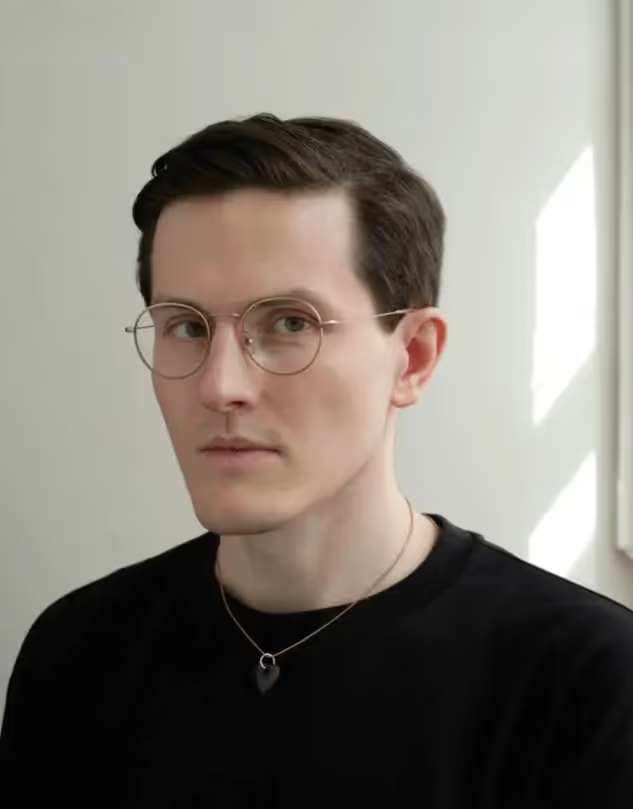
Russia
Learn more

Kirill Savchenkov, Russia
The Solar Snow
Biography
Kirill Savchenkov, born in 1987 in Moscow, currently lives in France. He works with various media including mediated sculpture, installation, performance, and sound. His artistic practice raises the questions of agency, identity and autocracy in the tech-social milieu. He was nominated to represent Russia in the national pavilion at the 59th Venice Biennial in 2022 but withdrew from the project in protest over the full-scale Russian invasion of Ukraine. Over the years, his works have been presented in institutions such as Transart Festival, Italy, 2022; 14th Baltic Triennial, Lithuania, 2021; Garage Museum of Contemporary Art, Russia, 2021; V-A-C Zattere, Italy, 2019; 12th Gwangju Biennale, South Korea, 2018.
Residency project
The project The Solar Snow is focused on the analysis of manipulative dictatorship and oppression based on informational manipulation and the production of uncertainty in multiple dimensions. After the beginning of the full-scale Russo-Ukrainian war that put together colonialism, resentment and informational autocracy, into a deadly potion, the mechanics of control got entangled with recursiveness and violence in the necro-political state. Kirill Savchenkov will focus on the notions of agency and failed political resistance in this political context. The result of the residency will be a transmedial work based on the archeology of social and sonic media, personal observations, and collaboration with social science scholars.
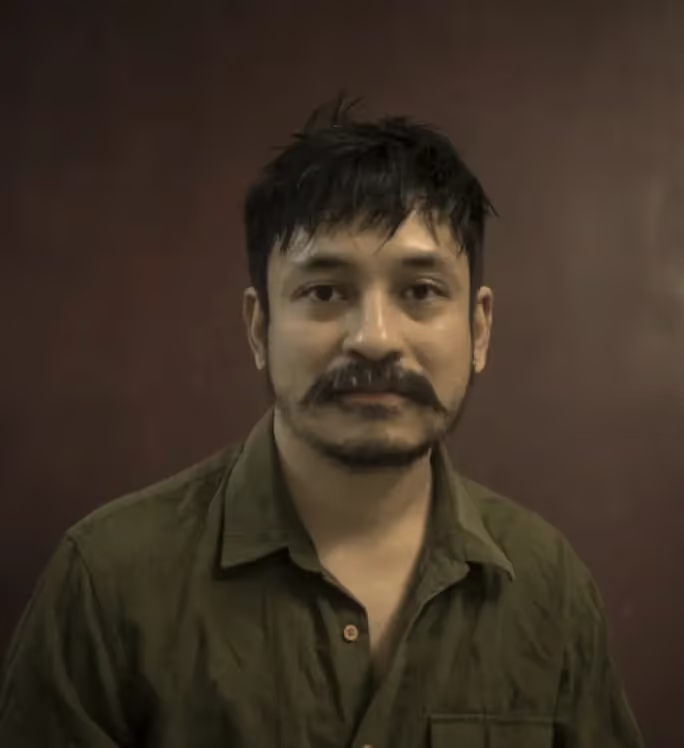
India
Learn more

Karan Shrestha, India
a flow disrupted
Biography
Karan Shrestha was born in 1985, in Kathmandu. He lives and works in Kathmandu (Nepal) and Mumbai (India). His practice incorporates drawings, sculpture, photography, text, film and video that speak to the complex, entangled relations of Nepal’s recent history. His projects are a synthesis of an archive of the terrain, political histories, transient memories and a speculative world that suspends reality, probing all the while at the fraught rhetoric of progress that is constantly pitted as the only way forward. Karan Shrestha’s work has been presented in numerous institutions including Jameel Arts Centre (UAE, 2022); Kathmandu Triennale 2017 & 2022 (Nepal), Museo Madre (Italy, 2021); 10th Asia Pacific Triennial, QAGOMA (Australia (2021), and Dhaka Art Summit (Bangladesh (2020), among others.
Residency project
A flow disrupted holds words and images together to survey the state of water in Nepal in the 21st century. This ongoing work expands on the vocabulary of the 17th century Newari manuscript illustrating scenes of historical teachings concerning South Asian weather. Texts ranging from poetry to articles, excerpts to testimonies, supplemented by paintings, address illegal sand mining, shrinking wetlands, displacement of marginalized groups, the caste hierarchy, change in weather patterns and agricultural practices, and more. Alongside a flow disrupted, an animation film will be developed propounding further the visions and ideas depicting the interconnectedness and interrelation of life forms, foregrounding indigenous knowledge systems that emphasize symbiotic and dynamic associations. Sung from the perspective of water, the work will encompass plural realities, containing in its flow: myths, memories, histories, flora and fauna subject to climate change and imbalances and inequalities triggered by human activity.
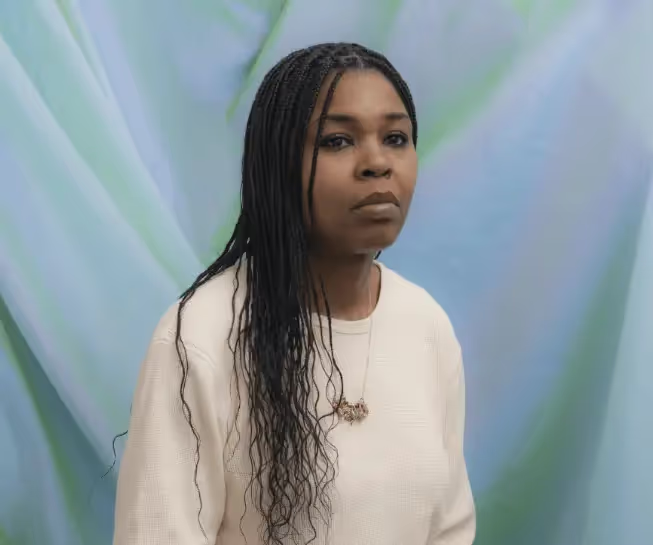
United States
Learn more
.jpeg)
Diamond Stingily, United States
Work
Biography
Diamond Stingily was born in 1990 in Chicago, Illinois. She lives and works in New York City. Her work explores themes of class, race and gender and is infused with the deeply personal, incorporating references to her family and her own childhood. Her work has been presented in numerous institutions including Museum of Modern Art, New York (USA, 2022), Kunstmuseum Liechtenstein (Liechtenstein, 2022), Kunstverein Munich (Germany, 2019), CCA Wattis Institute for Contemporary Arts (USA, 2019), Institute of Contemporary Art Miami, Florida, USA (2018).
Residency project
During her residency, Diamond Stingily will examine the manuscript of a novel inspired by Antonin Artaud’s muse, the author and actress Colette Thomas, who wrote Le testament de la fille morte (1954) under the pseudonym René. Diamond Stingily will also explore the work of American authors who lived and died in France, such as James Baldwin and Richard Wright, and will produce new sculptures and videos inspired by his research and poems.
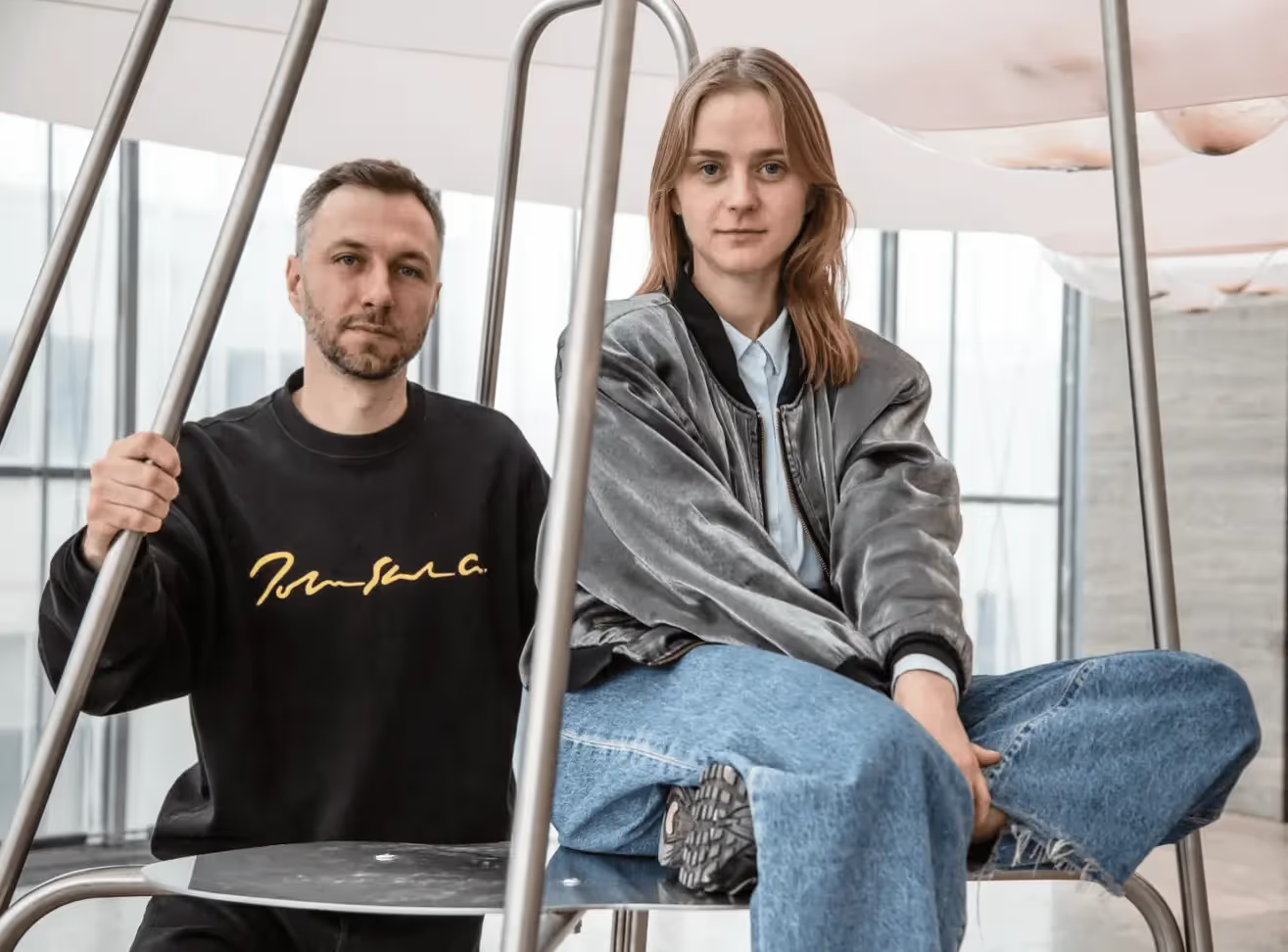
Lithuania
Learn more

Pakui Hardware, Lithuania
Technologies of Vulnerability
Biographies
Pakui Hardware was founded in 2014 by Lithuanian-born artists Ugnius Gelguda and Neringa Černiauskaitė. The duo currently lives and works between Vilnius and Berlin. In their installations and research, Pakui Hardware explores the relationship between materiality, technology, and economy. How technology is shaping the current economy and the physical reality itself, including the human body. The duo’s work has been presented in numerous institutions including BALTIC Centre for Contemporary Art (UK, 2021), Museum der bildenden Künste Leipzig MdbK (Germany, 2019), 16th Istanbul Biennale (Turkey, 2019), MAXXI museum (Italy, 2018), Kunsthalle Basel (Switzerland, 2017). Pakui Hardware will represent Lithuania in the 60th Venice biennale (2024) together with a modernist painter, Marija Teresė Rožanskaitė.
Residency project
Technologies of Vulnerability aims at exploring how we can build vulnerability within the internal structures of the current and future technologies that are being developed. Looking to prevent asymmetrical power relations with upcoming technologies, perhaps vulnerability could be a tool to construct more inter-dependent, trans-corporeal kinship with technological beings? The project consists of a research on this topic, made through reading and in-person meetings and discussions with philosophers, anthropologists, social scientists as well as technology-developers, which will be followed by further reflections, writing and material experimentations through sculpture and installation making in later stages.
Second session - from September 2023
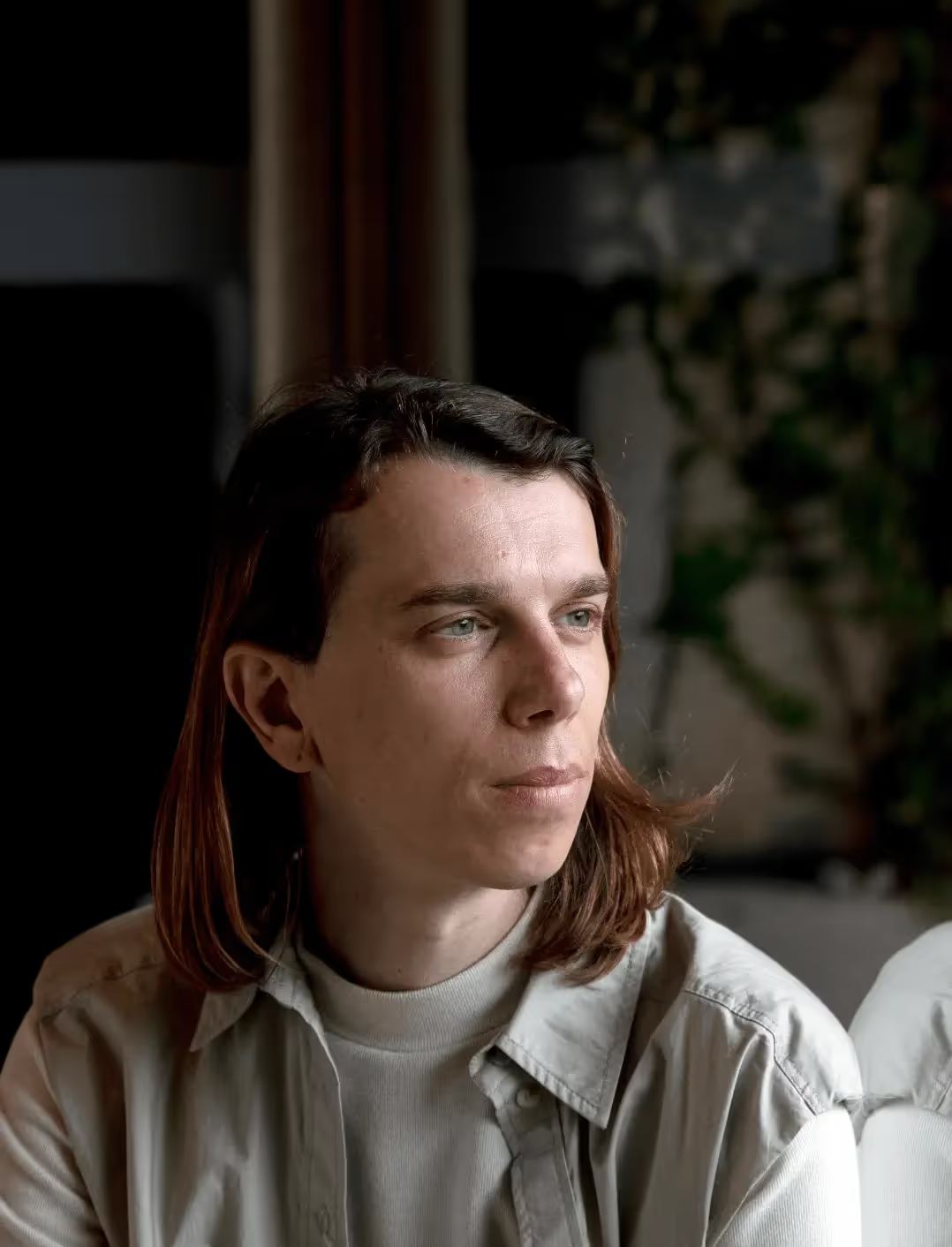
Portugal
Learn more

Isadora Neves Marques, France
DNA at the Speed of Light
Biography
Born in Portugal, Isadora Pedro Neves Marques lives and works between Lisbon and New York. Isadora Pedro Neves Marques is a cinema director, artist, and writer working across poetry and theory. In her work, storytelling, science fiction, and the political role of intimacy and emotions are key to imagine other futures and examine historical clashes between ecology, technology, gender, and sexuality. Recent exhibitions include Portugal Pavilion at Venice Biennale (Italy, 2022), Palais de Tokyo (France, 2022), Trondheim Kunsthall (Norway, 2021-2022), Hamburg Kunstverein (Germany, 2020).
Residency project
During her residency, Isadora Pedro Neves Marques will work towards a feature film to be shot in Paris, titled DNA at the Speed of Light. It will be a slice of life story about the struggling relationship between two young women under the shadow of a world-changing event: the first message from an alien civilization. Subverting artistic genres and cultural cyphers to inquire preconceived histories and expectations on science, ecology, and gender, this new film combines the genre of romantic drama with science fiction first-contact stories. Alongside scriptwriting and pre-production, she will also compile a new poetry collection, titled I Am My Own Sentiment of Weather.
Learn more
Watch the trailer for his work Becoming Male in the Middle Ages, 2022.
Find out more about the work of Isadora Pedro Neves Marques

Switzerland / Uruguay
Learn more

Jill Mulleady, Switzerland/Uruguay
Fictionsand Frictions
Biography
Born in Uruguay, Jill Mulleady lives and works between Los Angeles and Paris. Jill Mulleady works primarily with painting, sculpture, and installation, exploring themes of memory, transformation, and the power of history. In her work, references to historical painting are put into communication with images taken from both popular culture and personal life, creating a strange feeling of merged and frictional temporalities. Her practice shifts between close observations of everyday reality and highly elaborated imaginary worlds. Her paintings can be seen as allegories for the contemporary experience of the image as interface: not just a picture but a means for mobilising attention, bodies and affects within an increasingly virtualized social space. Recent exhibitions include: Le Consortium (France, 2021), Hammer Museum & Huntington Garden (USA, 2020), Whitney Museum (USA, 2020), Venice Biennale, Arsenale & Giardini (Italy, 2019), Swiss Institute New York (USA, 2019).
Residency project
Jill Mulleady will develop a screenplay that aims to be a visual experience and a step towards the creation of her first film. She will take time to research the social and geographical aspects of the story, thus gaining an in-depth understanding of the human conditions depicted in the scenes. The collaborative and experimental nature of the film will require the production of images and short videos based on tests, trials, improvisations, investigations, conversations, and exchanges. Her painting practice will remain active during the process, serving as a constant source of material.

Italy / Senegal
Learn more

Binta Diaw, Italy / Senegal
Dem, Dikk
Biography
Born in Italy, Binta Diaw lives and works in Milan. Often taking the form of installations of varying dimensions, Binta Diaw’s research engages a philosophical reflection on the social phenomena that define our contemporary world, such as migration, the sense of belonging and gender issues. Earth, chalk, rope, synthetic hair and rolled flags are some of the materials that recur frequently in the artist’s practice. In her work, Binta Diaw attaches great importance to physical and sensory experience. Her recent exhibitions include: Liverpool Biennial (UK, 2023), 12th Berlin Biennale for Contemporary Art (Germany, 2022), Centrale Fies (Italy, 2022), 13th Rencontre de Bamako (Mali, 2021-2022), Young Artists Biennale (San Marino, 2021).
Residency project
During her residency, Binta Diaw will continue her work on the major clandestine migratory movements from Africa to Europe. Developed in the form of a video, her project reverses the gaze: it will focus on the point of departure of migrations, rather than their point of arrival. Based on this research, Binta Diaw will create an installation combining this video with carpets, earth and plant fibres from Senegal. The project will be nutered by meetings with people from so-called ‘immigrant backgrounds’ and discussions about their relations to identity, roots, origins and travel.
Learn more
Watch Margaux Brugvin's interview with Binta Diaw
Find out more about Binta Diaw's work:

Australia
Learn more

D Harding, Australia
Research into furthering Indigenous cultural practices connected with Central Queensland, Australia
Biography
Born in Australia, D Harding lives and works in Meanjin/ Brisbane. D Harding works in a wide variety of media to explore the visual and social languages of their communities as cultural continuum. A descendant of the Bidjara, Ghungalu and Garingbal peoples, they draw upon and maintain the spiritual and philosophical sensibilities of their cultural inheritance within the framework of contemporary art internationally. Recent exhibitions include: Lisson Gallery (UK, 2023), Bergen Kunsthall (Norway, 2022), Palais de Tokyo (France, 2022), Tate Modern (UK, 2021), Monash University Museum of Art (Australia, 2021).
Residency project
D Harding’s contemporary art and research work aims to develop and further Indigenous cultural practices connected with Central Queensland, Australia. During their residency, D Harding wants to develop potential professional and research relationships, and to seek deeper understandings of the legacies and scholarship that surround both Yves Klein and French Rock Art in the landscape. Their initial inferences are that there can be benefit to local and international art historical conversations where similarities of experience and cultural expression might be expanded via mulidisplinary research and viewpoints.
Learn more
Watch the interview with D Harding at the 23rd Biennale of Sydney
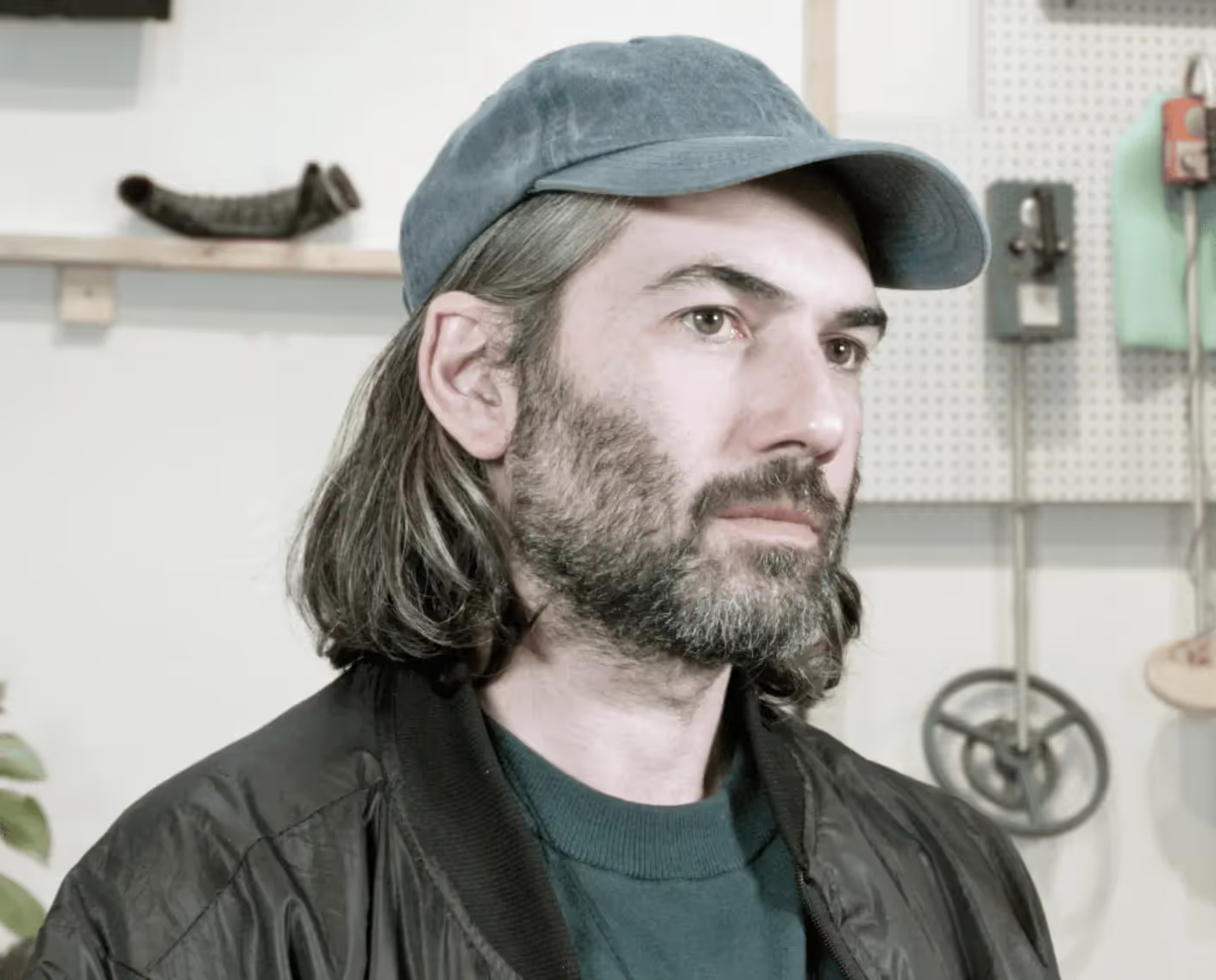
Turkey
Learn more

Emre Hüner, Turkey
The Archive of Capillary Ruins: A Speculative Index
Biography
Born in Turkey, Emre Hüner lives and works between Istanbul and Amsterdam. Working with drawing, video, sculpture and installations, as well as writing, Emre Hüner’s practice focuses on constructed narratives and eclectic assemblages or structures, exploring the subjects of archaeology, failed utopias, technology, questions of progress and futurity(ies) through the re-imagination of architectural entities, speculations on the language and the materiality of organic and artificial forms. Recent exhibitions include: Arter (Turkey, 2021), Maxxi (Italy, 2016), 14th Istanbul Biennial (Turkey, 2015), Manifesta 9 (Belgium, 2012), New Museum (USA, 2009).
Residency project
The Archive of Capillary Ruins: A Speculative Index is an accumulative, fragmentary and research based writing process of various textual works. The project, as a device, aims to generate interconnected parts of a script, diverse sculptural forms, from 3D prototype renderings to ceramics or moulded replicas, various semi-fictional sequences, activating an open method of experimental production, towards an evolving protocol rather than trying to reach a conclusive outcome. The work will expand and infiltrate in entangled, capillary narrative forms, architectural worldbuilding practices and intentionally incomplete episodes with speculations on archival material, manipulated encyclopedic information or through field trips to real locations such as Le Jardin d’Agronomie Tropicale, L’Observatoire de l’Espace du Cnes, ITER, the experimental greenhouses of Abiophen - Cirad.
Learn more
Find out more about Emre Hüner's work
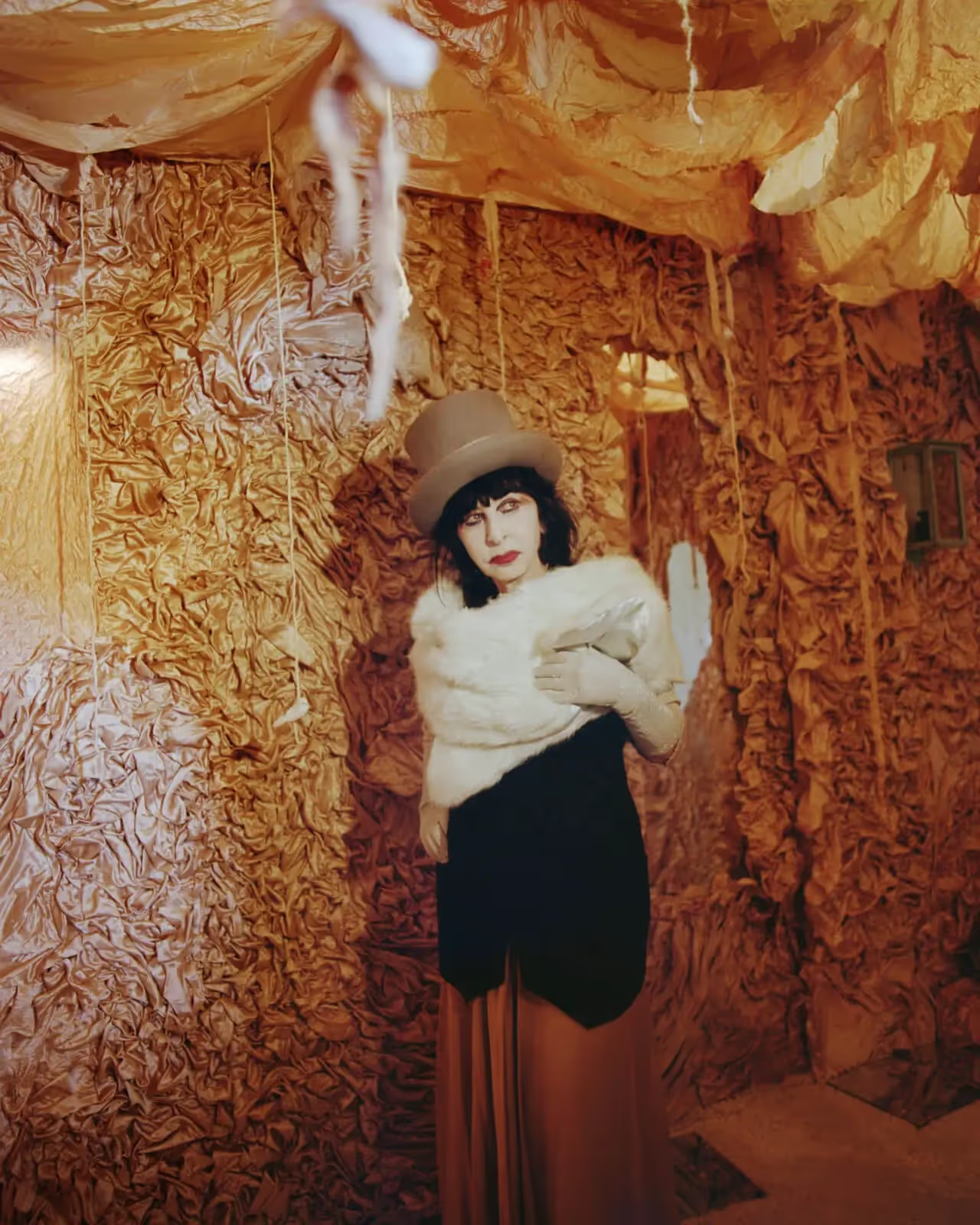
USA
Learn more

Colette Lumiere, USA
Unto The New Unknown
Biography
Born in Tunisia, Colette Lumiere lives and works in New York. Colette Lumiere is a trailblazer whose vast and enduring body of work has both innovated and defied the categories of street art, installation, performance, mixed media works, staged photography, and painting from the early 1970’s through the present. Throughout her career, Colette Lumiere has become well known for her creation of “ living personas ” which often challenge traditional gender roles, and is a recurring theme in her performances and installations, as she pushes the boundaries of societal expectations. Exhibitions include Company Gallery (USA, 2021), Central Gallery (Poland, 2019), MoMA PS1 (USA, 2016), Rempire Gallery (USA, 1992), Kunstverein Munster (Germany, 1981).
Residency project
Being formally known as an on site installation artist, the location from which Colette Lumiere is working in, contributes immensely as inspiration for the body of work she creates. During her residency, she can predict that a body of work will no doubt evolve organically and be influenced as well as inspired, as a result of her presence there and the time spent creating in this new environment.
Learn more
Find out more about the work of Colette Lumière
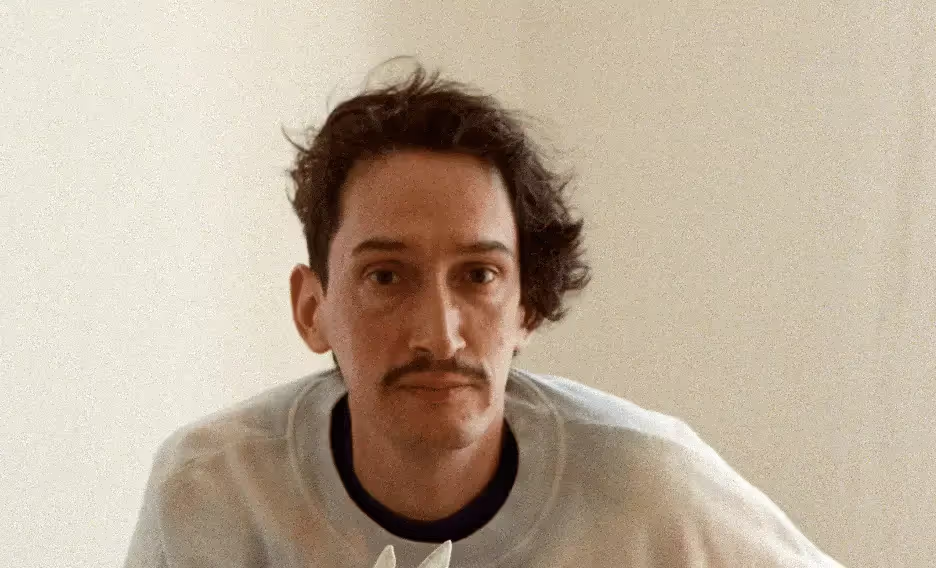
France
Learn more

Benoit Piéron, France
Waiting Boiler Room
Biography
Born in France, Benoît Piéron lives and works in Paris. Benoît Piéron is interested in the sensuality of plants, the boundaries of the body and the temporality of waiting rooms. His practice revolves around patchworks, installations, existential gardening and wallpaper designs. Having always experienced illness as a partner in life, the hospital environment is his ecosystem. He seeks to produce alternative expressions of illness, seeing it as a potential. Far from the romantic heroism of the usual metaphors for illness, Benoît Piéron places himself in a grey and joyful zone. His practice is inspired by the experience of waiting, and explores the ambiguous boundaries between health and illness, presence and absence, inside and outside, the body and the architectural, temporal and medical structures that shape it. Recent exhibitions include the Liverpool Biennial (UK, 2023), the Palais de Tokyo (France, 2023), the Bourse de Commerce - Pinault Collection (France, 2023) and the Fondation Pernod Ricard (France, 2022). His work will be shown in two solo exhibitions at Chisenhale Gallery (UK, 2023) and mumok (Austria, 2024).
Residency project
During his residency, Benoît Piéron will develop a project combining art and health. Drawing on his research on sexuality in hospital, initiated at the Antre Peaux for the exhibition “Bandage” and supported by the Carta Bianca Prize, Benoît Piéron will engage a conversation with (im)patients about their experience of pleasure in hospital. Informed by feminist theories and practices, his work method aims at creating, through reversed pedagogy, safe spaces to welcome, exchange and share patients’ experiences and perspectives.
Learn more
Watch the interview with Benoit Piéron at Pinault Collection
For more information on Benoit's work :
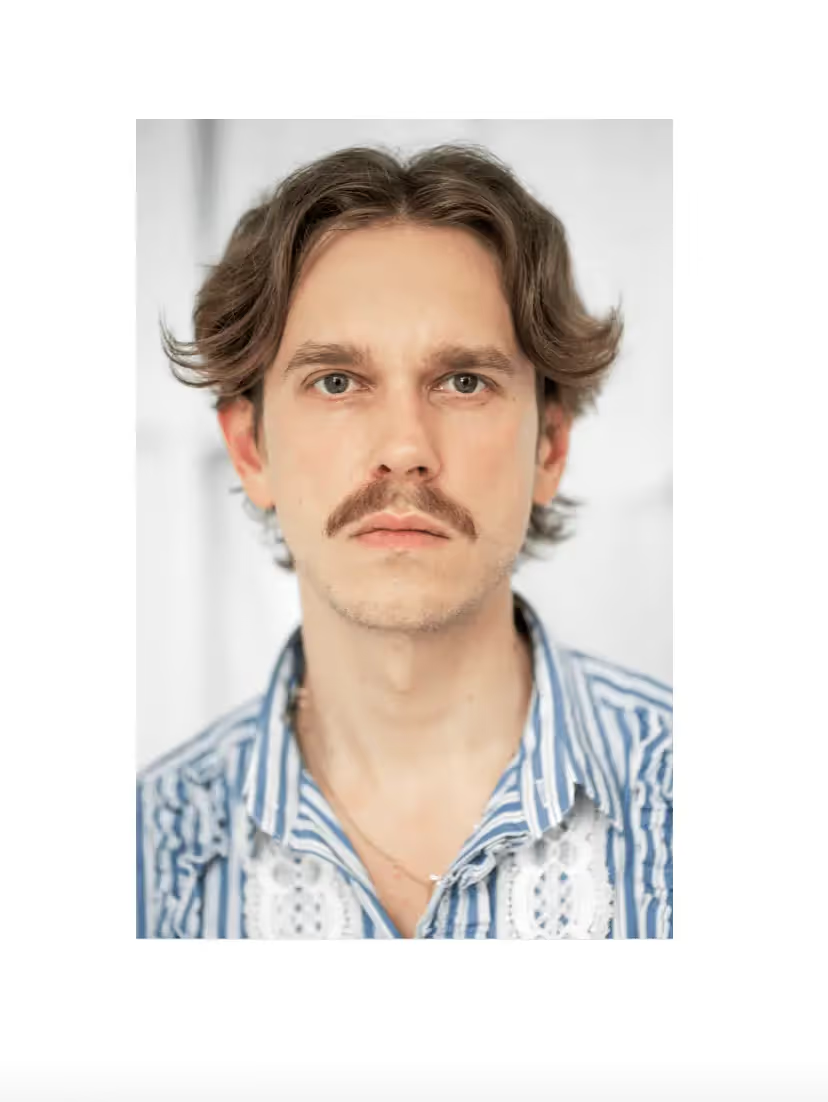
Poland
Learn more

Mikolaj Sobczak, Poland
OneLetter. Many Rumours. Queer Lives of the Interwar Artistic Emigration in Paris.
Biography
Born in Poland, Mikołaj Sobczak lives and works in Amsterdam. Mikołaj Sobczak works with paintings and video, often including collaborative performative actions. His work focused on political issues and historical policy. Emphasizing the perspective and life of marginalized subjects, he builds narratives, and tracks down the reasons for current global and social issues. Recent exhibitions include Ludwig Forum Aachen (Germany, 2023), Kunsthalle Muenster (Germany, 2022-2023), Haus der Kulturen der Welt (Germany, 2021), MUDAM (Luxembourg 2021), Museum of Modern Art (Poland, 2020).
Residency project
Between two wars, two men decided to live together in Paris. Józef Czapski - a Polish painter, looking for the latest trends in art, soon a national hero, a survivor of the Soviet mass murder of Polish intelligentsia in Katyń - fell in love with a Russian - Sergey Nabokov. In a letter to his mother, the poet confessed that he converted from Orthodoxy to Catholicism under the influence of this romance. He did what 10,000 Ukrainian peasants, whom the Polish government then forcibly converted to Catholicism inspired by Western colonial policy. Cocteau and Picasso gossip about their romance. But academics do not believe rumours. During his residency, Mikołaj Sobczak wants to treat gossips and sketches and paintings as a basis for a script, a series of paintings to read.
Learn more
Watch the interview with Mikolaj Sobczak
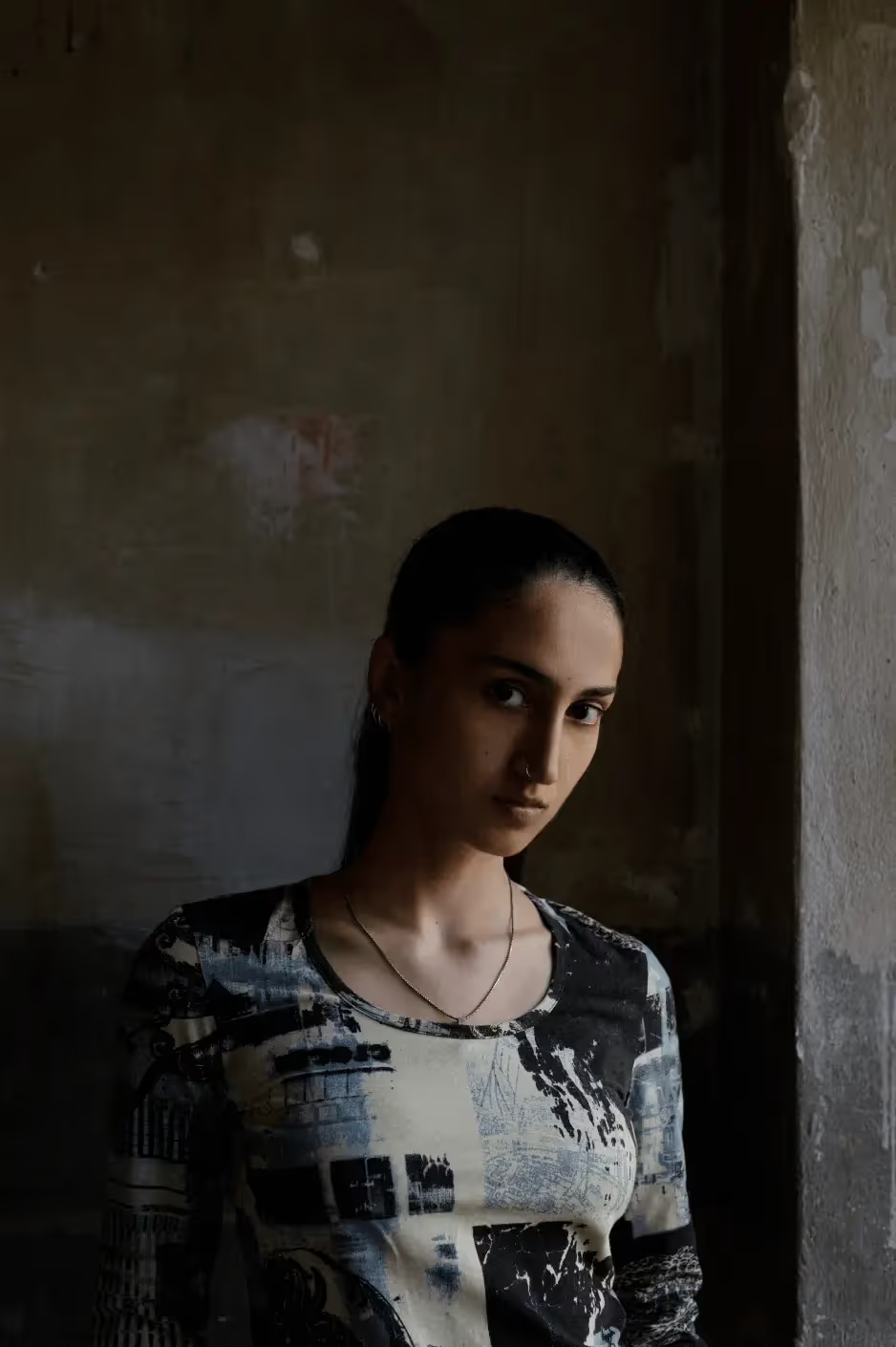
Germany
Learn more

Leyla Yenirce, Germany
Holy Water
Biography
Born in Kurdistan, Leyla Yenirce lives and works in Hamburg. In her artistic practice across multiple media, Leyla Yenirce deals with the representation of resistance as well as cultural, medial and military structures of dominance. She exposes the fine line between glorifying ideology and resistant emancipation, uniting what is often mutually exclusive: feminism and war, pop culture and genocide, genuine longing and detached irony. Recent exhibitions include : Haus der Kunst (Germany, 2023), Kunsthaus Hamburg (Germany, 2022), Goethe Institute (France, 2022), Museum of Contemporary Art Leipzig (Germany, 2023), Halle für Kunst Lueneburg (Germany, 2022).
Residency project
During her residency, Leyla Yenirce will investigate the element of water, examining the long term project of the Ilisu dam that followed geo-political strategies of gaining control over the water supply in the Kurdish border region of Turkey and Syria as well as the division of the Euphrates and Tigris lake. The artist will investigate its different political and cultural impact including traces and impressions of the river Seine in Paris, and create material inspired by this research through different artistic forms such as painting, sound and video.
Learn more
Find out more about Leyla Yenirce's musical project Rosaceae, with which she will perform at Hamburg's Elbphilharmonie in March 2024.
Find out more about our residences
2023 Selection Committee

Art critic and director of the Museo Tamayo of Contemporary Art
Learn more

Magali Arriola is director of the Tamayo Museum in Mexico City. Between 2016 and 2019, she was chief curator for KADIST in Latin America, and curator of the Mexican Pavilion for the 58th Venice Biennale(Pablo Vargas Lugo, Acts of God, 2019). Between 2011 and 2014 she was chief curator of the Jumex Museum, and chief curator of the Tamayo Museum between 2009 and 2011. Arriola has contributed to numerous books and catalogs, as well as publications such as Art Forum, Curare, Frieze, Mousse, Manifesta Journal, and The Exhibitionist.
Photo credit: Pedro Luján. Courtesy Revista Capitel.

Artistic Director of the Samdani Art Foundation and Chief Curator of the Dhaka Art Summit
Learn more

Diana Campbell Betancourt is an American curator who has been active in South and Southeast Asia since 2010, mainly in India, Bangladesh and the Philippines. She is committed to the globalization of the art world, and takes a long-term, multi-faceted approach that addresses the concerns of under-represented territories and artists, as well as those of more established artists, in numerous forums.
Since 2013, she has been artistic director and founder of the Samdani Art Foundation, based in Dhaka, Bangladesh, and chief curator of the Dhaka Art Summit, whose critically acclaimed 2014, 2016, 2018 and 2020 editions she has directed. She has established the Dhaka Art Summit as one of the leading research and exhibition structures dedicated to art in South Asia, bringing together artists, architects, curators and writers from across South Asia through a primarily commission-based model. Alongside her activities in Bangladesh from 2016 to 2018, Diana Campbell Betancourt was also the artistic director and founder of Bellas Artes Projects in the Philippines, a non-profit international residency and exhibition programme based in Manila and Bataan.

Philosopher and lecturer at EHESS
Learn more

Emanuele Coccia teaches at the EHESS in Paris. He is the author of La Vie sensible (2010), La Vie des Plantes (2018), Métamorphoses (2021) and Philosophie de la maison. L'espace domestique et le bonheur (2023). His animated videos include Quercus (2019, with Formafantasma), Heaven in Matter (2021, with Faye Formisano) and Portal of Mysteries (2022, with Dotdotdot). He participates in several exhibitions as an advisor. He is currently co-authoring a book on the relationship between fashion and philosophy with Alessandro Michele, Creative Director of Gucci.
Photo credit: Frank Perrin.

Deputy Artistic Director of the Fondation Cartier pour l'art contemporain
Learn more

Artistic director, curator and producer Isabelle Gaudrefroy is currently Deputy Artistic Director of the Fondation Cartier pour l'art contemporain. She began her career at the Théâtre des Amandiers in 1995. From 1999 to 2010, she directed the Soirées Nomades at the Fondation Cartier. In 2011, she joined the Fondation's management team and curated landmark exhibitions such as Junya Ishigami, Freeing Architecture in 2018 and Nous les Arbres in 2019.
Photo credit: Valentin Le Cron
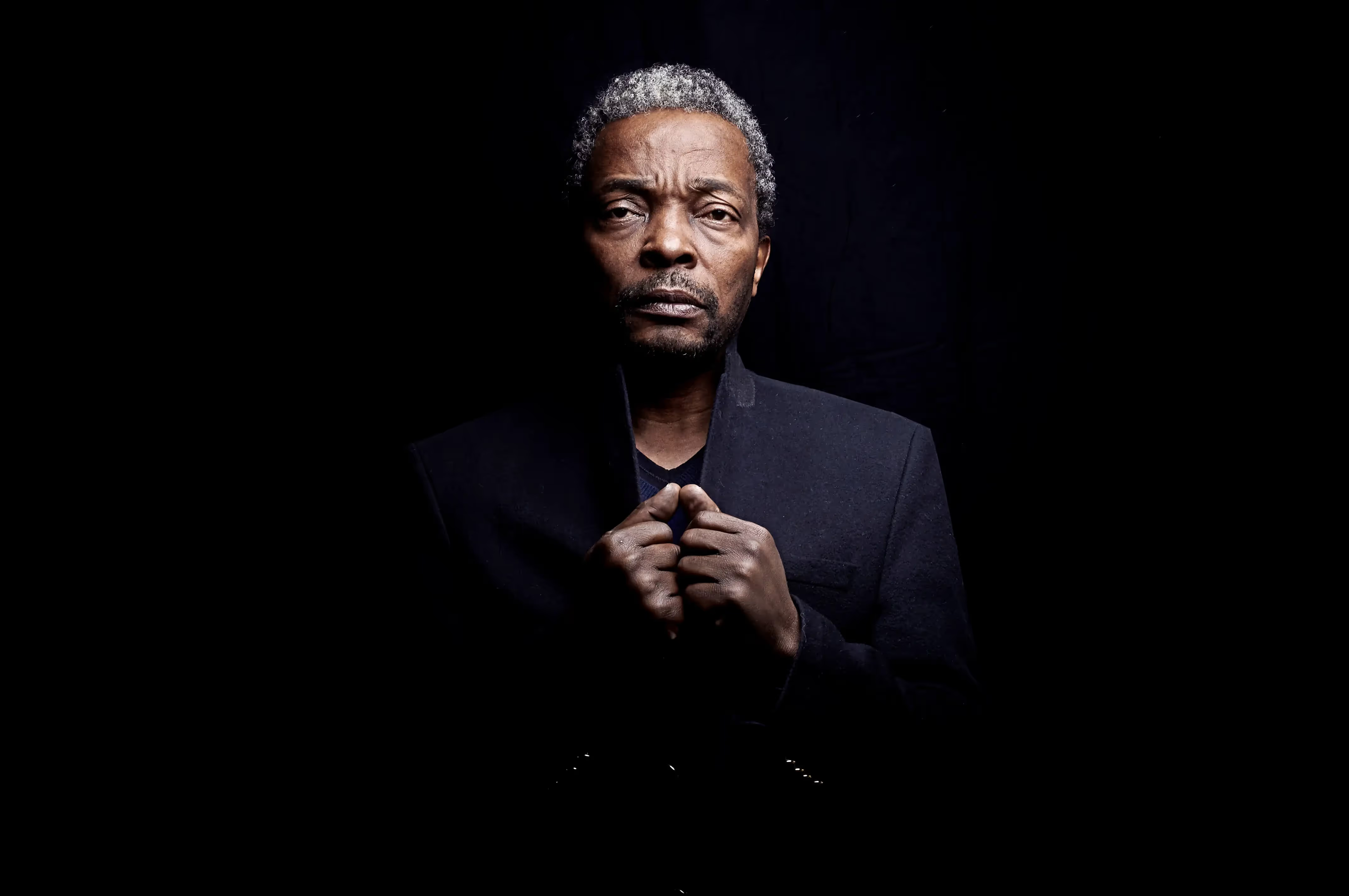
Writer, curator, essayist and art critic
Learn more

Simon Njami is an independent curator, lecturer, art critic and novelist based in Paris. He co-founded Revue Noire - of which he is editor-in-chief - a magazine devoted to contemporary and non-Western African art. He was artistic director of the first Johannesburg Art Fair (2008), the Bamako Photography Biennale (for ten years) and the Dakar Biennale, Dak'Art (2016-2018). He co-curated the first African Pavilion at the 52nd Venice Biennale (2007). He has also curated, among others, the exhibitions Afriques Capitales (Paris and Lille, 2017), African Metropolis (MAXXI Museum, Rome, 2018), The Studio (Kampala Biennale, 2019), Le temps de l'Afrique (Las Palmas, 2020), La Matière vivante (San Giminiano, 2021).
Njami has curated numerous exhibitions of contemporary art and photography, including Africa Remix (2004-2007) and the first African contemporary art fair (Johannesburg, 2008). In 1998, he conceived the Pan-African Master Classes in Photography project with the Goethe Institute. He ran these for 12 years and built up the contemporary art collection at the Mémorial ACTe (Guadeloupe). He has published and edited numerous works, most recently Histoire histoires, l'histoire de la Revue noire (2020).
Photo credit: Cyrille Choupas.

Artistic Director, Serpentine Galleries
Learn more

Hans Ulrich Obrist, born 1968 in Zürich (Switzerland), is artistic director of the Serpentine Galleries in London. He was previously curator of the Musée d'Art Moderne de la Ville de Paris. Since his first exhibition, "World Soup" (The Kitchen Show) in 1991, he has organized over 300 exhibitions, and has lectured internationally at art academies and institutions. He is editor-in-chief of Artforum, AnOther Magazine, Cahiers d'Art and 032C, and a regular contributor to Mousse and Kaleidoscope. He also writes columns for Das Magazin and Weltkunst. Obrist received the CCS Bard Award for Curatorial Excellence in 2011, and the Folkwang International Award for his commitment to art in 2015. Recent publications include Ways of Curating (2015), The Age of Earthquakes (2015), Lives of the Artists, Lives of Architects (2015), Mondialité (2017), Somewhere Totally Else (2018) and The Athens Dialogues (2018).
Photo credit: Tyler Mitchell.
Residents 2022
First session - from spring 2022
SOLO Programme
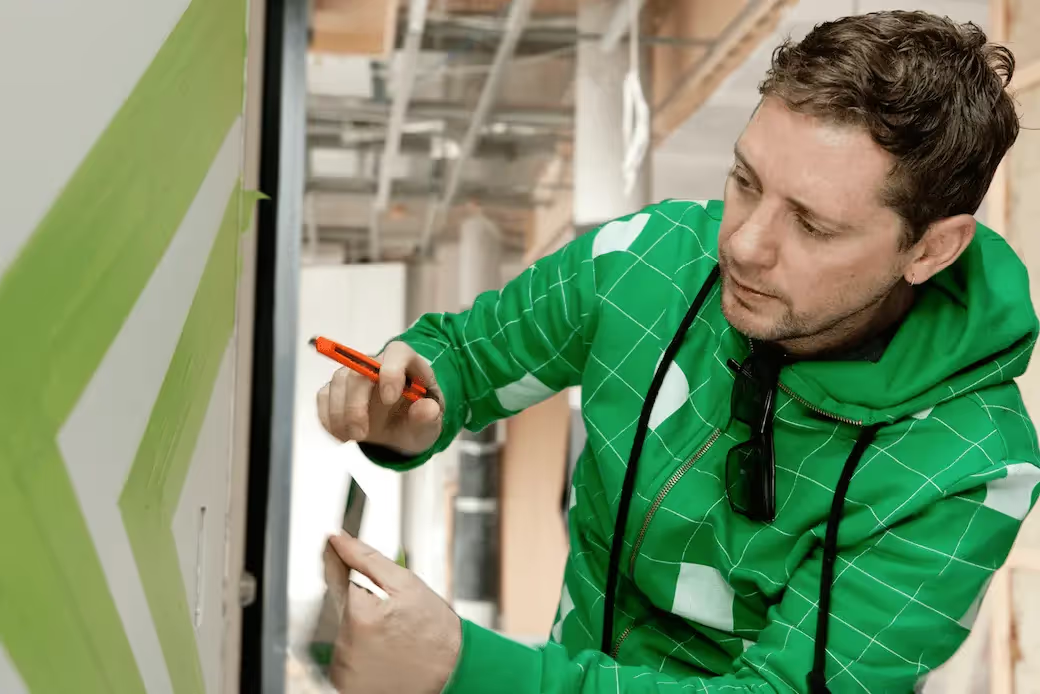
Australia
Learn more

Brook Andrew, Australia
Project : Guulany
The artist
Brook Andrew was born in 1970 in Sydney. He lives and works in Melbourne, Australia on the lands of the Kulin Nations. He is an artist, curator and scholar who is driven by the collisions of intertwined narratives, often emerging from the mess of the “Colonial Wuba (hole)” and is driven from his perspective as a Wiradjuri and Celtic person: His matrilineal kinship is from the kalar midday (land of the three rivers) Australia. His artworks, research, leadership roles and curatorial projects challenge the limitations imposed by power structures, historical amnesia and complicity to centre and support Indigenous ways of being through systemic change and yindyamarra (respect, honour, go slow and responsibility). Apart from drawing inspiration from vernacular objects and the archives he travels internationally to work with artists, communities and various private and public museum and gallery collections.
The project
During his residency, Brook Andrew will create new work based on the collections of the Musée du quai Branly- Jacques Chirac, long inspired by the dendroglyph carvings of guulany/tree of his Wiradjuri Aboriginal Nation in Australia. He will also work on issues of repatriation and restitution of cultural objects in museums as well as on an experimental theatre script called GABAN (which means strange in Wiradjuri).

Nigeria
Learn more

Evan Ifekoya, Nigeria
Project: A Ripple Reflected, Devotion Divined
The artist
Evan Ifekoya was born in Iperu, Nigeria, in 1988 and lives and works in London. His work around sound, text, video and performance is part of a vocation as a spiritual practitioner. He sees art as a place where resources can be both redistributed and renegotiated, while questioning the implicit rules and hierarchies of public and social space.
The project
Evan Ifekoya is developing research for an artist’s book exploring contemporary mysticism and the transformative potential of sound - from the cellular to the cosmic. The book is part of a larger body of research that includes lectures, performance and workshops investigating the sacredness and healing potential of sound with the elevation of black consciousness in mind. Evan Ifekoya will hold space for multidimensional being and doing with others, drawing on the elements of water and fire to create ritual instruments within their studio.
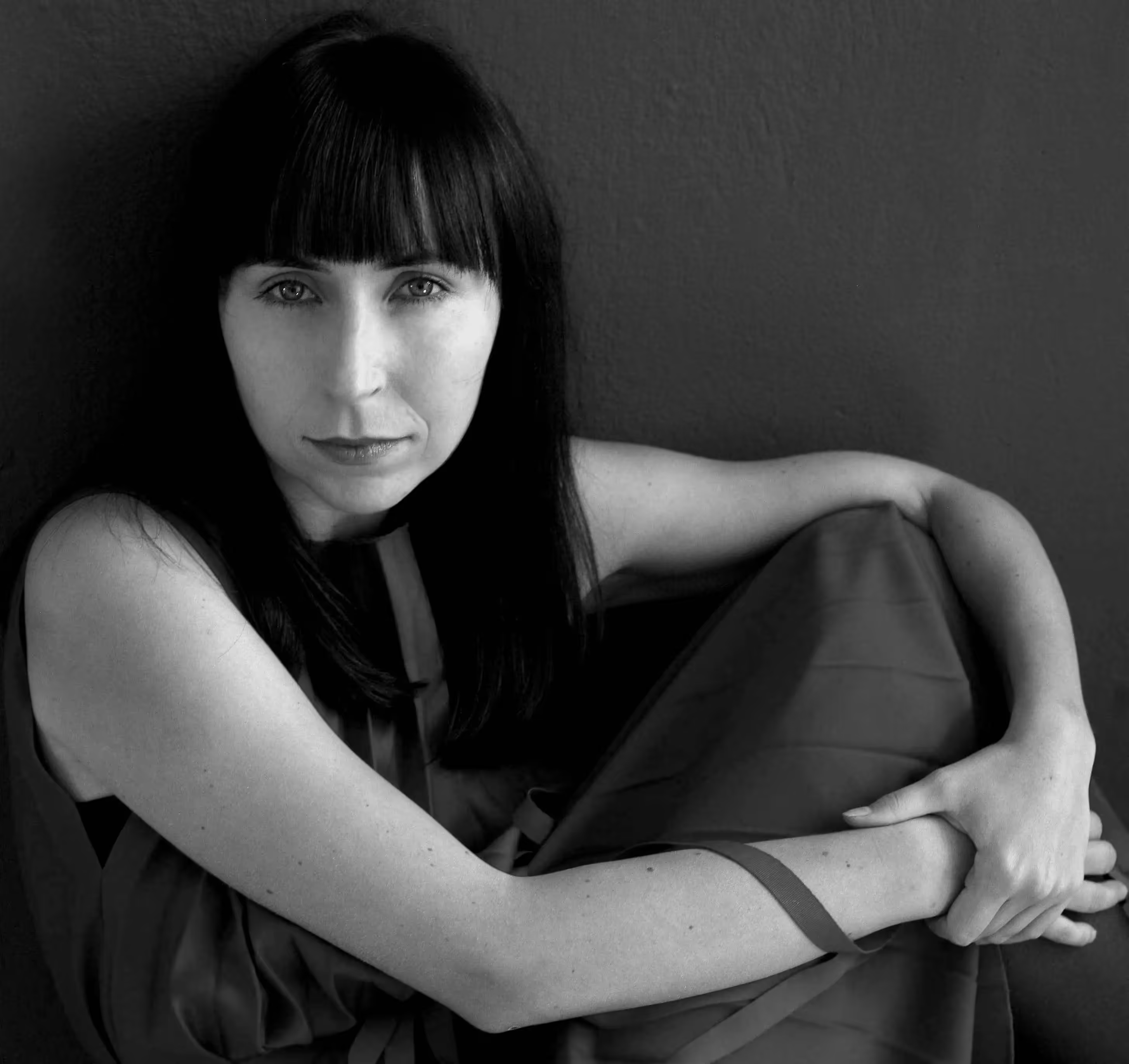
Poland
Learn more

Agnieszka Kurant, Poland
Project: Singular Plural
The artist
Agnieszka Kurant was born in 1978 in Lodz, Poland. She lives and works in New York. Agnieszka Kurant is a conceptual artist who explores collective intelligence, the future of work and creativity, and exploitation in surveillance capitalism. She is currently an Artist Fellow at the Berggruen Institute's Transformations of the Human programme and was artist-in-residence at MIT CAST from 2017 to 2019.
The
project
Agnieszka Kurant’s project consists in the production of a short film investigating the direction in which human culture is presently evolving, the various forms of collective subjectivity and the future of labor and creativity. It will explore the role of crowds as assets of late capitalist economy, the «self» as a polyphony of agencies, as well as the human and non-human collective intelligences, from microbes, viruses and animals to social movements and artificial intelligence. Singular Plural probes the transformations of the human, and the selforganization of communities to rebuild the commons. The film speculates about the future of cinema and cultural production in general, based on complex, collective forms.

Australia
Learn more

Adam Linder, Australia
Project: Nureyev in Paris
The Artist Adam Linder was born in Sydney, Australia in 1983. He lives and works between Los Angeles and Berlin. Adam Linder is a dancer and choreographer. His works are often presented in theatre and exhibition contexts; in which text, costuming, sound production and film are all considered part of his role as choreographer.
The project
The years of Rudolf Nureyev’s direction
of the Paris Opera Ballet will be the
main focus of Adam Linder’s residency
in Paris. Adam Linder will dig into
historical archives, whilst also speaking
to former associates of the Opera during
this period. Through this field work he
will try and understand the spirit that
characterized this 80s moment in
ballet, when younger choreographers
were responding with a playful (post-)
modernizing of the form with Nureyev’s
decline from AIDs in the background of
this illuminating era.
With this research, Adam Linder will be
inspired to build material for a new ballet
that reflects the times we are in today by
retaining an umbilical cord to the formal
ruptures of the past.
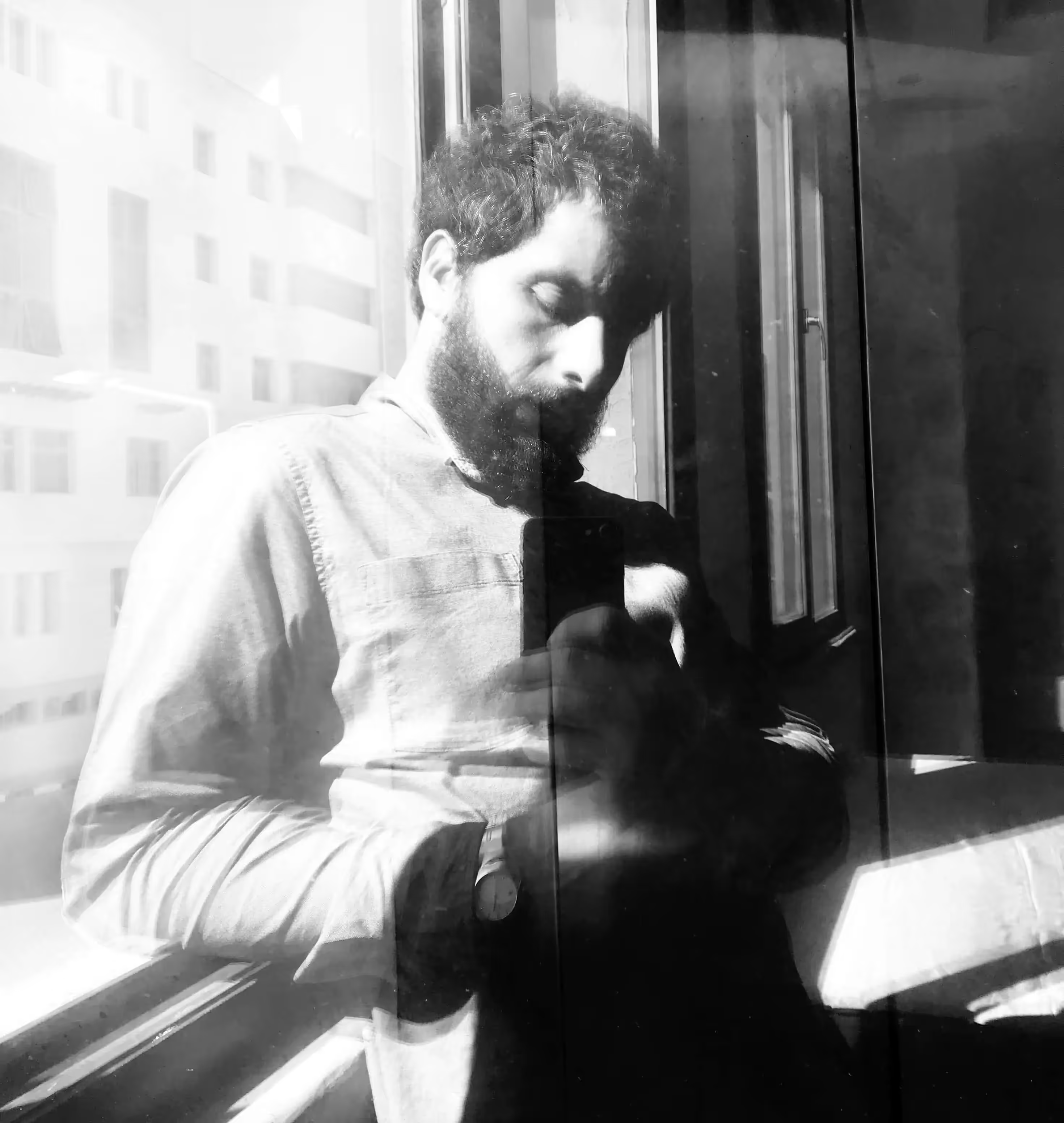
Palestine
Learn more

Salman Nawati, Palestine
Project: Imaginary Museum of Gaza
The artist
Salman Nawati was born in 1987 in Palestine. He lives and works in the Gaza Strip. Salman Nawati is also coordinator of the art programme at the Qattan Foundation/Gaza center. He is also a professor at the Fine Arts and Al-Aqsa University, and artistic director of several art festivals in Gaza. His artistic practice includes drawing, sculpture, installation, design, photography, film-making, theater, music and art therapy. Within his artistic project, Salman Nawati seeks to express himself as a human being.
The project
In the absence of a responsible authority for the protection of the antiquity and artistic property in the Gaza Strip, Salman Nawati, along with artist Mohamed Abusall and architect Sondos El Nakhala, will collaborate on an imaginary museum, a museum focusing on the historical and artistic heritage of the Gaza Strip, which would be accessible to all. This museum will not be physically present but will be a digital incubator gathering an assortment of antique objects, cultural relics, and artworks, for some completely imagined, in the format of digital replicas. This project is jointly developed with Mohamed Bourouissa who will also produce a video showing the entire production stages of the museum. The final product of this project will be a virtual reality presentation to be exhibited at the Palais de Tokyo in 2023, where the public will discover the Imaginary Museum of Gaza through this virtual portal.

France
Learn more

Christelle Oyiri, France
Project: Gentle Battle
The artist
Born in 1992 in the Paris region, Christelle Oyiri is a Paris-based French producer, DJ (under the pseudonym Crystallmess), writer, and artist of Ivorian and Guadeloupean origin. Combining film, music, performance, and sculpture, her radically interdisciplinary work deals with themes of colonial alienation and alternative temporalities. Faced with the deliberate erasure of narratives outside the dominant canon, Christelle Oyiri looks for information between the lines. Her research is focused on the tonalities, textures, and visual vernacular of the music, art, popular culture, and youth cultures within and outside the African diaspora.
The
project
Christelle Oyiri’s project Gentle Battle examines her research on belligerence, defense mechanisms, and trauma responses through her relationship with one of her countries of origin: Ivory Coast. Her focus is on Logobi, a dance from the streets of Abidjan, whose movements are based on the art of bluffing and mimicry. Logobi never really existed as an actual dance on the dancefloor, gaining relevance and strength through battles, competitions, and confrontations. At the end of the 2000s, it became a phenomenon amongst black French youth from the Paris banlieues. A tribute to logobi’s influence on Parisian urban culture, Christelle Oyiri’s project will take the form of a video, featuring dancers as well as interviews with therapists, psychiatrists, and members from the African communities in the Paris region.

Peru
Learn more

Fátima Rodrigo Gonzales, Peru
Project: Vital infrastructures: rethinking the modern through subaltern technologies
The artist
Fátima Rodrigo Gonzales was born in 1987 in Lima, Peru, where she currently lives and works. Using different media, she explores the definition of modernity as opposed to Latin American repressed histories. Her work questions the power regimes naturalized by artistic modernity in a post-colonial context, that continue to organize the world in hierarchical binaries.
The project
In the context of a global health crisis that continues to exacerbate social and environmental inequalities, Fátima Rodrigo Gonzales proposes to devote the period of her residency to highlighting indigenous technological developments in the field of construction. Her project aims to disrupt the idea that indigenous practices are primitive and alien to the development of new technologies by creating a three-dimensional artwork and a platform video game. Vital infrastructures questions the universal notion of technology and the environmental consequences of excluding indigenous practices in development processes.
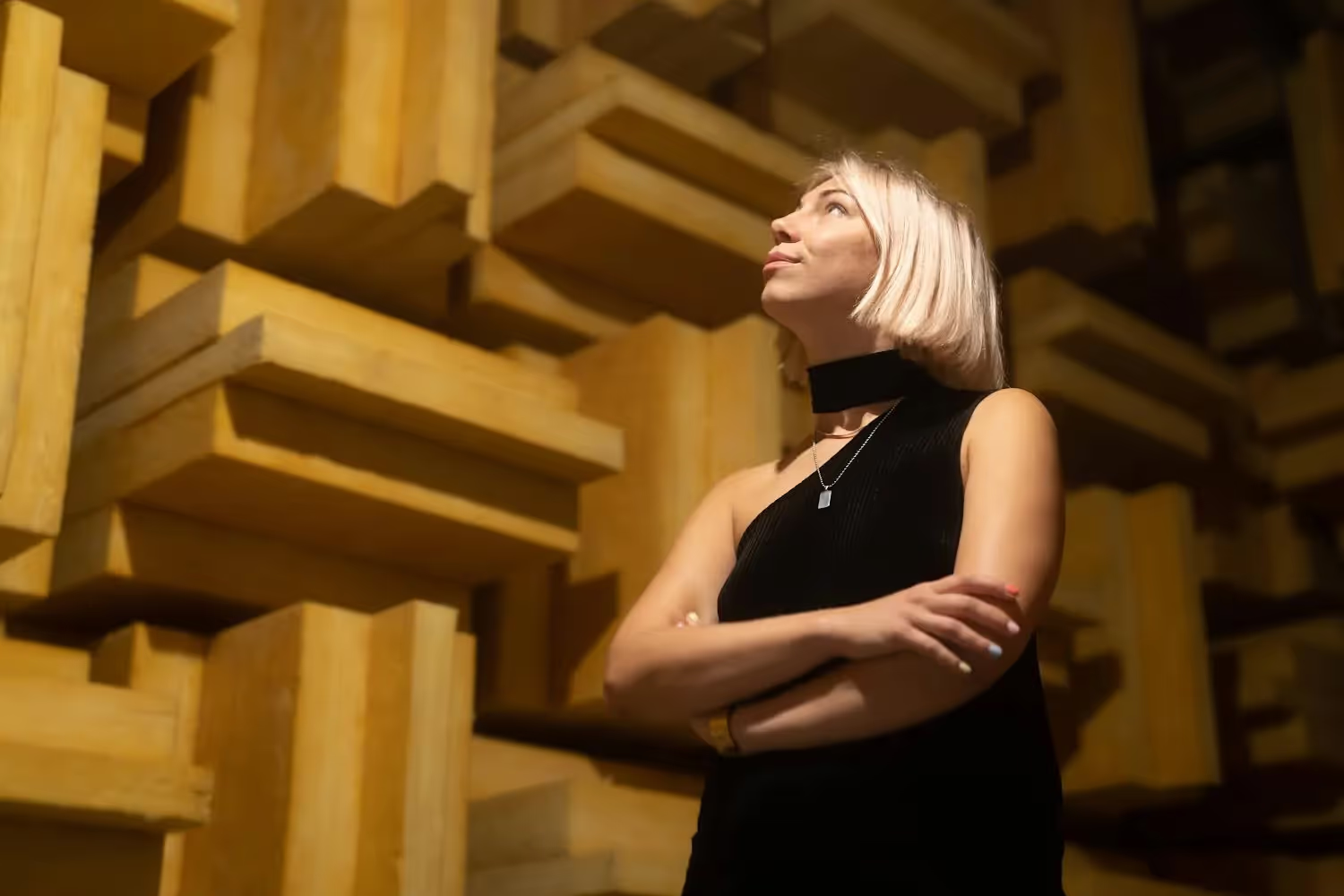
Lithuania
Learn more

Emilija Škarnulytė, Lithuania
Project: Fluvial Extents
The artist
Emilija Škarnulytė was born in 1987 in Vilnius, Lithuania. As a visual artist and filmmaker working between documentary and the imaginary, Emilija Škarnulytė makes films and immersive installations exploring deep time and invisible structures, from the cosmic and geologic to the ecological and political. She is a founder and currently co-directs Polar Film Lab, a collective for analogue film practice located in Tromsø, Norway and is a member of artist duo New Mineral Collective, recently commissioned for a new work by the First Toronto Biennial.
The project
Emilija Škarnulytė wants to trace the flow of water, the world beneath the waves, trawling the benthic zones of the riparian and lacustrine for the lasting effects of human intervention. Working with photogrammetry and underwater lidar remote sensing, for Fluvial Extents she wants to picture what was already lost beneath the flow of water of the Rhône river, what scars and stains humans are depositing there, and imagine what will appear and disappear in the wash of millenia. Tracing the flux of rivers and lakes in Europe, Emilija Škarnulytė wants to explore both their hydrologies and mythologies, imagining through the depths of time what has already passed and what is yet to come.
.webp)
Taiwan
Learn more
.webp)
Charwei Tsai, Taiwan
Project: Touching the Earth
The artist
Charwei Tsai was born in Taiwan in 1980. She lives and works in Taipei.
Charwei Tsai uses a variety of media such as video and calligraphy in a performative and politically engaged practice. Her interest in spirituality manifests itself in the calligraphic writing of mantras on various and often living media: trees, tofu, mushrooms, lotus leaves... Highly personal yet universal concerns spur Charwei Tsai’s multi-media practice. Geographical, social, and spiritual motifs inform a body of work, which encourages viewer participation outside the confines of complacent contemplation. Preoccupied with the human/nature relationship, Charwei Tsai meditates on the complexities among cultural beliefs, spirituality, and transience. Since 2005 she has published an independent curatorial journal, Lovely Daze, which is included in the library collections of the Tate Modern, Centre Pompidou, MoMA, and the Museum of Contemporary Art in Barcelona.
The project
Throughout her residency, Charwei Tsai intends to develop a project, entitled Touching the Earth project by producing a sound-based performance with musician Stephen O’Malley to create a ritual with sounds and vibrations from nature. This performance will be accompanied by the release of a new issue of her magazine Lovely Daze on the themes of art, ecology, technology and science. Her overall project will explore central questions at the intersection of science, technology and spirituality such as: How do science and technology help us to slow down? How do science and technology help us to touch the earth? How do science and technology help us to deconstruct our habit of identifying ourselves as permanent and independent entities?

USA
Learn more

Martha Wilson, United States
Project: Generations of Feminism in France
The artist
Martha Wilson was born in 1947 in Philadelphia, USA. She lives and works in New York. She is a pioneering feminist artist and art space director, who over the past four decades has created innovative photographic and video works that explore her female subjectivity. She has been described by New York Times critic Holland Cotter as one of “the half-dozen most important people for art in downtown Manhattan in the 1970s.” In 1976 she founded Franklin Furnace, an artist-run space that champions the exploration, promotion and preservation of artist books, temporary installation, performance art, as well as online works. Martha Wilson is represented by P.P.O.W Gallery in New York.
The project
During her residency, Martha Wilson intends to continue her practice and creation of artworks rooted in a feminist, social and political context. As part of her project, she will record the oral histories of French feminist figures of all generations. This project is a continuation of her work started in 1981 on different feminist communities in collaboration with Suzanne Lacy and Susan Hiller. The aim of this experiment is to examine six generations of feminists in France, to compare their work and their feminist, social and political attitudes.
DUO Programme

France and Mali
Learn more
Raphaël Grisey & Bouba Touré, France and Mali
Project: Digitization of Bouba Touré's photographic archives
The artists
Raphaël Grisey was born in 1979 in France, and lives and works between Berlin and Trondheim in Norway. Bouba Touré was born in Mali in 1948 and died in France in January 2022. Raphaël Grisey uses film, editorial and photographic works to address politics of memory, architecture, migration and agriculture. Bouba Touré was a photographic researcher. He studied at Vincennes University and was a projectionist at Cinema 14 Juillet and L’entrepôt, Paris. Photographer since the 1970s, he documented the lives and struggles of migrant workers and peasants in France and Mali. Bouba Touré co-founded the Co-op of Somankidi Coura in 1977. In 2015, he published the book Notre case est à Saint Denis. Since the 1980s, Touré has exhibited works and given talks in associative and foyer’s circles and more recently in art institutions. Touré and Grisey worked together over fifteen years on collaborative projects under the current name of Sowing Somankidi Coura, a Generative Archive. This collaboration led to various workshops, film and theatre production for example with the theatre group Kaddu Yaraax in 2017 and 2019, as well as publications and texts, such as Sowing Somankidi Coura, a Generative Archive (2017, Archives Book).
The project
This residency looks back on the long-time collaboration between Raphaël Grisey and Bouba Touré. Raphaël Grisey will digitize and activate the photographic archive of Bouba Touré. A first complementary indexation work of the archive will be produced by the duo which will then be complemented by partners who will be invited to interpret, refine the indexing, and propose research angles and new contributions. The final production will consist in the production of a sound piece, which will accompany the photographs of Bouba Touré.
Second session - from September 2022
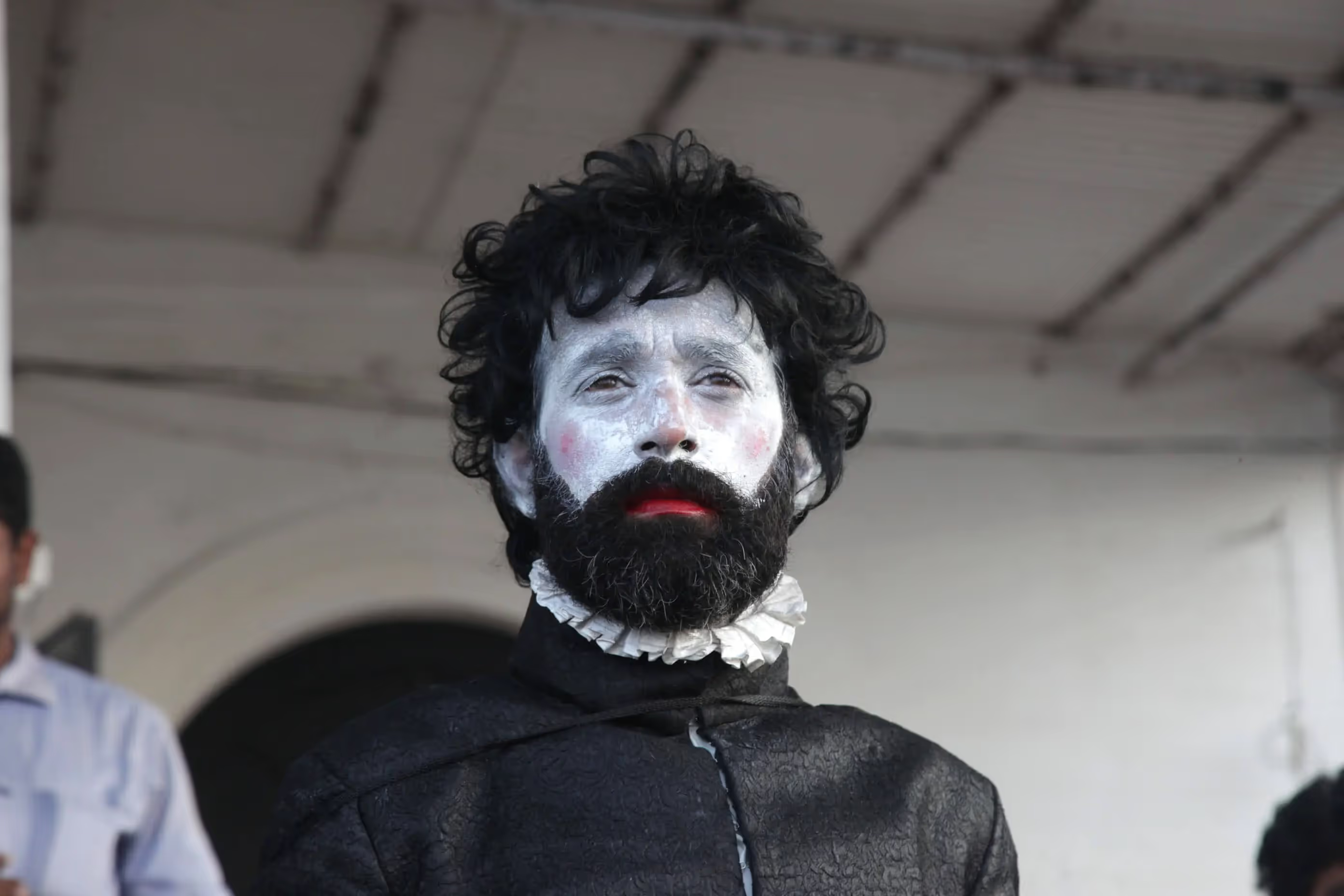
India
Learn more

Project: Recomposing the Panorama
Biography:
Nikhil Chopra was born in Calcutta, India, in 1974. He is based in Goa, India, where he co-directs HH Art Spaces. His artistic practice interweaves performance, drawing, photography, sculpture and installations. His largely improvised performances explore identity and its construction, autobiography and authorship, posing and self-portraiture. His work is a reflection on the process of transformation and the role played by the duration of performance. Nikhil's work has been presented at the 53 Venice Biennale (Italy, 2009), Performa (USA, 2009), Sharjah Biennale (United Arab Emirates, 2015), documenta 14 (Germany, 2017), and the Metropolitan Museum of Art (USA, 2019). Nikhil Chopra is represented by Galleria Continua (San Gimignano, Beijing, Les Moulins, Havana, Rome, Sao Paulo, Paris).
Residency project :
Recomposing the Panorama is a six-month immersive artistic adventure in the heart of Paris, in the shadow of the Sacré Coeur, which will unravel in two folds.
Part 1: To gather (September-January)
Slow walks, long observations, conversations, performances, drawings, cooking and eating sessions, dialogues and engagements will become a way of discovering, collecting, recording and remembering. The atelier at Art Explora will become home, studio, workshop, kitchen, living room, dining table, library, gallery, theatre and a place for silence. It will serve as a container and store house of experiences and memories.
Part 2: Together (February)
The fermentation and pickling of ideas and bodies will come together in the form of an event; a gathering, a happening, a party, an exhibition, a celebration and a performance. An attempt will be made to stitch together a new narrative around time spent with a city and its inhabitants in the form of an exquisite reimagined panorama.
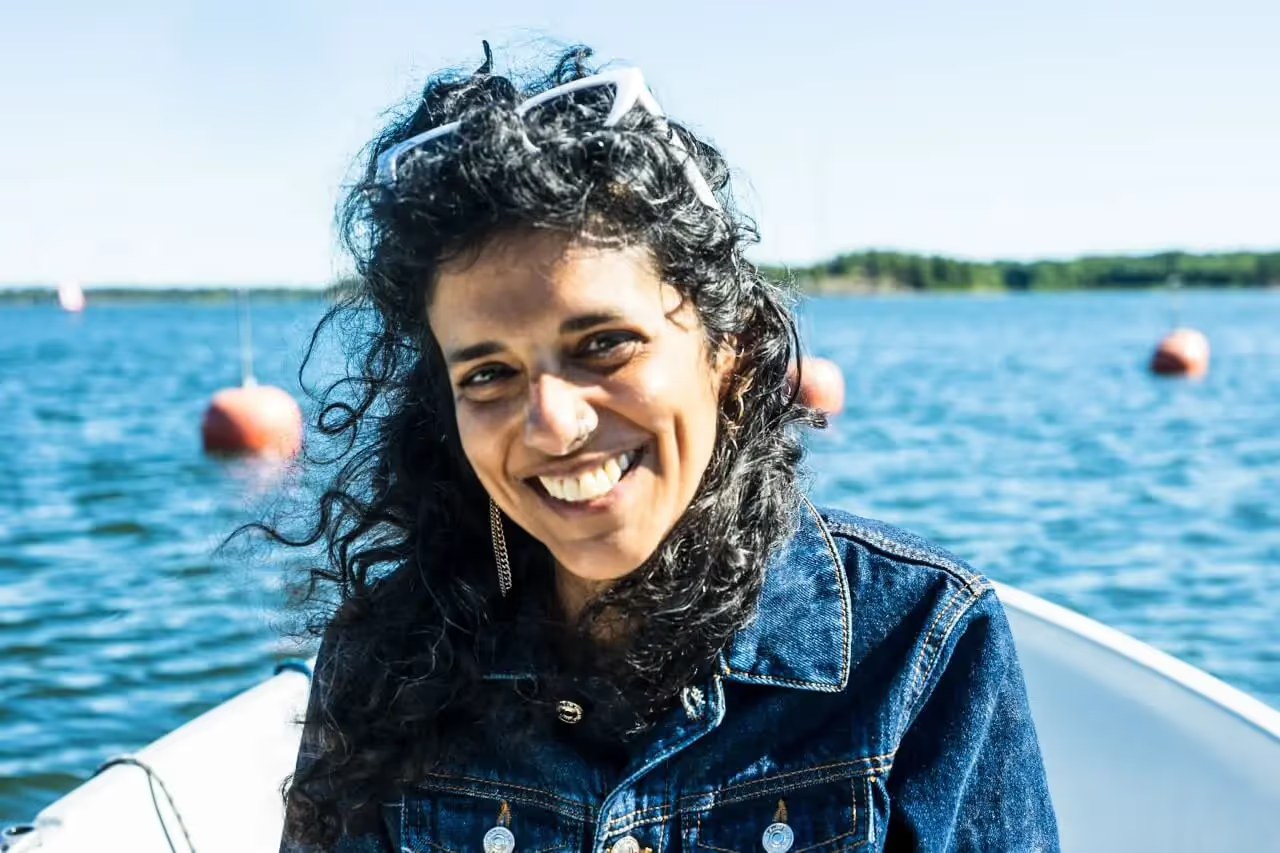
United Kingdom
Learn more

Project: Radio Brown Atlantis
Biography

Ayesha Hameed (London, UK) explores the legacy of servitude and slavery through figures from the Atlantic and Indian Oceans. Her Afro-futuristic approach combines performance, sound texts, videos and lectures. Hameed examines the mnemonic power of these mediums, their ability to transform the body into a body that remembers. The motifs of water, borders and displacement, recurrent in his work, offer a reflection on the histories and materialities of migration and, more generally, on the relationship between human beings and what they imagine to be nature.
Recent exhibitions include solo shows at Kunstinstituut Melly, Netherlands (2022), and Bonniers Konsthall, Sweden (2022), and group shows at Zeitz MOCCA, South Africa (2022), Liverpool Biennale, UK (2021), Momenta Biennale, Canada (2021), and Gothenburg Biennale, Sweden (2019, 2021). Hameed is co-editor of Futures and Fictions (Repeater 2017) and co-author of Visual Cultures as Time Travel (Sternberg/MIT 2021). She is currently Senior Lecturer in Visual Cultures at Goldsmiths University, London, and Research Associate at the Kone Foundation.
Residency project
During her residency, Ayesha Hameed will develop a new episode of her radio program Brown Atlantis (broadcast on Movement Radio in Athens and Radio Alhara in Bethlehem) where she will examine the French presence in the Indian Ocean world and the traces of this world in France. She will follow what might be called the afterlives of servitude and slavery that manifest themselves in the colonial metropolis, both in its history and in its present. She will also develop an experimental book based on Radio Brown Atlantis, commissioned by Bonniers Konstall in collaboration with guests from previous episodes. The book will explore questions such as: how do winds, currents, flora, fauna, weather and stars leave their mark? How does his language reflect the intonations, creoles and miscommunications of communication at sea? And how could we conceive of a Brown Atlantis (an "Atlantis Brune") at the bottom of the Indian Ocean without the blinkers of human navigation and measuring instruments?

Bangladesh
Learn more

Project: Poetry of Universal Materials
Biography:
Mizanur Rahman Chowdhury was born in 1981 in Noakhali, Bangladesh. He is based between Dhaka, Bangladesh and the United states. His practice is interdisciplinary, playing with different languages such as installation, assemblage, movement, video, collage, sculpture, found footage and experimental film to conjure multifaceted artistic universes.
Residency project :
Mizanur Rahman Chowdhury has been working with recycled, discarded and ordinary everyday materials for many years to explore energy, sustainability and the environment. While France is adopting a law to combat waste and to reuse energy to transition from a linear into a circular economy, it is, at the same time, discarding a huge quantity of unwanted products that are being wasted because of overproduction. By investigating these contradictory policies and perspectives, his project will focus on how art-making can be an intervention to increase sustainability for the sake of the environment. Mizanur Rahman Chowdhury’s research will also look at some recycling procedures such as how the systems are maintaining incineration with energy recovery. The project will be developed through collaborations with different groups, communities and waste management industries.

Kuwait and Puerto Rico
Learn more

Project: Migrations of Form
Biography:
Alia Farid was born in Kuwait in 1985. She lives and works in Kuwait and Puerto Rico. Through film and sculpture, her work gives visibility to lesser-known histories often deliberately erased. Alia Farid is represented by Galerie Imane Farès (Paris).
Residency project :
During her residency, Alia Farid will continue her work Migrations of Form. This research project is a study of a series of migrations that examines transplanted building types, including businesses, community centers, restaurants and residential neighborhoods. The project traces the expulsion of Arab, African and South Asian population groups to Latin America and the Caribbean. Alia Farid's work connects sites, creating a trans-regionalism that goes beyond national land borders.

United States and Germany
Learn more

Project: Epidemiological routes and ruptures
Biography:
Clara Jo was born in the United States in 1986. She lives and works in Berlin. The artist creates moving images and sculptural installations that trace sensitive historical and ontological discourses by blending senses, perceptions and the constructed socio-political relations that are part of the human experience. Her work has been shown in exhibitions at Hamburger Bahnhof - Museum für Gegenwart Berlin (Germany, 2017) and Edith-Russ-Haus für Medienkunst (Germany, 2022). She participated as a guest artist in Oceanic Imaginaries at the Stedelijk Museum Amsterdam (Netherlands, 2022) and is programme Smithsonian Artist Research Fellowship recipient (USA, 2019). She will be exhibiting at the ARKO Art Center (Korea, 2022).
Residency project :
During the residency, Clara Jo will explore intersections, political entanglements and ruptures along epidemiological routes embedded within the Afrasian Sea, which have historically been narrated in flawed terms to bolster the imperial nautical imaginary. She will trace maritime flows of not only human but also beyondhuman encounters within pre-imperial currents. Her project will also examine how these narratives have been represented throughout time along historical lines of contagion, which ultimately feeds into collective imaginations and fictions that arise around fear of contamination from the “non-human” world.
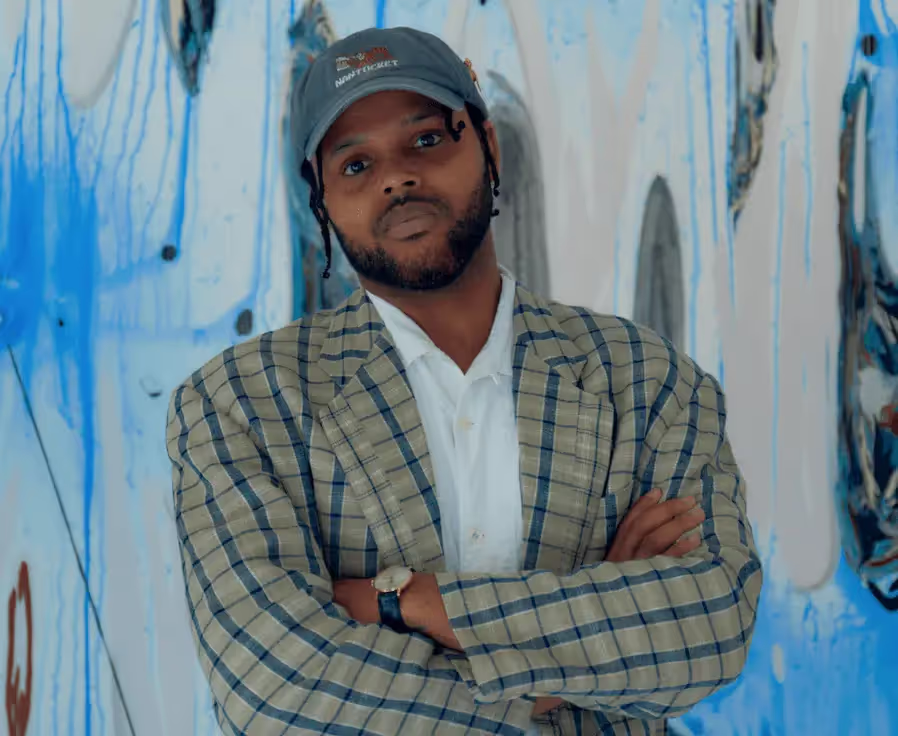
Haiti
Learn more

Project: Recueil2
Biography:
Manuel Mathieu was born in 1986 in Port-au-Prince, Haiti, and lives and works in Montreal, Canada. Manuel Mathieu is a multidisciplinary artist, working across painting, ceramics and installation. His work investigates themes of historical violence, erasure and cultural approaches to physicality, nature and spiritual legacy. Freely operating in between and borrowing from numerous historical influences and traditions, Manuel Mathieu aims to find meaning through a spiritual or asemic mode of apparition. Manuel Mathieu is represented by gallery Pilar Corrias (London) and HdM Gallery (China).
Residency project :
Mathieu’s residency project will focus on the development of Recueil2, his second recueil of drawings, to be released in 2023. Drawing is an important part of Manuel Mathieu’s practice; while not foundational to his painting process, drawing “taught him how to look at his paintings”. It is for this reason that he committed to the production of a recueil of drawings every five years for the duration of his life, which will summarise his artistic explorations within the medium of drawing within each period. Recueil2 will follow the same format as the first, opening with a poem, following with a selection of drawings and then an interview with a thinker. The individuals invited for collaboration will be chosen from different continents, with the idea that this exchange of views will create a unique dialogue that will act as a complement to the body of drawings.
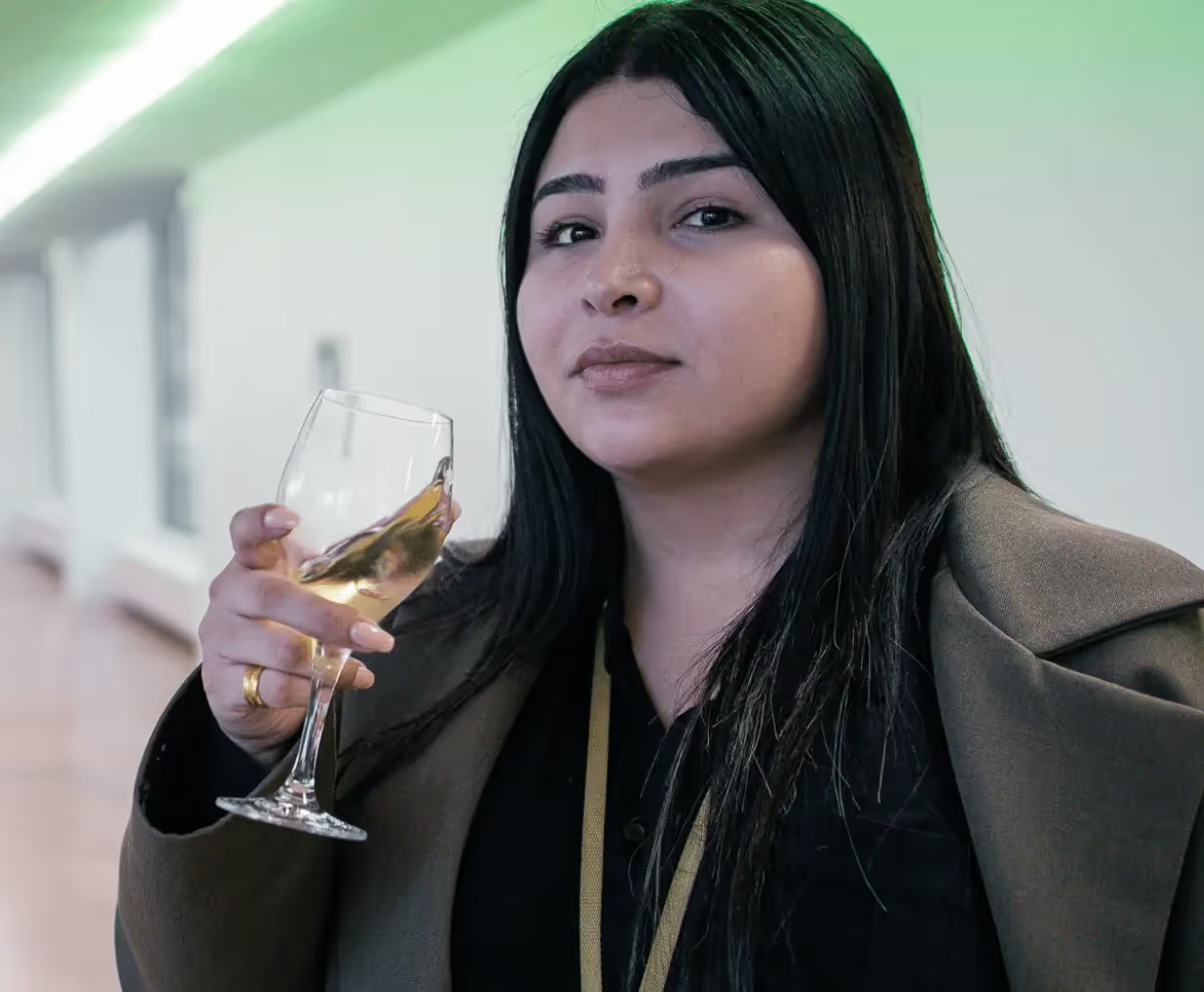
United States
Learn more

Project: Creative License in Nonfiction
Biography:
Ser Serpas was born in 1995 in Los Angeles, United States. She is based between Tbilisi, Georgia, and Paris, France. She works in between sculpture, poetry, painting and sound to create overarching compositions that resist simple categorization in the face of fossilization. Ser Serpas is represented by Gallery Balice Hertling (Paris).
Residency project :
Ser Serpas will finish the screenplay of a horror movie set at Columbia University in the year 2013. It features a group of friends targeted by a malignant force on campus and within their social sphere. This story is loosely based on Rosemary’s Baby, and has been brought into the material conditions of campus politics in 2013 including the fomenting of the Black Lives Matter movement and the Red Tape protests on campus against sexual assault.
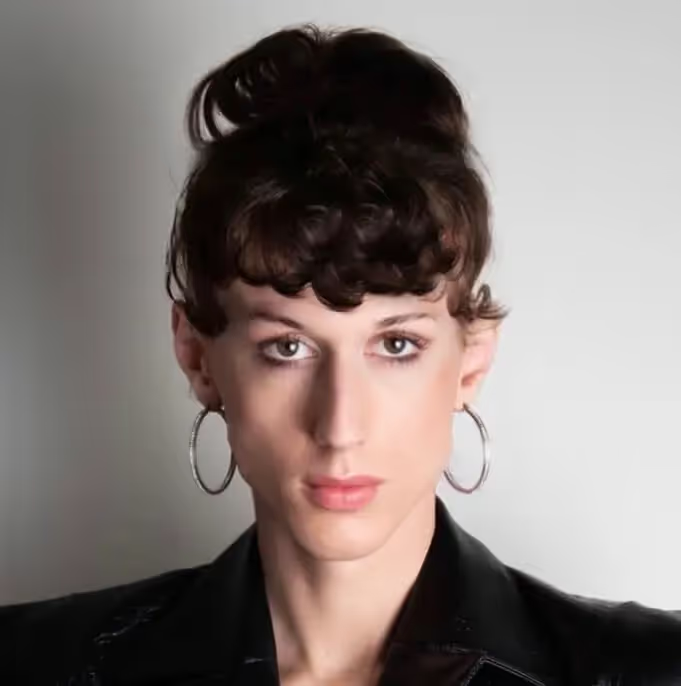
Germany
Learn more

Project: Stars of Hysteria
Biography:
Luki von der Gracht was born in Aachen, Germany. She lives and works in Berlin and Düsseldorf, Germany. Luki von der Gracht’s cross-media work is devoted to the exploration of emotionality, social belonging, identity and gender in an effort to gain greater visibility for marginalised groups.
Residency project :
Luki von der Gracht plans to research on body politics and poetry, and examine societies’ relationship to misogyny and medicine, theatricality and religion. This utopian punkrockopera, Les Étoiles de l’Hystérie, plays in Hôpital de la Salpêtrière in Paris between 1875 and 2023. It is told from the female patients’ points of view, who try to take over the hospital. Science, as art and theatre, seeks for the meaning of human existence. How are they connected?
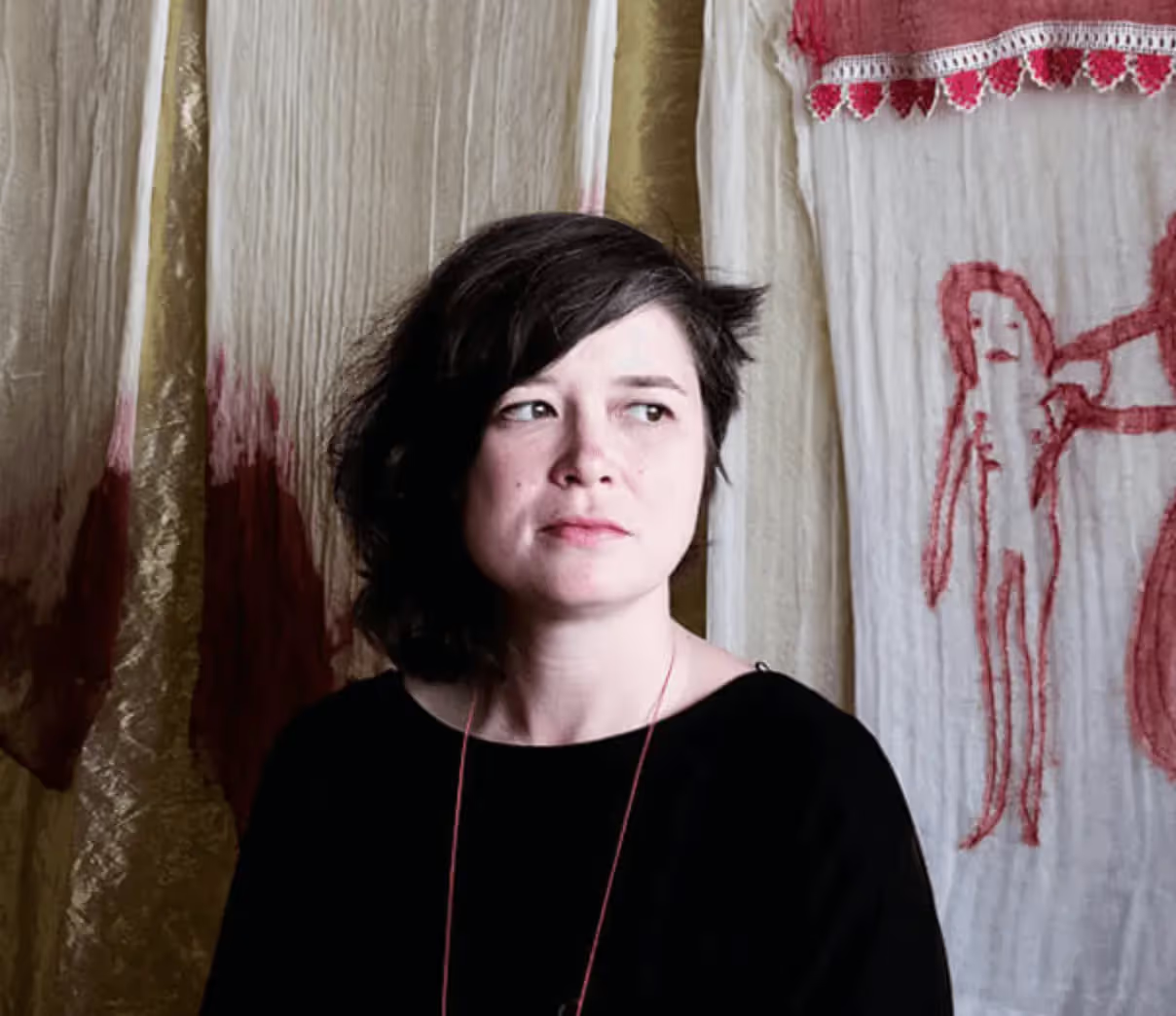
Turkey
Learn more

Project: Sewing Stories
Biography:
Güneş Terkol was born in 1981 in Ankara, Turkey. She lives and works in Istanbul, Turkey. The artist draws inspiration from her immediate environment, collecting materials and stories that she incorporates into her sewn pieces, videos, sketches and musical compositions. She is also a member of the artists' collective HaZaVuZu and the (musical) group GuGuOu. Her work has been presented at 10Gwangju Biennale (Korea, 2013), 32 Sao Paulo Bienal (Brazil, 2016), ArtNight London (UK, 2017), 16 Istanbul Biennial (Turkey, 2019), and Centre for Contemporary Art Luigi Pecci (Italy, 2020).
Residency project :
Güneş Terkol has organized workshops with women in Turkey, China, Germany, Italy, Austria and the UK, where women with different backgrounds come together to create art collectively. Güneş Terkol developed this idea of workshops while she was a member of a feminist art collective. The collaborative aspect of making art is essential to her practice, as it brings women together, providing a space in which they can speak about their experiences as women, and giving greater visibility to women’s voices. Güneş Terkol plans to make her new banner workshop in Paris during her residency.
2022 Selection Committee

Philosopher of science, professor at the Université de Liège and the Université Libre de Bruxelles (Belgium)
Learn more

Philosopher and psychologist Vinciane Despret teaches in the Philosophy Department at the University of Liège. Passionate about ethology, she has made it the subject of her research. In 1996, she recounted her first fieldwork with birds in Naissance d'une théorie éthologique : la danse du cratérope écaillé. Other publications followed, including Bêtes et Hommes (following the eponymous exhibition she curated at the Grande Halle de la Villette in 2007-2008); Etre bête, co-written with Jocelyne Porcher; Les faiseuses d'histoires with Isabelle Stengers; Penser comme un rat; Que diraient les animaux si on leur posait les bonnes questions? His latest book, Habiter en oiseau, examines the question of territories. The common thread running through his investigations is the question of good research methods: how do we (or don't we) manage to make beings interesting?
Photo credit: Sylvère Petit

Artistic Director of the Samdani Art Foundation and Chief Curator of the Dhaka Art Summit
Learn more

Diana Campbell Betancourt is an American curator who has been active in South and Southeast Asia since 2010, mainly in India, Bangladesh and the Philippines. She is committed to the globalization of the art world, and takes a long-term, multi-faceted approach that addresses the concerns of under-represented territories and artists, as well as those of more established artists, in numerous forums.
Since 2013, she has been artistic director and founder of the Samdani Art Foundation, based in Dhaka, Bangladesh, and chief curator of the Dhaka Art Summit, whose critically acclaimed 2014, 2016, 2018 and 2020 editions she has directed. She has established the Dhaka Art Summit as one of the leading research and exhibition structures dedicated to art in South Asia, bringing together artists, architects, curators and writers from across South Asia through a primarily commission-based model. Alongside her activities in Bangladesh from 2016 to 2018, Diana Campbell Betancourt was also the artistic director and founder of Bellas Artes Projects in the Philippines, a non-profit international residency and exhibition programme based in Manila and Bataan.
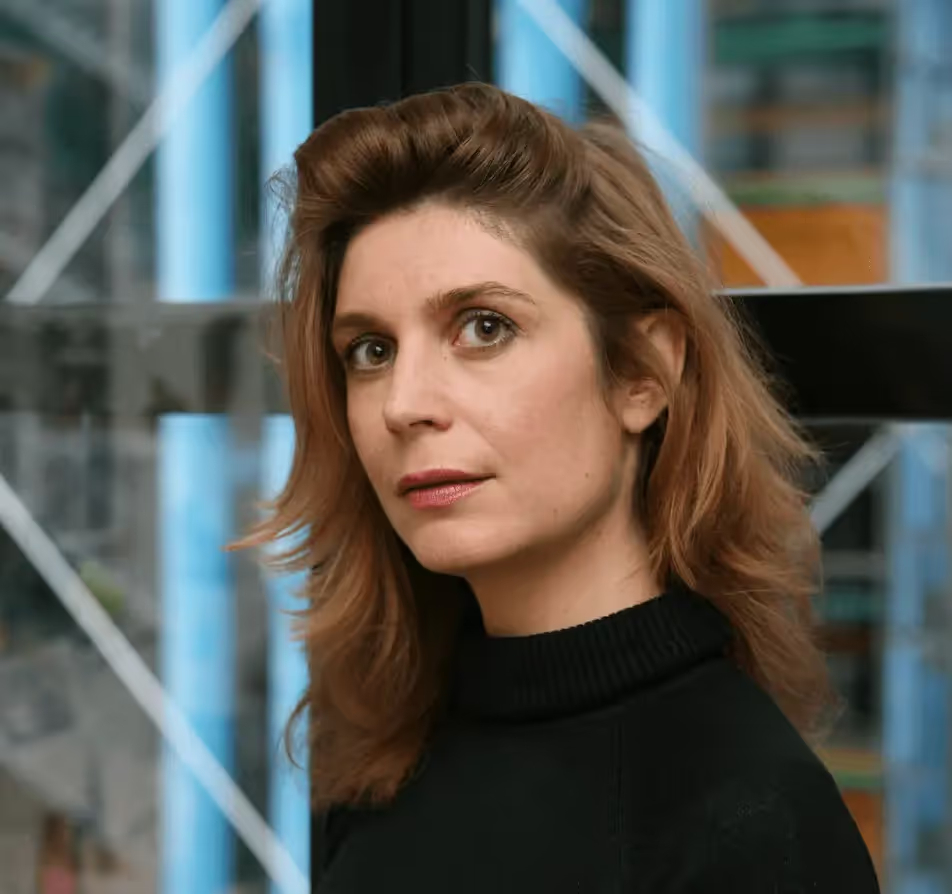
General Curator of Heritage, Head of the Contemporary Creation and Prospective Department at the Mnam Centre Pompidou, France
Learn more

Art historian and curator Christine Macel has been head curator of the Contemporary Creation and Prospective Department at the Centre Pompidou since 2000, where she has organized numerous exhibitions. She was director of the 2017 Venice Art Biennale 'Viva Arte Viva'. Her essay "Le Temps Pris" was published in 2020 by Editions Champs d'art Flammarion. Co-curator of "Global(e) Resistance" at the Centre Pompidou in 2020, she is preparing the exhibition "Elles font l'abstraction/Women in abstraction" at the Centre Pompidou (May 2021) and at the Guggenheim Bilbao (October 2020).
Photo credit: Photo by courtesy of Jean-Claude Planchet

Writer, curator, essayist and art critic
Learn more

Simon Njami is an independent curator, lecturer, art critic and novelist based in Paris. He co-founded Revue Noire - of which he is editor-in-chief - a magazine devoted to contemporary and non-Western African art. He was artistic director of the first Johannesburg Art Fair (2008), the Bamako Photography Biennale (for ten years) and the Dakar Biennale, Dak'Art (2016-2018). He co-curated the first African Pavilion at the 52nd Venice Biennale (2007). He has also curated, among others, the exhibitions Afriques Capitales (Paris and Lille, 2017), African Metropolis (MAXXI Museum, Rome, 2018), The Studio (Kampala Biennale, 2019), Le temps de l'Afrique (Las Palmas, 2020), La Matière vivante (San Giminiano, 2021).
Njami has curated numerous exhibitions of contemporary art and photography, including Africa Remix (2004-2007) and the first African contemporary art fair (Johannesburg, 2008). In 1998, he conceived the Pan-African Master Classes in Photography project with the Goethe Institute. He ran these for 12 years and built up the contemporary art collection at the Mémorial ACTe (Guadeloupe). He has published and edited numerous works, most recently Histoire histoires, l'histoire de la Revue noire (2020).
Photo credit: Cyrille Choupas.
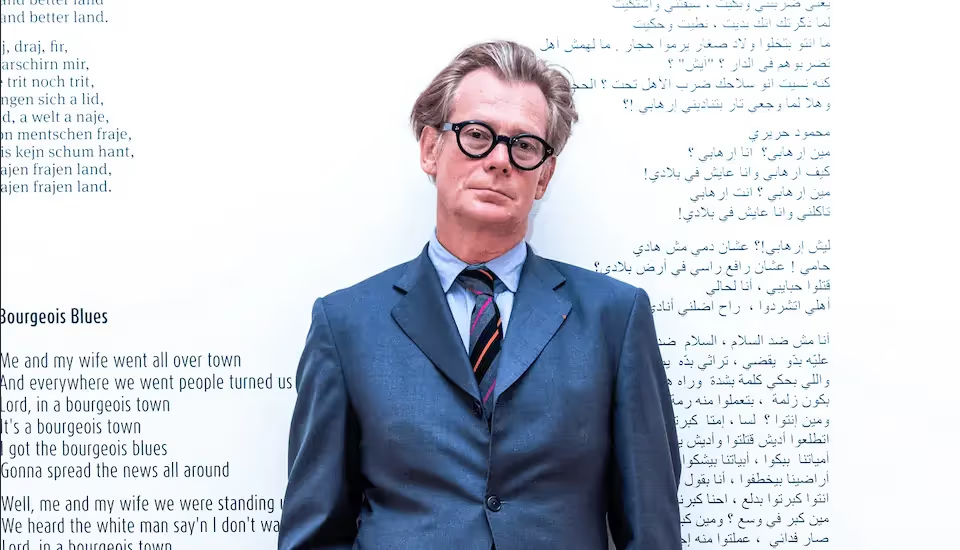
Director, Serralves Museum of Contemporary Art (Portugal)
Learn more

Philippe Vergne has been director of the Serralves Museum of Contemporary Art in Porto since April 2019. From 2014 to 2018, he was director of the Museum of Contemporary Art (MOCA) in Los Angeles. Prior to that, he spent five years overseeing the DIA Foundation in New York, after serving as deputy director and chief curator of the Walker Art Center in Minneapolis. From 1994 to 1997, Philippe Vergne was director of the Musée d'Art Contemporain de Marseille (MAC).

Artistic Director, Serpentine Galleries
Learn more

Hans Ulrich Obrist, born 1968 in Zürich (Switzerland), is artistic director of the Serpentine Galleries in London. He was previously curator of the Musée d'Art Moderne de la Ville de Paris. Since his first exhibition, "World Soup" (The Kitchen Show) in 1991, he has organized over 300 exhibitions, and has lectured internationally at art academies and institutions. He is editor-in-chief of Artforum, AnOther Magazine, Cahiers d'Art and 032C, and a regular contributor to Mousse and Kaleidoscope. He also writes columns for Das Magazin and Weltkunst. Obrist received the CCS Bard Award for Curatorial Excellence in 2011, and the Folkwang International Award for his commitment to art in 2015. Recent publications include Ways of Curating (2015), The Age of Earthquakes (2015), Lives of the Artists, Lives of Architects (2015), Mondialité (2017), Somewhere Totally Else (2018) and The Athens Dialogues (2018).
Photo credit: Tyler Mitchell.
Residents 2021
First session - from spring 2021
SOLO Programme

Artist, South Africa
Learn more

Dineo Seshee Bopape
Artist, South Africa, 1981
Dineo Seshee Bopape was born in 1981, on a Sunday. the Boeing 767 makes its first airflight; Umkonto We Sizwe performs numerous underground assualts against the apartheid state. There was an earthquake that killed maybe 50 people in China; an International NGO Conference on Indigenous Populations and the Land is held in Geneva, The name ‘internet’ is mentioned for the first time; Hosni Mubarack was elected president of Egypt; there is a coup d’etat in Ghana; princess Diana of Britain marries Charles; Bob Marley dies; apartheid SA invades Angola; AIDS is identified/ created/named; Salman Rushdie releases his book “Midnight’s Children”; the remains of the Titanic are found; Muhamed Ali retires; Winnie Mandela’s banishment orders are renewed for another 5 years; the first test tube baby is born, Thomas Sanakara rides a bike to his first cabinet meeting; Machu Pichu is declared a heritage site; her paternal grandmother dies affected by dementia; that very year millions of people cried tears(of all sorts), spoke words in many languages and billions of people dreamt…. somethings continued, somethings transformed others ended(?), The world’s human population was then apparently at around 4.529 billion… today she (Bopape) is one amongst 7 billion – occupying multiple adjectives.” She is the winner of the Future Generation Art Prize 2017, as well as the Sharjah Biennial Prize 2017. She is represented by the galleries Sfeir-Semler (Beirut) and Bendana Pinel (Paris).
The project: Vibe: Sa lerole ke kosha
Dineo Seshee Bopape was born in 1981, on a Sunday. the Boeing 767 makes its first airflight; Umkonto We Sizwe performs numerous underground assualts against the apartheid state. There was an earthquake that killed maybe 50 people in China; an International NGO Conference on Indigenous Populations and the Land is held in Geneva, The name ‘internet’ is mentioned for the first time; Hosni Mubarack was elected president of Egypt; there is a coup d’etat in Ghana; princess Diana of Britain marries Charles; Bob Marley dies; apartheid SA invades Angola; AIDS is identified/ created/named; Salman Rushdie releases his book “Midnight’s Children”; the remains of the Titanic are found; Muhamed Ali retires; Winnie Mandela’s banishment orders are renewed for another 5 years; the first test tube baby is born, Thomas Sanakara rides a bike to his first cabinet meeting; Machu Pichu is declared a heritage site; her paternal grandmother dies affected by dementia; that very year millions of people cried tears(of all sorts), spoke words in many languages and billions of people dreamt…. somethings continued, somethings transformed others ended(?), The world’s human population was then apparently at around 4.529 billion… today she (Bopape) is one amongst 7 billion – occupying multiple adjectives.” She is the winner of the Future Generation Art Prize 2017, as well as the Sharjah Biennial Prize 2017. She is represented by the galleries Sfeir-Semler (Beirut) and Bendana Pinel (Paris).
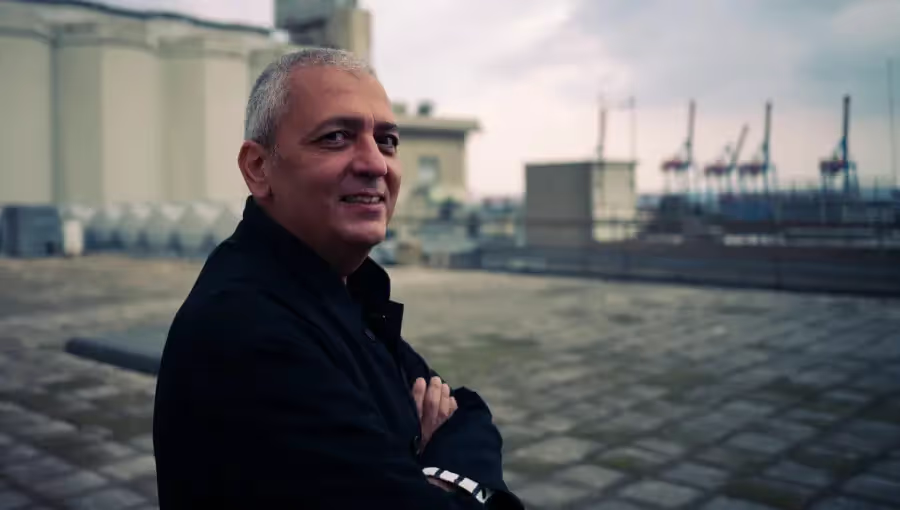
Photographer and video maker, Lebanon
Learn more

Akram Zaatari
Photographer and video artist, Lebanon, 1966
Born in 1966, Akram Zaatari has produced more than 50 films and videos. These all share an interest in writing histories, pursuing a range of interconnected themes, subjects and practices related to excavation, political resistance, the lives of former militants, the legacy of an exhausted left, the circulation of images in times of war, and the play of tenses inherent to various letters that have been lost, found, buried, discovered, or delayed in reaching their destinations. Zaatari has played a critical role in developing the formal, intellectual, and institutional infrastructure of Beirut’s contemporary art scene. As a co-founder of the Arab Image Foundation (1997), he has made invaluable and uncompromising contributions to the wider discourse on preservation and archival practice. One of the most important artists on the Lebanese scene, having represented Lebanon at the Venice Biennial in 2013, Akram Zaatari is represented by the galleriesSfeir-Semler (Beirut), Thomas Dane (London) and Kurimanzutto (Mexico).
The project: FATHER AND SON
The project FATHER AND SON looks at two archeological missions that took place in Sidon in the mid-nineteenth century and that led to the discoveries of two sarcophagi belonging to a father and a son; kings Eshmouazar II (now in Paris) and Tabnit (now in Istanbul). The project imagines reuniting, possibly in the same space, but maybe symbolically or even virtually, the two sarcophagi through an art work. The project explores alternatives to restitution. This will happen first through 3D scanning, later through printing and hopefully reaching to their display together to tell the story of their separation.
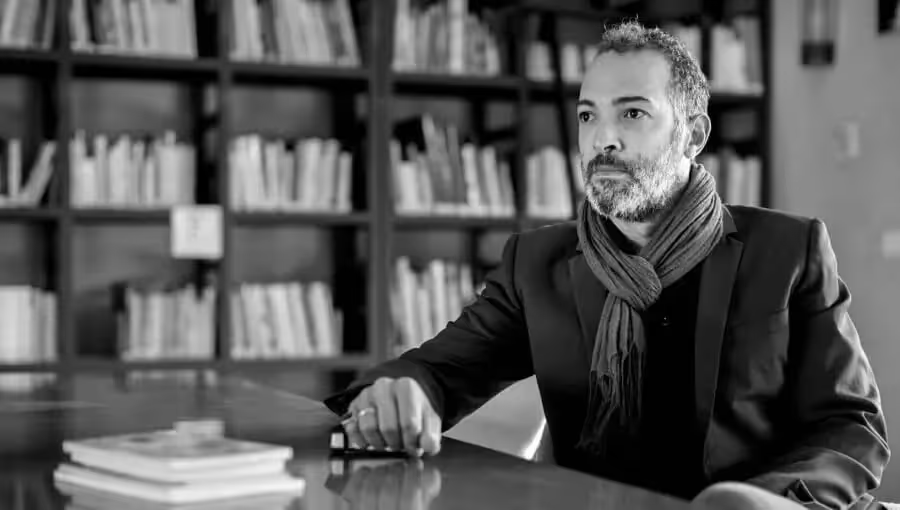
Artist, Morocco
Learn more

Mohssin Harraki
Artist, Morocco, 1981
Mohssin Harraki, born in Assilah (Morroco) in 1981, is a multidisciplinary artist whose drawings, videos, exhibitions and photographs are all ways of questioning social and political issues. The artist questions both the ways society builds cultural memory and collective imagination. He is interested in the mechanisms of building collective imaginary memories. He is also interested in subjects such as genealogy, the transmission of power and education. His exhibitions explore history, writing and images, notably his exhibition ‘Illusions: the presence of images contribute to their disappearance’ at the Imane Farès Gallery (Paris). His work has been presented in numerous institutions including the Centre Pompidou in Paris, France in 2020, the Frac Nouvelle-Aquitaine MECA, Occitane-France in 2020, Beirut Art Center, Beirut, Lebanon in 2019, Group exhibition at the Castelli Gallery, New York, United States in 2019, at the Dakar biennial , Senegal in 2018, at the Hessel Museum of Art, at the Gwangju Museum of Art, South Korea in 2014 and 2013. He presented his project ‘Absence-Presence Twice’ with Joseph Kosuth at the Imane Fares Gallery (Paris). He is represented by the gallery Imane Farès (Paris).
The project: Forbidden image/missing image
My residency project is a research on the birth of the photo, the passage to the image and its circulation. In the project Forbidden Image / Missing Image, I try to question the ban on the image and the degree of lack it produces, while evoking the means of production of the archive and its relationship with History in its Moroccan context and that of Arab countries in general. I am interested in the relationship to the history of the ban on images in the Arab countries, a history to be imagined from words, from the absence, the invisible, the lack of image. Is there a possible encounter with emptiness through words? A missing image is not simply the absence of something that perhaps reveals its real nature, but this absent image as such. Talking about an image through another image without taking an image, for example, taking a picture of a photographer taking a picture of the photographer taking the picture (image), is like talking about the third witness of a photo.

Artist, Switzerland
Learn more

Maya Minder
Artist, Switzerland, 1983
Maya Minder, born in 1983 and lived in Zurich, is a performing artist and feminist, who based her researches into the importance of microbes for daily life and cooking. Her work is about cultivating communities and culinary delights. Similar to the concept of culture, Food has its roots in an agricultural context and now encompasses concepts related to knowledge as one of her research. She has received several awards and nominations : Kadist Award, Pro Helvetia, Pax Award. She has also been exhibited in several international exhibitions and festivals: Ars Electronica, AEGardens2020, Austria, Piksel Spill Fest, Norway, Kunsthalle Zurich, Klöntal-Triennale, Food Culture Days, Swiss. In her work she focuses on food and how we are connected to this world to earthly ways. Food has become essential since it is socio- political and economical interrelated and finally understood as a human cultural heritage and alchemy. Eating as an act of nutrition uptake is not only a physical activity, but also bounds us within a daily rhythm and interspecies and microbial exchange and continues update.
The project: Green Open Food Evolution
With Green Open Food Evolution – A dietary proposal for an endosymbiotic co-evolution to become Homo photosynthetic I want to propose an artist research project for the residency. The Research is open ended and the final result of this research project would be a speculative cooking book on a potential dietary program accompagned by performative lectures, workshops and dinner- performances on the subject of Homo photosynthetic. The project will be developed in collaboration with the interdisciplinary artistic research project « Roscosmoe – The worm that wanted to go into space » initiated by Ewen Chardronnet and the marine biologists Xavier Bailly and Gaëlle Correc (researchers at the Roscoff Biological Station, Finistère – CNRS Sorbonne Université).

Artist, France
Learn more

Sara Ouhaddou
Artist, France, 1986
Born in France in 1986 to a Moroccan family, Sara Ouhaddou’s artistic practice is influenced by the continuous language of her dual culture. Beginning her career as a fashion designer, she then developed more artistic and social techniques, addressing the challenges faced by Moroccan craftsmen. She used this forum to question the role of art as a tool for economic, social and cultural development, particularly in the Arab world. By sharing her examination of the changes in her cultural background, she juxtaposes traditional Moroccan art with the conventions of contemporary art so as to highlight the realities of forgotten cultures. She has participated in the following exhibitions: Islamic Art festival, Sharjah (2017-2018), Crafts Becomes Mordern, Bauhaus Dessau Foundation (2017); the Marrakech Biennale (2016). His monographic exhibitions have been presented at the Moulin d’Art Contemporain de Toulon (2015); Gaité Lyrique, Paris (2014); and the Institut Français de Marrakech (2014). Among the awards she has received: Arab Fund for Art and Culture (2014); and Un Pourcent Art Contemporain NYC, Little Syria Project (2017). She is represented by the gallery Polaris (Paris).
The project: Des Autres
Des Autres is a research project which treats all divine, human and monstrous figures in the culture of the ancient Amazighs* people of North Africa. And in parallel, the typological history of places of knowledge: libraries, media libraries and museums. This geographical crossover study, over time, between Europe and North Africa is intended to allow me to build a work of art as a new physical, ethereal or performance space superimposed on all other knowledge. By highlighting the Amazigh mythology, I question our spaces of learning and knowledge transmission in a wider sense.

Artist, filmmaker, Mauritania
Learn more

Hamedine Kane
Artist, filmmaker, Mauritania, 1983
Hamedine Kane, Senegalese and Mauritanian artist and film director, lives and works between Brussels and Dakar. Through his practice, Kane frequents borders, not as signs and factors of impossibility, but as places of passage and transformation, as a central element in the conception of itinerant identity. He uses words and images to highlight the notions of exile, wandering, and movement but also to replace political time with living time. He developed a strong interest in memory and heritage which reflected in The School of Mutants with Stéphane Verlet-Bottero, a research project that intermingles with the past and the future, transgressing and irrigating the limits of space and time. Kane’s latest works were exhibited at the last Dak’art Biennale under the direction of Simon Njiami, at Documenta 14 :“Every Time A Ear Di Sound” curated by Bonaventure Soh Bejeng Ndikung, Elena Agudio and Marcus Gammel. In 2018 his work was the subject of a solo exhibition in Mumbai at Clark House Initiative, commissioned by Sumesh Sharma with whom he continued a collaboration at The Showroom in London. In 2018 Kane also exhibited at the FIAC and The Colonie in Paris. Kane participated in the TaipeiBiennial 2020, he will be part of the Casablanca Biennale 2021. His film The Blue House received a special mention from the jury at IDFA in Amsterdam in 2020.
The project: Three Americans in Paris
My particular interest for literature and the book as an object, vector for my artistic creation, comes above all from my previous work as librarian in Senegal and Mauritania. This experience was to become an important marker in my artistic development. At the same time, I also developed an interest in the influence that African, Afro-American and African diaspora literature and its authors have, as source of inspiration for current generations in their political social and environmental struggles. The residency will allow me to continue this research and to create a new season of work around this literature. It so happens that the three American writers which with whom I would like to launch this new creative research (Richard Wright, Chester Himes and James Baldwin), following the series ‘Salesman of Revolt’ (2018), lived in and created the majority of their work in Paris. The work of these three writers was for me a great source of inspiration and comfort during my European exile. I know that they were also a great inspiration to many before me.
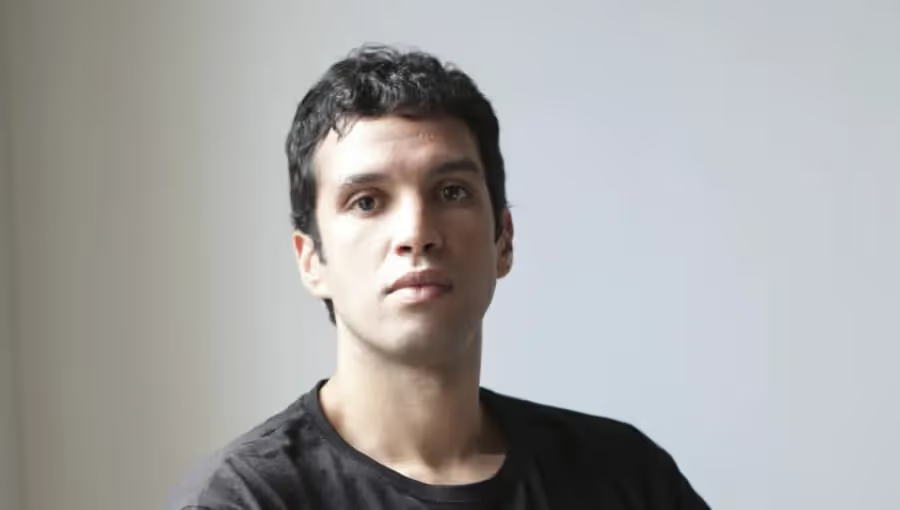
Artist, France
Learn more

Achraf Touloub
Artist, France
Achraf Touloub explores the links between tradition and modern life in a globalised world. His pictorial work brought him to focus on diverse forms of visual art, with an alternative treatment of perspective: a motif of multitude of intersecting lines was born. He is represented by the Belgian gallery Baronian Xippas.
The project: A window for ONE world
For his residential project Art Explora, Achraf Touloub will be developing a new series of drawings and paintings as a starting point to discuss the question of reality in an ever more connected world governed by omnipresent communication technologies. Since starting this journey, the artist has considered initiative and immersive dimensions unique to technology and merged them with traditional forms of representation. This immersive dimension now disrupts the way in which we understand and come to terms with the modern era. So many current events leave the impression that they are choreographed, engulfing us in what seems to be a preordained script. This heady feeling of finding ourselves both actor and spectator in these images is one of the major consequences of communications technologies on our existence. The dizzying feeling we face conduces the artist to invent and experiment with new forms of perception and his attempt to navigate the multiple superimposed dimensions which make up the contemporary world. Achraf Touloub expresses his work with pictographic research and immersive formats, which take the physical representation first and foremost as a carnal and intuitive experience. It is about giving the visual image a function, of generating a space in which we can reconnect with our primal self.
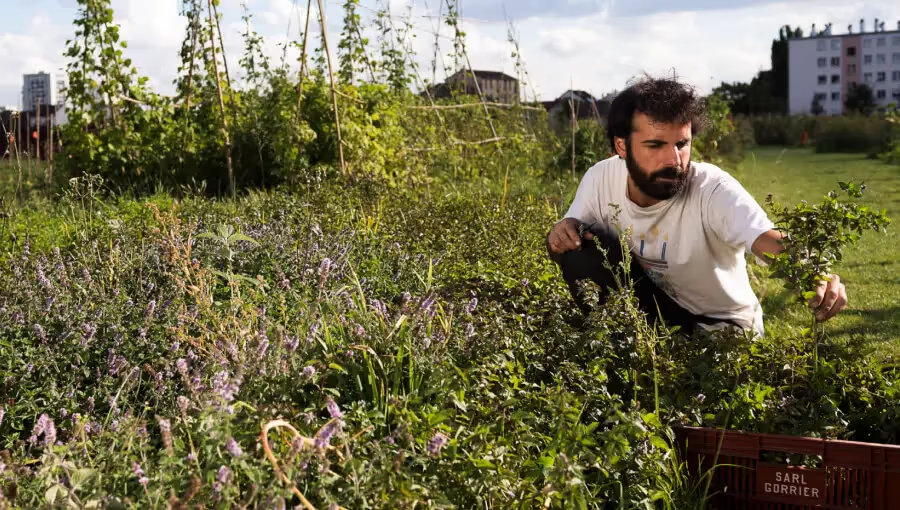
Artist, France
Learn more

Stéphane Verlet-Bottéro
Artist, France
Stéphane Verlet-Bottéro is an artist, environmental engineer and curator. He lives and works between Paris and London. His transdisciplinary practice develops collective forms of action and education, linked to the socio-ecological mutations of territories. His work has been presented at the ZKM Karlsruhe, the Taipei Biennale, the Oslo Triennial and various international institutions. In 2018, in Dakar, he initiated in collaboration with Hamedine Kane L'Ecole des Mutants, a collaborative art and research platform focusing on education and political utopia in a postcolonial context.
The project: Small grains cosmology
Stéphane Verlet-Bottéro is fascinated by Millet and other ‘grain diets’: for him, these forgotten cereals, left aside on the scrapheap of techno-scientific modernism, embody imperialism, patriarchal oppression a continued resistance to homogenisation. This is also about a resilient plant which, in a drier and less stable climate, could play an important role in improving food sovereignty and the future of agriculture. By sharing the requirements of other ways of looking at the world, his project tries to develop an agricultural universe around Millet, in relation with farming communities which are concerned for their survival. Building on his in-depth survey of interviews and the archives of specialist institutions, his project will include artistic creations, research into sleep and a dining performance.
DUO Programme
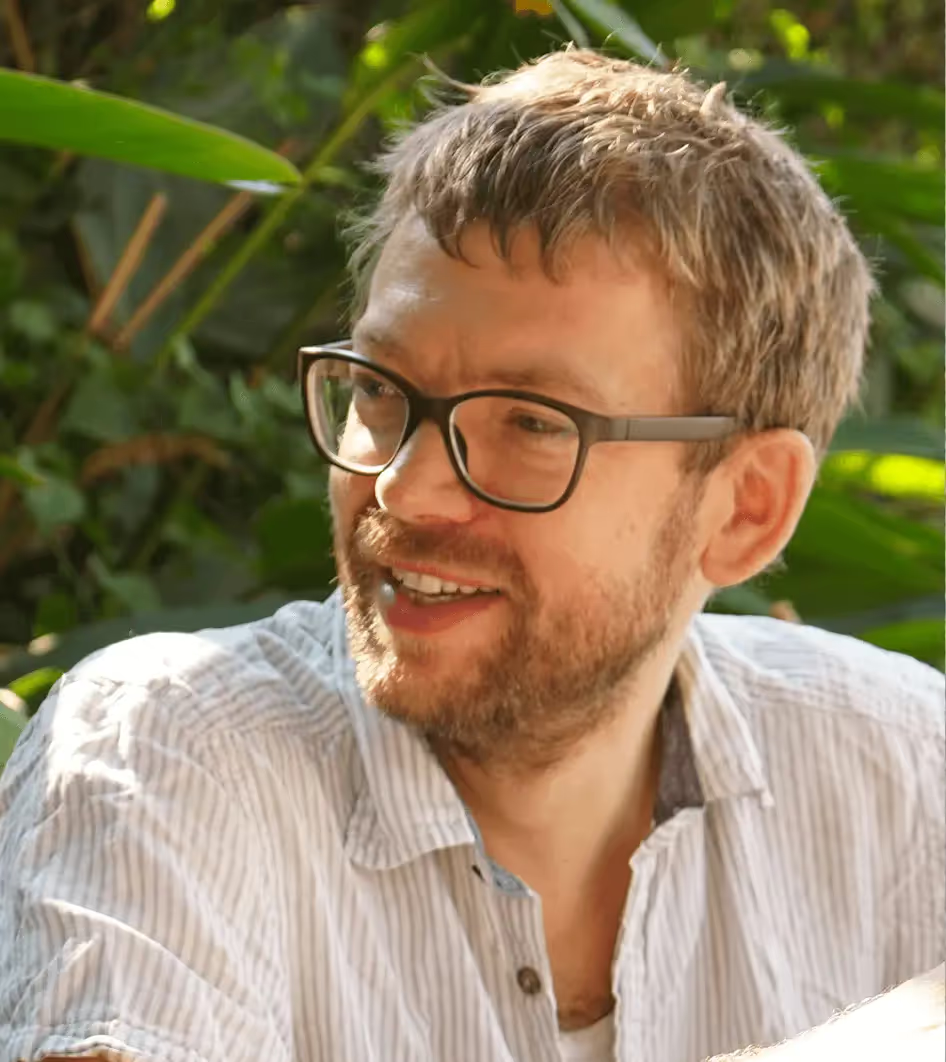
Artist, France
Learn more

Maarten Vanden Eynde
Artist, Belgium, 1977
Maarten Vanden Eynde is a visual artist based in Brussels (Belgium) and Saint-Mihiel (France). He graduated from the free media department at the Gerrit Rietveld Academy in Amsterdam (NL) in 2000, participated in the experimental MSA Mountain School of Arts in Los Angeles (US) in 2006 and finished a post graduate course in 2009 at HISK Higher Institute for Fine Arts in Ghent (BE). His practice is embedded in long term research projects that focus on numerous subjects of social and political relevance such as In 2005 he founded Enough Room for Space (ERforS), an interdependent art initiative that initiates and coordinates events, residencies, research projects and exhibitions worldwide, together with Marjolijn Dijkman.In 2005 he founded Enough Room for Space (ERforS), an interdependent art initiative that initiates and coordinates events, residencies, research projects and exhibitions worldwide, together with Marjolijn Dijkman. post-industrialism, capitalism and ecology. His work is situated exactly on the borderline between the past and the future; sometimes looking forward to the future of yesterday, sometimes looking back to the history of tomorrow. He is represented by the gallery Meessen de Clercq (Brussels).
Oulimata Gueye
Critic and curator, Senegal
Oulimata Gueye is an art critic and curator based in Paris (FR) studying the impact of digital technology on urban popular culture in Africa. Her fields of investigation include the potential of fiction to develop critical analysis and alternative positions. She holds a Master in cultural management delivered by the Paris 8 University, and studied Art and Language the École des Hautes Études en Sciences Sociales in Paris (FR). From 2020 to 2023 she is the external advisor to Maarten Vanden Eynde’s PhD candidature in the Artistic Research Project ‘Matter, Gesture, Soul’ at the University of Bergen in Norway.
The project: Ars Memoriae
The “Ars Memoriae” project takes as its starting point the little known Mesolithic site of Fontainebleau and is anchored in a broader research on the material forms of memory and the contemporary challenges of archaeology, particularly with regard to the place it has given to the African continent where the oldest remains of human presence on Earth are to be found. By studying different ways of remembering, it will be a question of imagining / speculating on / what could be the material vestiges that would survive contemporary society in order to propose an alternative historical narrative.
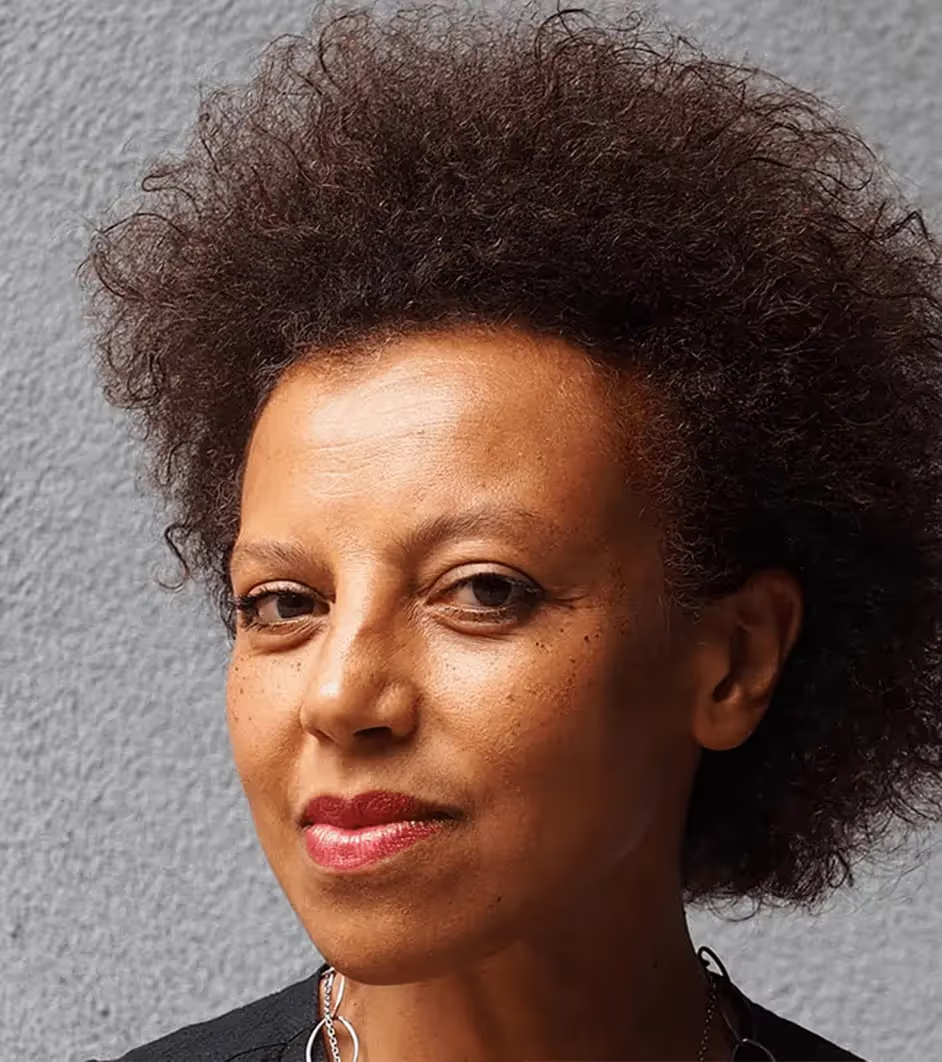
Critic and curator, Senegal
Learn more

Maarten Vanden Eynde
Artist, Belgium, 1977
Maarten Vanden Eynde is a visual artist based in Brussels (Belgium) and Saint-Mihiel (France). He graduated from the free media department at the Gerrit Rietveld Academy in Amsterdam (NL) in 2000, participated in the experimental MSA Mountain School of Arts in Los Angeles (US) in 2006 and finished a post graduate course in 2009 at HISK Higher Institute for Fine Arts in Ghent (BE). His practice is embedded in long term research projects that focus on numerous subjects of social and political relevance such as In 2005 he founded Enough Room for Space (ERforS), an interdependent art initiative that initiates and coordinates events, residencies, research projects and exhibitions worldwide, together with Marjolijn Dijkman.In 2005 he founded Enough Room for Space (ERforS), an interdependent art initiative that initiates and coordinates events, residencies, research projects and exhibitions worldwide, together with Marjolijn Dijkman. post-industrialism, capitalism and ecology. His work is situated exactly on the borderline between the past and the future; sometimes looking forward to the future of yesterday, sometimes looking back to the history of tomorrow. He is represented by the gallery Meessen de Clercq (Brussels).
Oulimata Gueye
Critic and curator, Senegal
Oulimata Gueye is an art critic and curator based in Paris (FR) studying the impact of digital technology on urban popular culture in Africa. Her fields of investigation include the potential of fiction to develop critical analysis and alternative positions. She holds a Master in cultural management delivered by the Paris 8 University, and studied Art and Language the École des Hautes Études en Sciences Sociales in Paris (FR). From 2020 to 2023 she is the external advisor to Maarten Vanden Eynde’s PhD candidature in the Artistic Research Project ‘Matter, Gesture, Soul’ at the University of Bergen in Norway.
The project: Ars Memoriae
The “Ars Memoriae” project takes as its starting point the little known Mesolithic site of Fontainebleau and is anchored in a broader research on the material forms of memory and the contemporary challenges of archaeology, particularly with regard to the place it has given to the African continent where the oldest remains of human presence on Earth are to be found. By studying different ways of remembering, it will be a question of imagining / speculating on / what could be the material vestiges that would survive contemporary society in order to propose an alternative historical narrative.
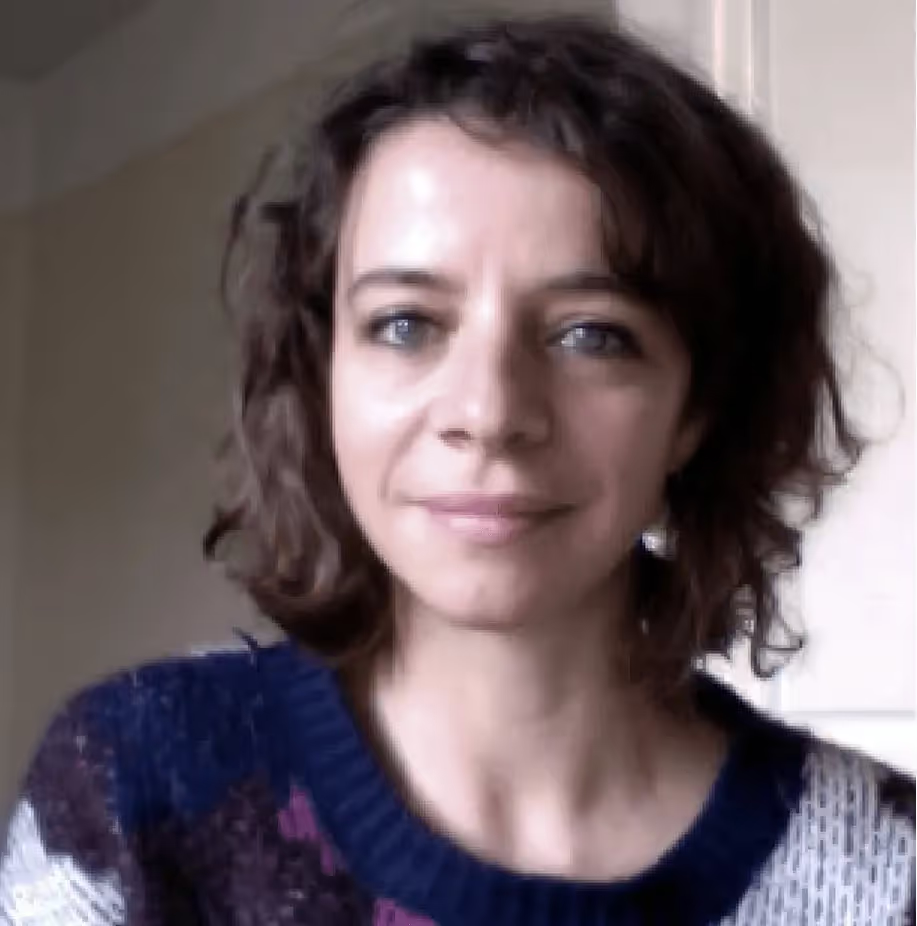
Artist and filmmaker, France
Learn more

Mélanie Pavy
Artist and filmmaker, France, 1977
Mélanie Pavy is an artist, filmmaker and researcher. For her first feature film, Cendres (co-directed with Idrissa Guiro and released in theaters in 2015) she will be a resident of the Villa Kujoyama in Kyoto for 7 months. In October 2020, as part of the SACRe doctoral program at PSL University, Fémis and the École Normale Supérieure de Paris, she will defend a practical thesis in cinema on life in a degraded world and the perspective of its disappearance. The installations and videos resulting from this work are shown in solo and group exhibitions at the BAL, the Galerie des filles du Calvaire, the Centre Georges Pompidou, the Grande Halle de la Villette, 116 in Montreuil and the Fémis. Through her work, she questions our capacity to think and to tell the story of loss, and its ultimate corollary, the end of a human world.
Sophie Houdart
Anthropologist, France, 1971
Sophie Houdart is an anthropologist, research director at CNRS (Laboratory of Ethnology and Comparative Sociology). Specialising in Japan, she conducted several research programs on the theme of creation and innovation, in the field of science, arts and architecture. Since 2012, she has been investigating life after the triple disaster in the Fukushima region of Japan in March 2011. She is working in collaboration with a hybrid collective, ‘Call It Anything’ which brings together researchers and artists around converging experiments on grief, damaged land, radioactivity and rebuilding what exists.
The project: Fukushima: cover versions
Between excavation and video editing, under the watchful eye of the two tutelaries Alexander von Humboldt (1769-1859) and Matsuo Bashô (1644-1694), our project ‘Fukushima: Reprises’ consists of encapsulating the mass of data from our travels in a region so severely hit by the nuclear catastrophe of March 2011 in Japan. By concentrating on what has not been said, what was barely visible but nevertheless noted, what has been sketched out without becoming salient, what persists, finally, once the text has been written and the film shot, we try to understand how common knowledge is woven around a reality that never ceases to escape us and, by reopening the story and risking it in contact with others, once again learn how it can be emphasised and made to endure.

Anthropologist, France
Learn more

Mélanie Pavy
Artist and filmmaker, France, 1977
Mélanie Pavy is an artist, filmmaker and researcher. For her first feature film, Cendres (co-directed with Idrissa Guiro and released in theaters in 2015) she will be a resident of the Villa Kujoyama in Kyoto for 7 months. In October 2020, as part of the SACRe doctoral program at PSL University, Fémis and the École Normale Supérieure de Paris, she will defend a practical thesis in cinema on life in a degraded world and the perspective of its disappearance. The installations and videos resulting from this work are shown in solo and group exhibitions at the BAL, the Galerie des filles du Calvaire, the Centre Georges Pompidou, the Grande Halle de la Villette, 116 in Montreuil and the Fémis. Through her work, she questions our capacity to think and to tell the story of loss, and its ultimate corollary, the end of a human world.
Sophie Houdart
Anthropologist, France, 1971
Sophie Houdart is an anthropologist, research director at CNRS (Laboratory of Ethnology and Comparative Sociology). Specialising in Japan, she conducted several research programs on the theme of creation and innovation, in the field of science, arts and architecture. Since 2012, she has been investigating life after the triple disaster in the Fukushima region of Japan in March 2011. She is working in collaboration with a hybrid collective, ‘Call It Anything’ which brings together researchers and artists around converging experiments on grief, damaged land, radioactivity and rebuilding what exists.
The project: Fukushima: cover versions
Between excavation and video editing, under the watchful eye of the two tutelaries Alexander von Humboldt (1769-1859) and Matsuo Bashô (1644-1694), our project ‘Fukushima: Reprises’ consists of encapsulating the mass of data from our travels in a region so severely hit by the nuclear catastrophe of March 2011 in Japan. By concentrating on what has not been said, what was barely visible but nevertheless noted, what has been sketched out without becoming salient, what persists, finally, once the text has been written and the film shot, we try to understand how common knowledge is woven around a reality that never ceases to escape us and, by reopening the story and risking it in contact with others, once again learn how it can be emphasised and made to endure.
Second session - from September 2021

Artist, Mexico
Learn more

Adriana Lara
Artist, Mexico
Through her artistic practice, Adriana Lara investigates the links between structures, styles, content and form, in order to restore value and meaning to cultural production. Her installations transpose systems of order into formal and abstract systems of signs, thus highlighting the dominant mechanisms of representation in the world today. She is represented by the Air de Paris gallery (Paris).
The project: Red Social
The diversity of genres, groups and media in which contemporary music is made known is quite extensive, and this political aspect of music is the starting point for red social. Red social is a research-based project: it will result in a series of live music events, with the aim of understanding music in its intersectional dimension. The project is about building a network of individuals locally and internationally who will contribute to the creation of a socially oriented live art project in Paris.
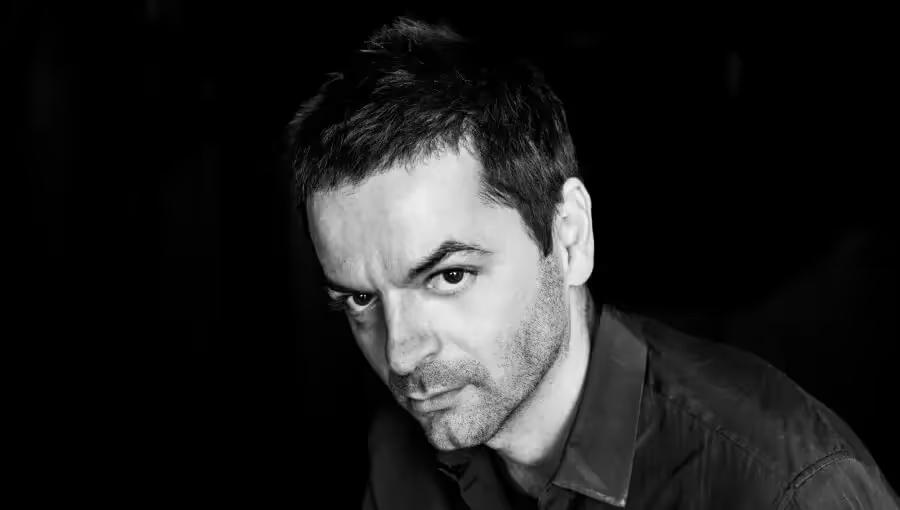
Artist, Albania
Learn more

Anri Sala
Artist, Albania & France
Anri Sala, one of today’s most renowned artists, bases his works on time and constructs them from the link between image, architecture and sound: they use it to disrupt and question experience. They investigate linguistic, syntactic and musical ruptures, inviting creative dislocations and new interpretations of history. Anri Sala is represented by Galerie Chantal Crousel (Paris), Kurimanzutto Gallery (Mexico), Hauser & Wirth (London), Marian Goodman Gallery (New York) and Esther Schipper (Berlin).
The project: If Wishes Were Horses Beggars would Ride
In 490 BC, Philippides, a Greek fighter, ran more than 42 kilometres to exclaim, with a last breath: “We have won!”. Anri Sala’s project is inspired by the marathon and its original history: he will replace Philippides’ exclamation with various phrases taken from the Instructions for British Soldiers in France (1944) and the Instructions for British Soldiers in Germany (1944). Uttered by today’s athletes who are crossing the finish line of the Paris marathon, most of them coming from various and sometimes distant origins, the sentences with which the soldiers were once armed, will no longer be pronounced from a position of power and uniformity, but on the contrary, from a position of vulnerability and diversity.
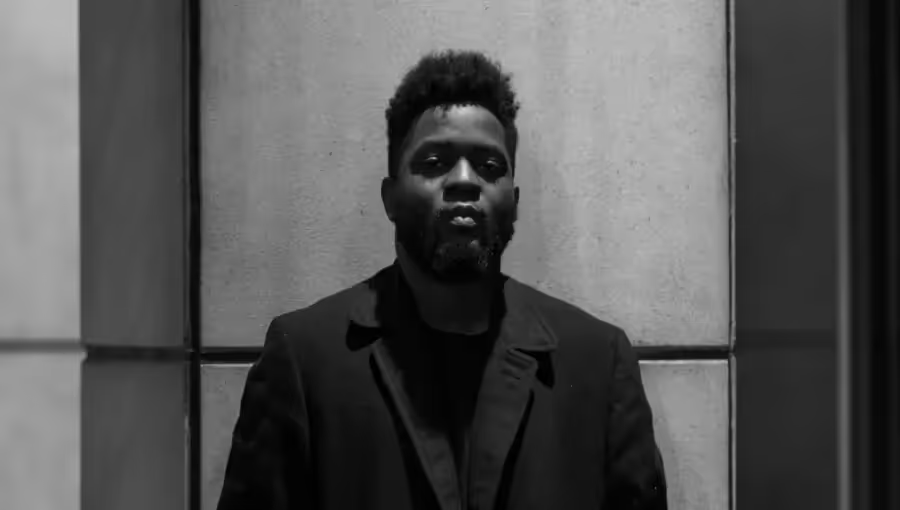
Artist, USA
Learn more

Chino Amobi
Artist, USA
Chino Amobi is a Virginia-based experimental electronic musician, contemporary artist and producer. He is co-founder of the independent label NON Worldwide. He has previously worked in painting and sound art, and has released albums such as Airport Music for Black Folk (2016) and Paradiso (2017), which explore themes of intercontinental security, post-apocalyptic narratives and The New Global South. He is represented by the Fitzpatrick Gallery (Paris; Los Angeles)
The project: EROICA VOL.II
In 2019, he produced the first part of the Eroica novel trilogy, designed to be an “epic globalist thriller”, between myth and history. The book launch was linked to an exhibition at the Anderson Gallery in Richmond, Virginia, which focuses on the first part of the trilogy. EROICA VOL.II is the second part of his trilogy, blurring the lines between epic storytelling, speculative realism, social science, and global economics. He plans to create artefacts from a variety of media, which will function as a reference index to the novel. Volume 2 will be produced with the help of a multitude of collaborators from the local and international scenes. Paris will be the living museum that hosts the story. The incorporeal elements will be included in the myth of Eroica.
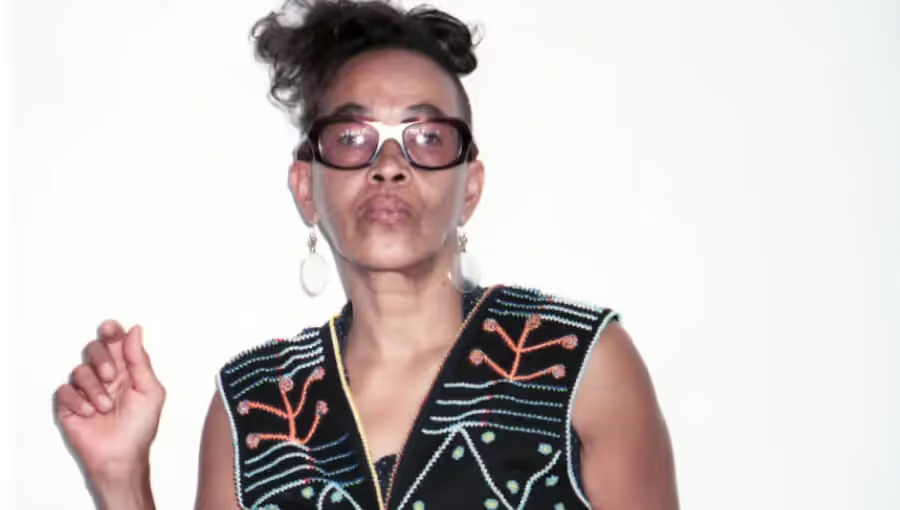
Artist, Russia & Ghana
Learn more

Liz Johnson Artur
Artist, Russia & Ghana
Liz Johnson Arthur has been a photographer for over thirty years and received a Turner Bursary in 2020 . Her work focuses on documenting the lives of black people from the African diaspora. She has followed international diaspora communities, observing their ways of communicating and representing themselves.
The project: Collecting Evidence
Collecting Evidence will immortalise the stories of the black community living in Paris and the Ile-de-France, integrating them with the perspective of the Afro-European diaspora. Liz Johnson Arthur will link this experience to underlying notions of climate, toxicity, power and capital. She will immerse herself in the atmosphere of Paris, and observe its social fabric by meeting with communities, religious groups, and participating in sports gatherings, concerts, and other experiences of urban life to collect evidence, photographs, and create an installation.
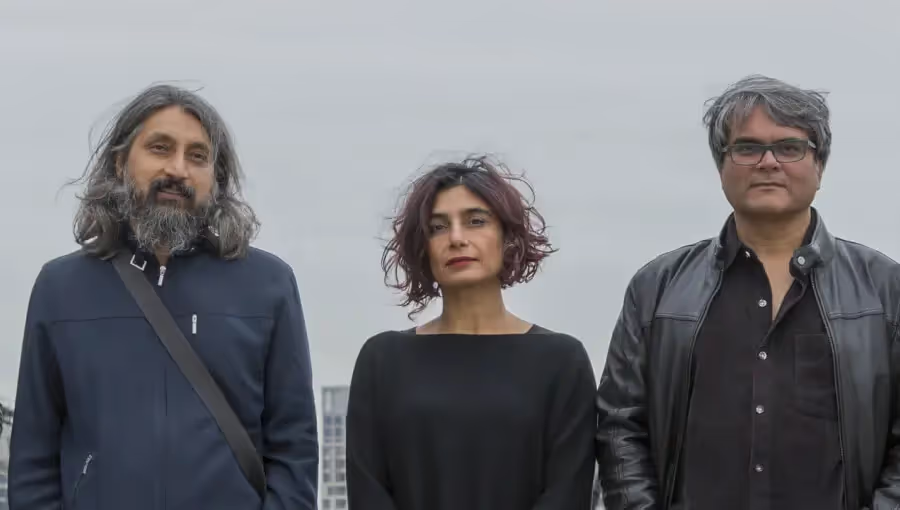
Artists, India
Learn more

Monica Narula / Raqs media collective
Artist, India
Raqs Media Collective was formed by Jeebesh Bagchi, Monica Narula and Shuddhabrata Sengupta. The word “raqs” denotes an intensification of awareness and presence attained by whirling, turning, being in a state of revolution. Raqs practices across media; making installation, sculpture, video, performance, text, lexica, and curation. Raqs co-founded Sarai, where they also edited the 9 volume Sarai Reader series. They live and work in Delhi, India. They have exhibited extensively, globally, as well as curated numerous exhibitions, including the Shanghai Biennale 2016, “Why Not Ask Again”, and the Yokohama Triennale 2020, “Afterglow”.
The project: Who's more human, then? Artistic Research into Automata & Histories of Artificial Intelligence
Monica Narula will embody the Raqs Media Collective during the residency. The collective has an active interest in the intersection between being, and becoming: human, animal, machine (and everything in between!). The term automata comes from a Greek verb meaning ‘to act according to one’s own will’. Raqs consider automata of all kinds to be platforms for the performance and coding of will and intelligence. Monica will explore the Raqs collective’s philosophical curiosity about the relationship between autonomy and predetermination in automata of all kinds. The aim is to extend the vocabulary of Raqs’ artistic practice, and to explore the fabrication of mechanical toys, the programming of artificial intelligence and the design of machines that imitate and refer to human and animal capacities. Monica intends to do this in collaboration and conversation with researchers, scientists, and museums such as the Musée des Arts et Métiers, and the Musée de la Magie.
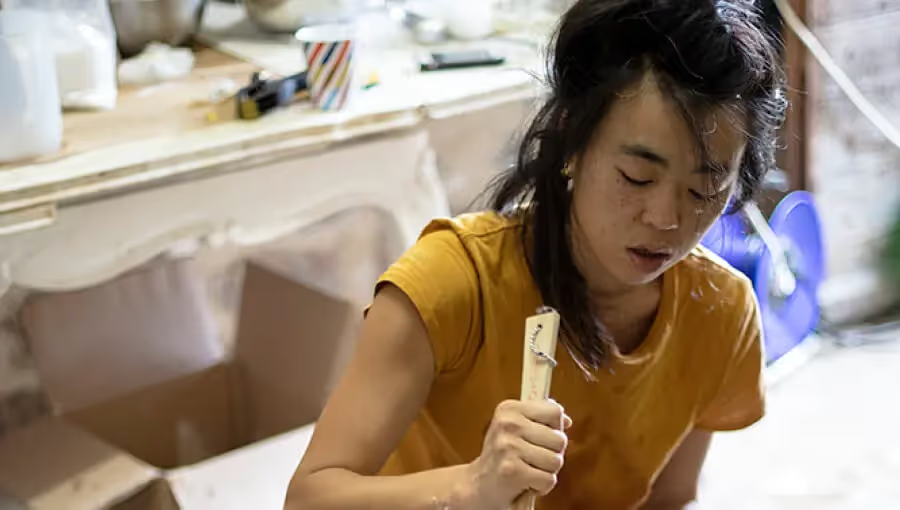
Artist, Japan
Learn more

Natsuko Uchino
Artist, Japan
The art of Natsuko Uchino is defined by her experience in agriculture and artisanal creation and, using ceramics, brings together art, ecology, and convivial food. Her work takes the form of physical pieces, films and performances combining the diverse material aspects of sculpture, functional objects and living beings. The Earth is seen and treated as ‘worldly ingredients’ – resource and essence of all forms of life. Natsuko Uchino is represented by la Galerie Allen (Paris).
The project: Hospitality and rewilding: projecting an eco-social landscape
This research calls upon notions of eco-design and the usage cycles of materials in temporary, living, and biodegradable forms. The cultivation of fermented products is creative, somewhat spontaneous, and often perpetual. These cultural activities are the source and starting point for diverse experiments into the building of eco-social forms. The desire is to make the residency a place of thought and practice around food production in an urban context through the association of and symbiosis with living things, writing and cooperative performances. An inclusive presentation is planned with the exhibitions of various actors, workshops, a laboratory, and a written publication.
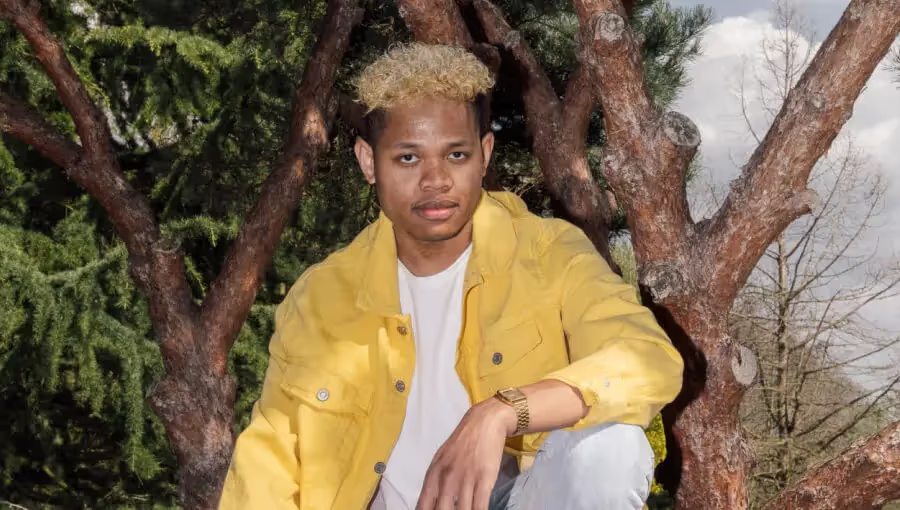
Germany, USA, Philippines
Learn more

Nicholas Grafia
Germany, USA, Philippines
Nicholas Grafia’s artistic practice combines painting, performance and time based media installation to discuss the formation of political, cultural and social memory. Through the use of a theoretical framework concerned with postcolonial issues, the monstrous and post-humanism, as well as references to surrealism, he defines a visual language that serves to analyze the familiar and the strange; the locally specific and the universal.
The project: Channel X-one
The aim of his residency project is to trace down various her- and histories, as well as any form of personal narrative in between, deriving from communities and individuals that have been majorly overlooked, neglected and excluded by Western society at large, in order to put forward their ideas on a number of social issues, departing, for instance, from social dynamics within, both, their immediate local surroundings, living in the metropolitan region of Paris, as well as the country as a whole. The results of his research will then be presented on a transmission platform, which will put the invited guests and their personal accounts in the center. He will create a permanent, multi-functional installation where he will conduct different types of interview formats. Among other models, the spatial configuration will serve as a radio station, film set and shooting location, in which, for example, recording and photo sessions will be directed by the interviewees themselves.
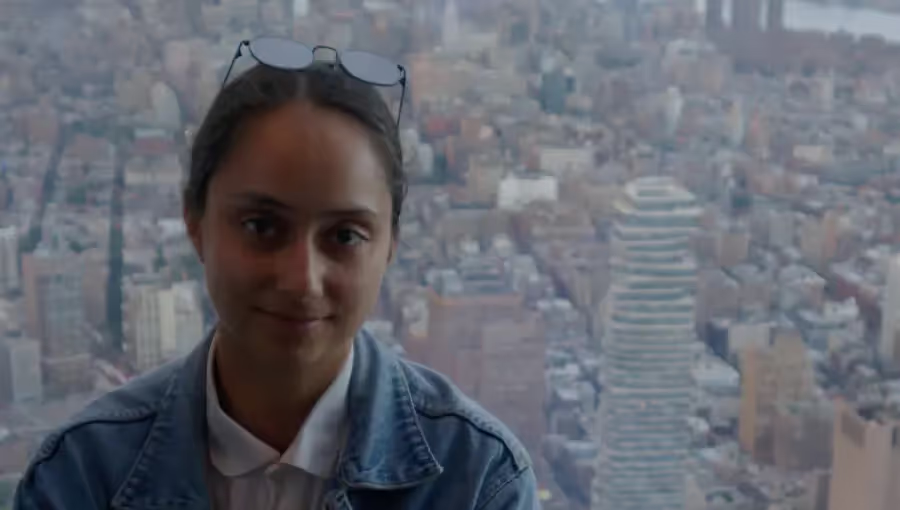
Artist, Switzerland
Learn more

Ramaya Tegegne
Artist, Switzerland
Ramaya Tegegne’s work is derived from the process through which her work is constituted. It focuses on collaborative practices which both today and historically have highlighted social, economic and cultural determinism and the inherent problems of meritocracy and gentrification. The artist approaches these questions by revealing real-life accounts and experiences, stories of the conditions of selection and production in today’s world. She founded the Wages For Wages Against campaign, to fight for fair prices and working conditions for artists.
The project: 36 rooms a day
Ramaya Tegegne is planning a performance based on the strikes held by cleaning ladies in several Parisian hotels (Ibis Clichy Batignolles, Park Hyatt Vendôme, Hyatt Madeleine, W Opéra, L’Hôtel du Collectionneur, The Clichy Holiday Inn,…). The project will start by looking for a location in Paris to meet with associations and protesting workers. And it will be fleshed out with the creation of a play at the Factory Theatre (Théâtre de l’Usine) in Geneva in 2022. The theme will be cantered around demands for better working conditions. The aim is also to find inspiration for similar struggles in the visual arts.
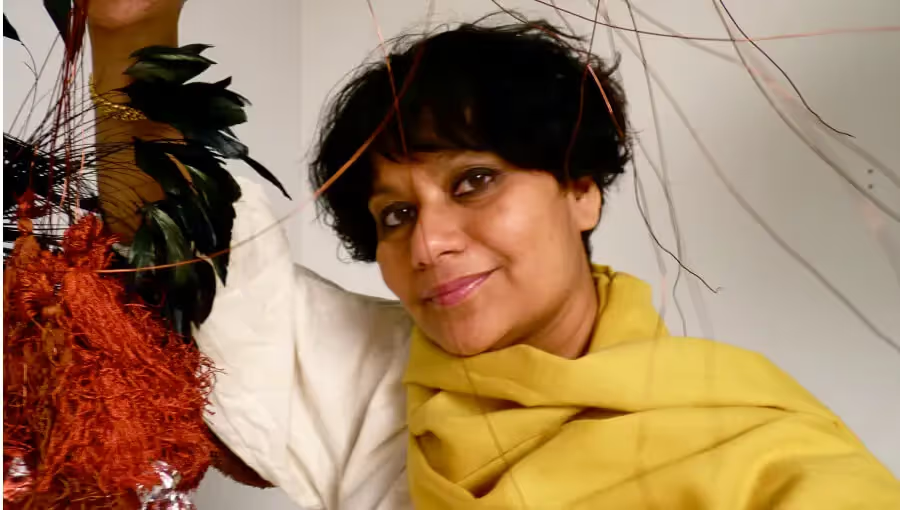
Artist, India
Learn more

Rina Banerjee
Artist, India
Rina Banerjee’s sculptures, drawings, paintings and videos explore the subject of immigration through a reflection on memory, experience and the mobility of communities. Her work questions the notion of identity, as well as that of femininity and sisterhood. She is represented by the Galerie Nathalie Obadia (France).
The project: In the most foreign of gardens grows Democracy
Rina Banerjee wishes to create a series of portraits inspired by stories of urban Paris, a project that requires her to explore the conditions of the urban as a place of hospitality. She will create sculpture using new methods and processes that will require an understanding of historical colonial artefacts, textile techniques, hybrid cultural designs and ceramic or glass objects created during the development of fashion in France. Rina Banerjee wishes to collaborate with institutions such as the Manufacture nationale de Sèvres or the Gobelins to create part of the Medusa head sculpture she has imagined for her project. Documentary research at the Musée Guimet will be the other essential part of her residency project. Rina Banerjee also plans to explore the photographic collection of the Bibliothèque nationale de France and the encounter between researchers and scientists to address the theme of identity from a different perspective. The contemporary and the urban, our new global home, a single address, Earth offers a benevolent and aspiring creator, Medusa. She is a multifarious being a magnificent Nature. Medusa’s tangled crown of snake heads are a symbol of our woven, interlocked human community. We are a interracial and inter faith one and willingly we are ready to stare back at democracies demons to love, embrace our humanness.

Artist, Croatia & Netherlands
Learn more

Tomo Savic-Gecan
Artist, Croatia & Netherlands
Tomo Savic-Gecan is an artist who, as a rule, exhibits ‘nothing’. Conceived as a tabula rasa, his projects function as empty spaces filled with various charges, hidden tensions, references and interconnections. By intervening in space, the basic ‘material’ of his work, the artist initiates marginal and unusual interactions between space, viewer and the non-existent object of the exhibition.
The project: Untitled 2021
Tomo Savic-Gecan won the Accelerate award as part of the Arts at CERN programme, which gave him the opportunity to realize his work in collaboration with scientists. He is now interested in how nanomaterials can act as a ‘bridge’ to transmit information between the physical boundaries of the gallery or museum space and the visitors. The level of information transfer, which is in itself a dialogue, is open-ended, and will be researched during the residency.
The 2021 Selection Committee

Philosopher of science, professor at the Université de Liège and the Université Libre de Bruxelles (Belgium)
Learn more

Philosopher and psychologist Vinciane Despret teaches in the Philosophy Department at the University of Liège. Passionate about ethology, she has made it the subject of her research. In 1996, she recounted her first fieldwork with birds in Naissance d'une théorie éthologique : la danse du cratérope écaillé. Other publications followed, including Bêtes et Hommes (following the eponymous exhibition she curated at the Grande Halle de la Villette in 2007-2008); Etre bête, co-written with Jocelyne Porcher; Les faiseuses d'histoires with Isabelle Stengers; Penser comme un rat; Que diraient les animaux si on leur posait les bonnes questions? Her latest book, Habiter en oiseau, examines the question of territories. The common thread running through his investigations is the question of good research methods: how do we (or don't we) manage to make beings interesting?
Sylvère Petit

General Curator of Heritage. Head of the Contemporary Creation and Prospective Department at the Mnam Centre Pompidou (France)
Learn more

Art historian and curator Christine Macel has been head curator of the Contemporary Creation and Prospective Department at the Centre Pompidou since 2000, where she has organized numerous exhibitions. She was director of the 2017 Venice Art Biennale 'Viva Arte Viva'. Her essay 'Le Temps Pris' was published in 2020 by Editions Champs d'art Flammarion. Co-curator of "Global(e) Resistance" at the Centre Pompidou in 2020, she is preparing the exhibition "Elles font l'abstraction/Women in abstraction" at the Centre Pompidou (May 2021) and at the Guggenheim Bilbao (October 2020).
Jean-Claude Planchet
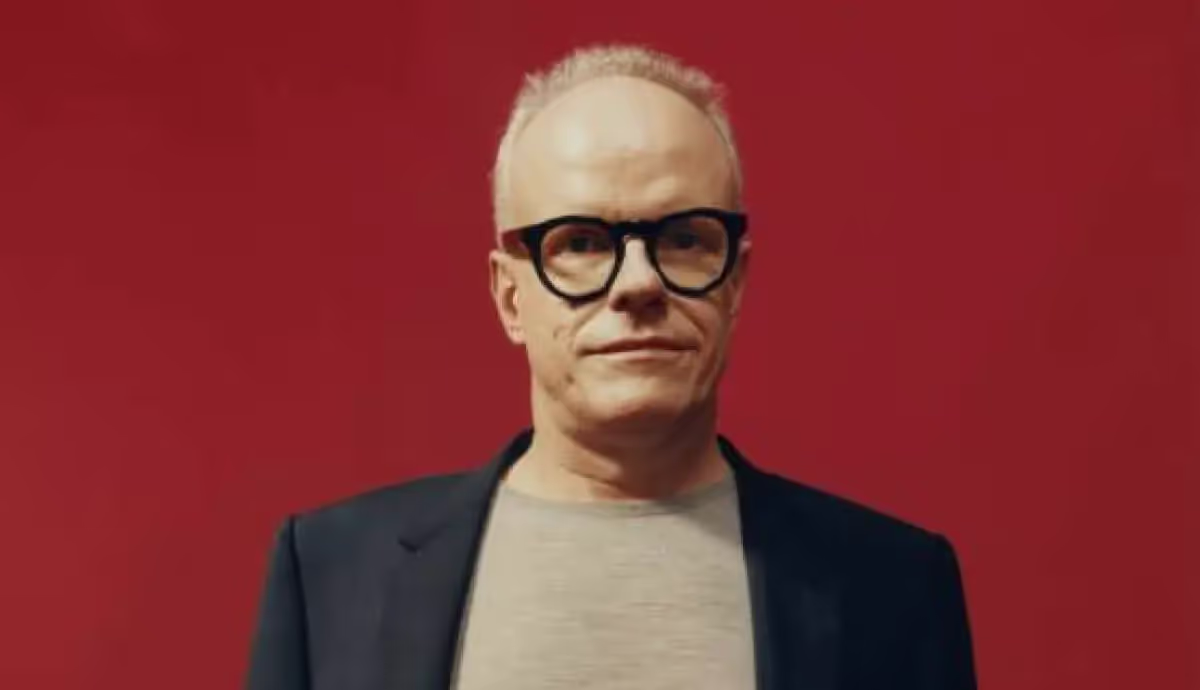
Artistic Director, Serpentine Galleries, London (UK)
Learn more

Hans Ulrich Obrist, born 1968 in Zürich (Switzerland), is artistic director of the Serpentine Galleries in London. He was previously curator of the Musée d'Art Moderne de la Ville de Paris. Since his first exhibition "World Soup" (The Kitchen Show) in 1991, he has organized over 300 exhibitions. Obrist has lectured internationally at art academies and institutions. He is editor-in-chief of Artforum, AnOther Magazine, Cahiers d'Art and 032C. He also writes columns for Das Magazin and Weltkunst. Obrist received the CCS Bard Award for Curatorial Excellence in 2011, and the Folkwang International Award for his commitment to art in 2015. Recent publications include Ways of Curating (2015), The Age of Earthquakes (2015), Lives of the Artists, Lives of Architects (2015), Mondialité (2017), Somewhere Totally Else (2018) and The Athens Dialogues (2018).
Tyler Mitchell
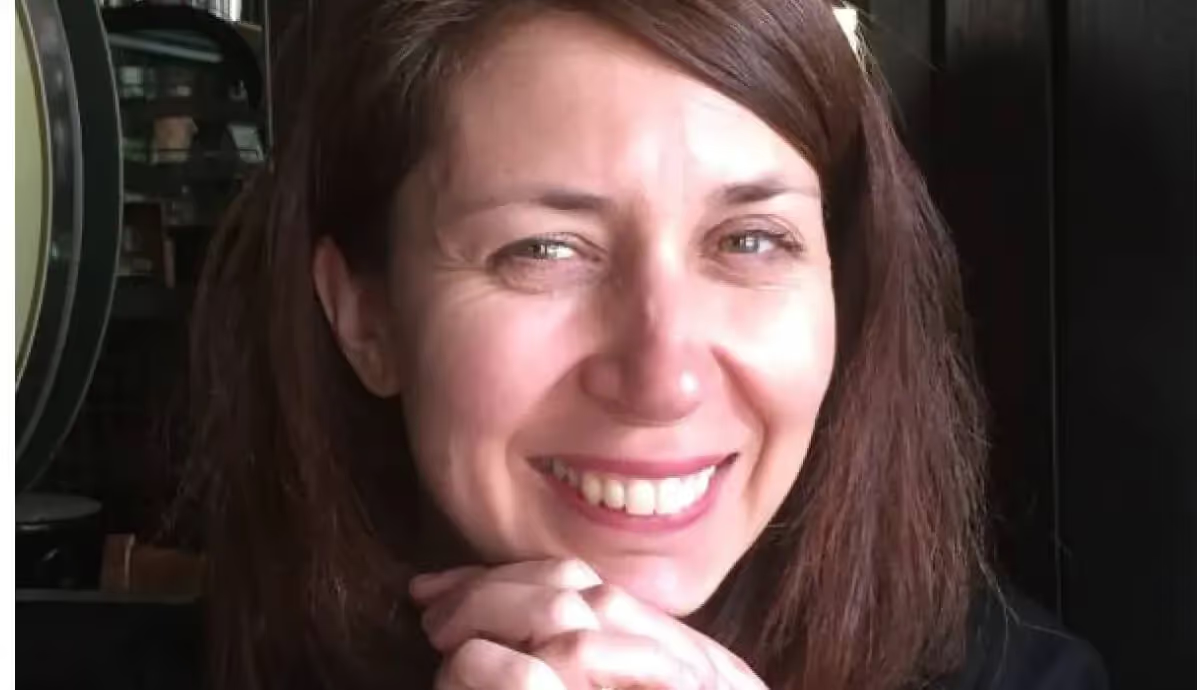
Interdependent curator, editor and art critic
Learn more

Nataša Petrešin-Bachelez is an interdependent curator, editor and art critic. Exhibitions she has curated include Contour Biennale 9: Coltan as Cotton (2019, Mechelen), Defiant Muses: Delphine Seyrig and the Feminist Video Collectives in France (1970s-1980s) at the LaM Museum in Lille and the Reina Sofía Museum in Madrid (2019, with Giovanna Zapperi), Show me your archive and I will tell you who is in power at the Kiosk art gallery in Ghent (2017, with Wim Waelput), Let's Talk about the Weather at the Sursock Museum in Beirut and the Times Museum in Guangzhou (2016 and 2018, with Nora Razian), Resilience. U3 - Triennial of Contemporary Art in Slovenia at the Museum of Contemporary Art (MSUM) in Ljubljana (2013). Nataša Petrešin-Bachelez was also co-director of Laboratoires d'Aubervilliers from 2010 to 2012. She is editor-in-chief of Versopolis Review magazine, and was editor-in-chief of Manifesta Journal from 2012 to 2014 and L'Internationale Online from 2014 to 2017. Nataša Petrešin-Bachelez curated the project Not Fully Human, Not Human At All, organized by KADIST in Paris from 2017 to 2020, whose final exhibition will be held at the Hamburg Arts Association, in collaboration with Bettina Steinbrügge. Together with Elena Sorokina, she has founded an Initiative for Practices and Visions of Radical Care. Finally, with Patricia Falguières and Elisabeth Lebovici, she directs the Something You Should Know seminar at the EHESS in Paris.
Hervé Bachelez

Director, Serralves Museum of Contemporary Art (Portugal)
Learn more

Philippe Vergne has been director of the Serralves Museum of Contemporary Art in Porto since April 2019. From 2014 to 2018, he was director of the Museum of Contemporary Art (MOCA) in Los Angeles. Prior to that, he spent five years overseeing the DIA Foundation in New York, after serving as deputy director and chief curator of the Walker Art Center in Minneapolis. From 1994 to 1997, Philippe Vergne was director of the Musée d'Art Contemporain de Marseille (MAC).



